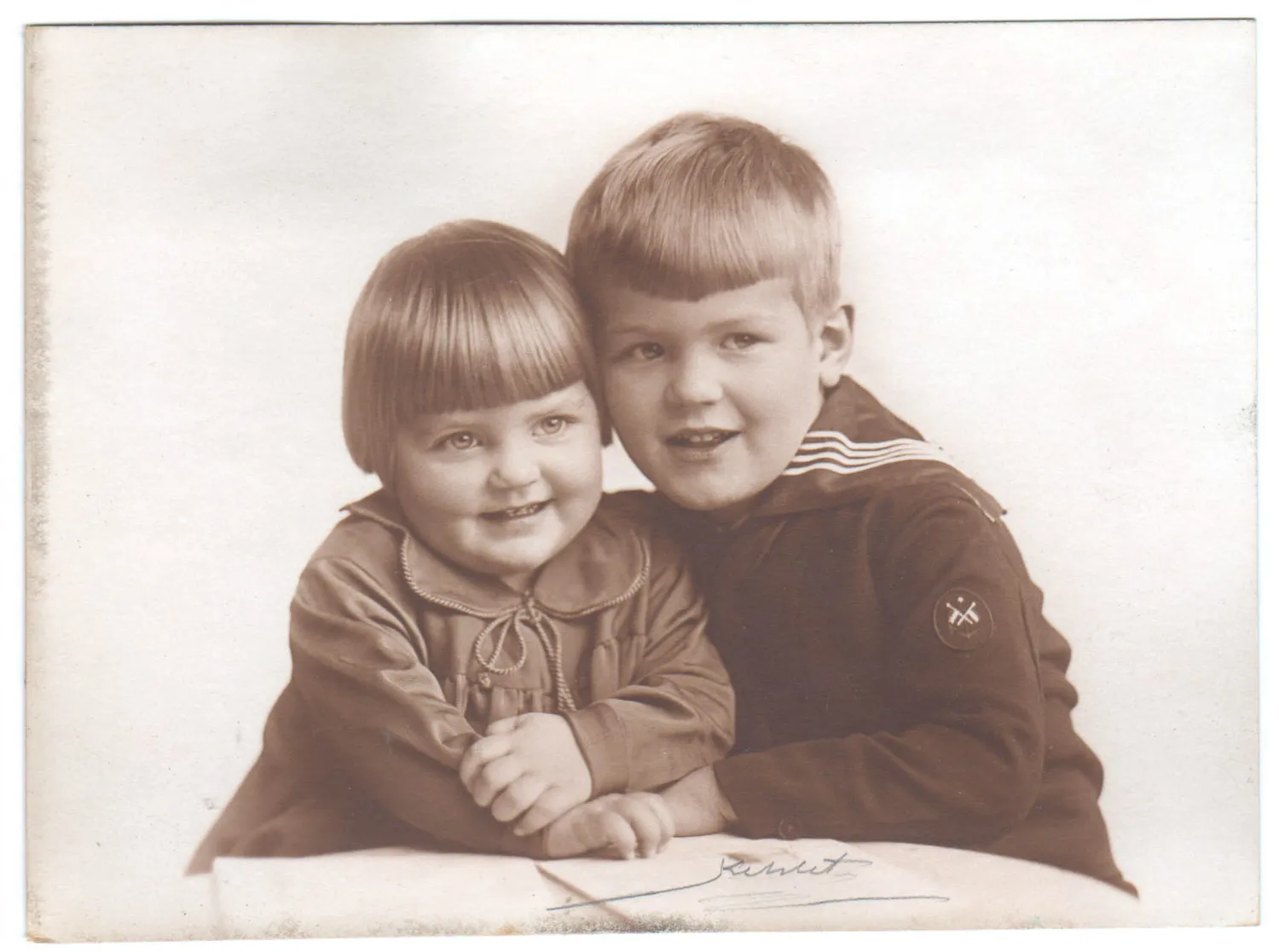
Poul Gerner Nielsen and his sister Inge, ca. 1930
Photo: ukendt / unknown
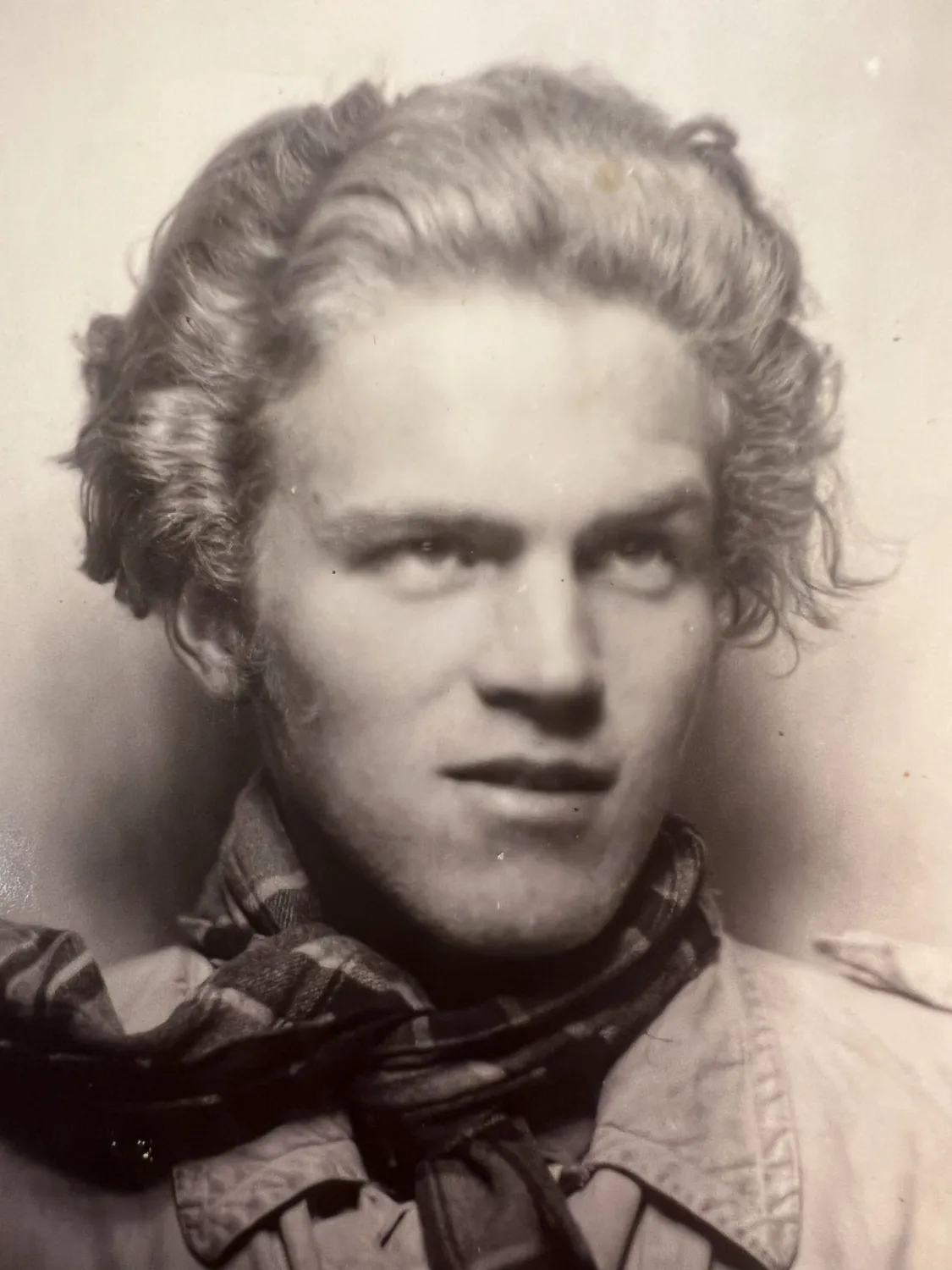
Passport photo, ca. 1946
Photo: ukendt / unknown
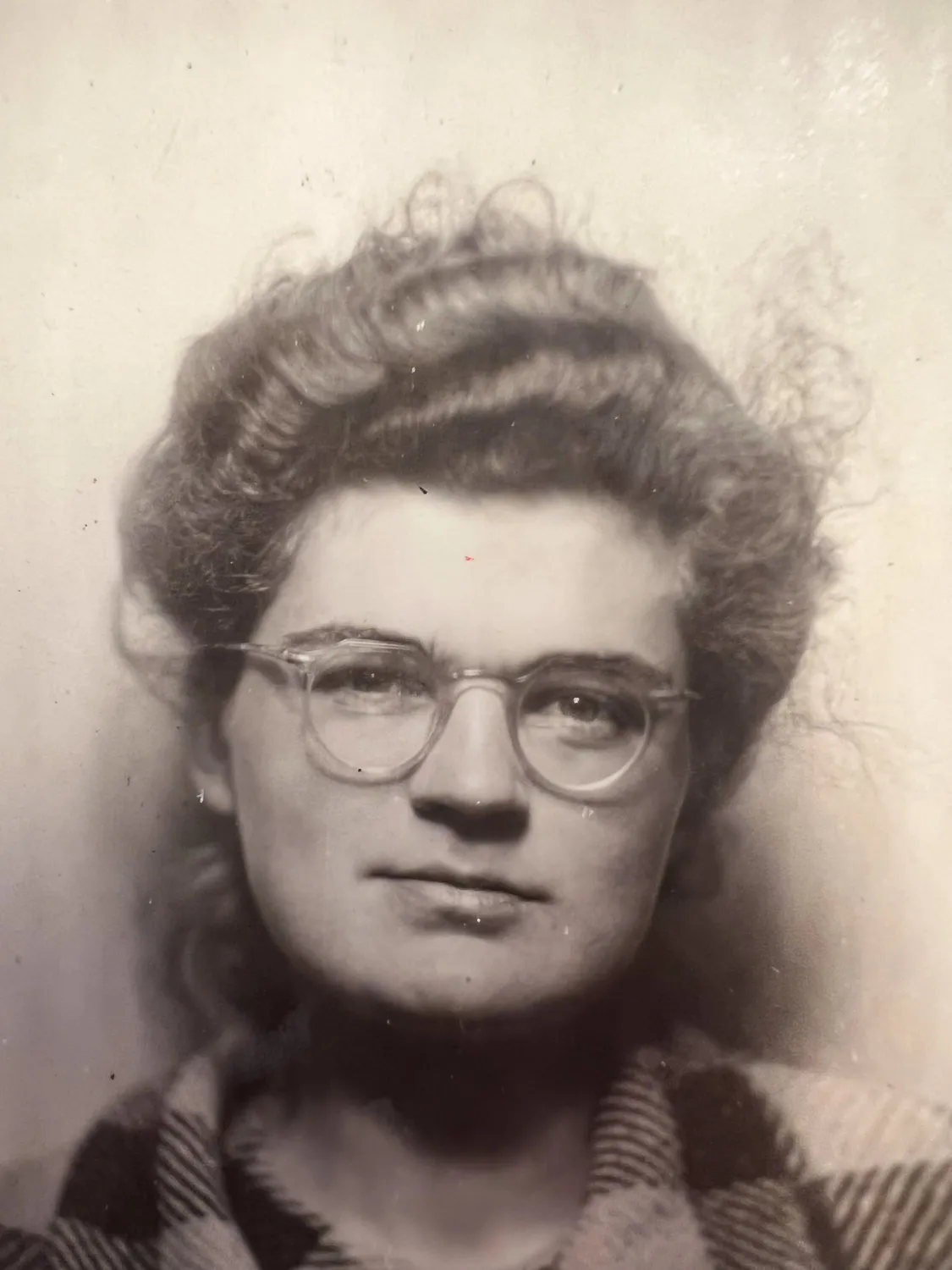
Aase Seidler Jensen. Passport photo, ca. 1946
Photo: ukendt / unknown
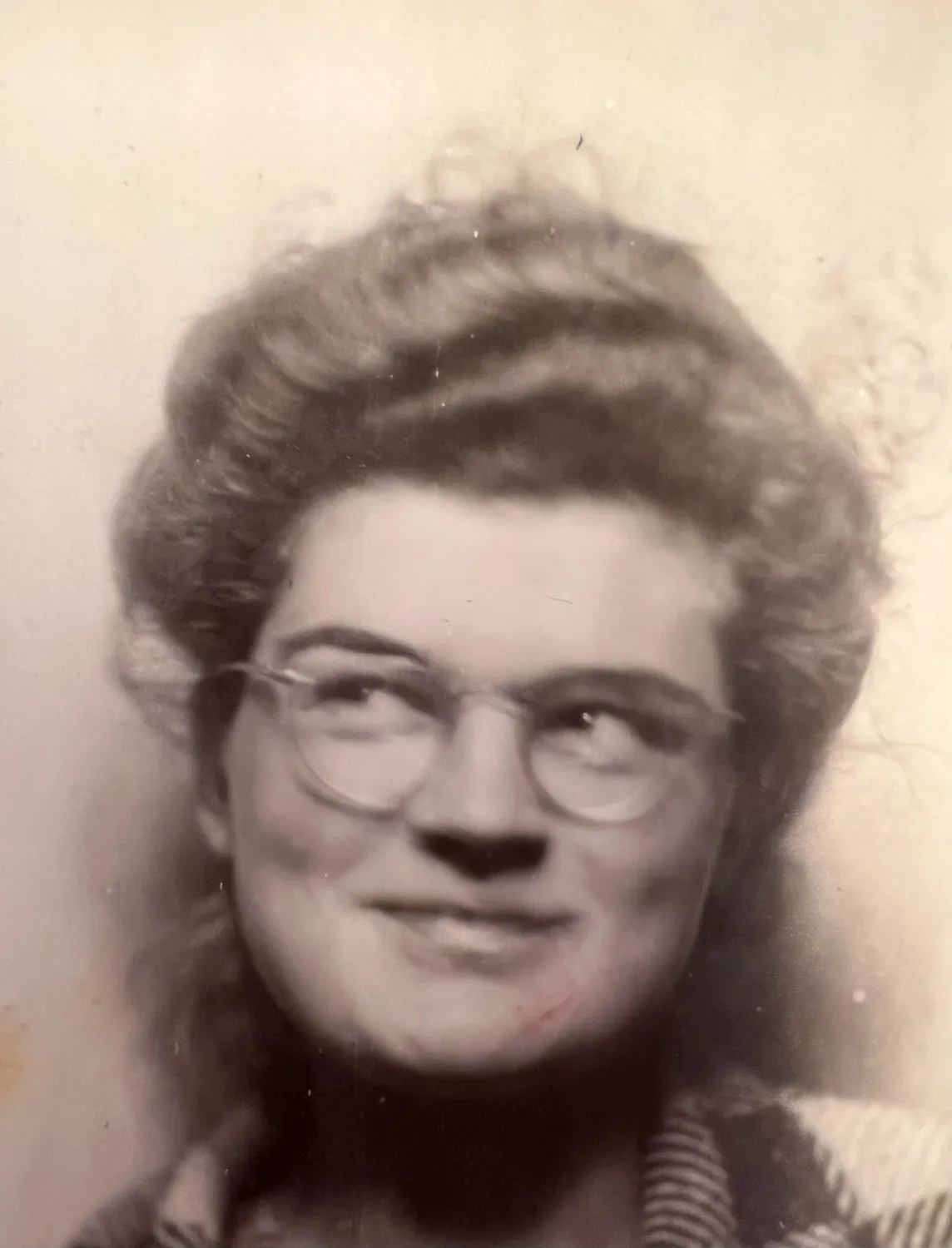
Aase Seidler Jensen. Passport photo, ca. 1946
Photo: ukendt / unknown
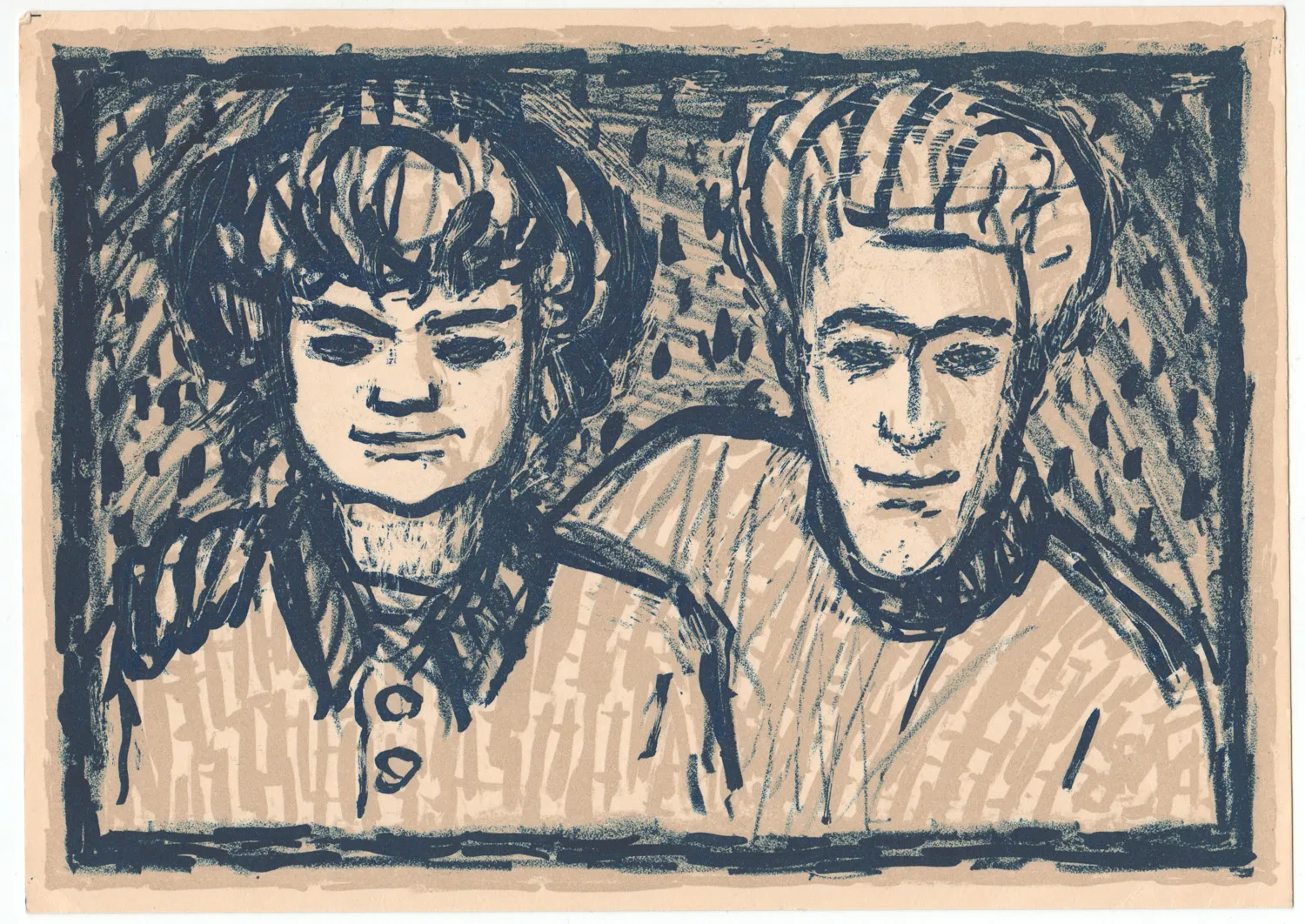
Wedding card, 1948
Photo: skan / scan
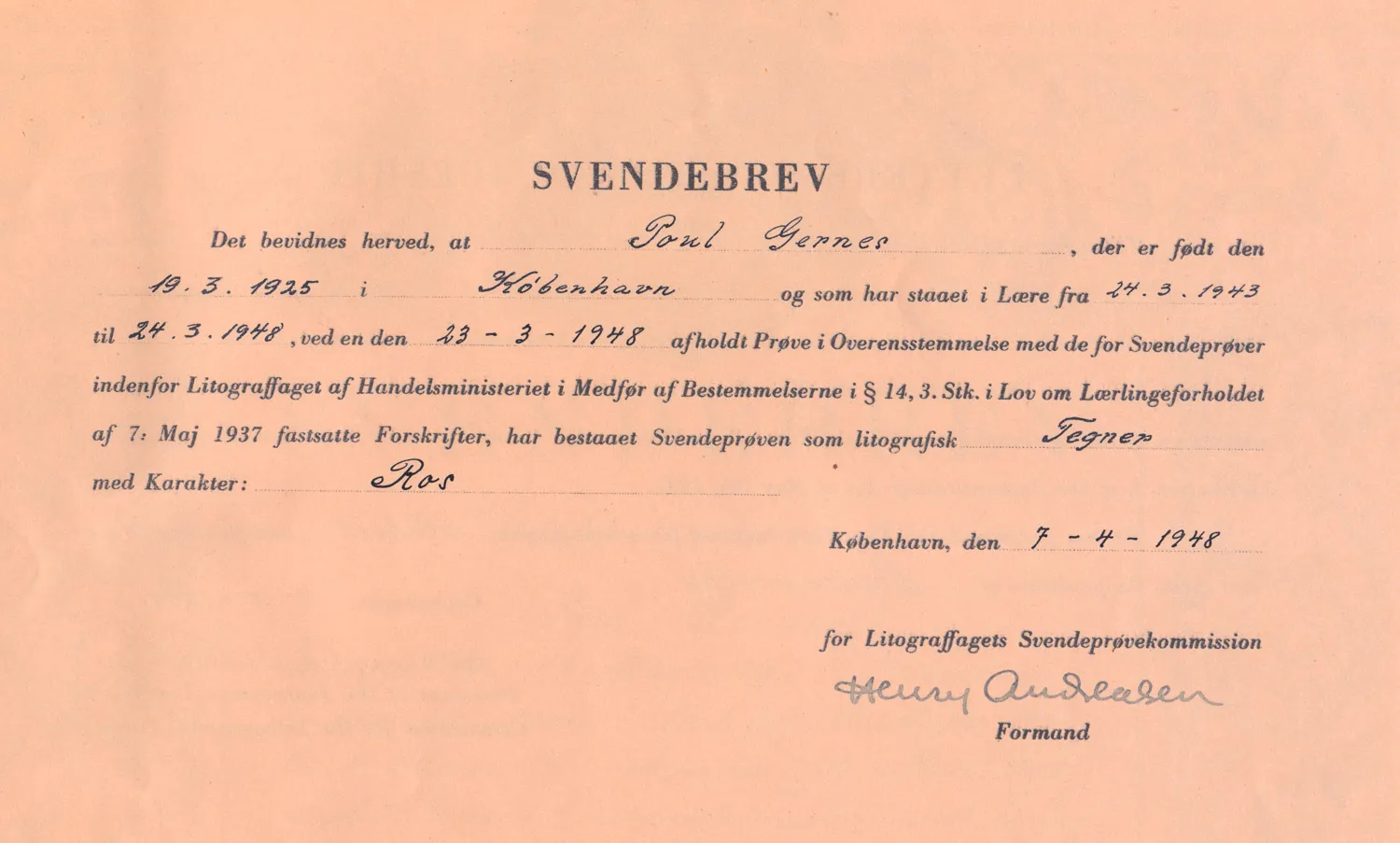
Letters of Apprenticeship, 1948
Photo: skan / scan
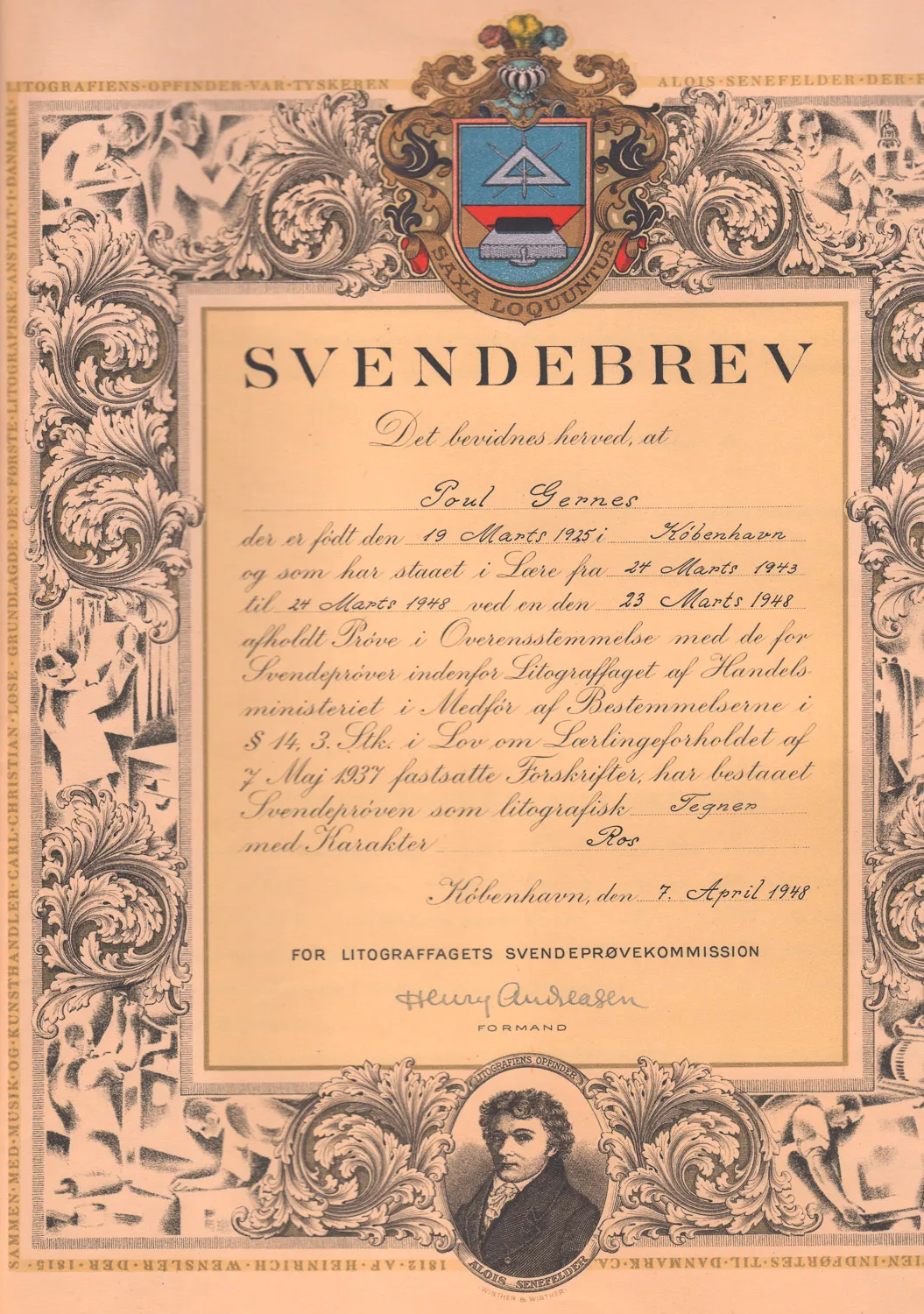
Letters of Apprenticeship, 1948
Photo: skan / scan
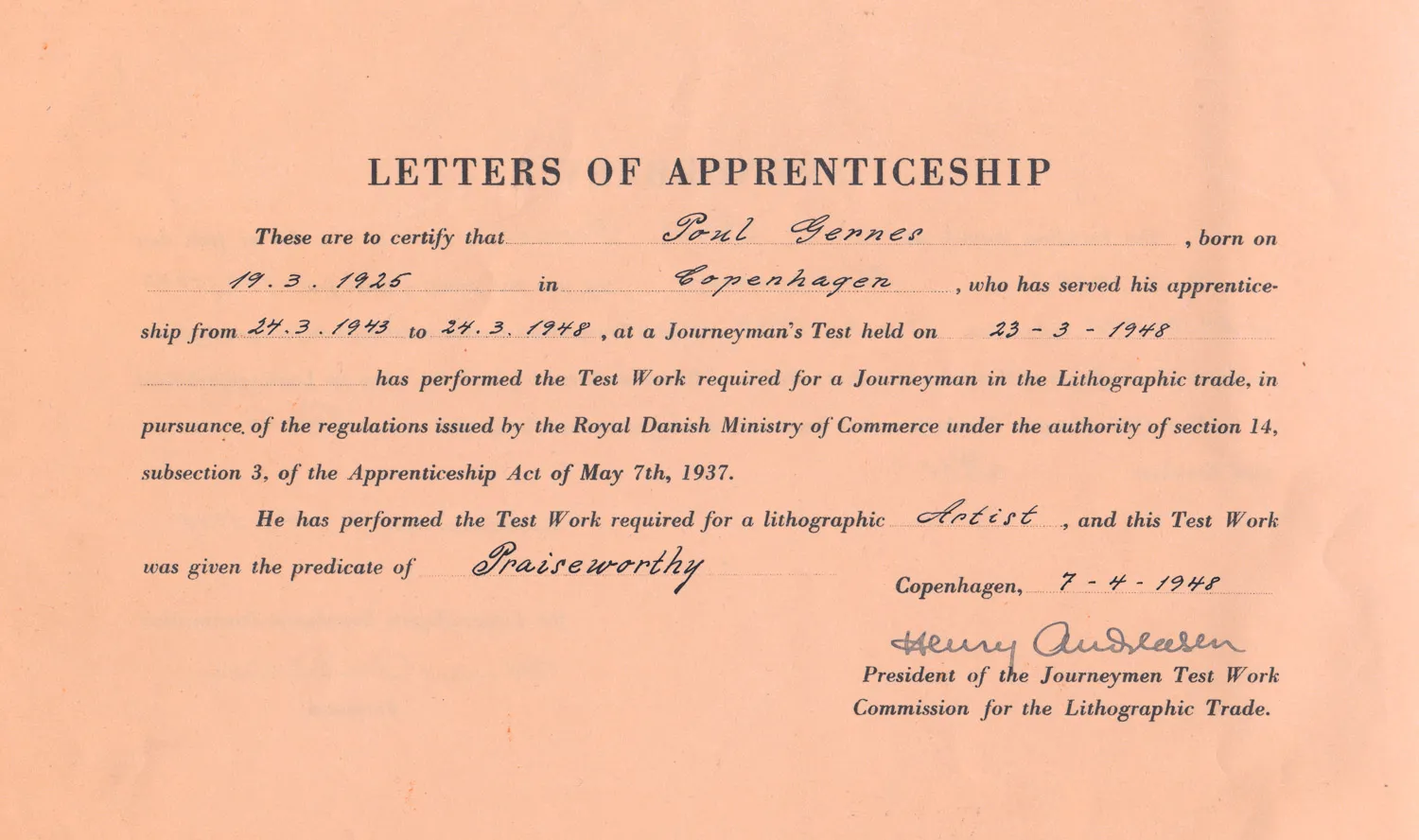
Letters of Apprenticeship, 1948
Photo: skan / scan
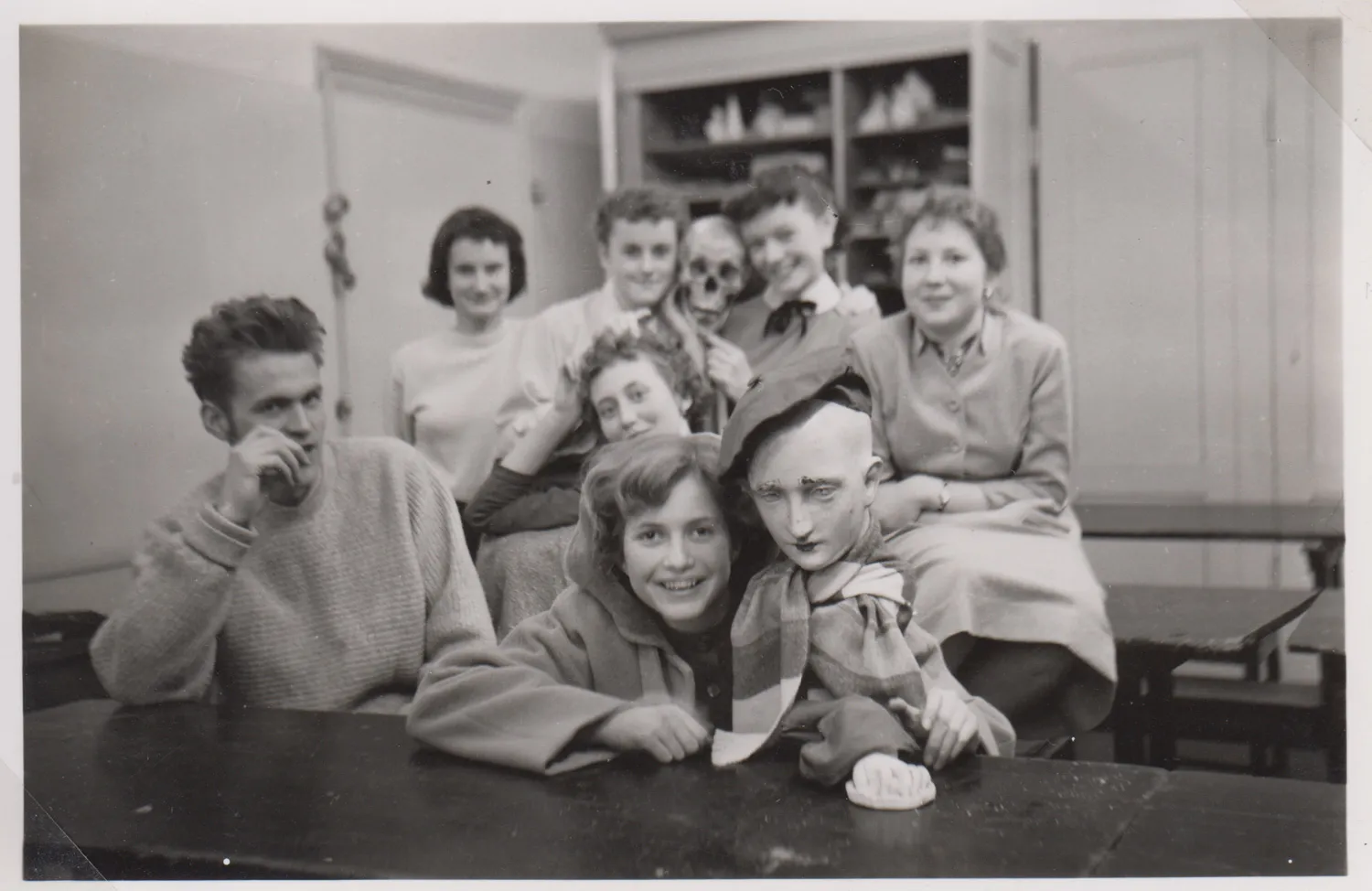
Teaching at Tegneskolen for Kvinder 1955
Photo: ukendt / unknown
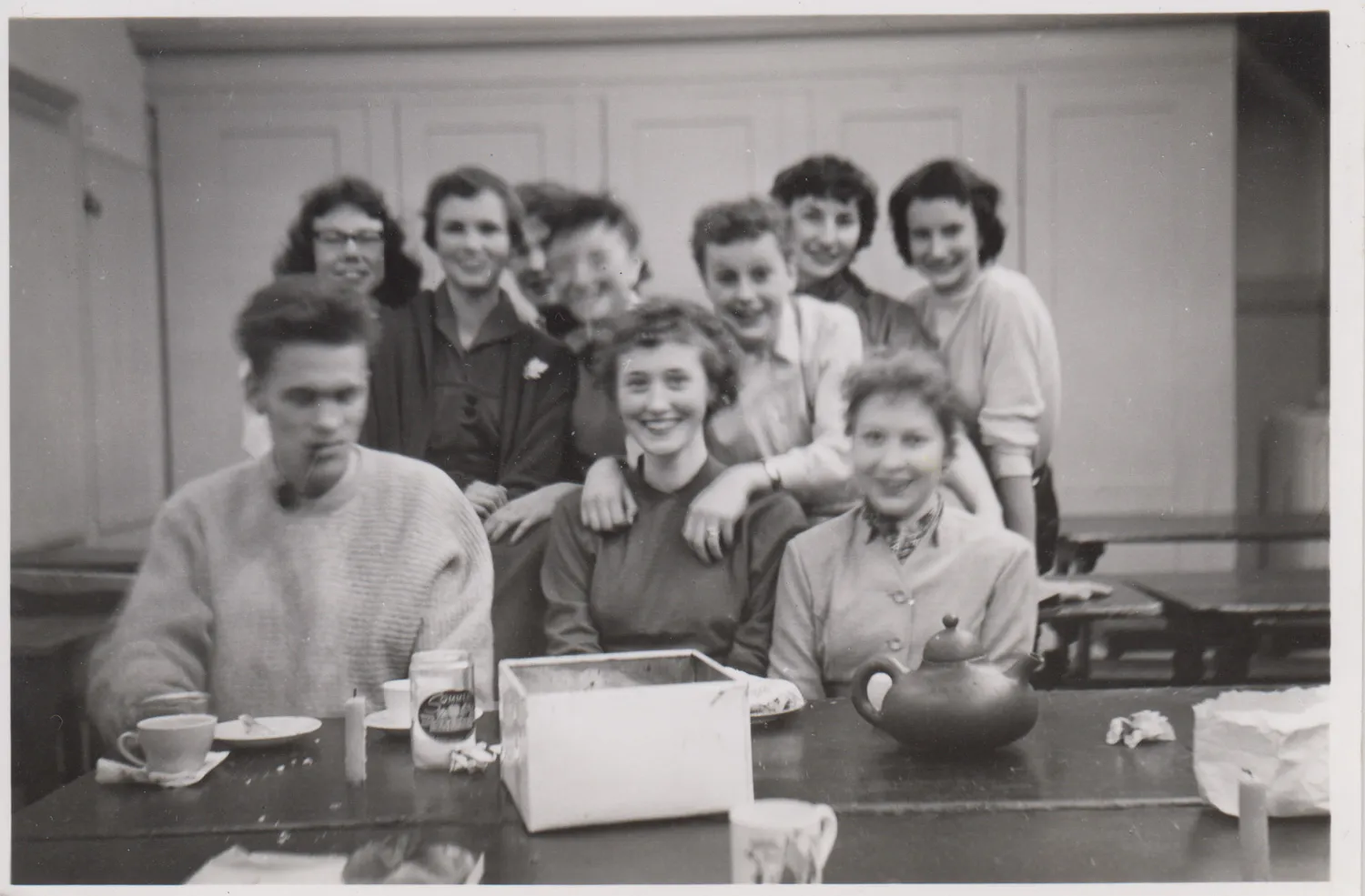
Teaching at Tegneskolen for Kvinder 1955
Photo: ukendt / unknown
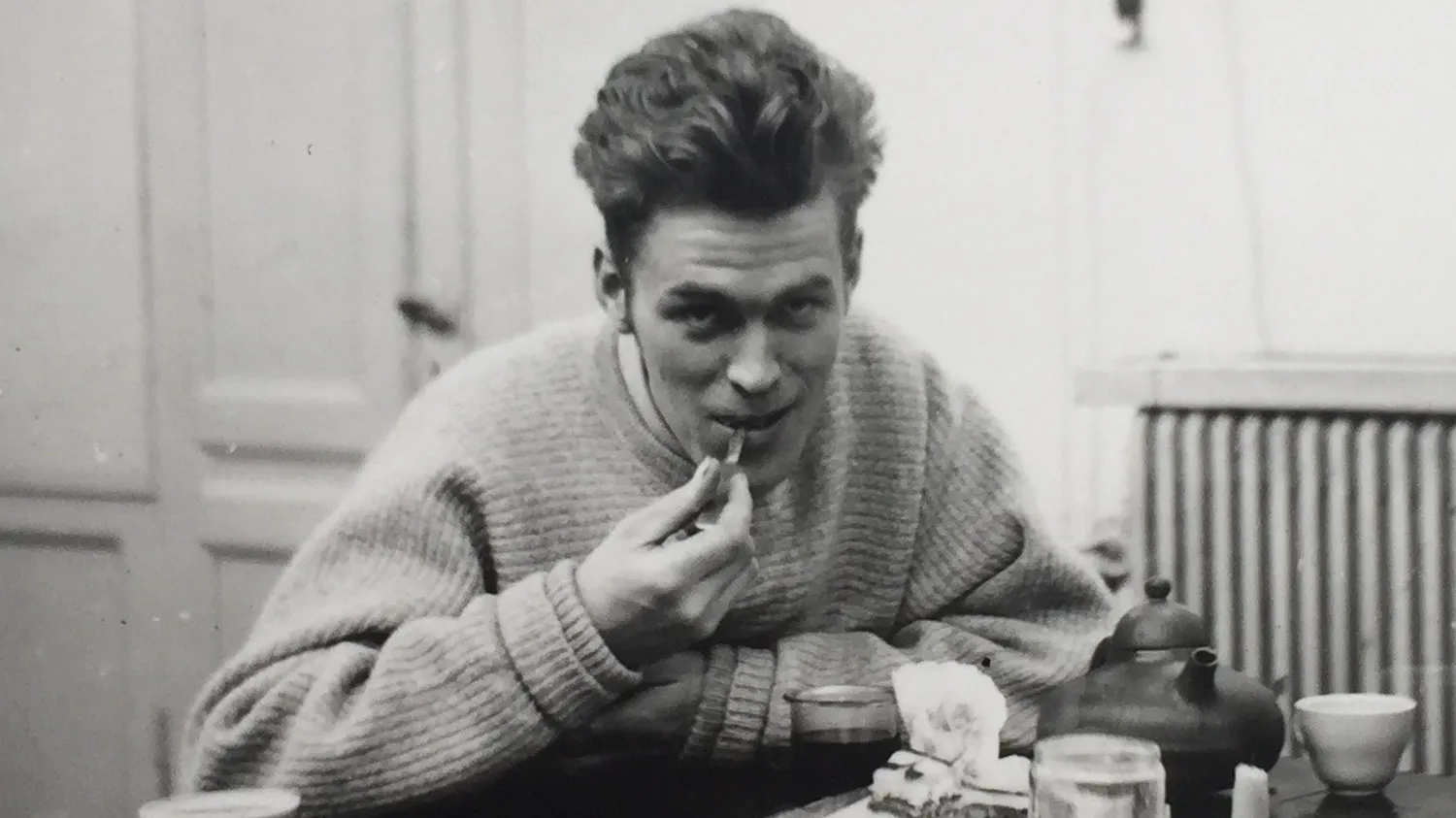
Teaching at Tegneskolen for Kvinder (today: Danish Design School) 1955
Photo: ukendt / unknown
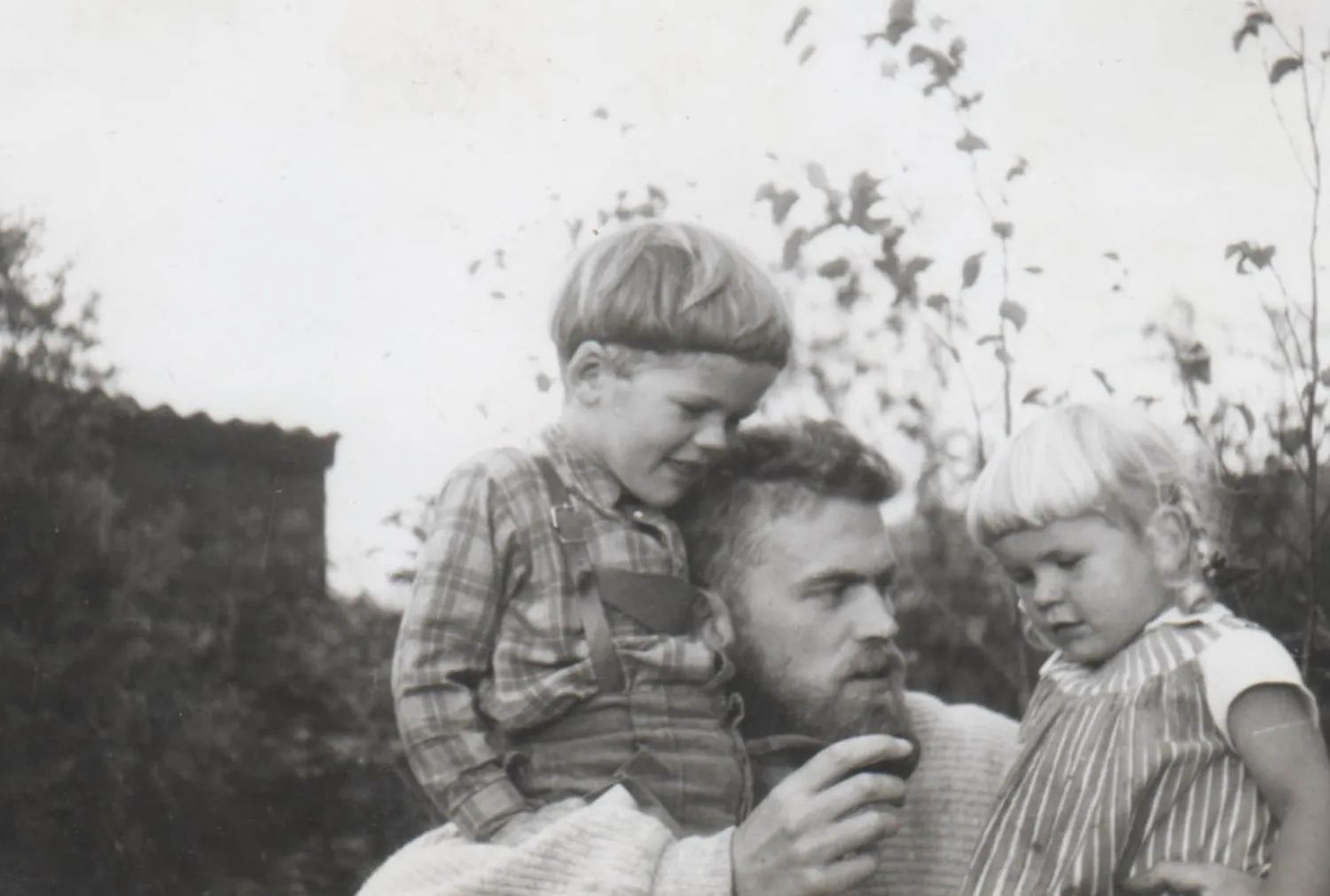
Young father in 1955 with Jesper and Anne-Sofie
Photo: ukendt / unknown
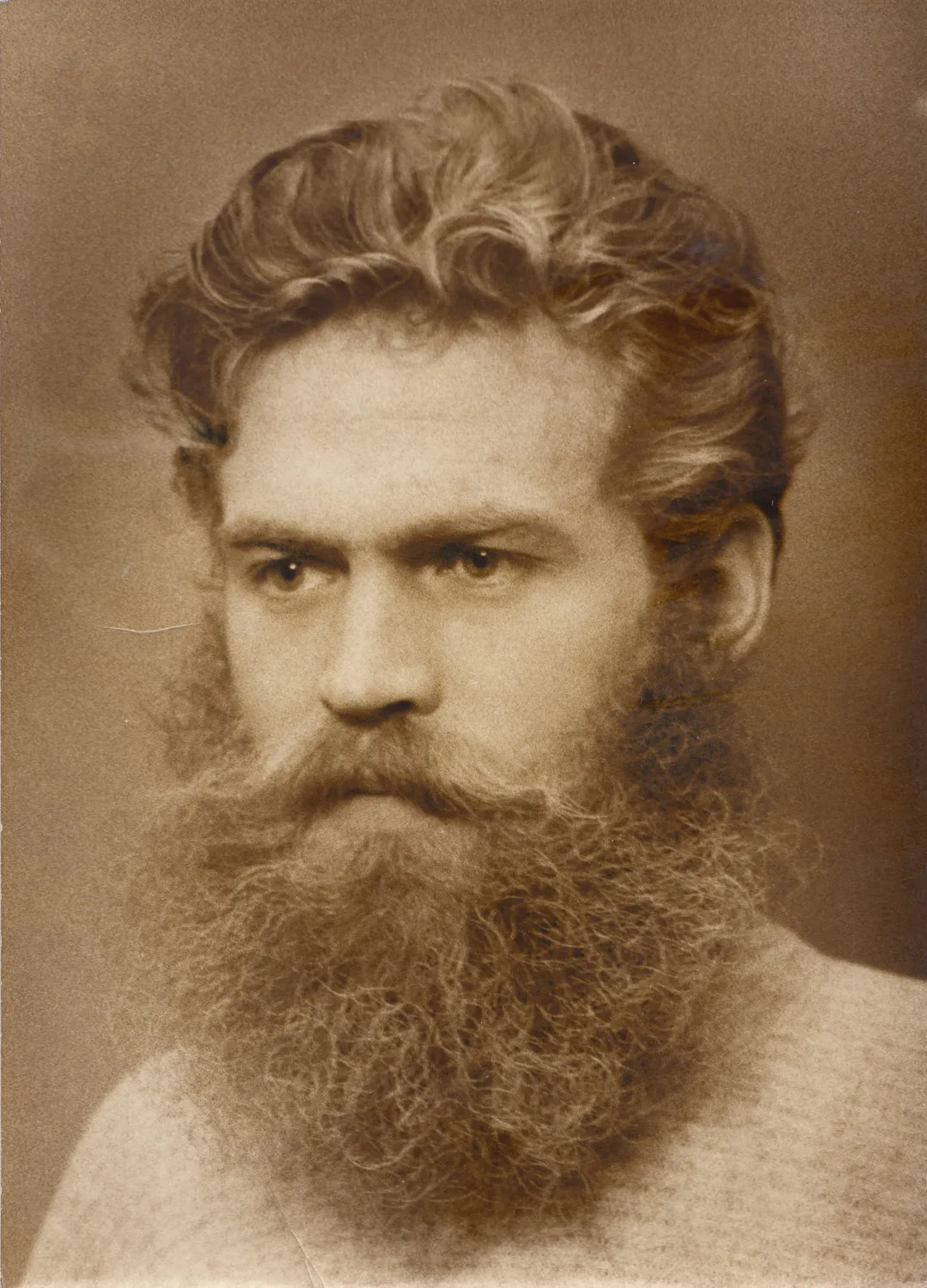
Poul Gernes, 1956
Photo: ukendt / unknown
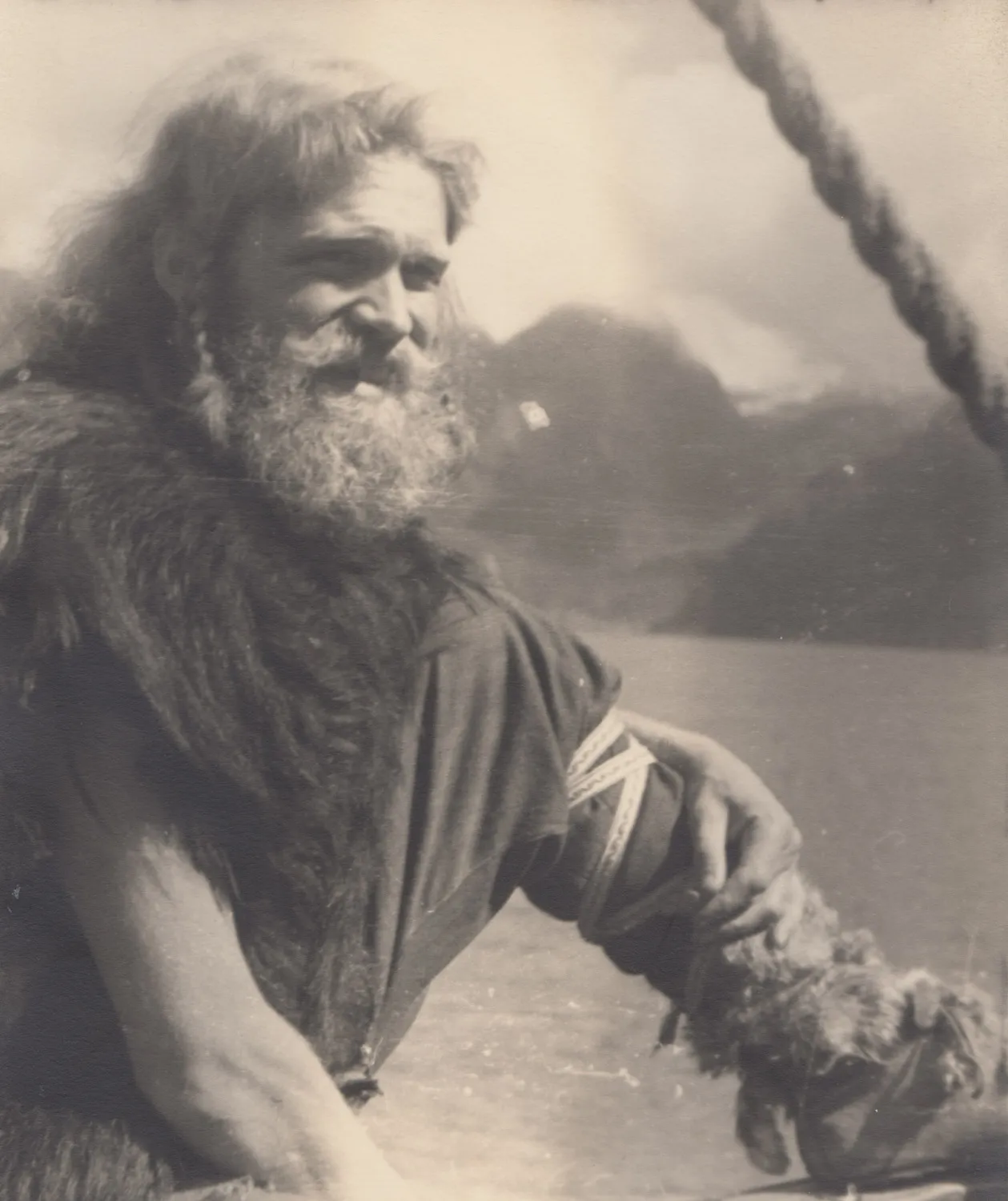
As an extra in the Hollywood production The Vikings, 1957, on location in Norway
Photo: ukendt / unknown
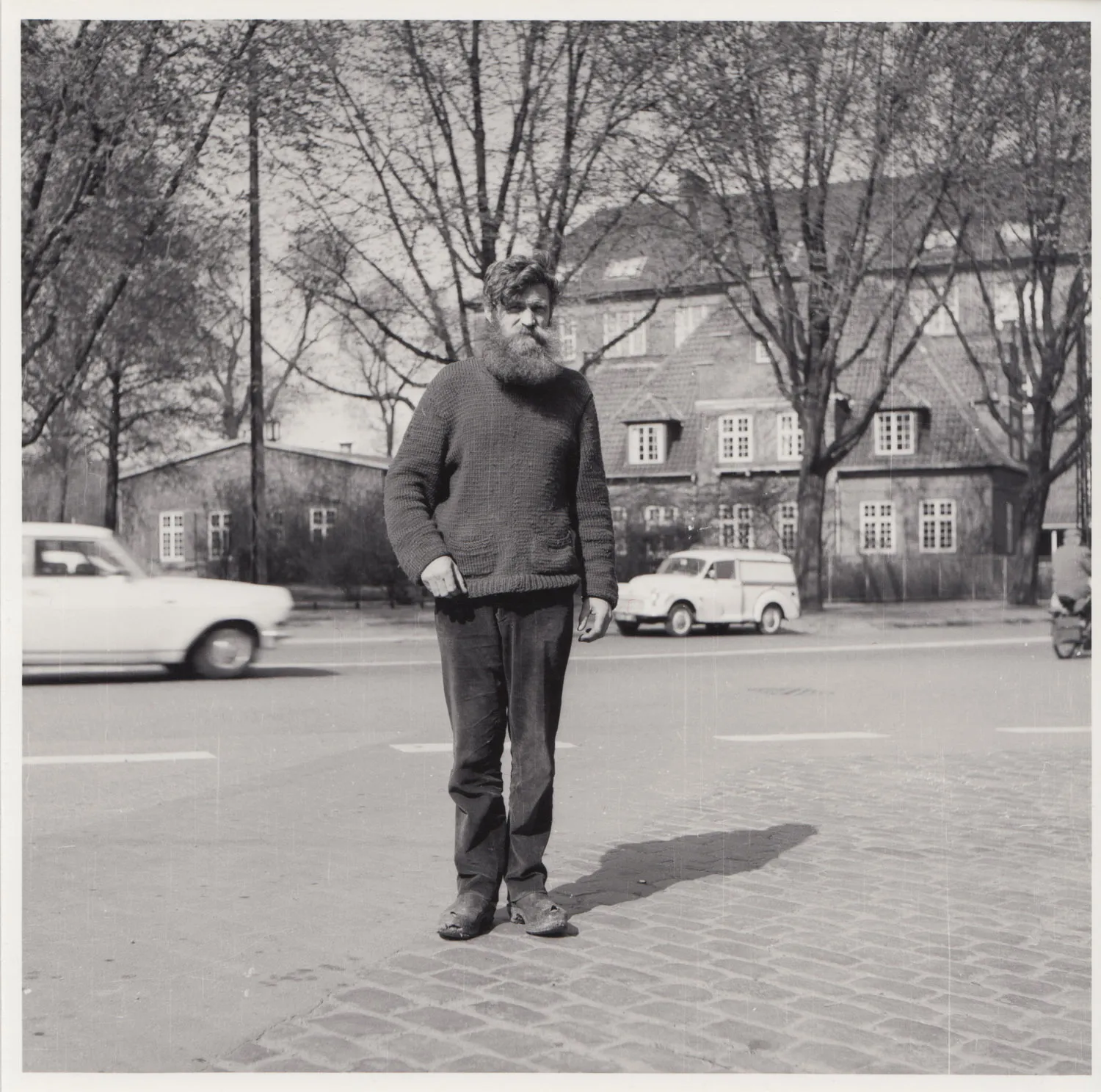
In Copenhagen, ca. 1960
Photo: ukendt / unknown
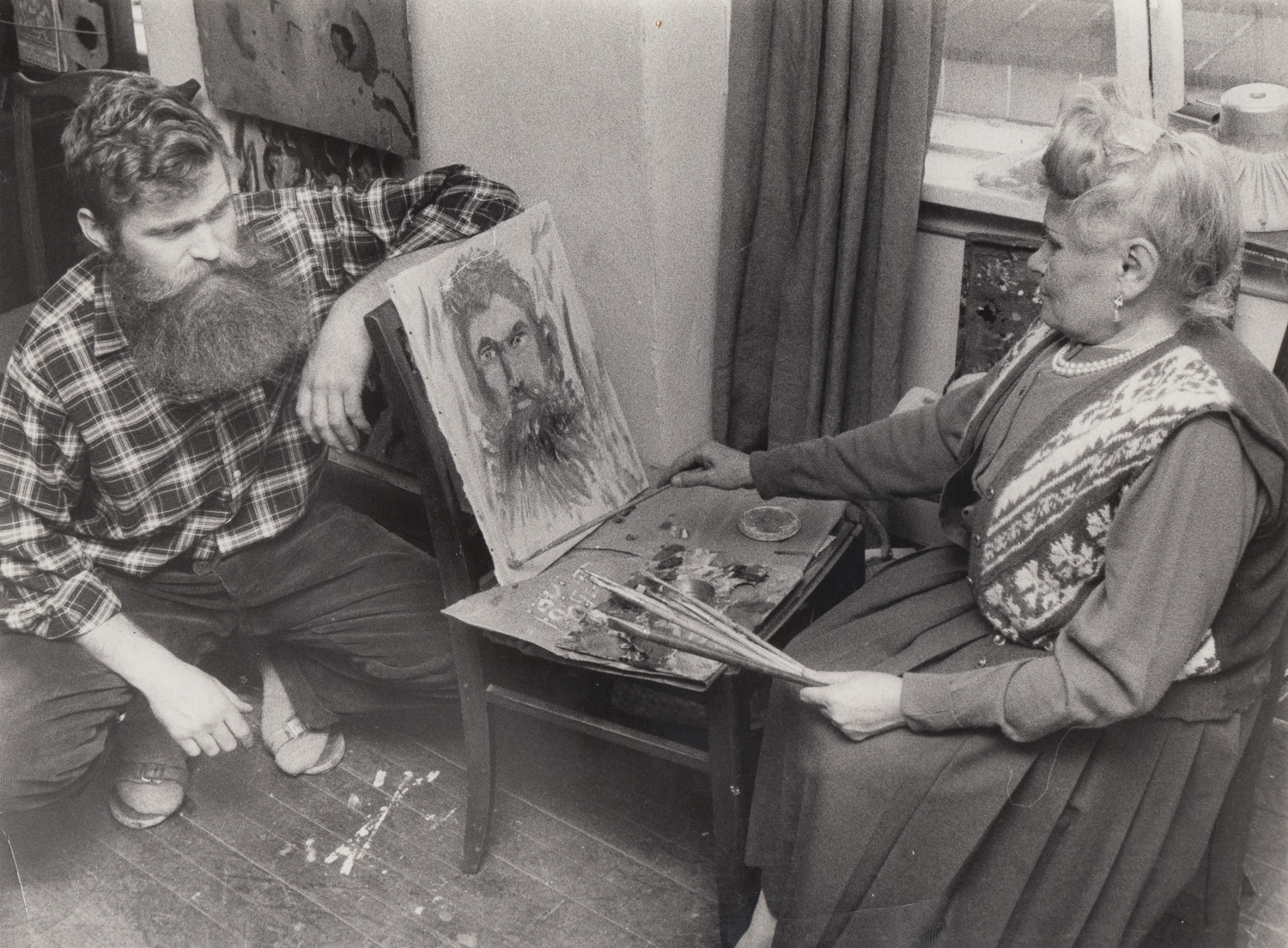
Poul Gernes and Karen Vestergaard in Ravnsborggade, October 1961.
Photo: ukendt / unknown
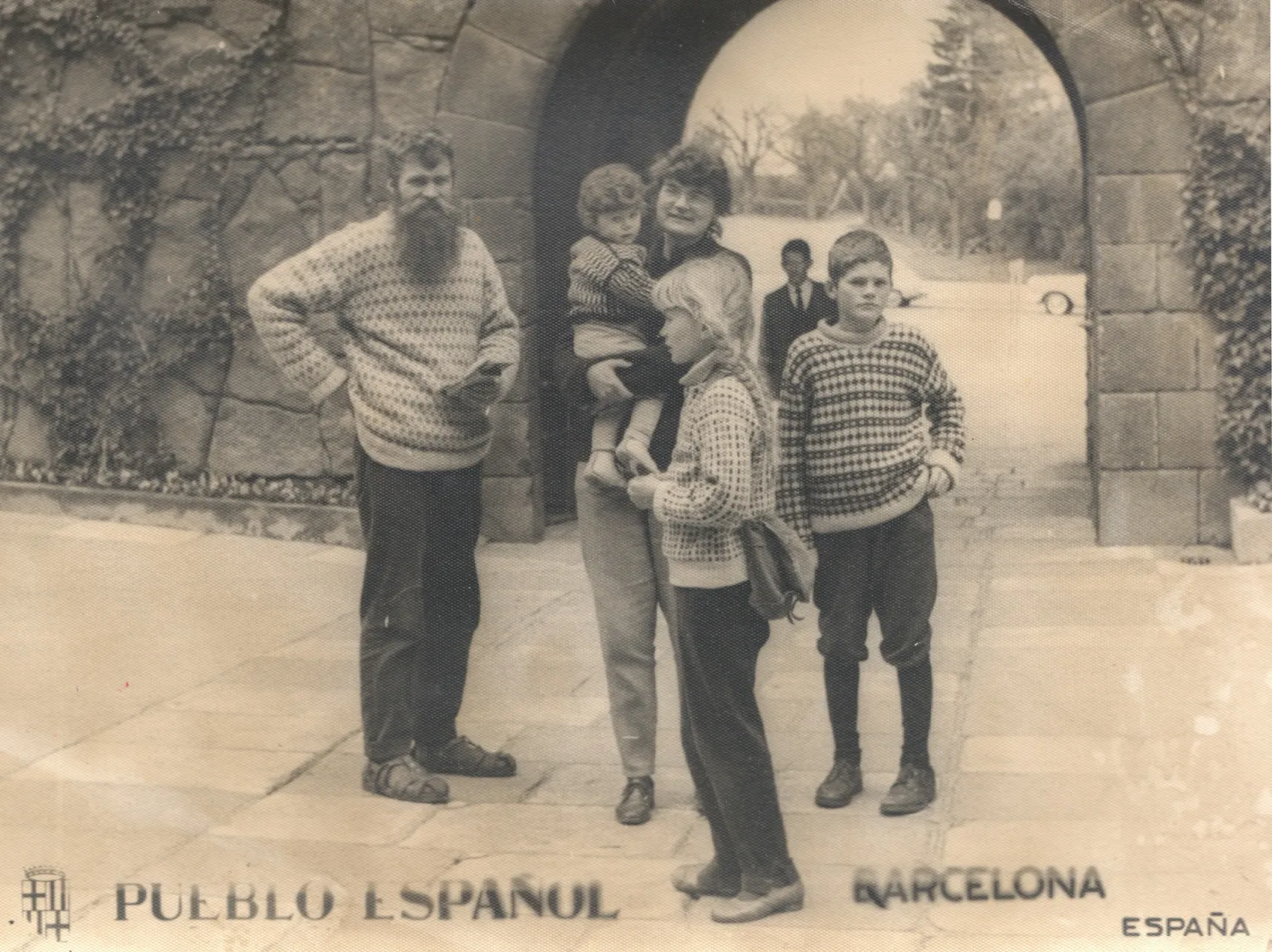
The family in Barcelona, February 1964
Photo: ukendt / unknown
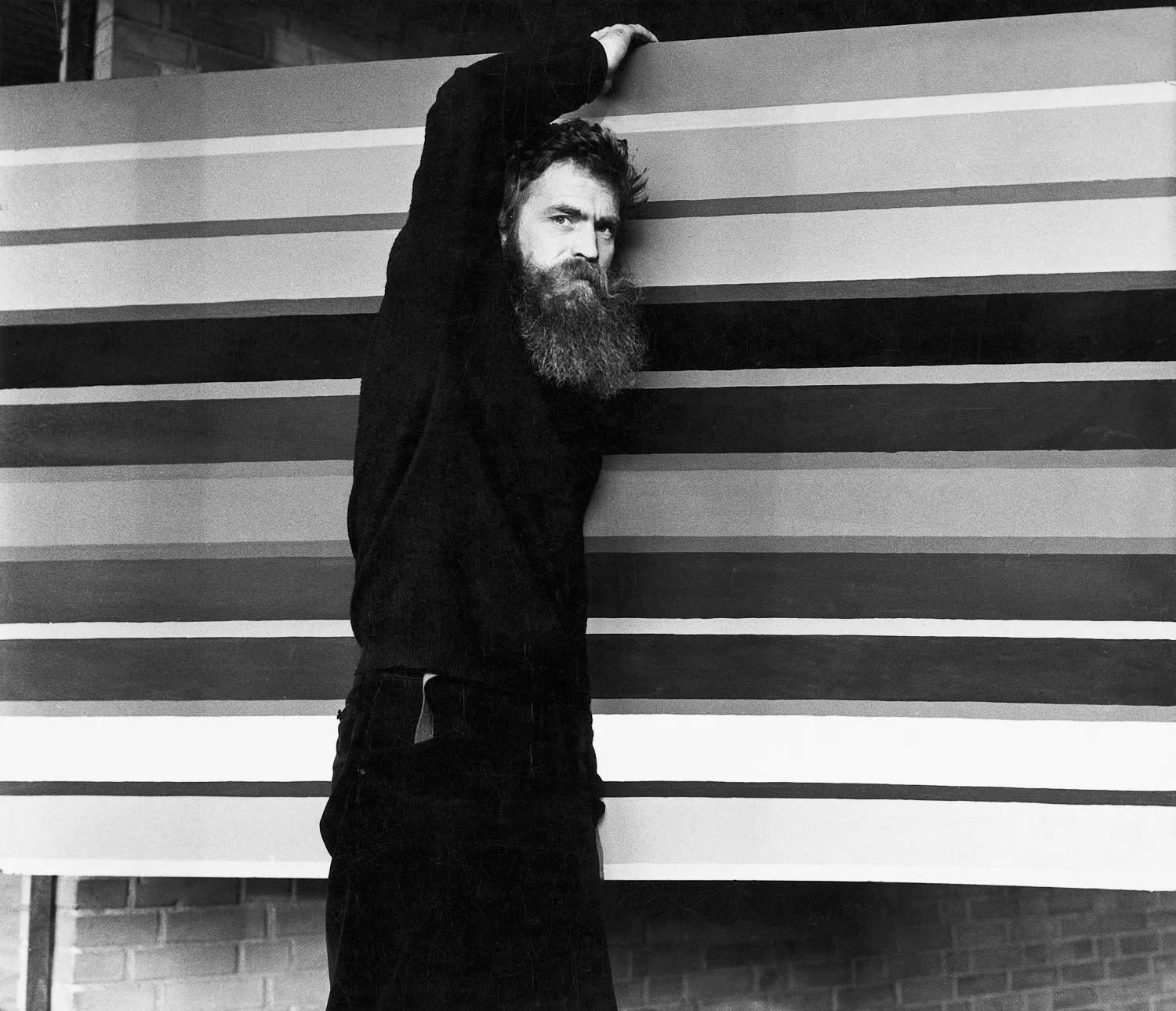
Poul Gernes, 1965
Photo: ukendt / unknown
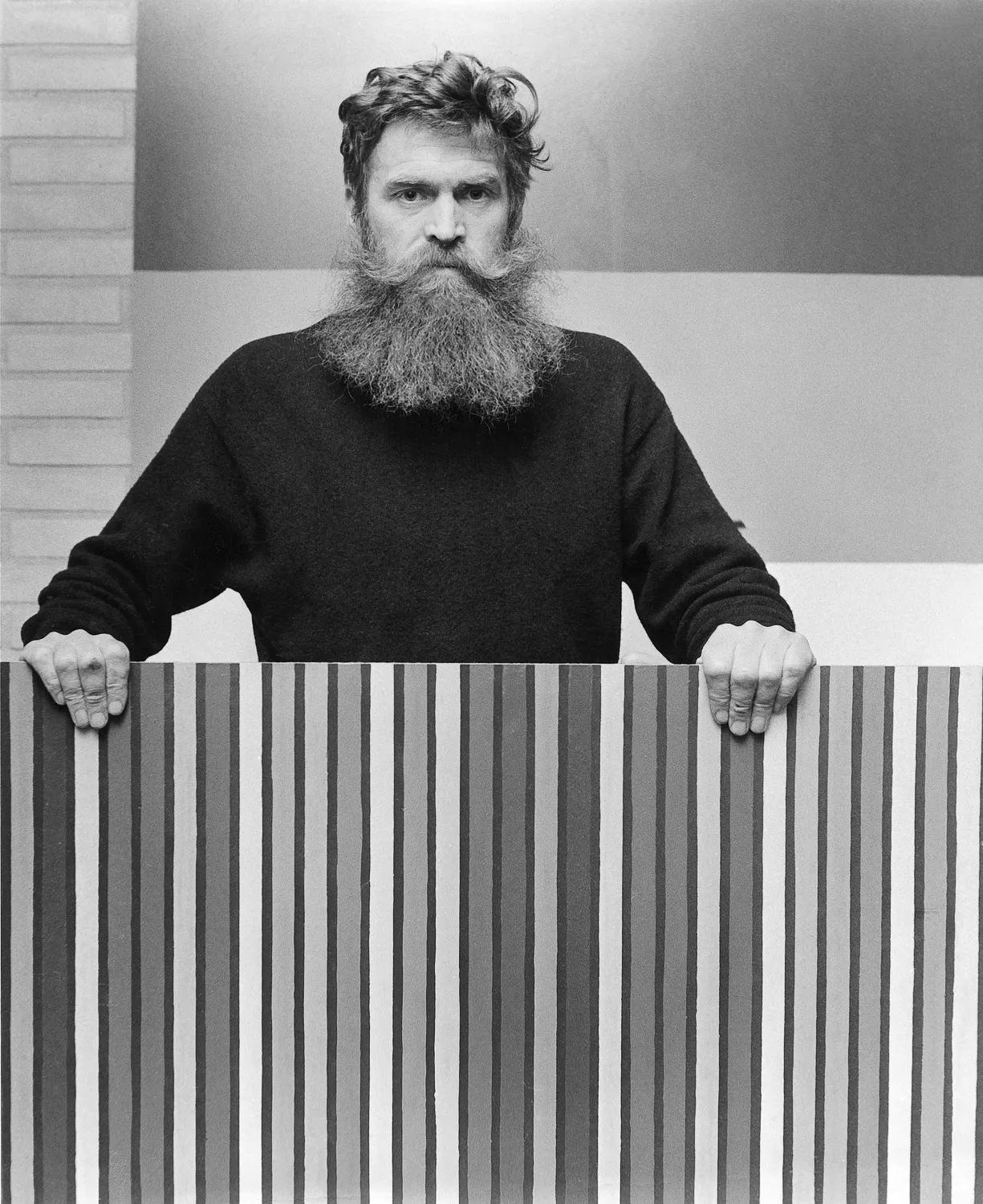
Poul Gernes, 1965
Photo: ukendt / unknown
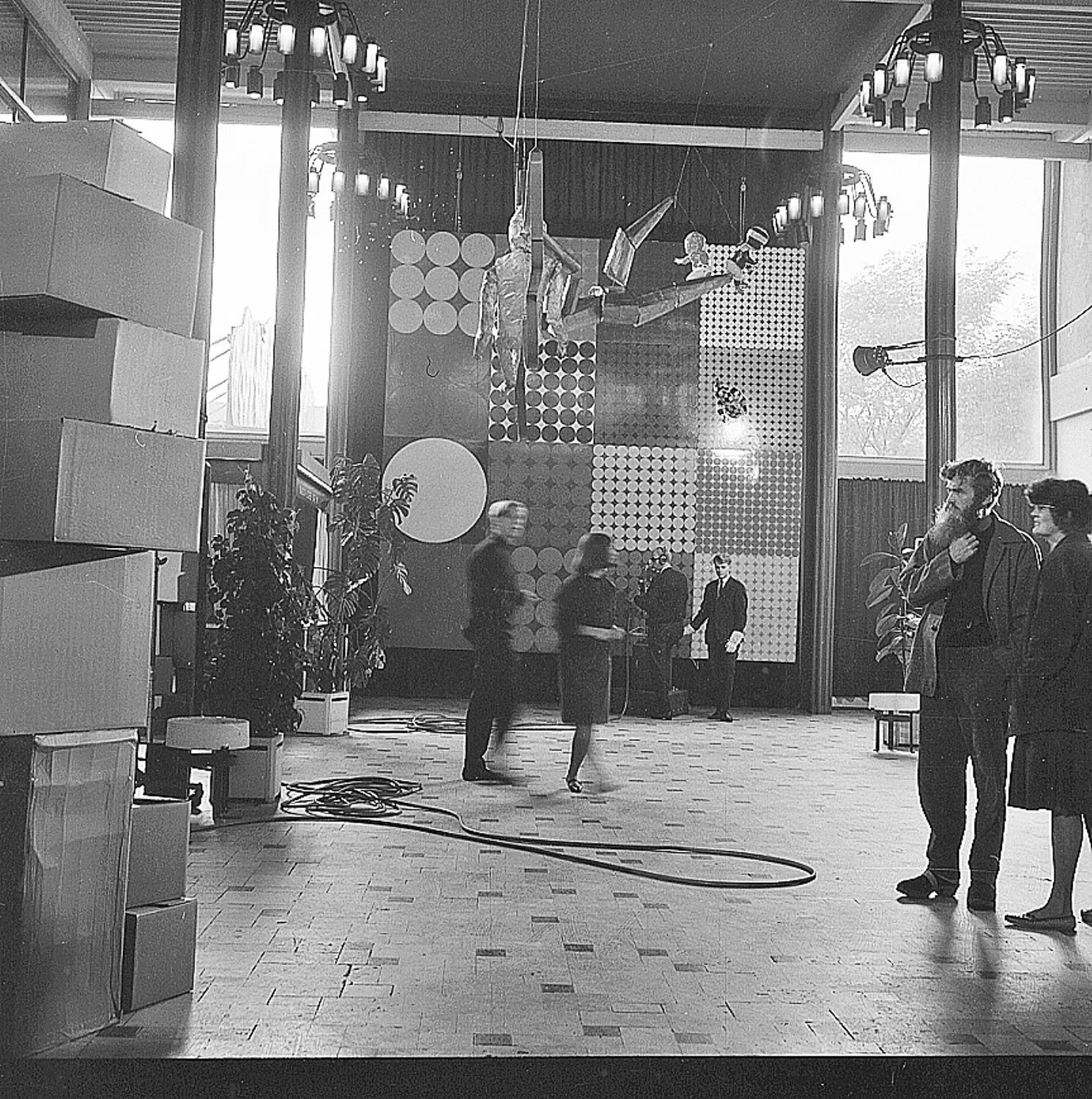
Poul and Aase in Poul's solo exhibition in the foyer of the Tivoli concert hall in 1965
Photo: Troels Andersen
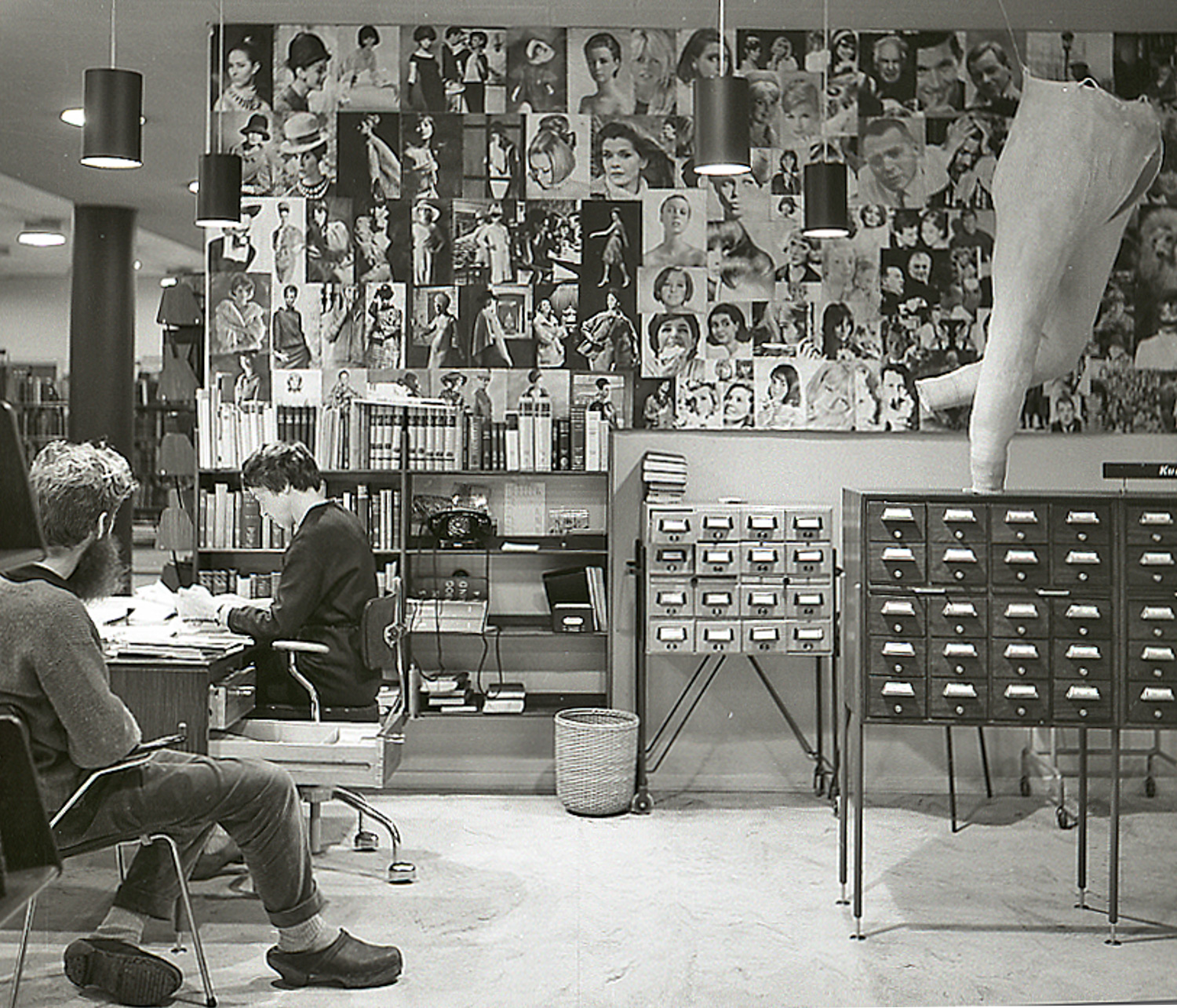
Poul Gernes and Jane Pedersen in his Human Exhibition at the Main Library in Copenhagen 1965. Deemed too controversial, the exhibition was never opened to the public.
Photo: Troels Andersen
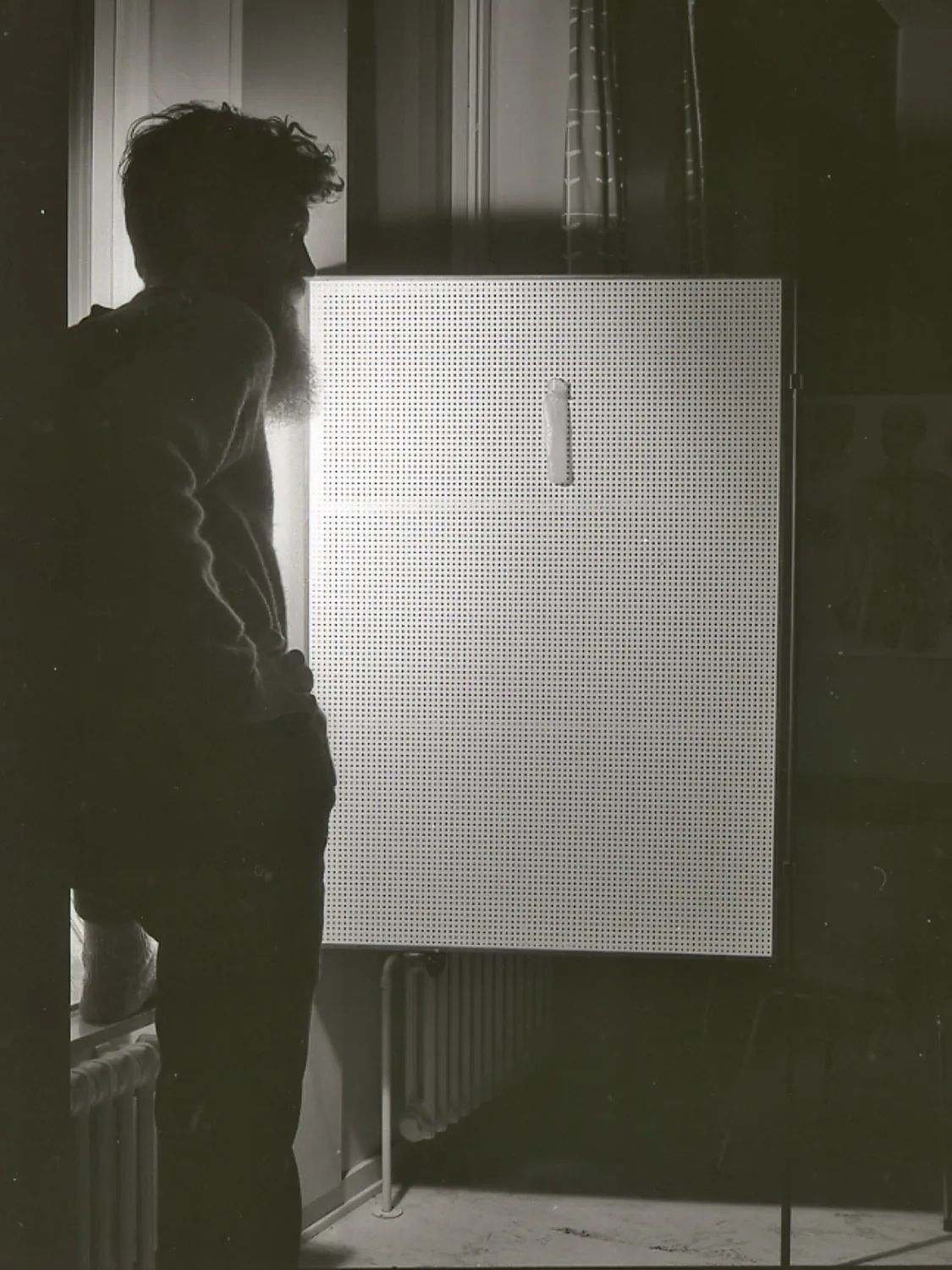
Poul in his Human Exhibition at the Main Library in Copenhagen 1965. Deemed too controversial the exhibition never opened to the public
Photo: Troels Andersen
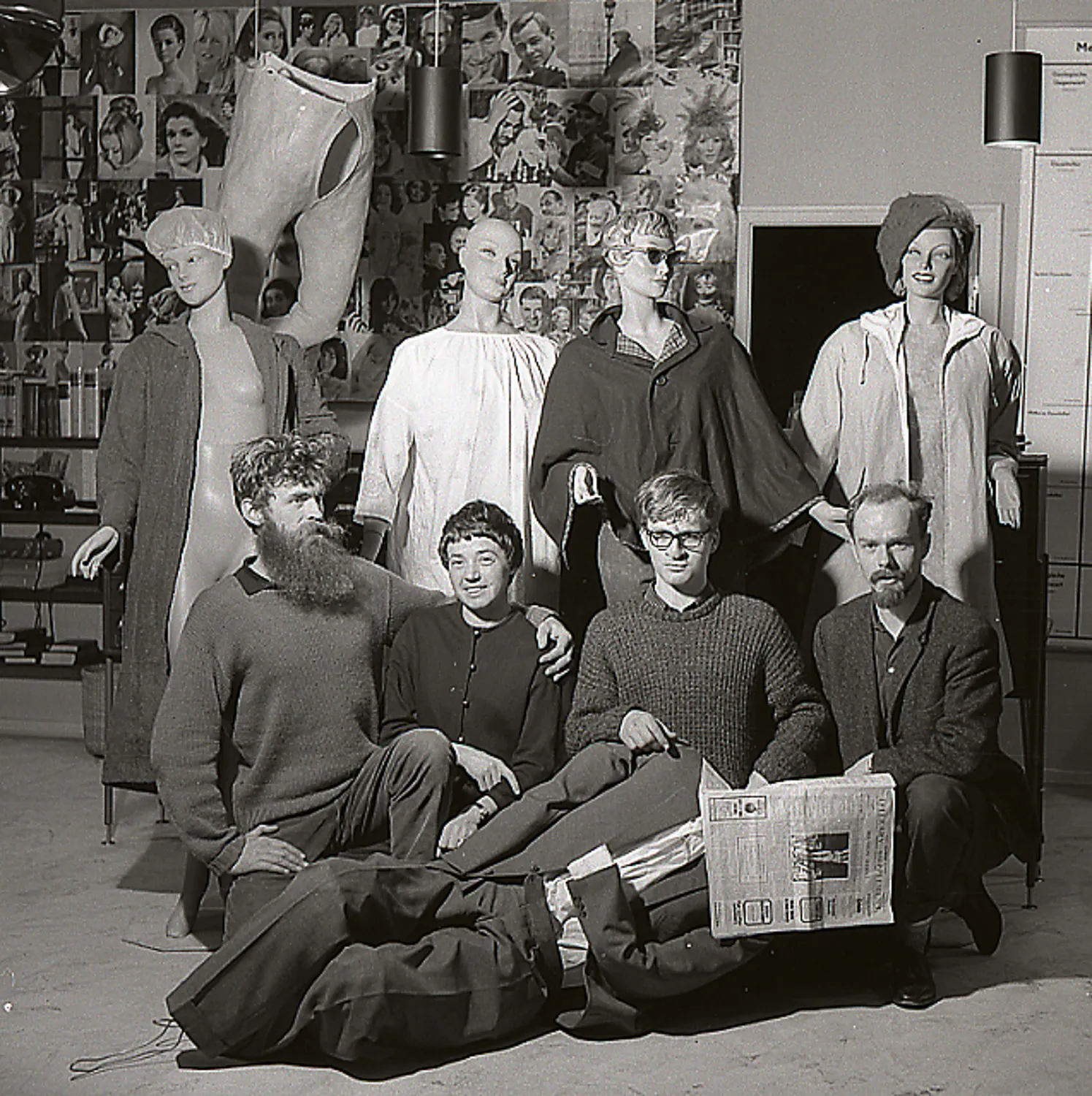
From left: Poul Gernes, Jane Pedersen, a very young Bjørn Nørgaard, and Troels Andersen in the Human Exhibition at the Main Library in Copenhagen 1965. Deemed too controversial the exhibition never opened to the public
Photo: Troels Andersen
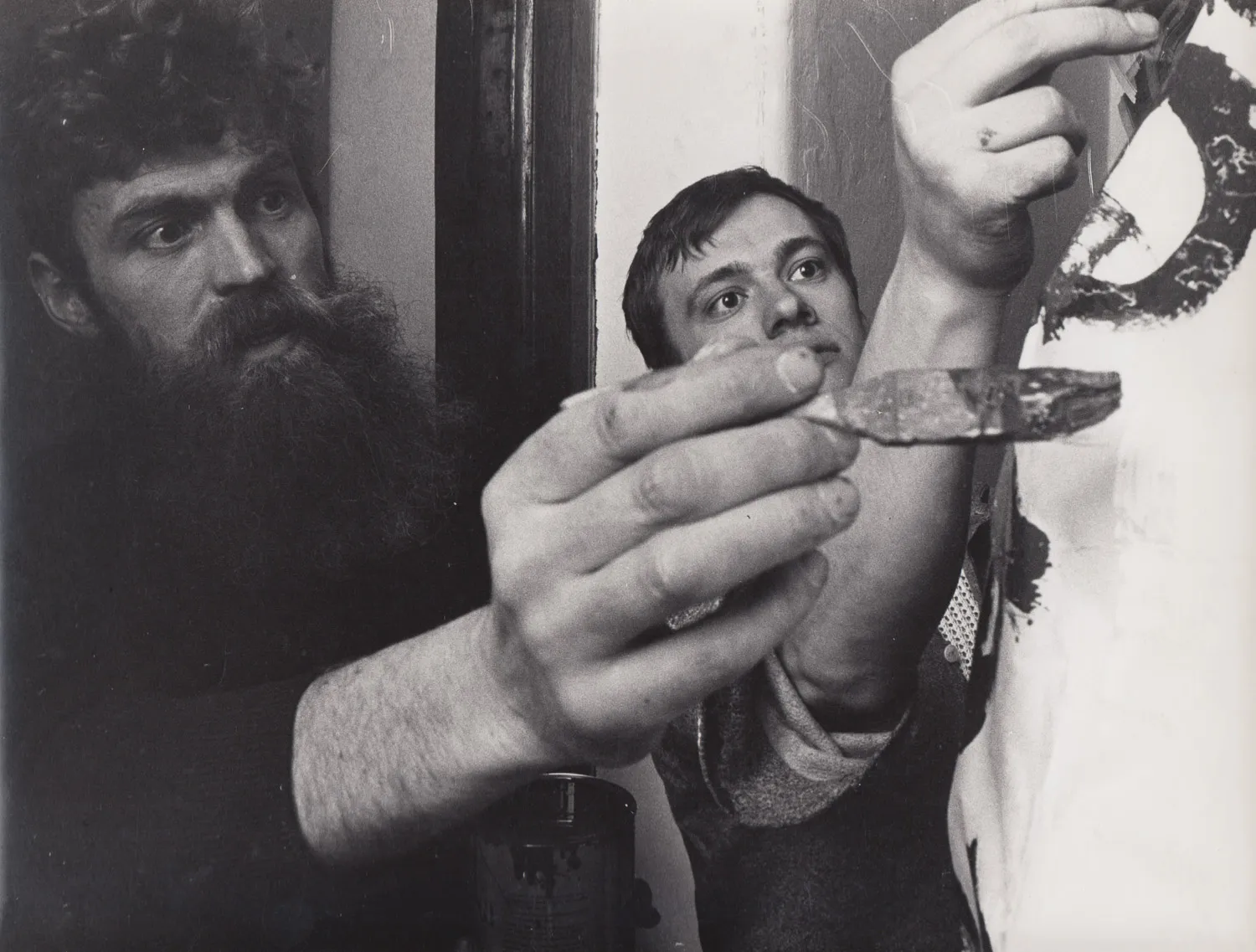
During the Red-Green-happening at Nikolaj in April 1965
Photo: ukendt / unknown
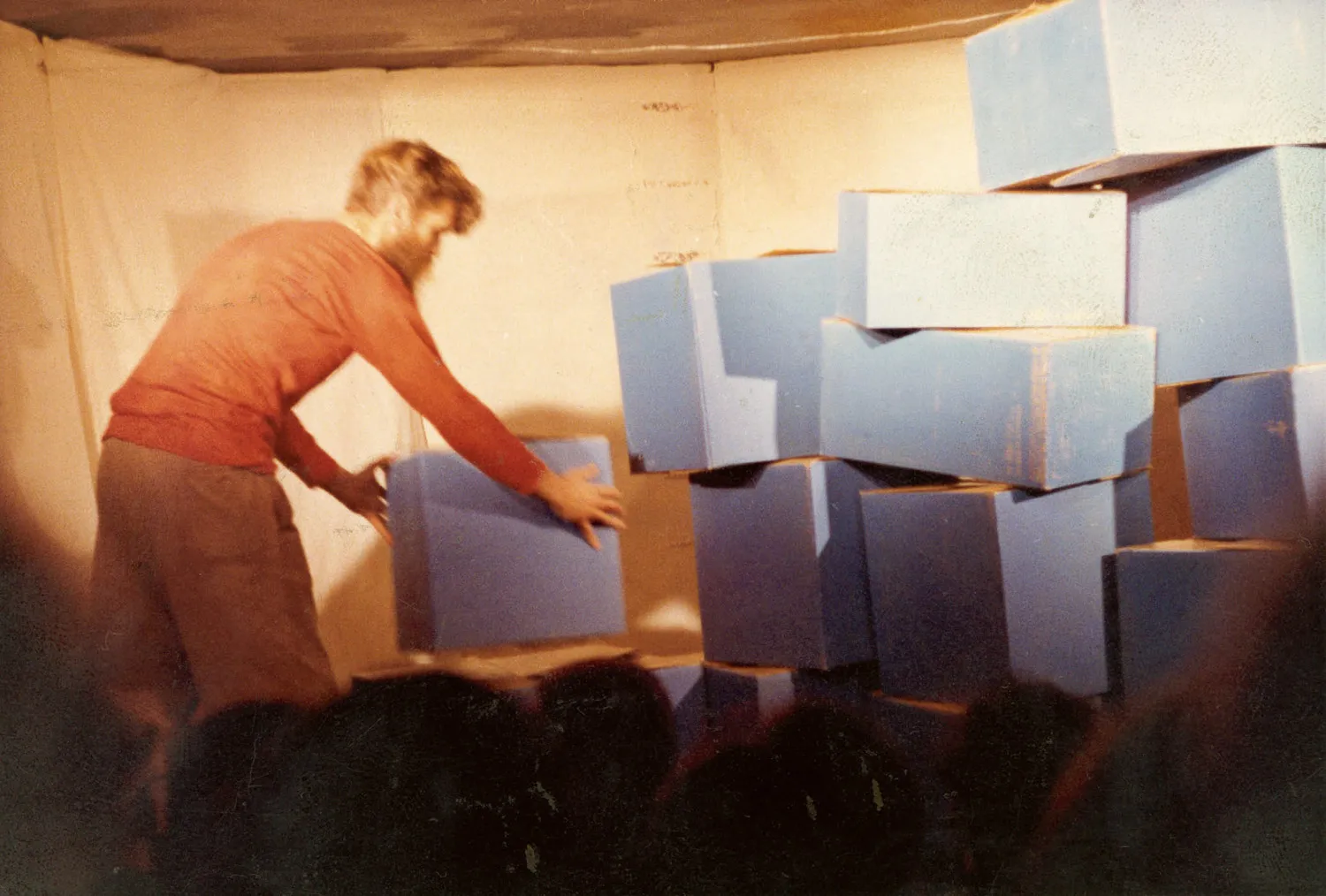
Poul Gernes building a wall of blue boxes at a happening at Fiolteatret in December 1965
Photo: ukendt / unknown
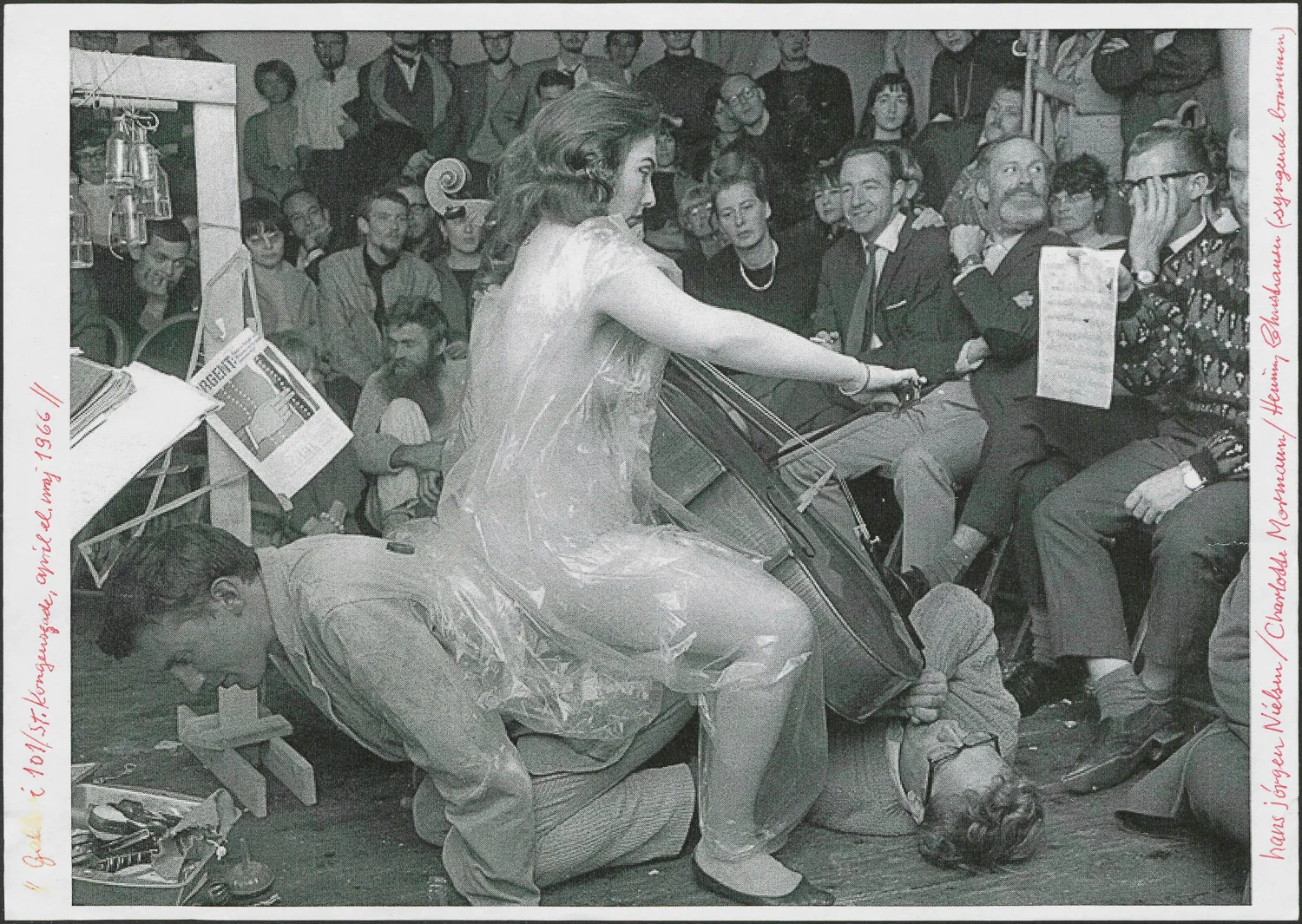
Poul Gernes can be seen behind Charlotte Moorman, performing Nam June Paik's Variation on a theme by Saint-Saëns, sitting on Hans-Jørgen Nielsen with Henning Christiansen supporting the cello, and a member of the audience holding the score. September 30th, 1966
Photo: ukendt / unknown
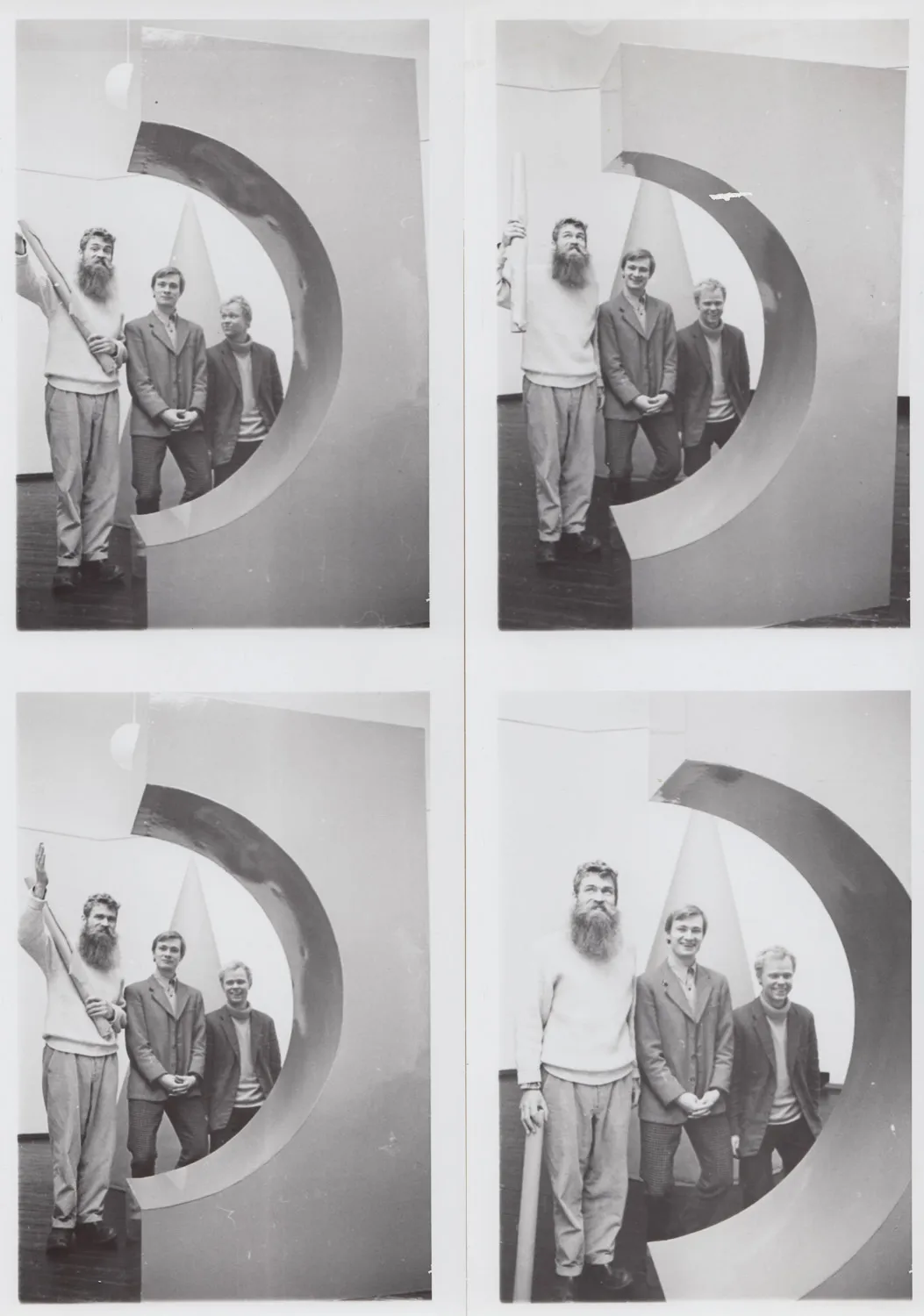
Poul Gernes, Per Kirkeby, Peter Louis-Jensen. Kunstnernes Efterårsudstilling, 1966
Photo: ukendt / unknown
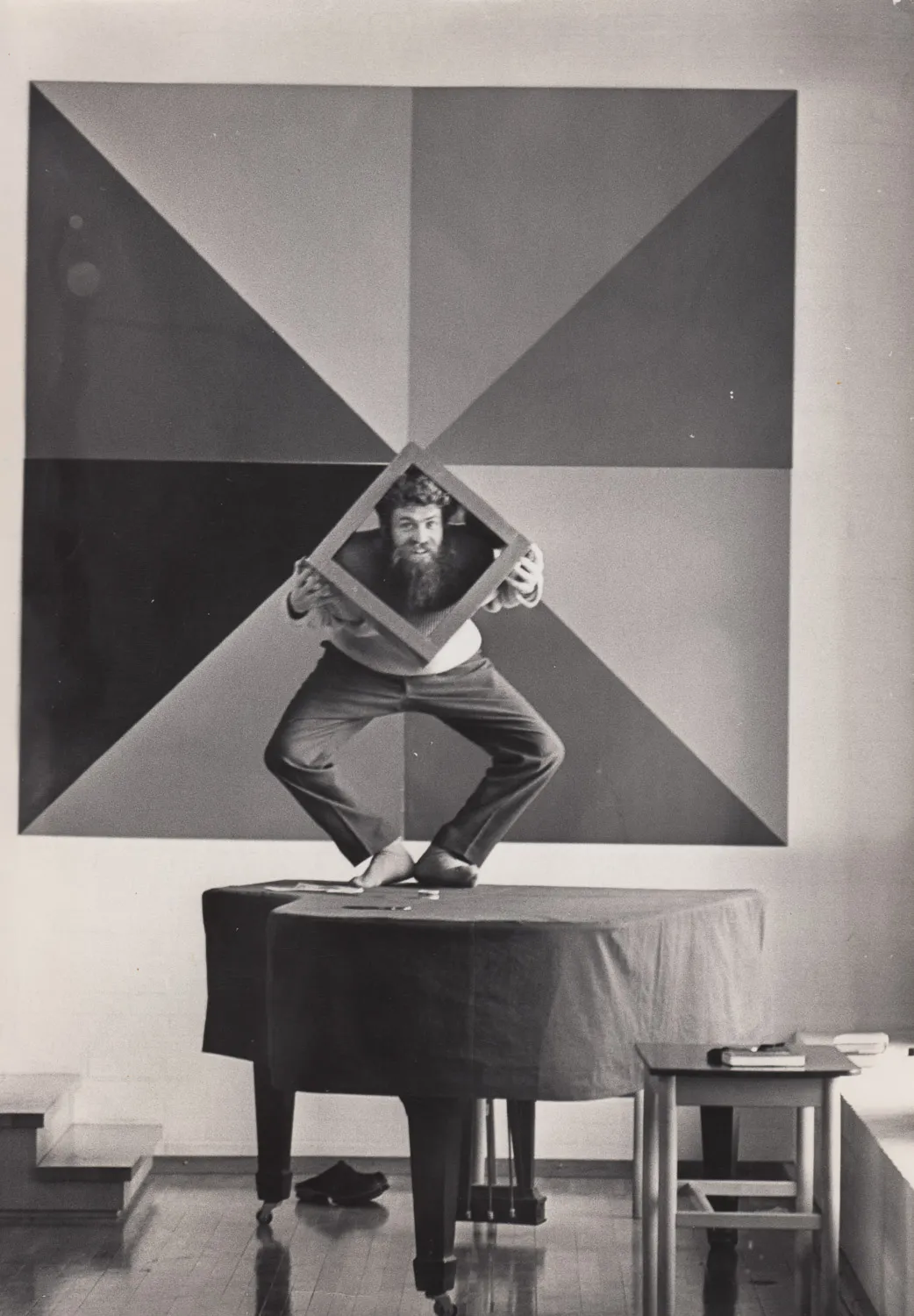
At Toftevang School in Birkerød, 1966
Photo: Asger Sessingø

Konrad, Poul and Aase at an exhibition in Hjälmsjö, Sweden, 1967
Photo: Jesper Gernes
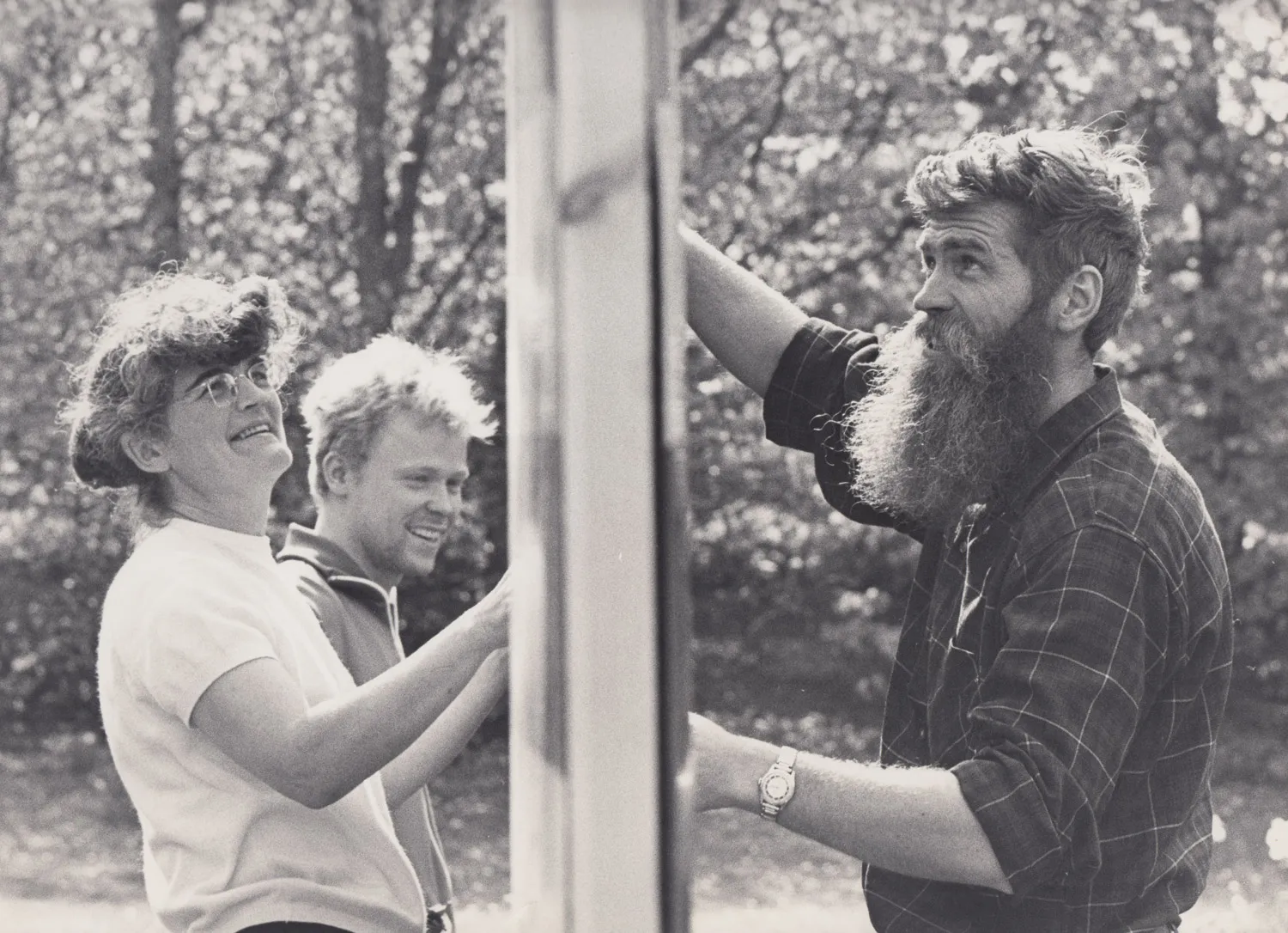
Installing works at Louisiana in 1967 together with Aase and Peter Louis-Jensen
Photo: Asger Sessingø
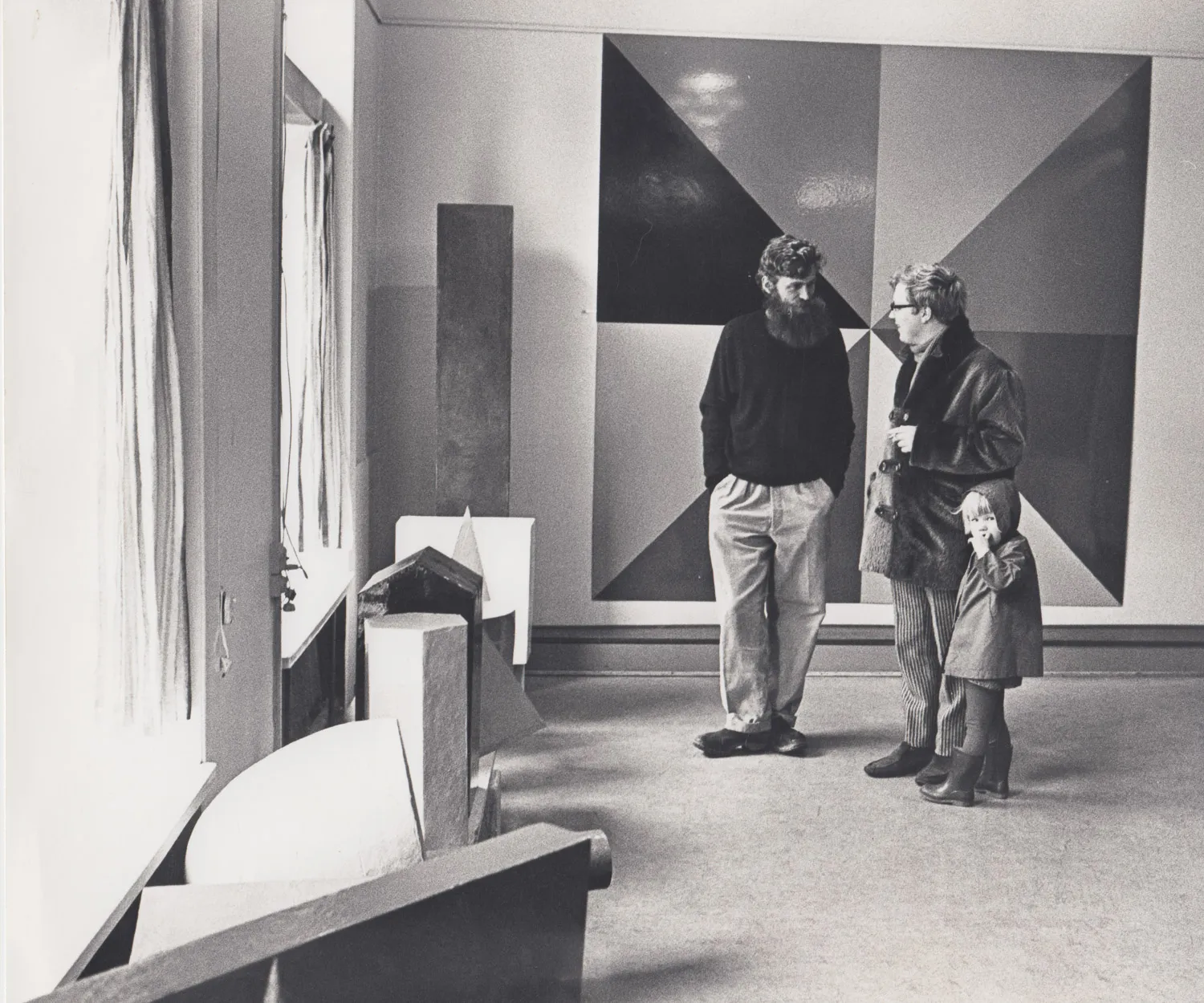
At Galleri Marya on Bredgade with Erik Thygesen and Lise Munk Thygesen, 1967
Photo: ukendt / unknown
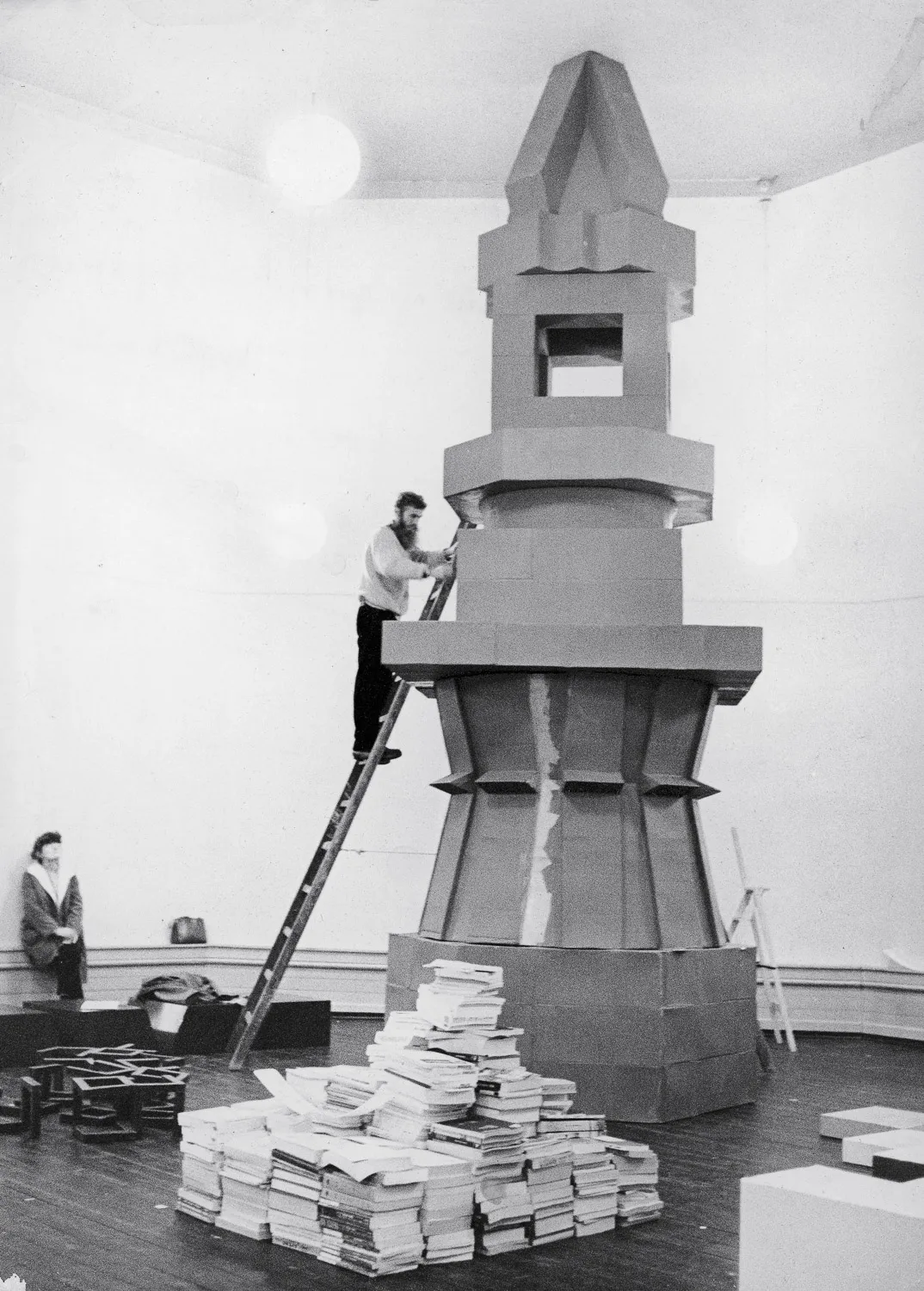
Aase keeps and eye on Poul installing the Tower at Kunstnernes Efterårsudstilling in 1967
Photo: Asger Sessingø
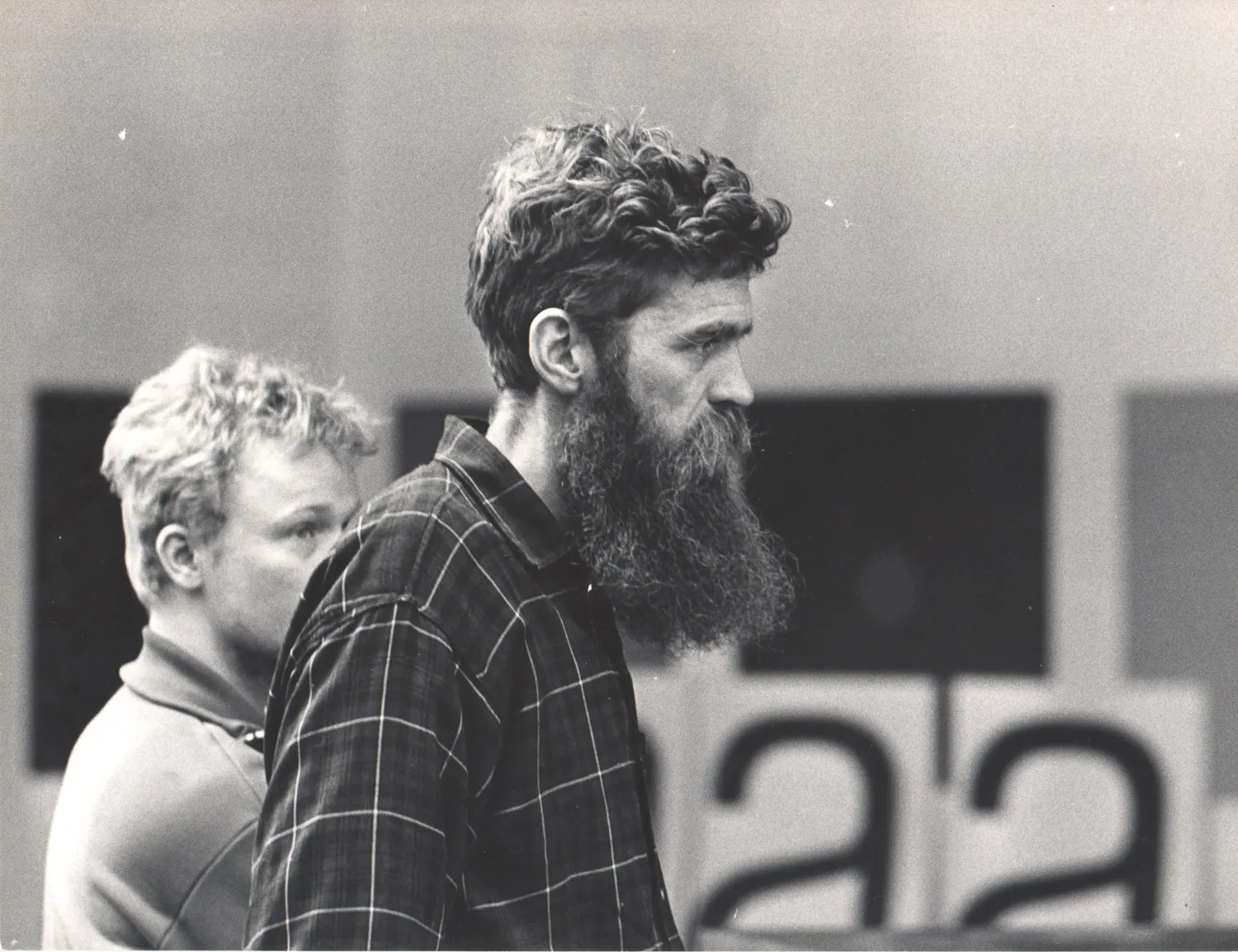
Peter Louis-Jensen and Poul Gernes at Louisiana 1967
Photo: Asger Sessingø
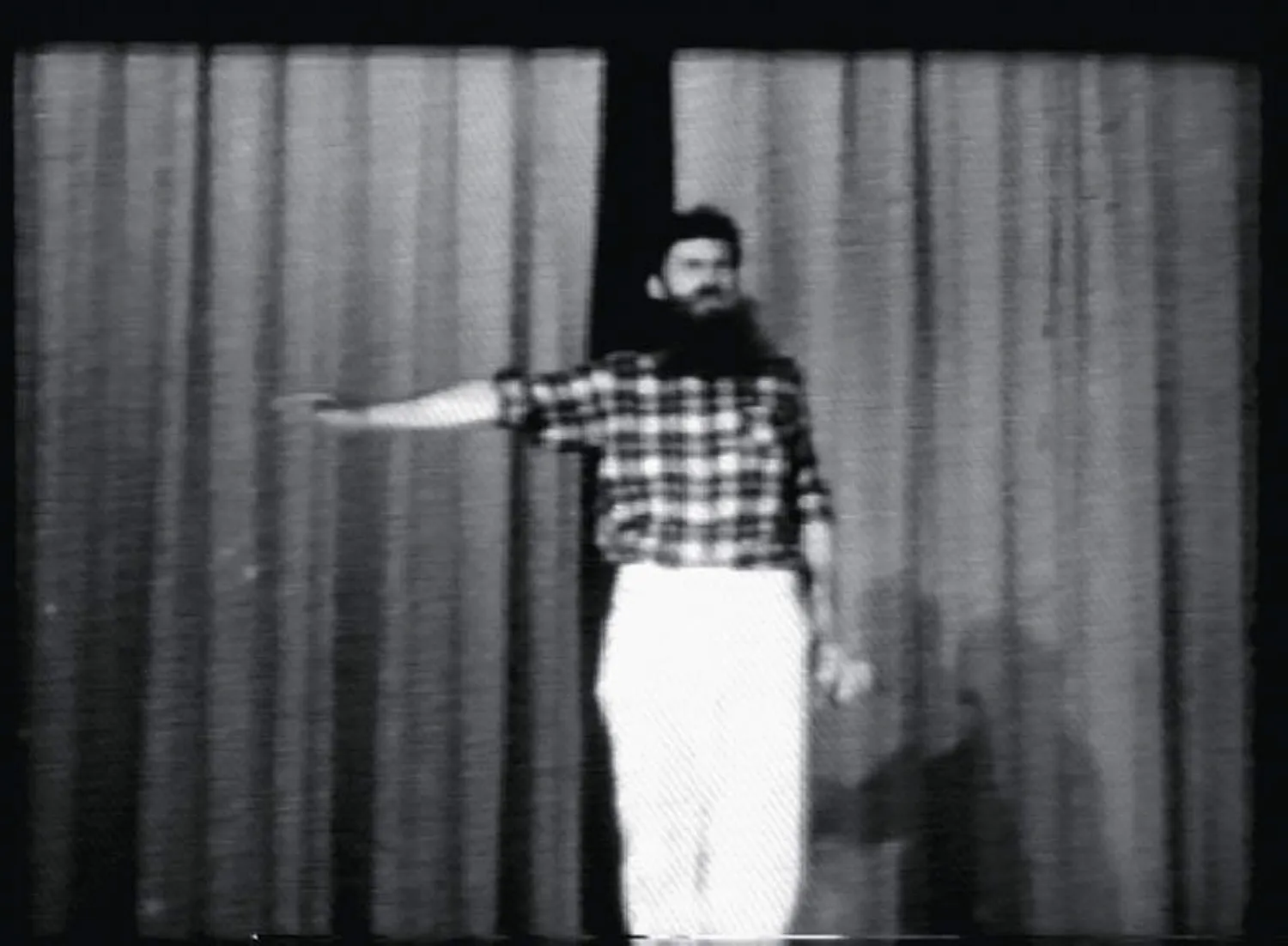
Circle performance at Toftevang School in 1967
Photo: Ole Schelde
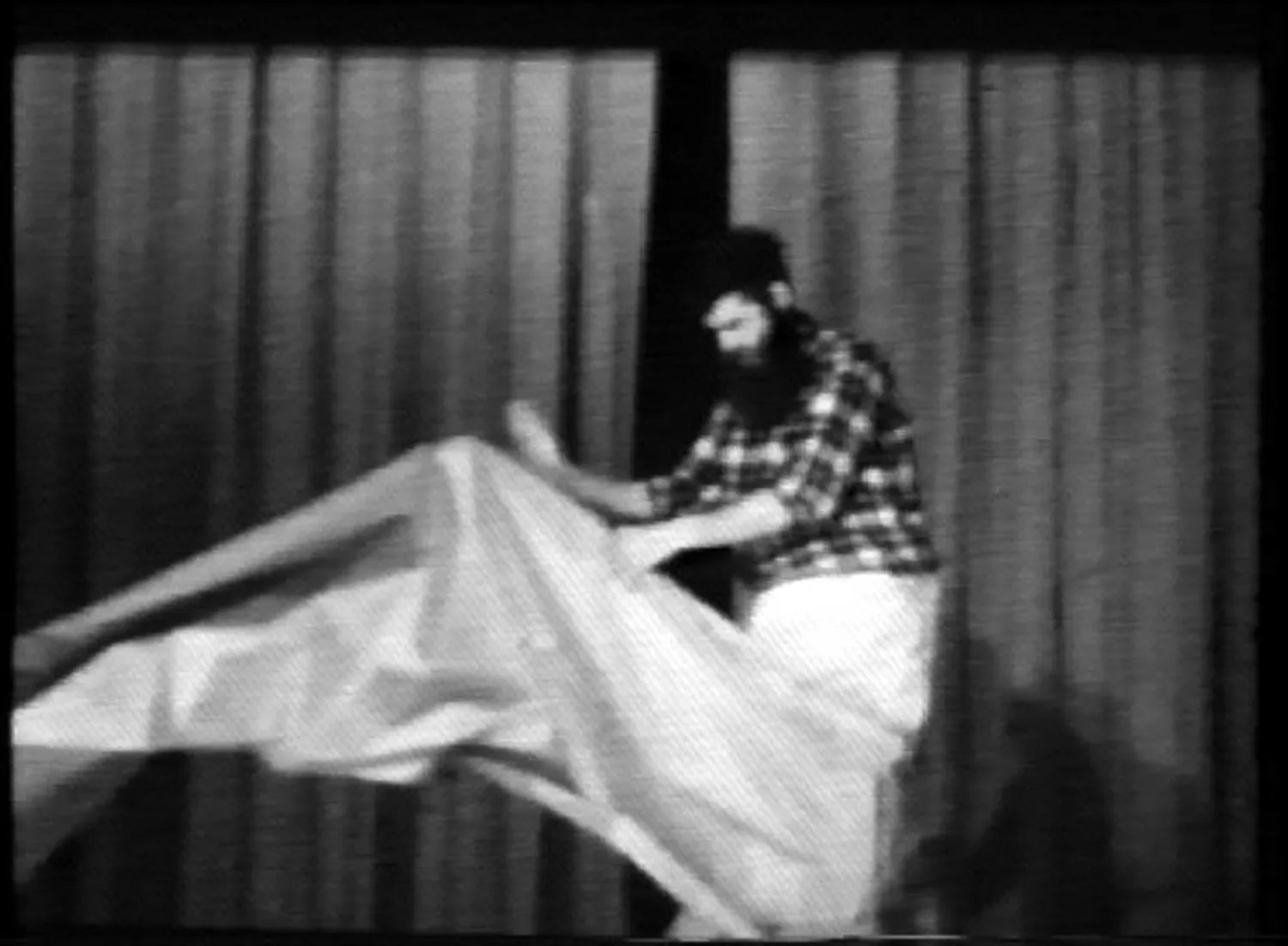
Paper performance at Toftevang School in 1967
Photo: Ole Schelde
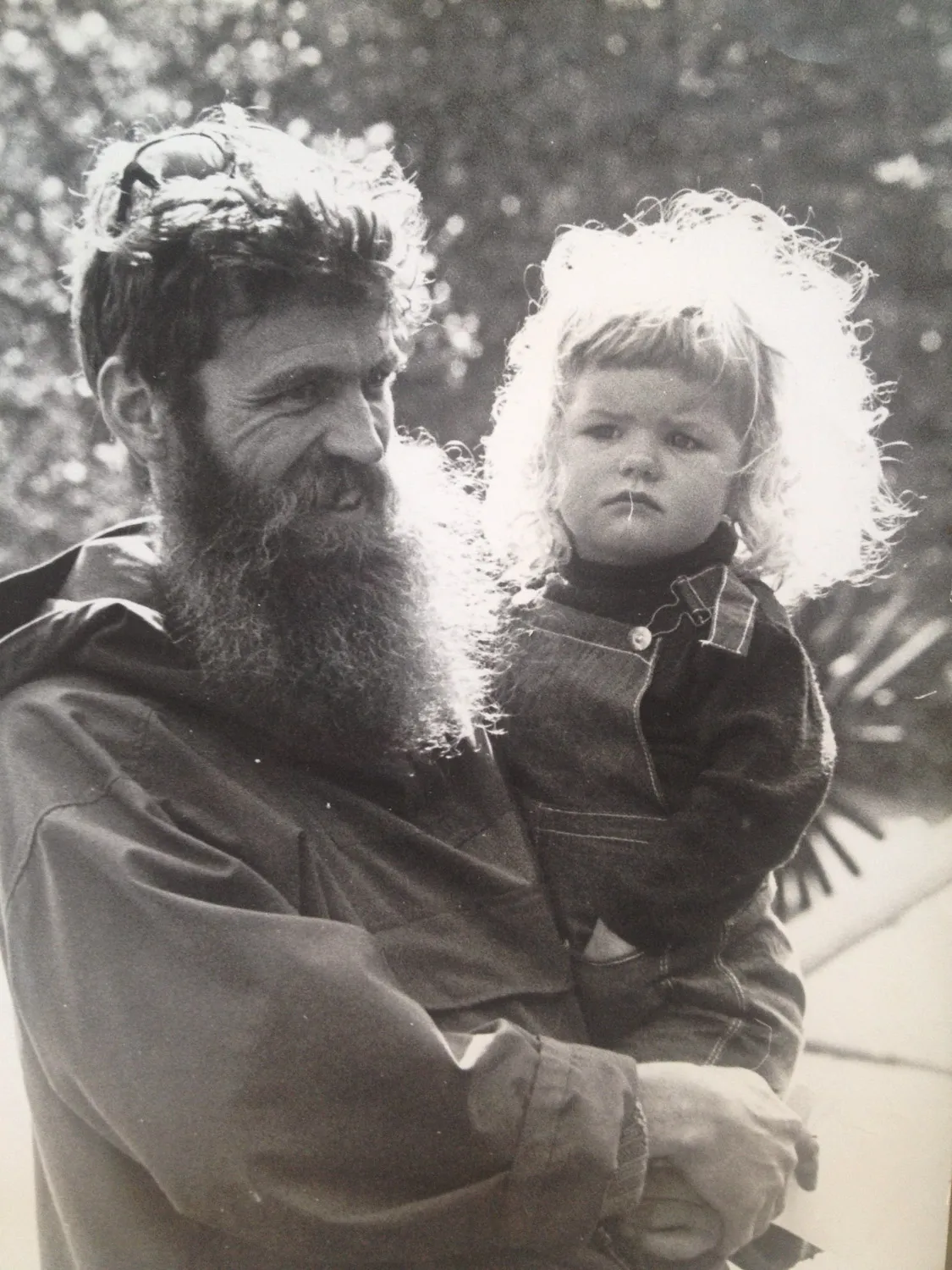
With the daughter Ulrikka in 1968
Photo: Asger Sessingø
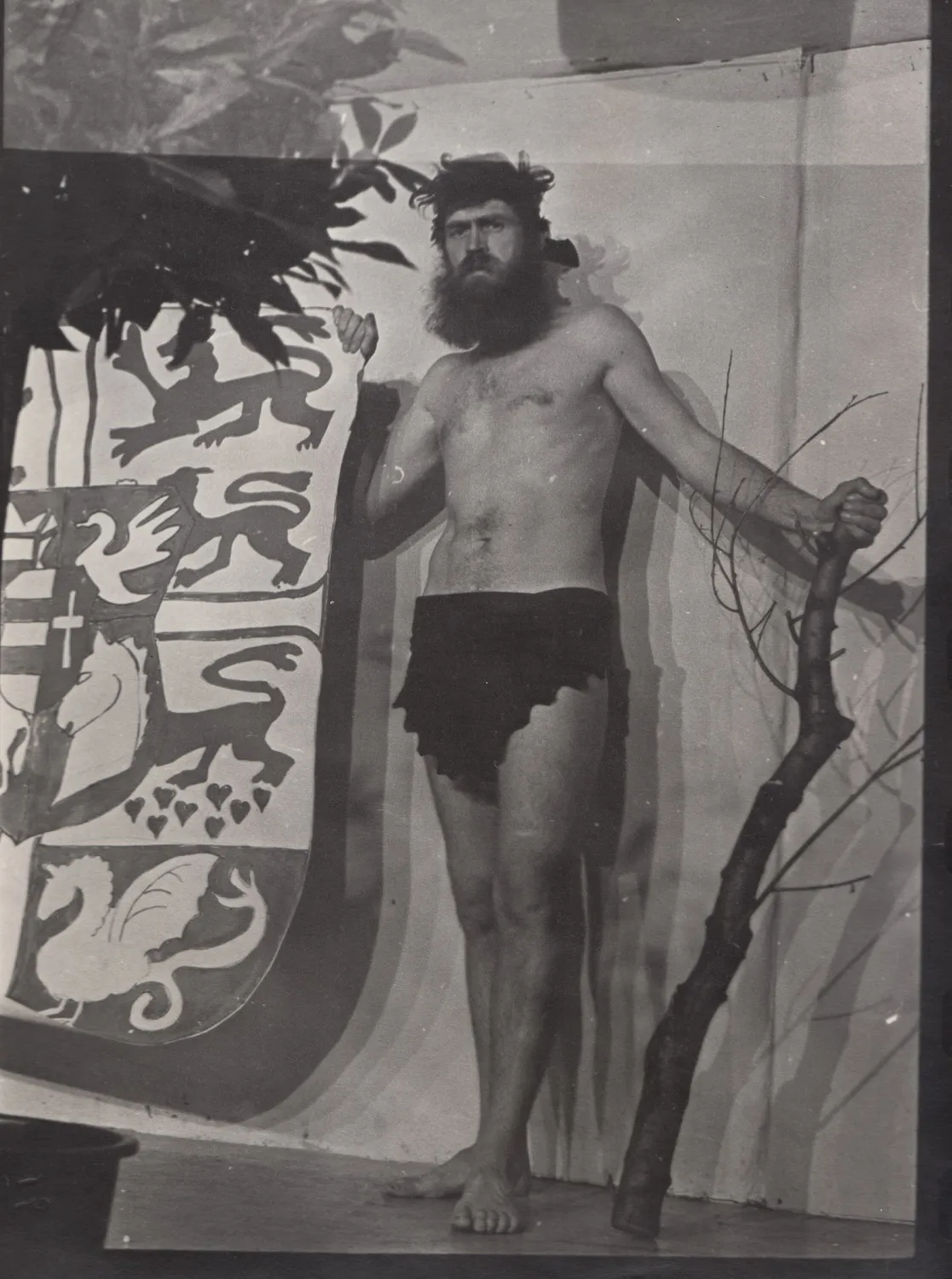
Poul Gernes as wild man in the Danish coat of arms at the happening 31 Pictures in 2 variations performed at Fiolteatret, 1967
Photo: ukendt / unknown
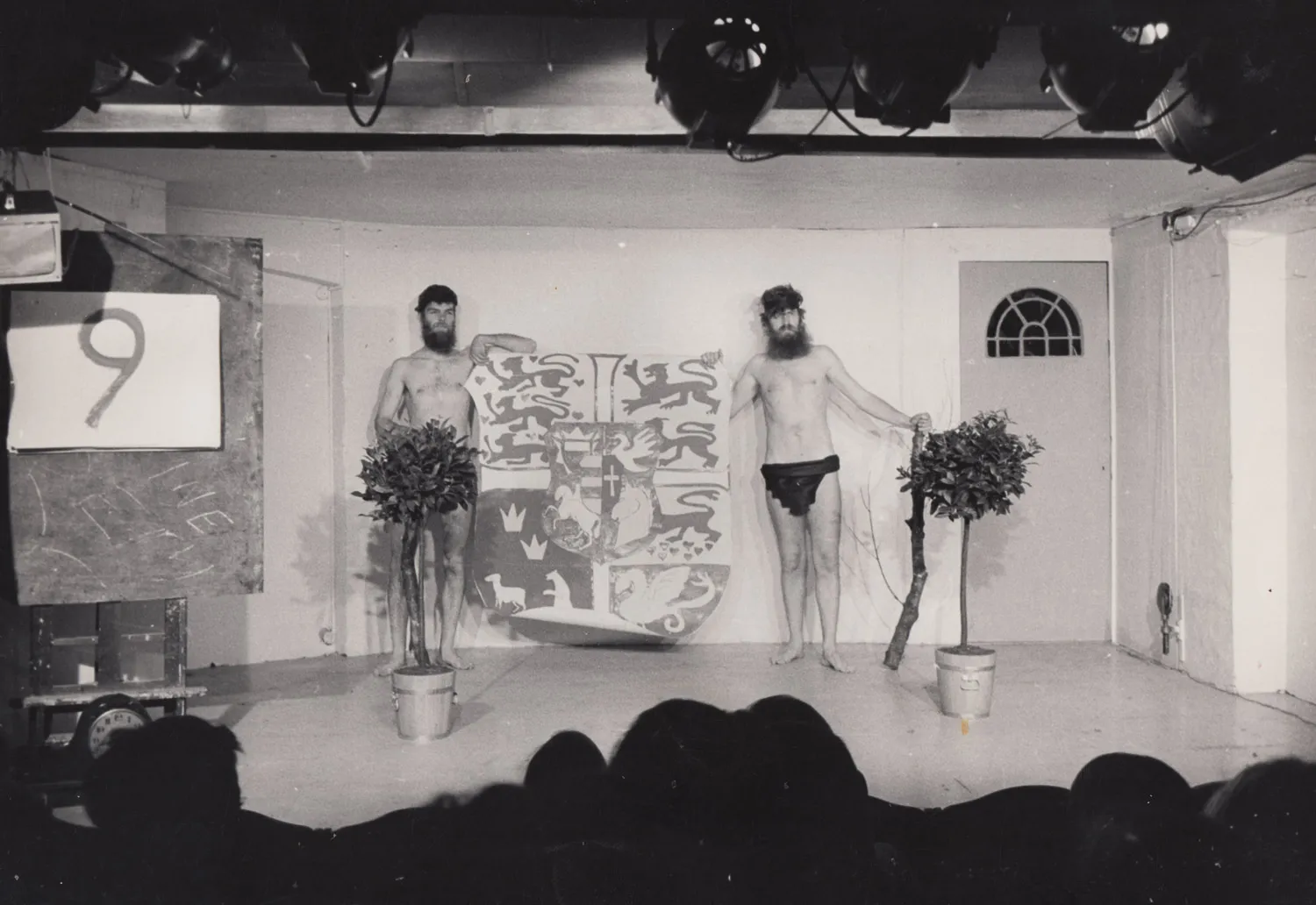
Finn Thybo Andersen and Poul Gernes as wild men in the Danish coat of arms at the happening 31 Pictures in 2 variations performed at Fiolteatret, 1967
Photo: ukendt / unknown
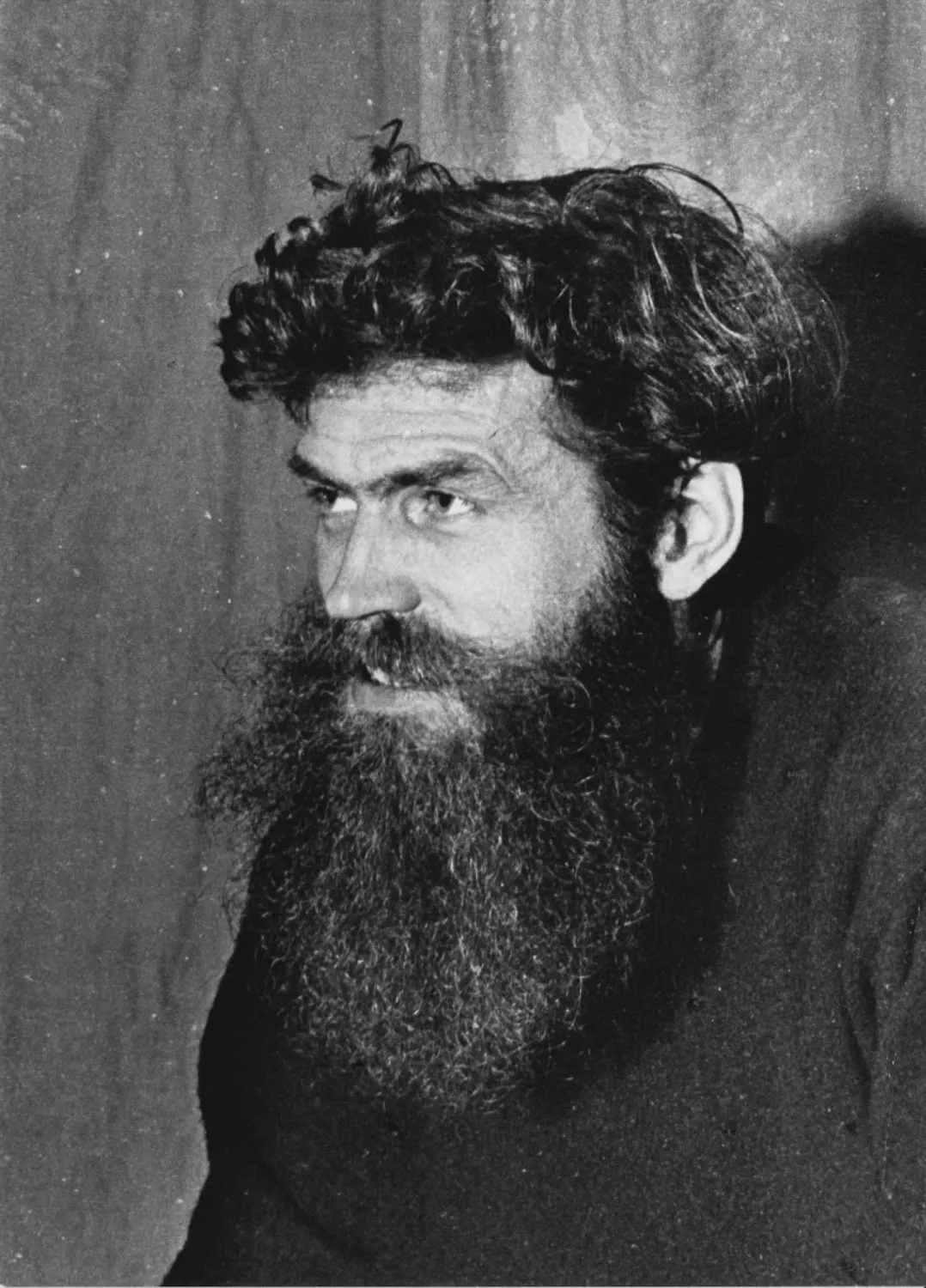
Poul Gernes, 1969
Photo: ukendt / unknown
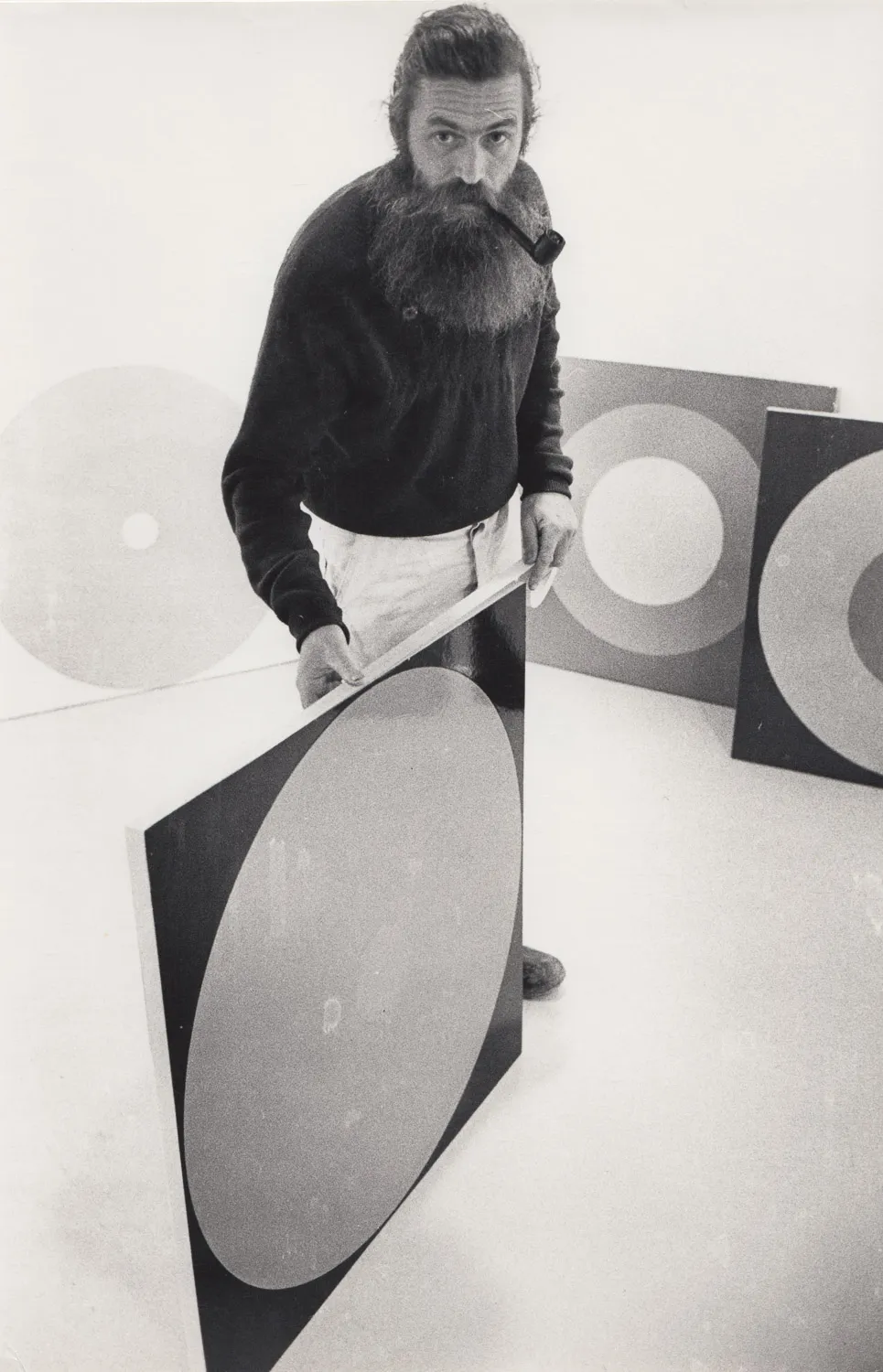
In the exhibition Poul Gernes at Jysk Kunstgalerie, 1970
Photo: Jens Glargaard
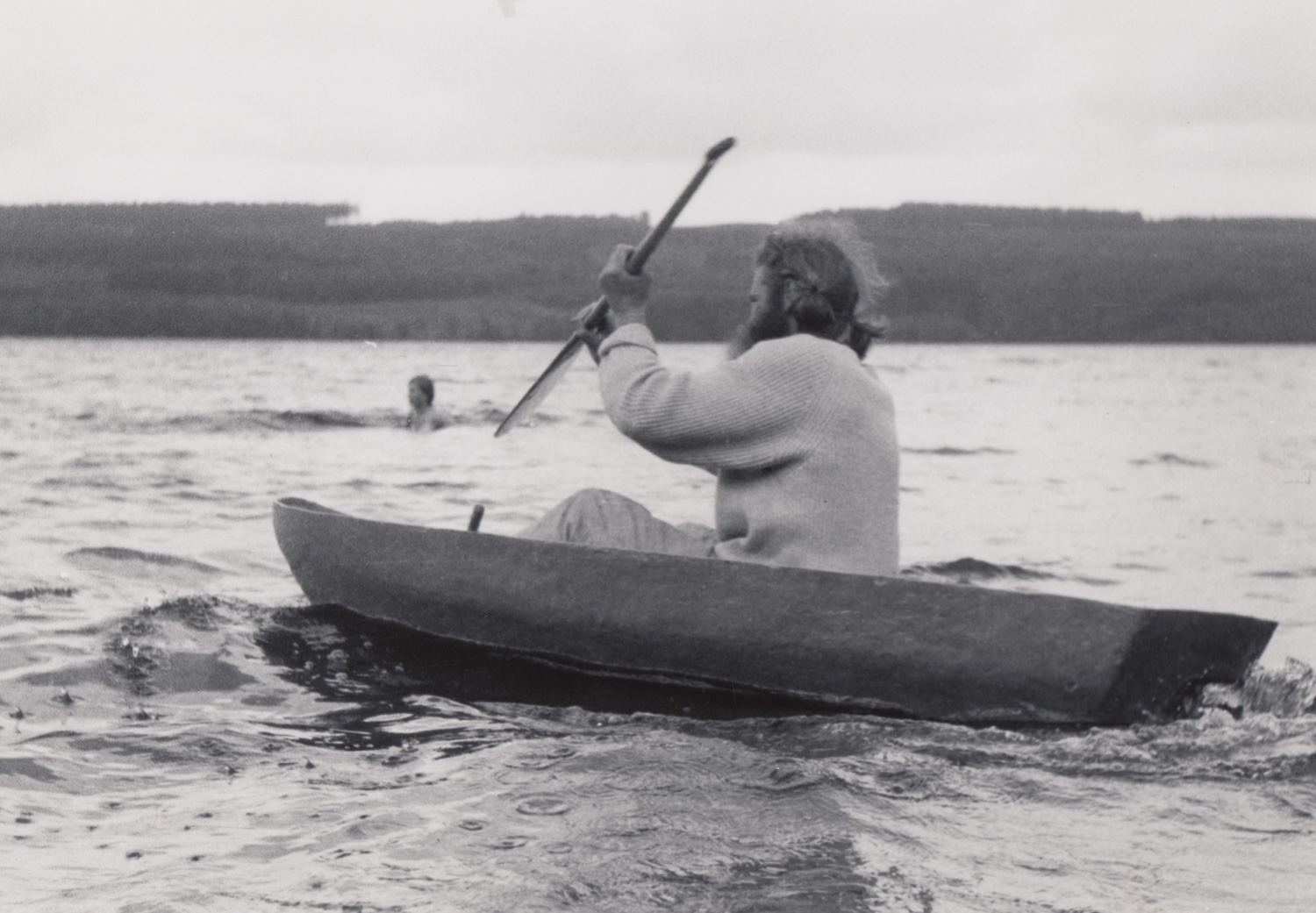
Poul in selfbuilt boat on Rössjön, Sweden, 1971
Photo: Jesper Gernes

Catamaran in Ekeröd, 1970
Photo: Jesper Gernes
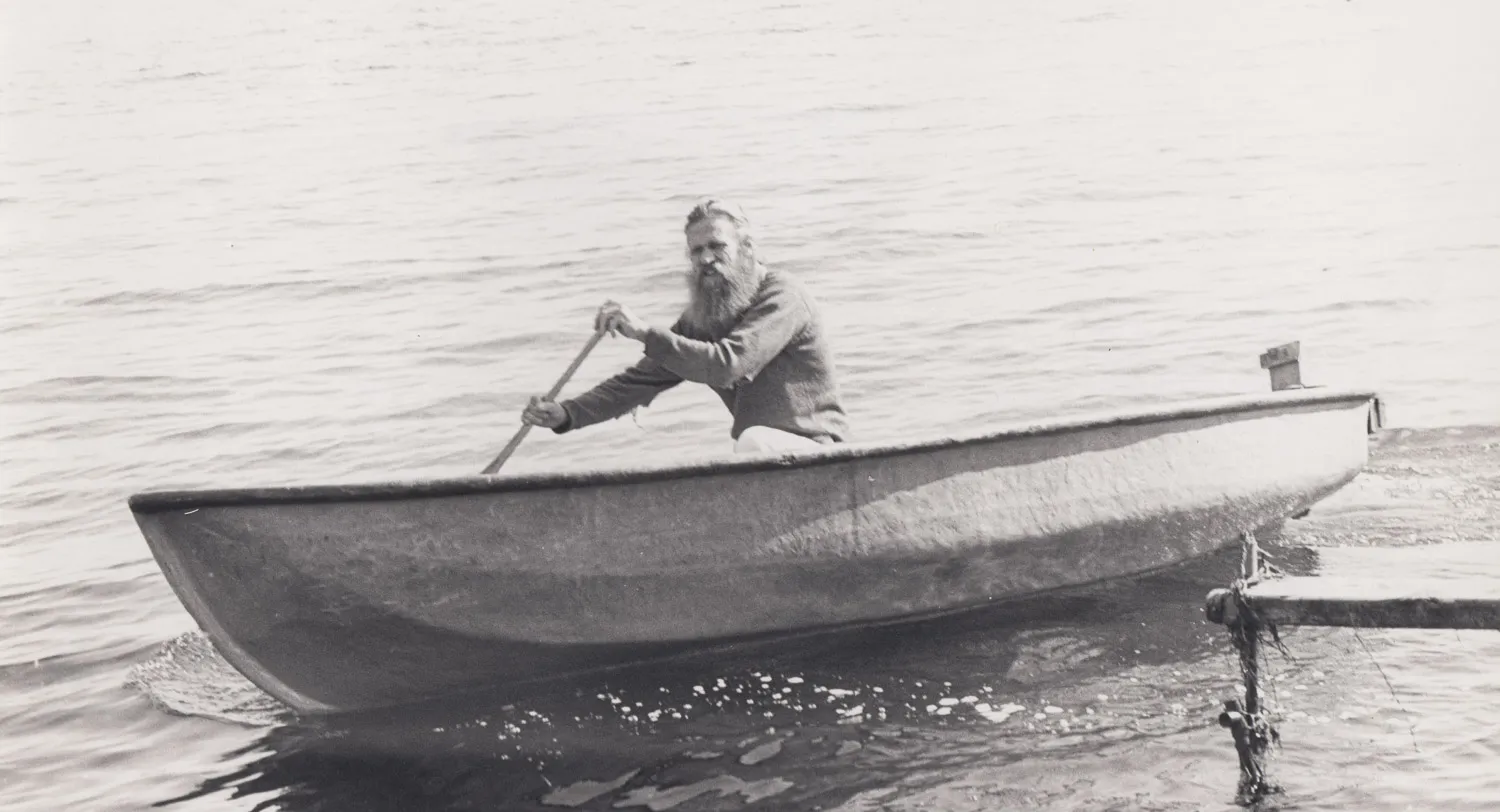
In self-made boat, 1970
Photo: Jesper Gernes
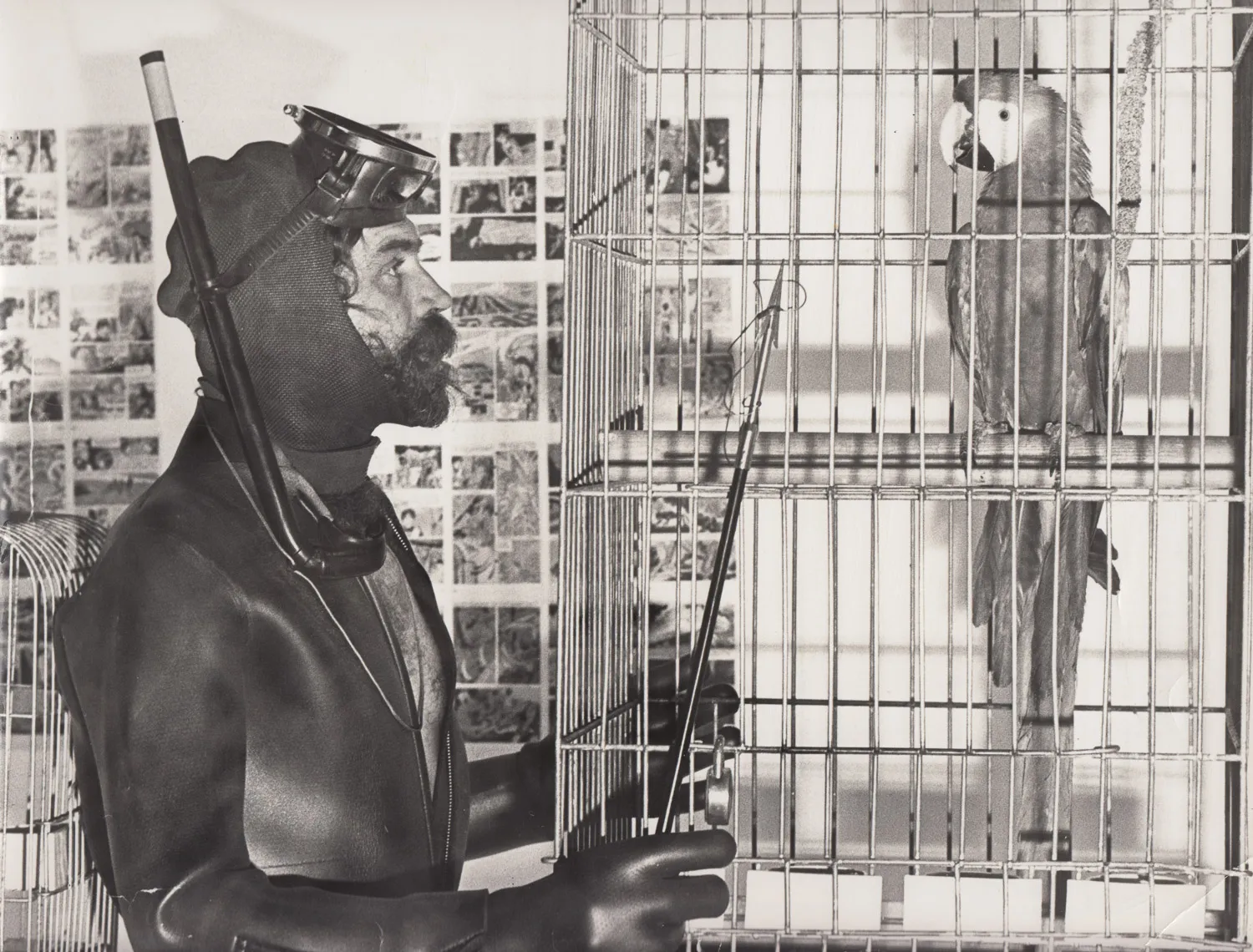
Poul Gernes in a wet suit at Jysk Kunstgalerie in March 1971
Photo: Asger Sessingø
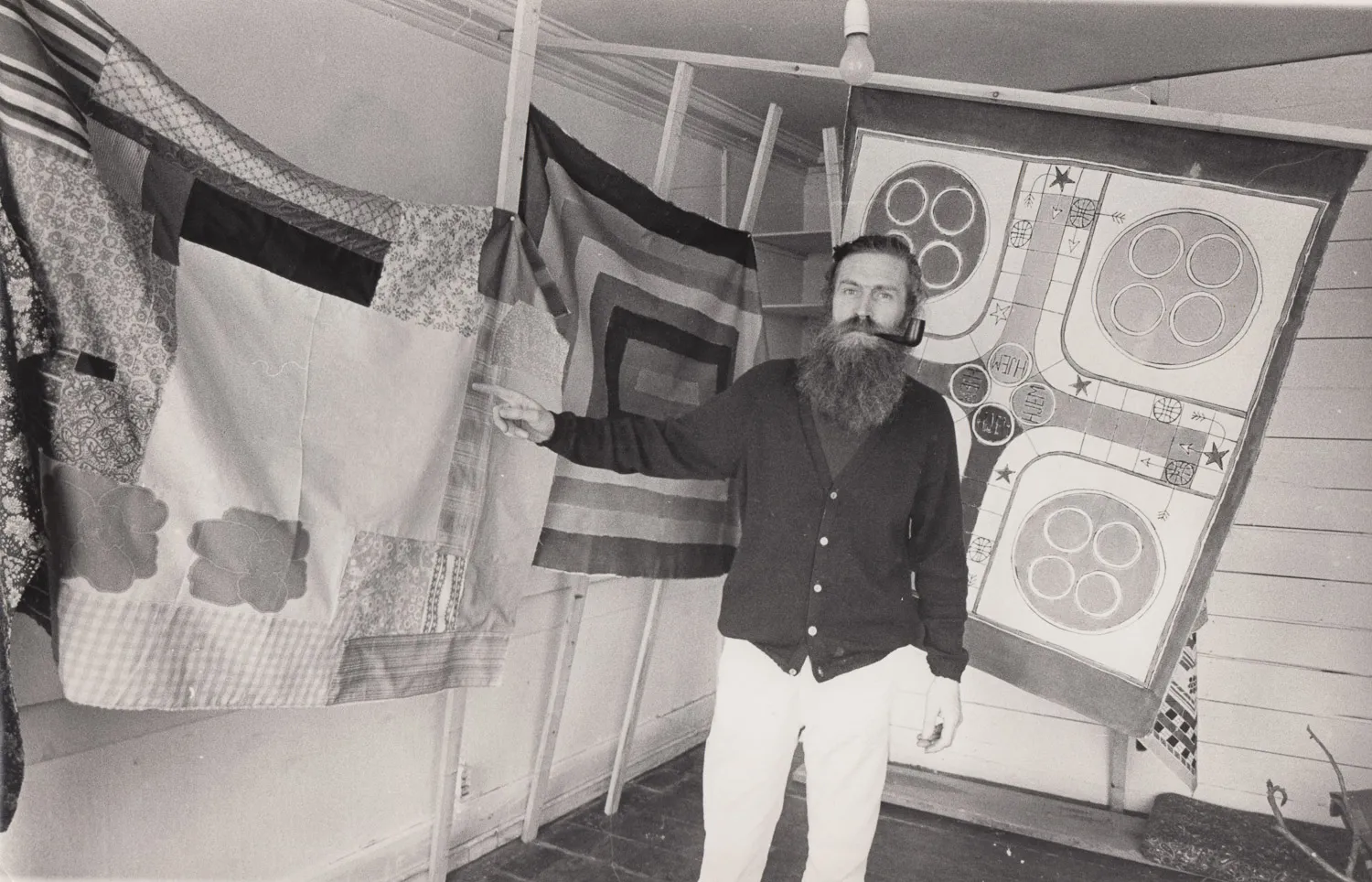
In the exhibition Suggestions for a flag for the European Community at Daner Galleriet, 1972
Photo: Asger Sessingø
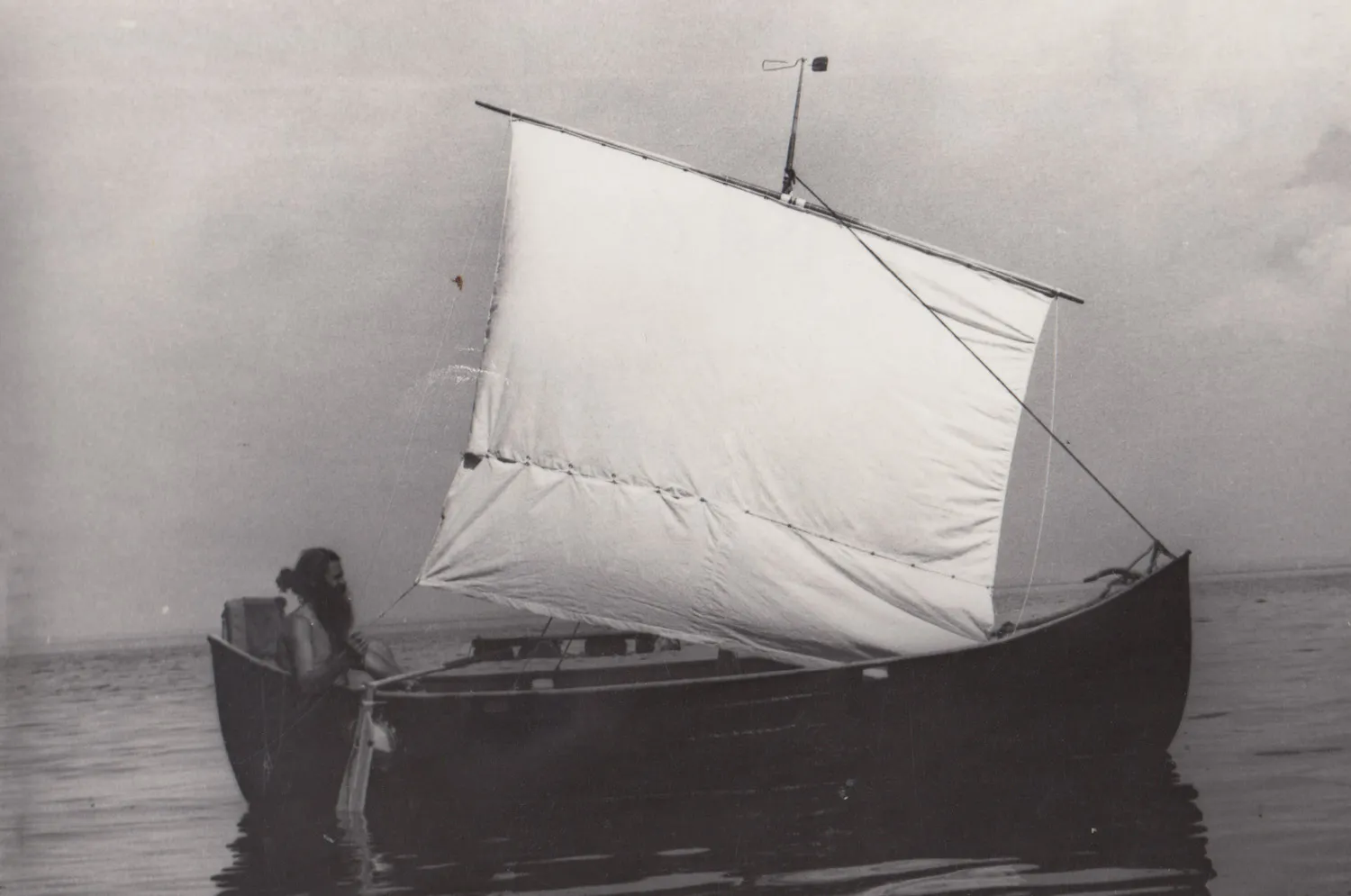
In self-made viking ship, Humlebæk 1972
Photo: Jesper Gernes
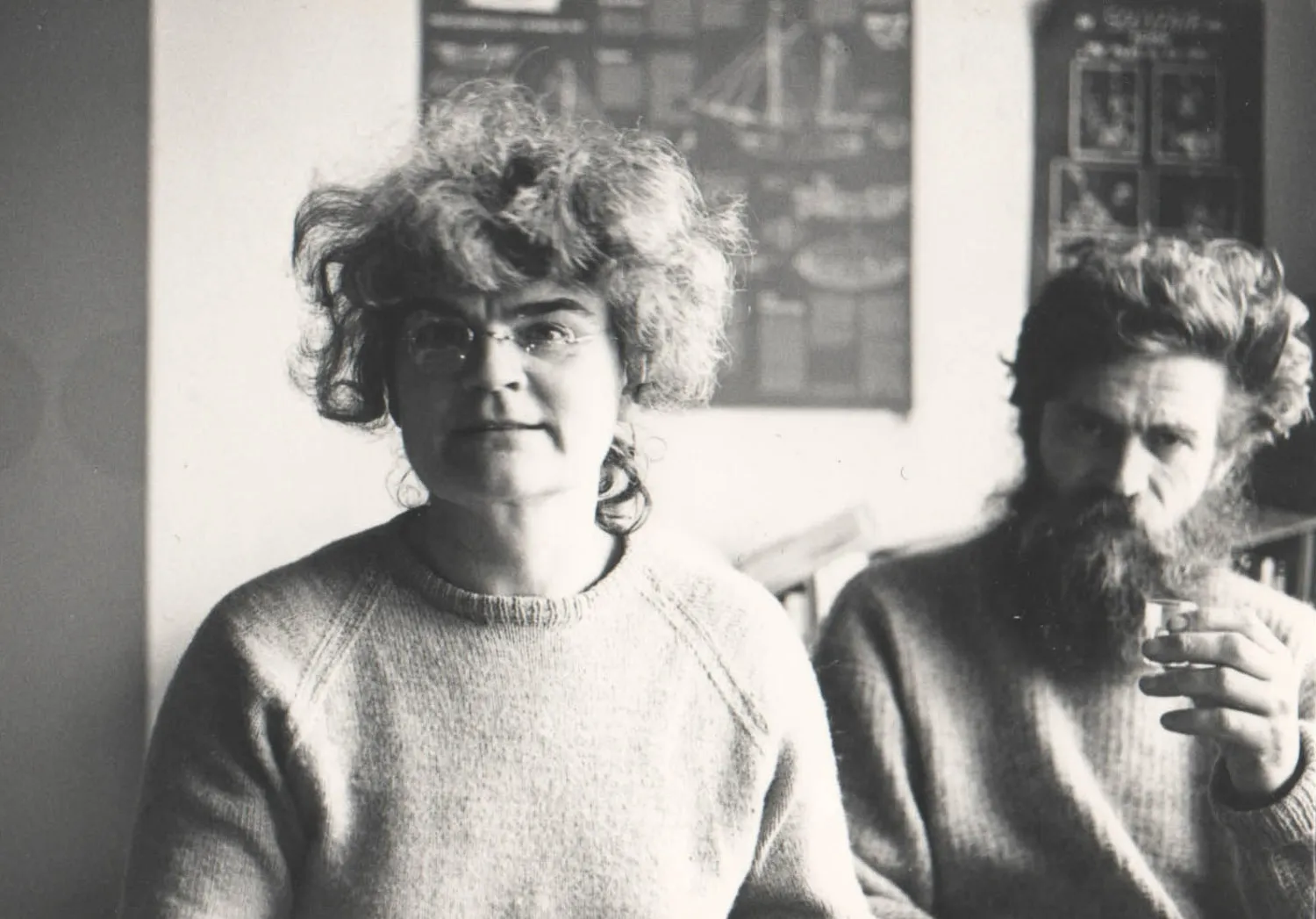
Aase and Poul in Humlebæk, 1973
Photo: Jesper Gernes
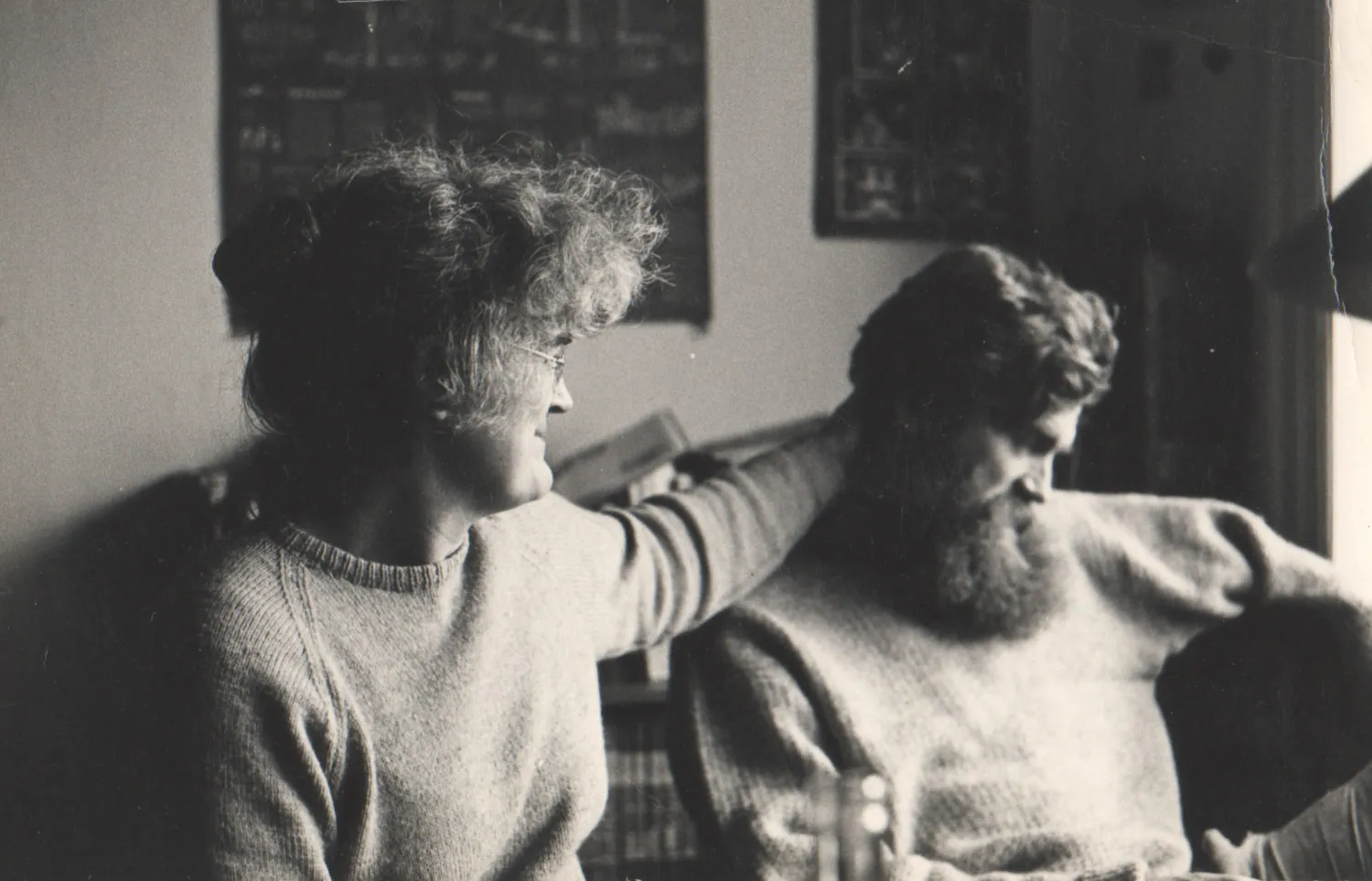
Aase and Poul in Humlebæk, 1973
Photo: Jesper Gernes
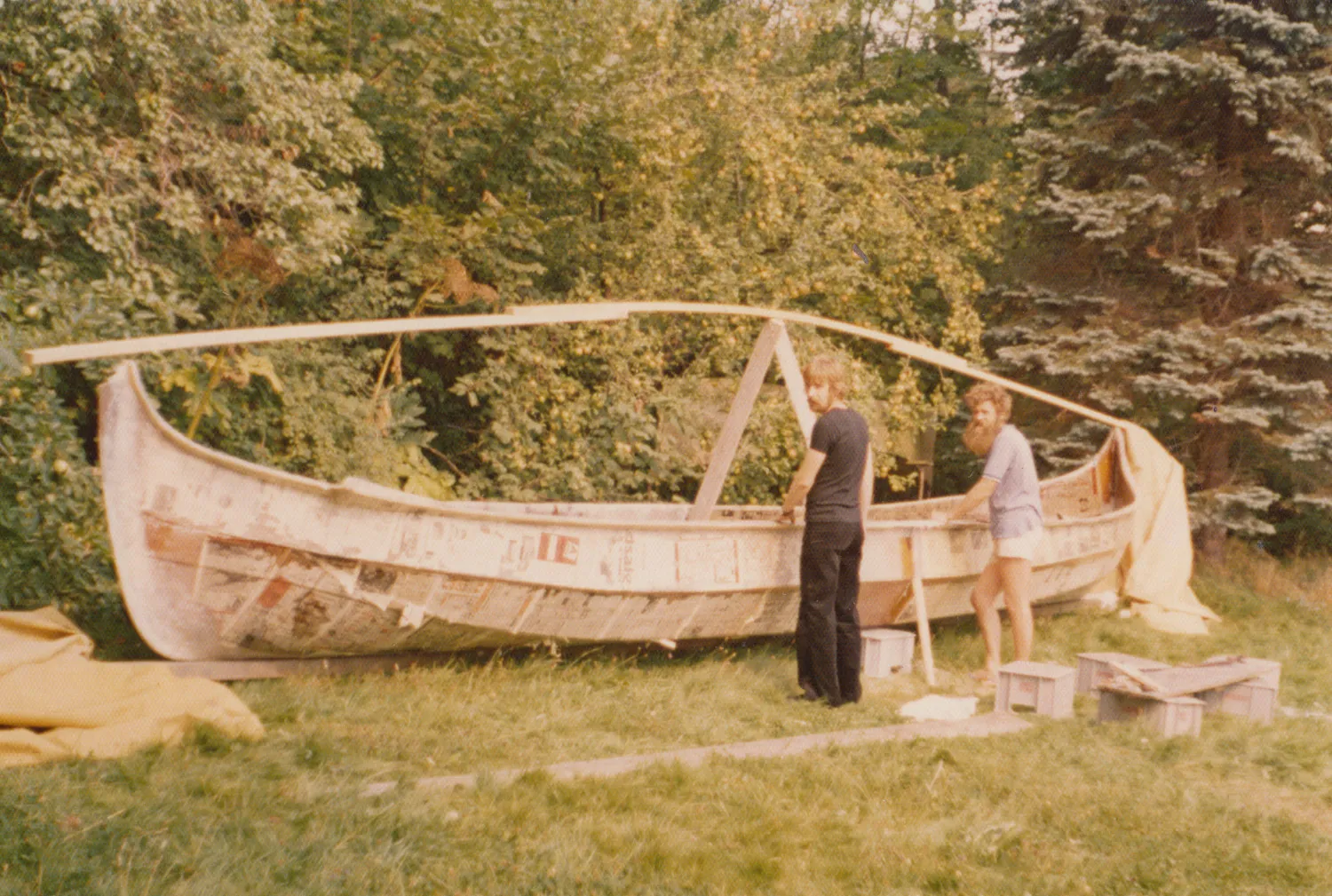
Building viking ships in Humlebæk, 1973
Photo: Jesper Gernes
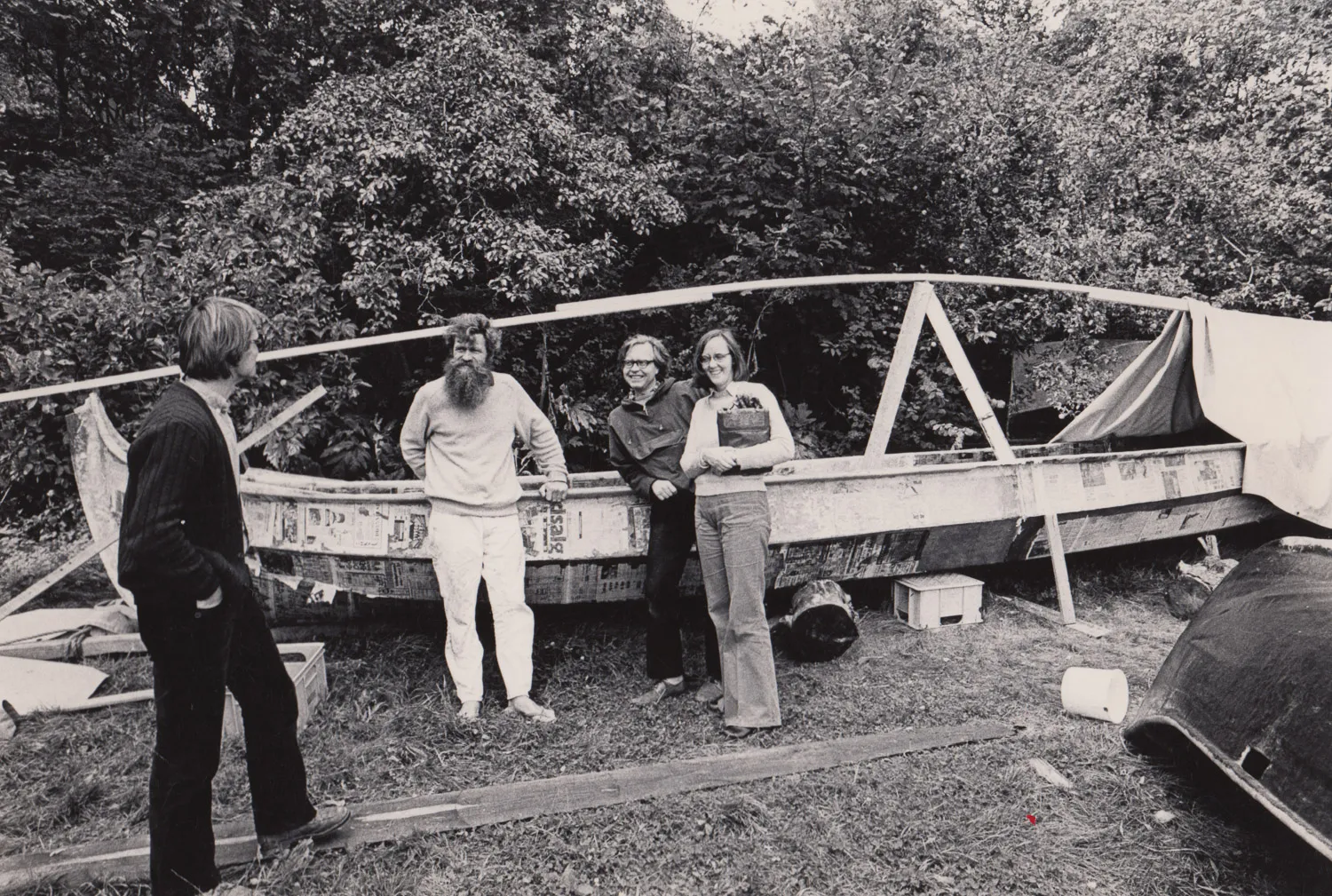
Per Kirkeby, Poul Gernes, John and Birthe Inge Hunov in Humlebæk, 1973
Photo: Jesper Gernes
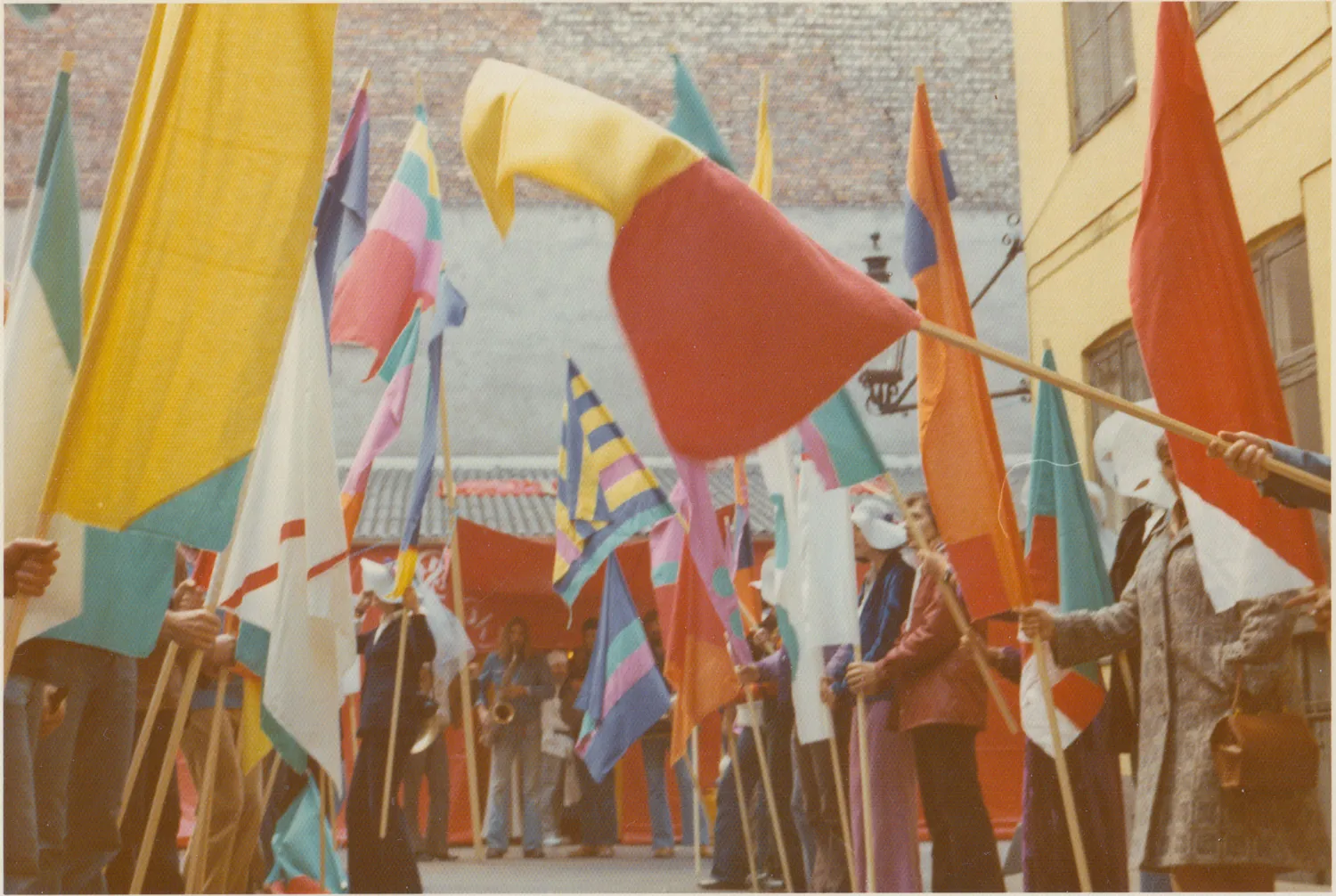
Poul Gernes made the flags for the architect Jørgen Selchau's 50th birthday in 1973
Photo: ukendt / unknown
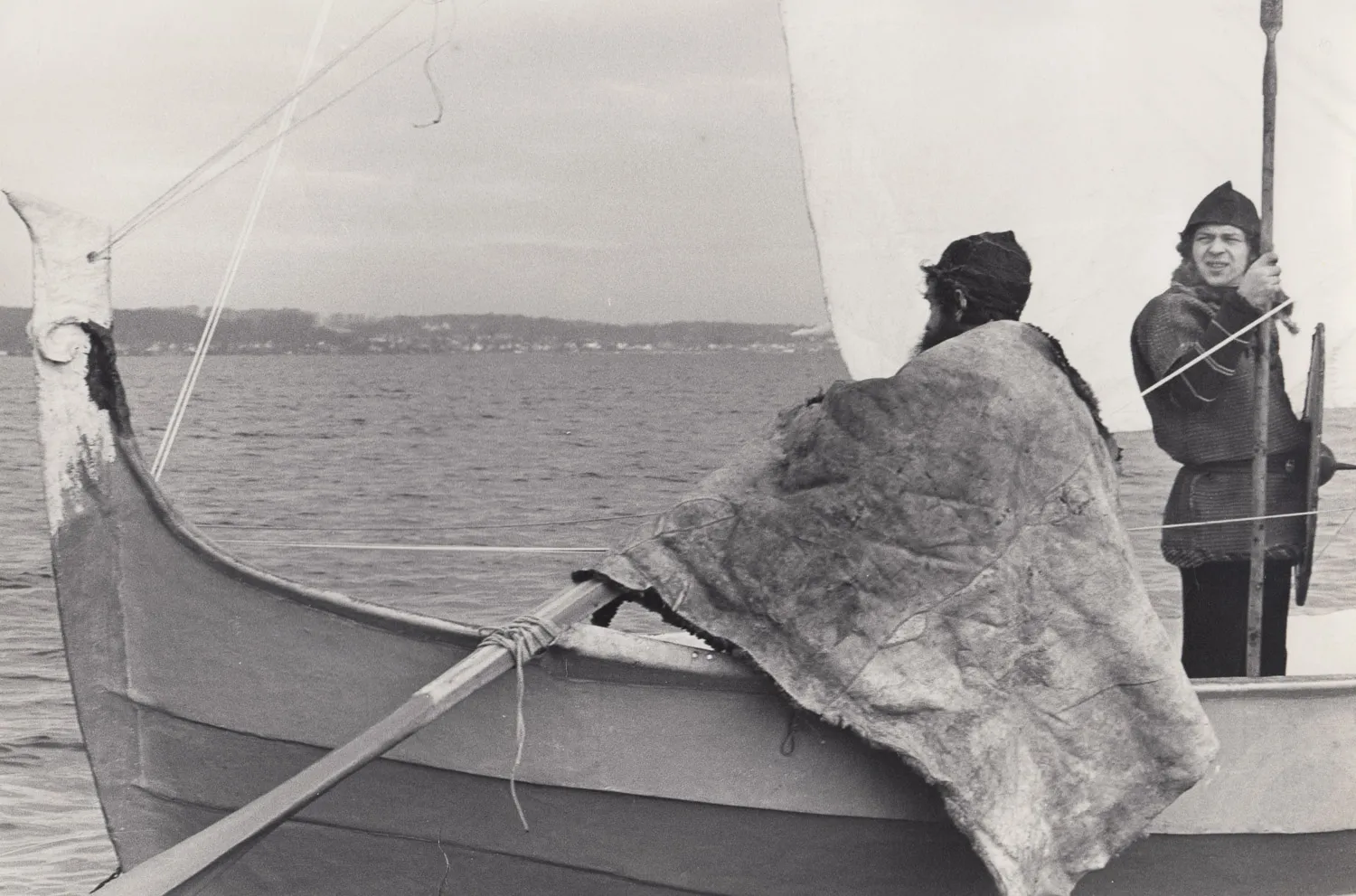
During the shooting of the film Normannerne, 1975
Photo: Teit Jørgensen
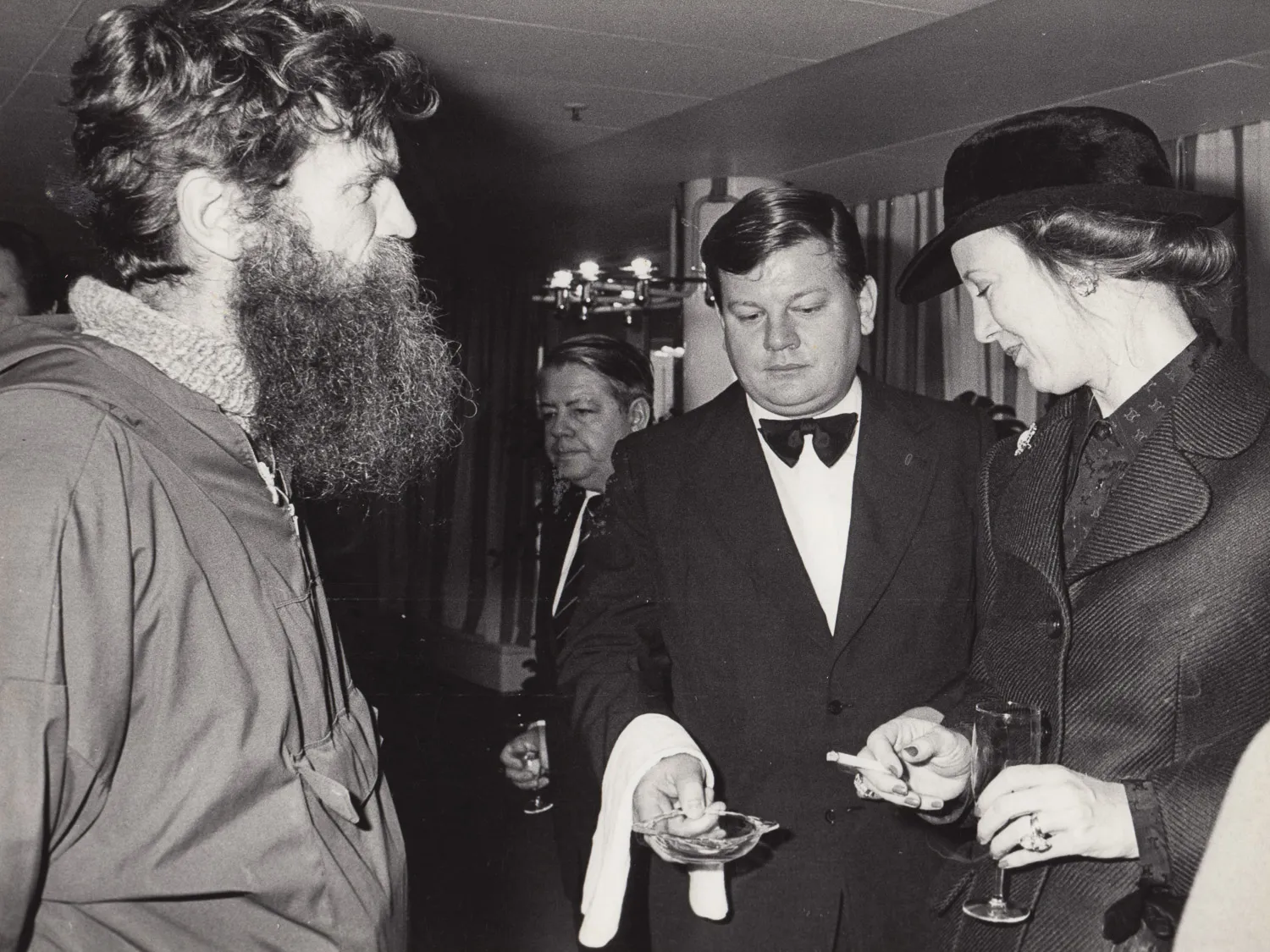
With Her Majesty Queen Margrethe at the inauguration of Herlev Hospital in 1976
Photo: Asger Sessingø
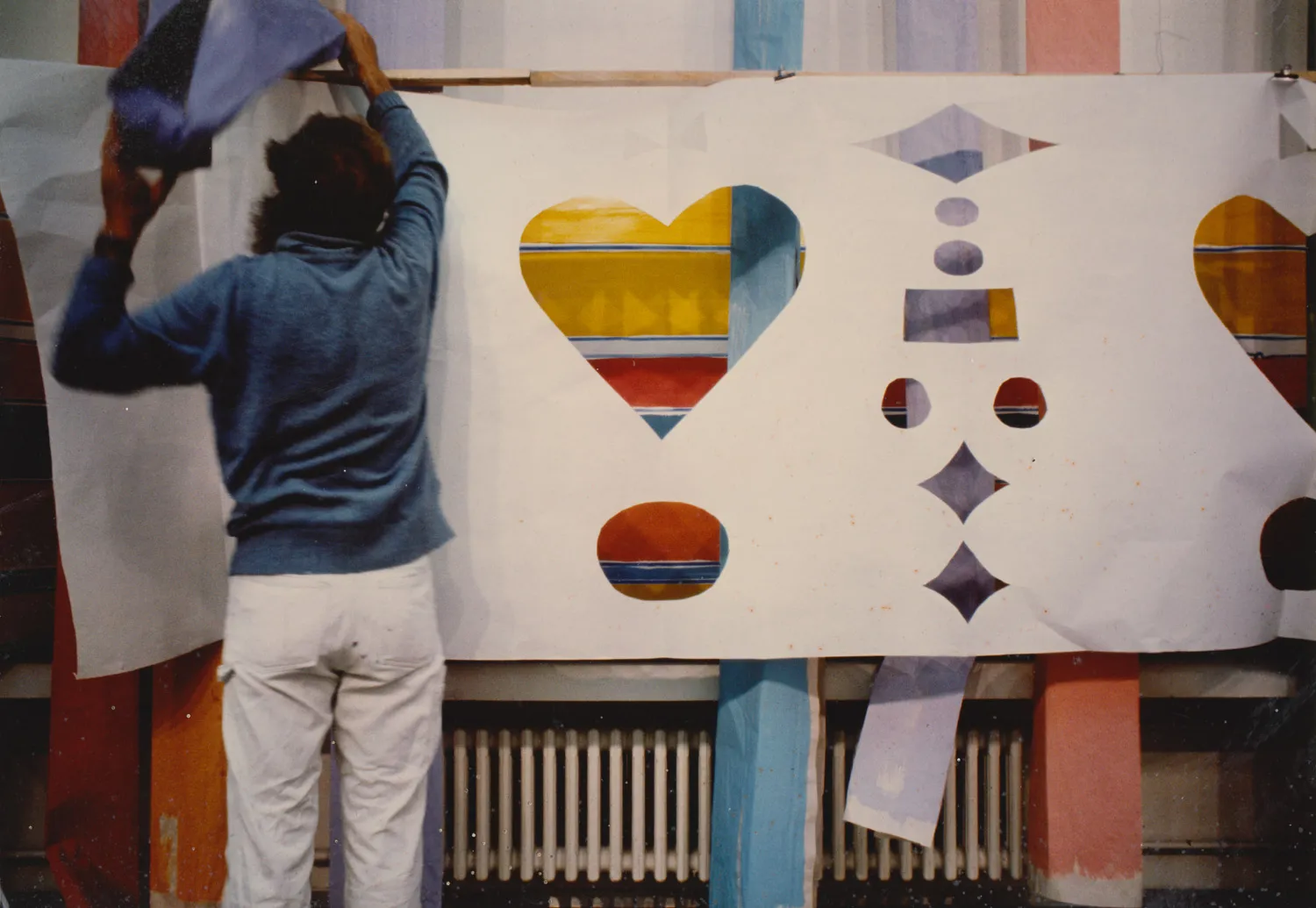
Installing exhibition in Luzern, Switzerland, 1976
Photo: Birgit Pontoppidan
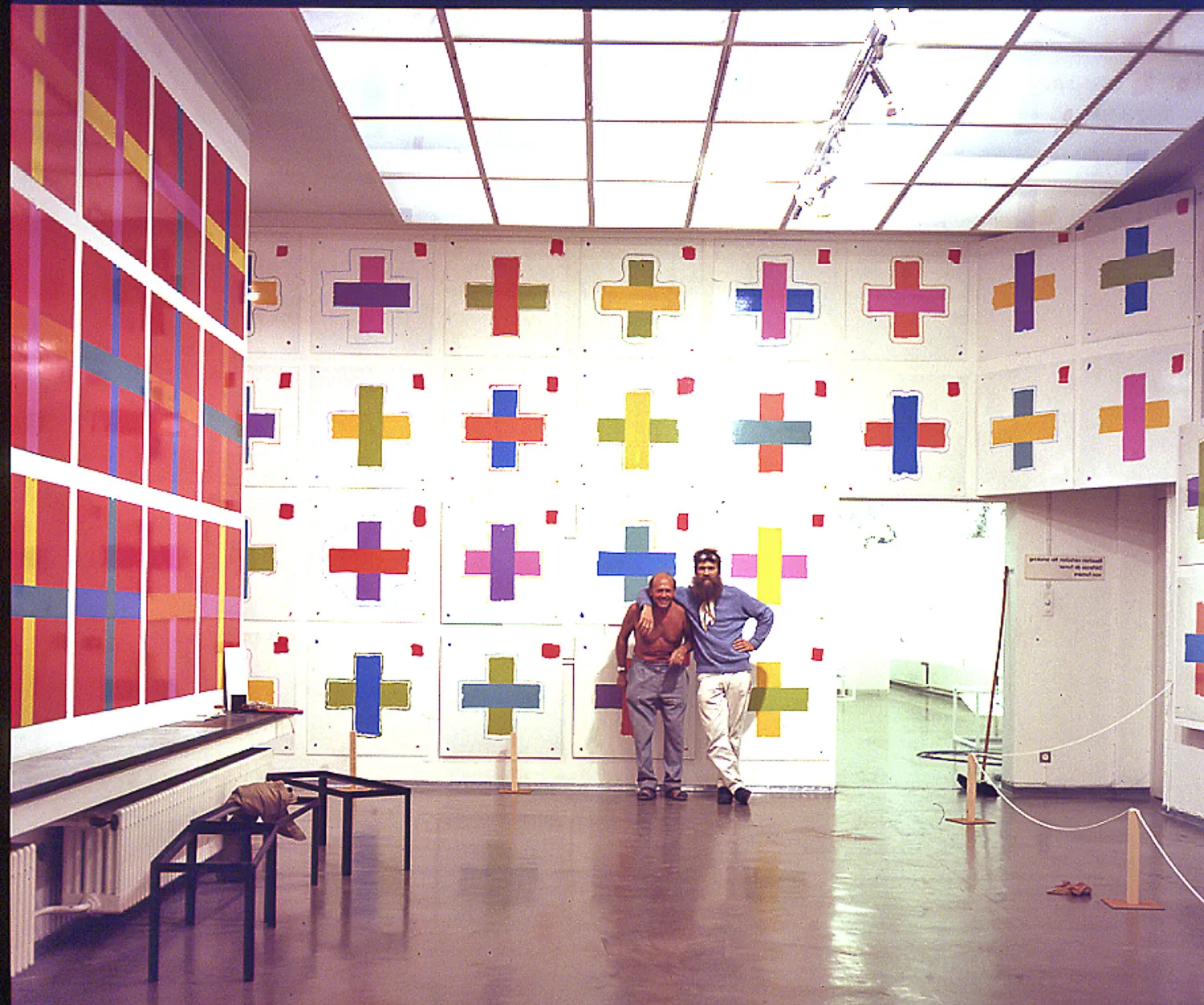
Poul Gernes and curator Jean-Christophe Ammann at Kunstmuseum Luzern, 1976
Photo: Birgit Pontoppidan
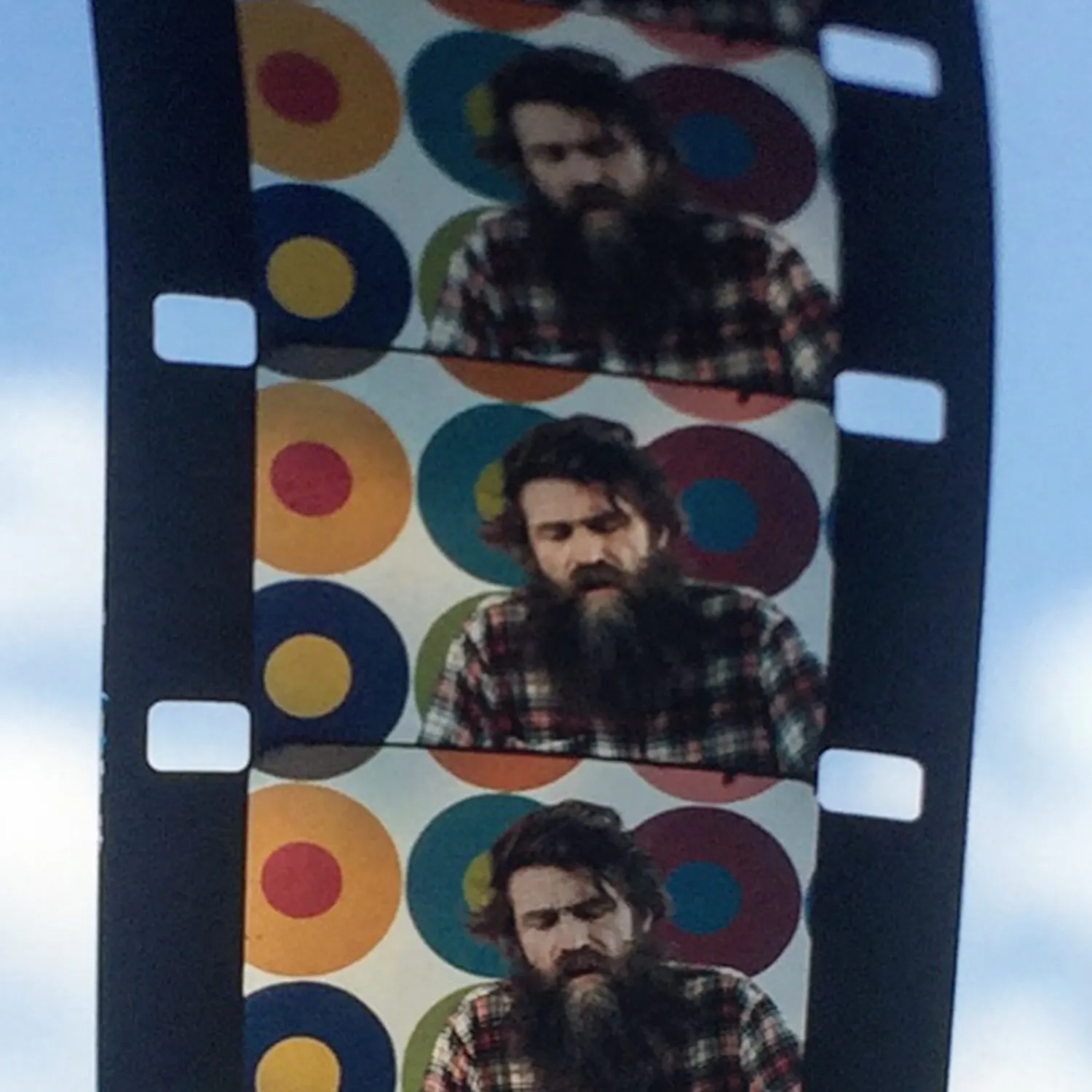
Poul Gernes in television programme about the decoration of Herlev Hospital, 1977
Photo: Klara Karolines Fond
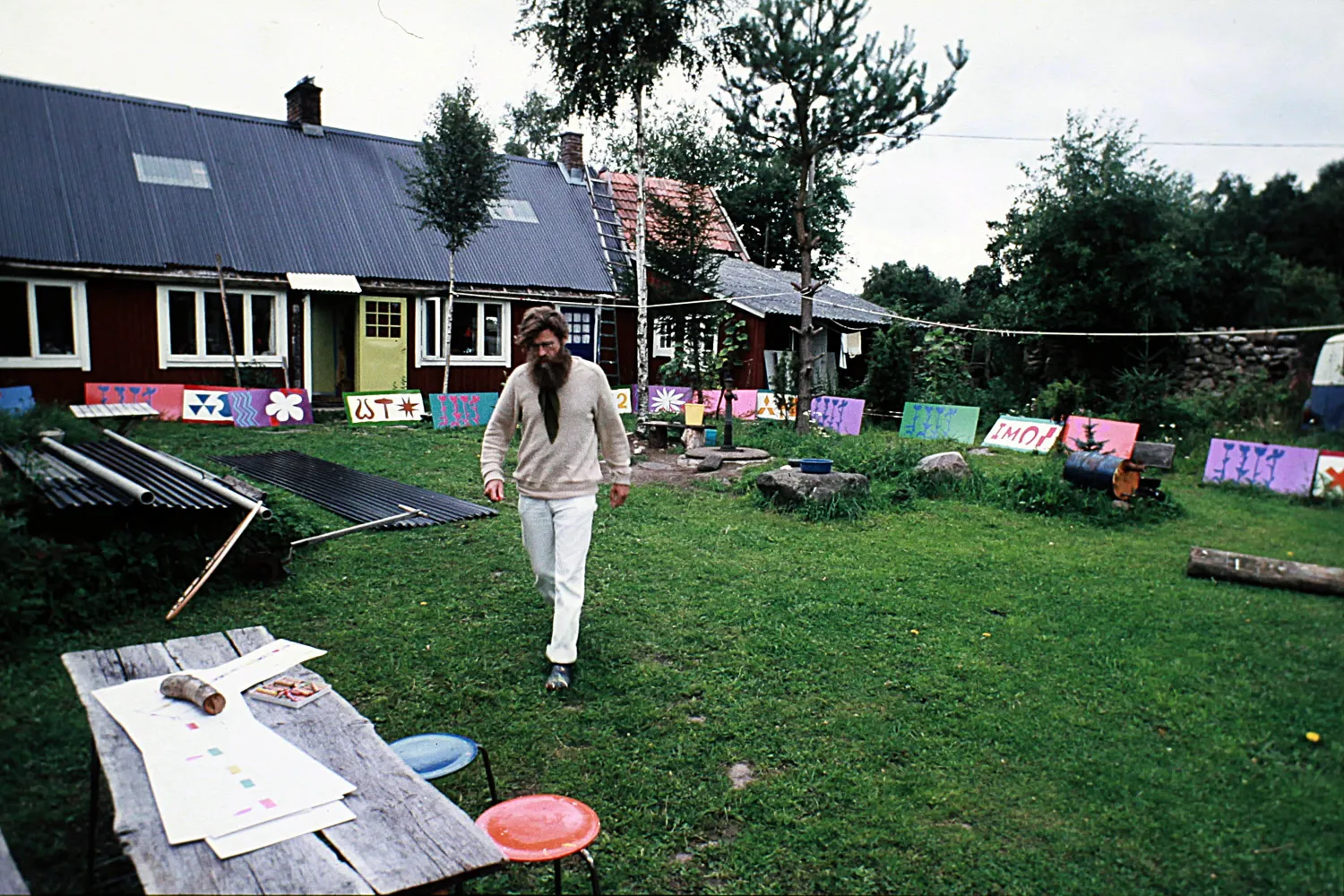
Working on the decoration for the Carlsberg bottling hall in the garden in Ekeröd, 1977
Photo: Aase Seidler Gernes
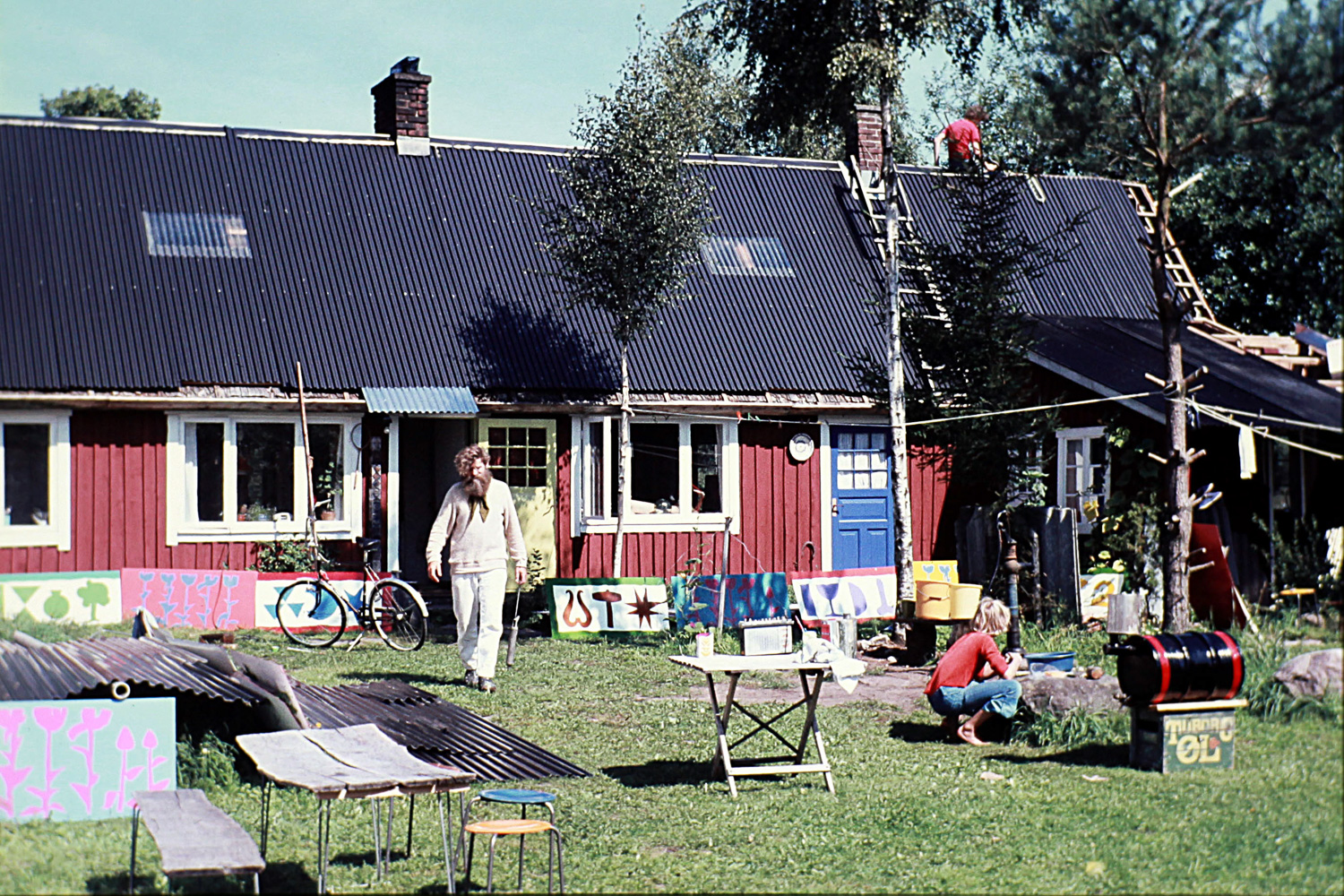
Working on the decoration of Carlsberg bottling hall 1977
Photo: Aase Seidler Gernes
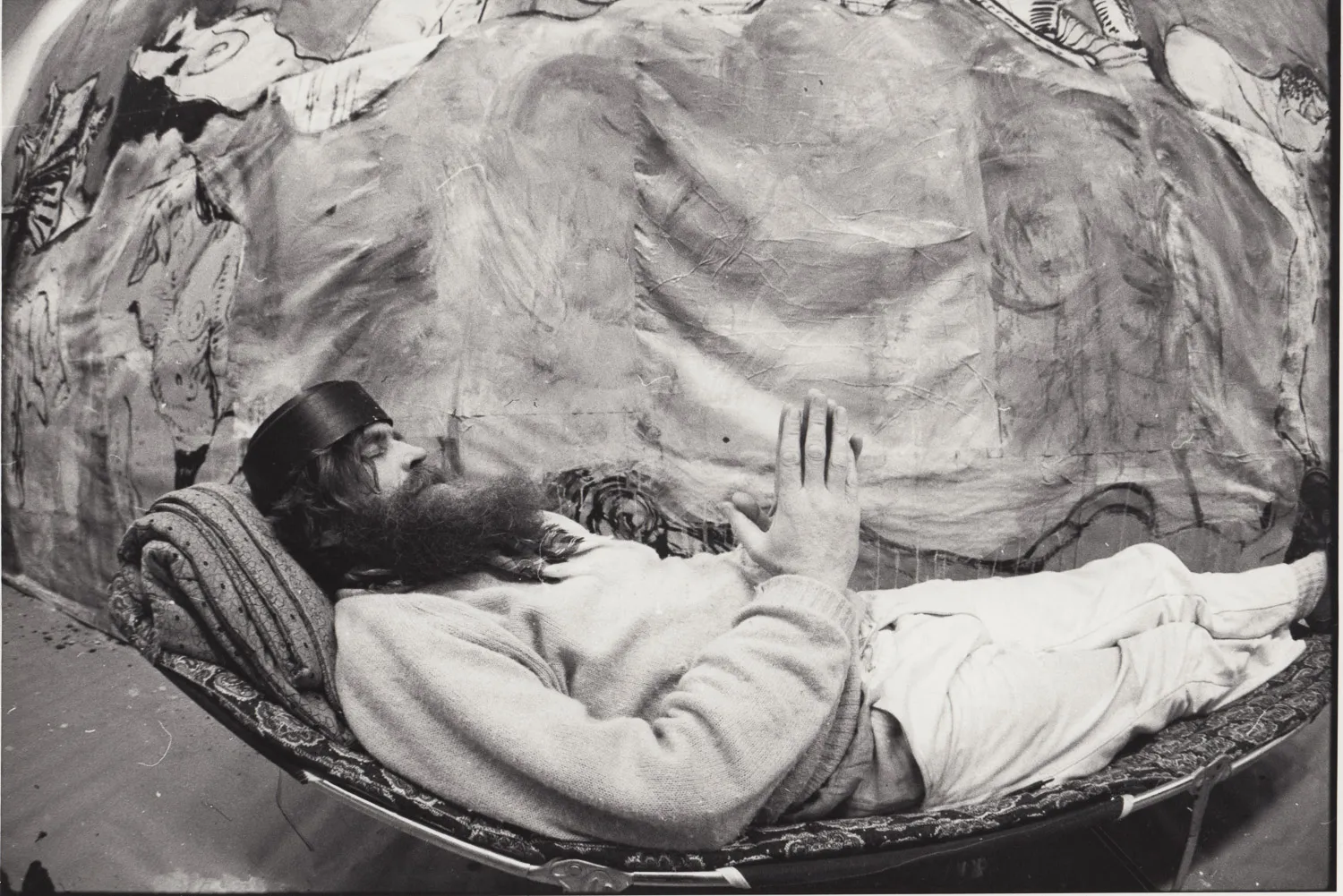
Poul Gernes as King Arthur in Aarhus, 1977
Photo: Richard Winther
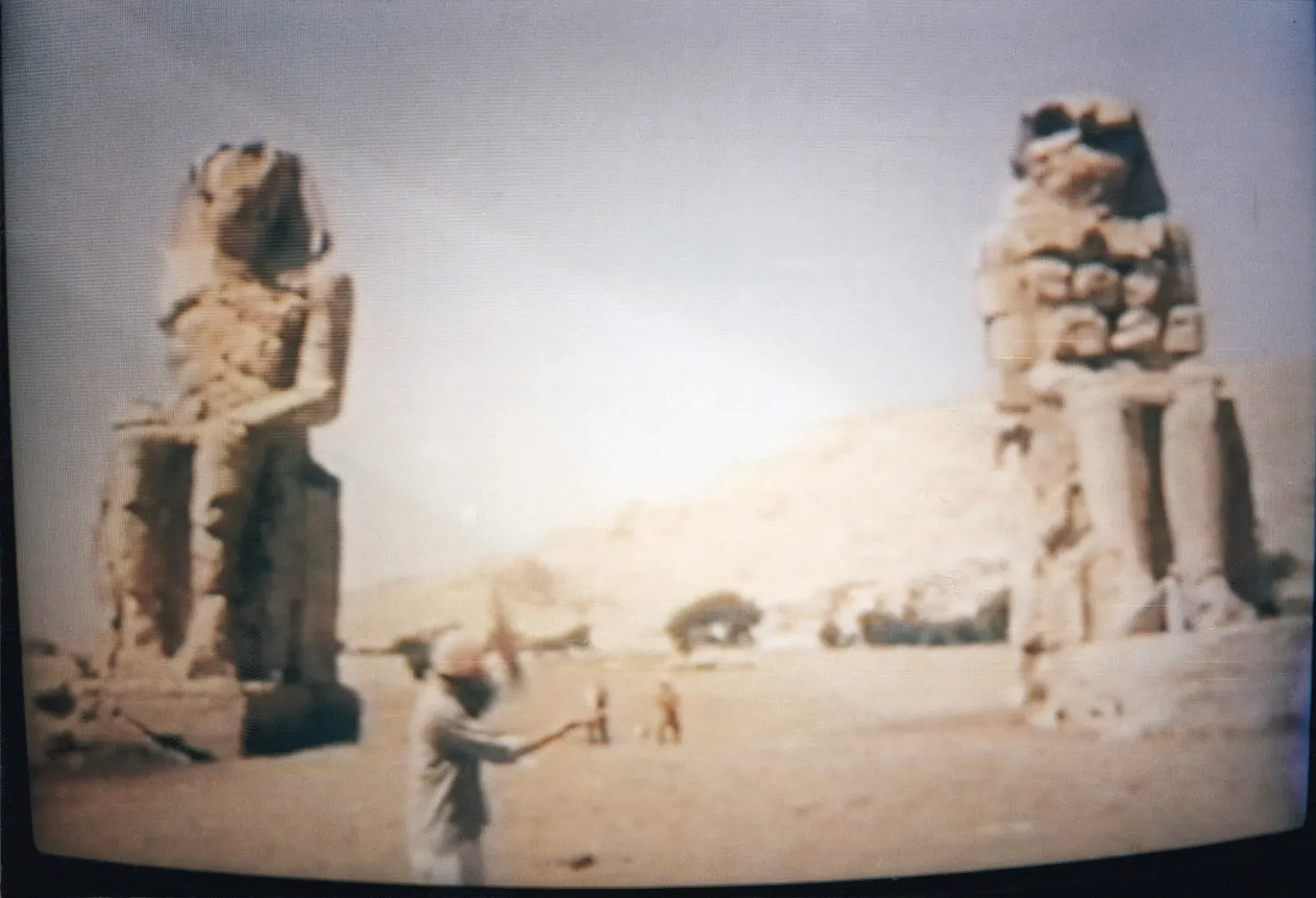
Filming in Egypt in 1978
Photo: Poul Gernes
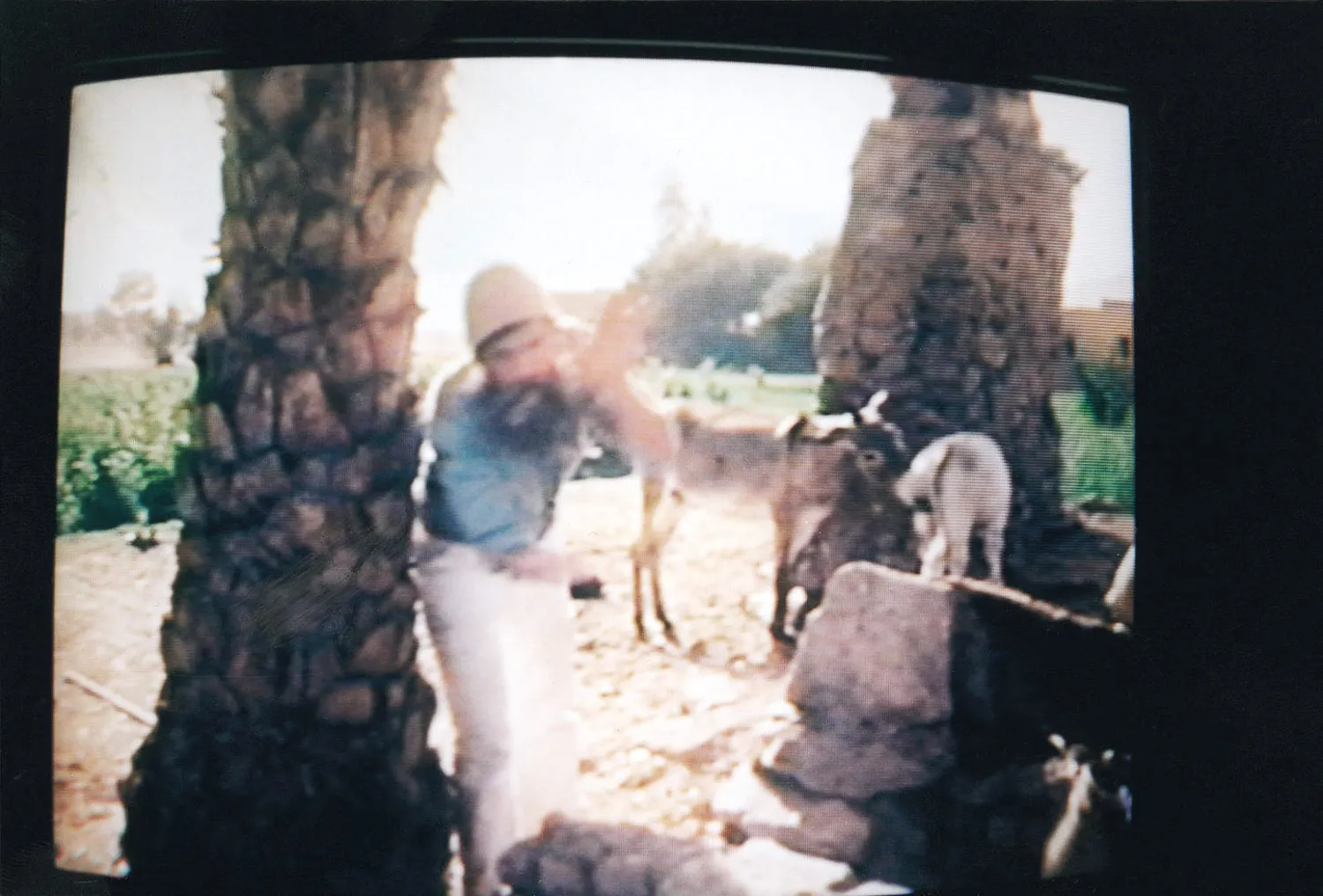
Filming in Egypt in 1978
Photo: Poul Gernes
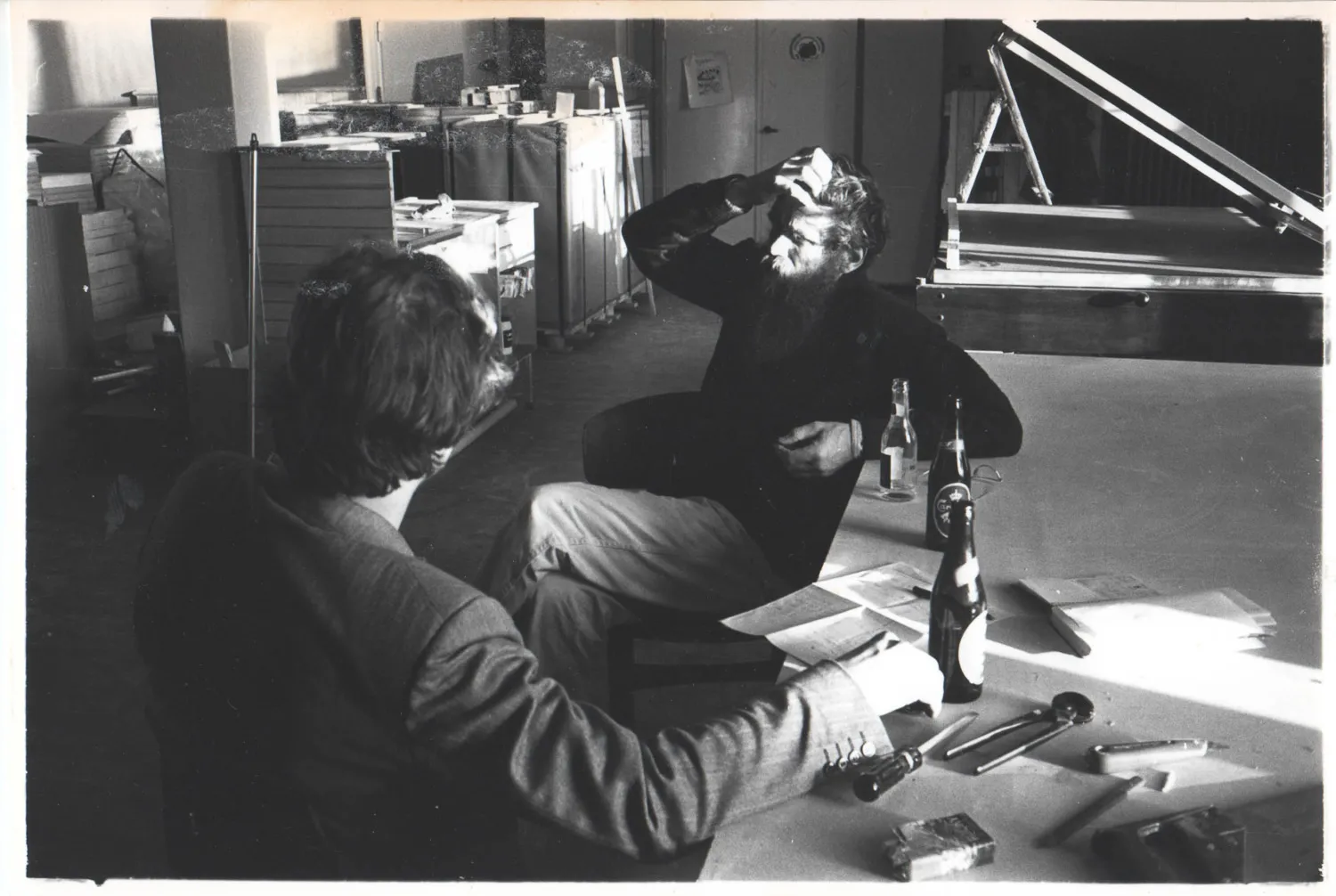
With Bjørn Nørgaard at Eks-skolens printing shop in 1980
Photo: Lene Adler Petersen
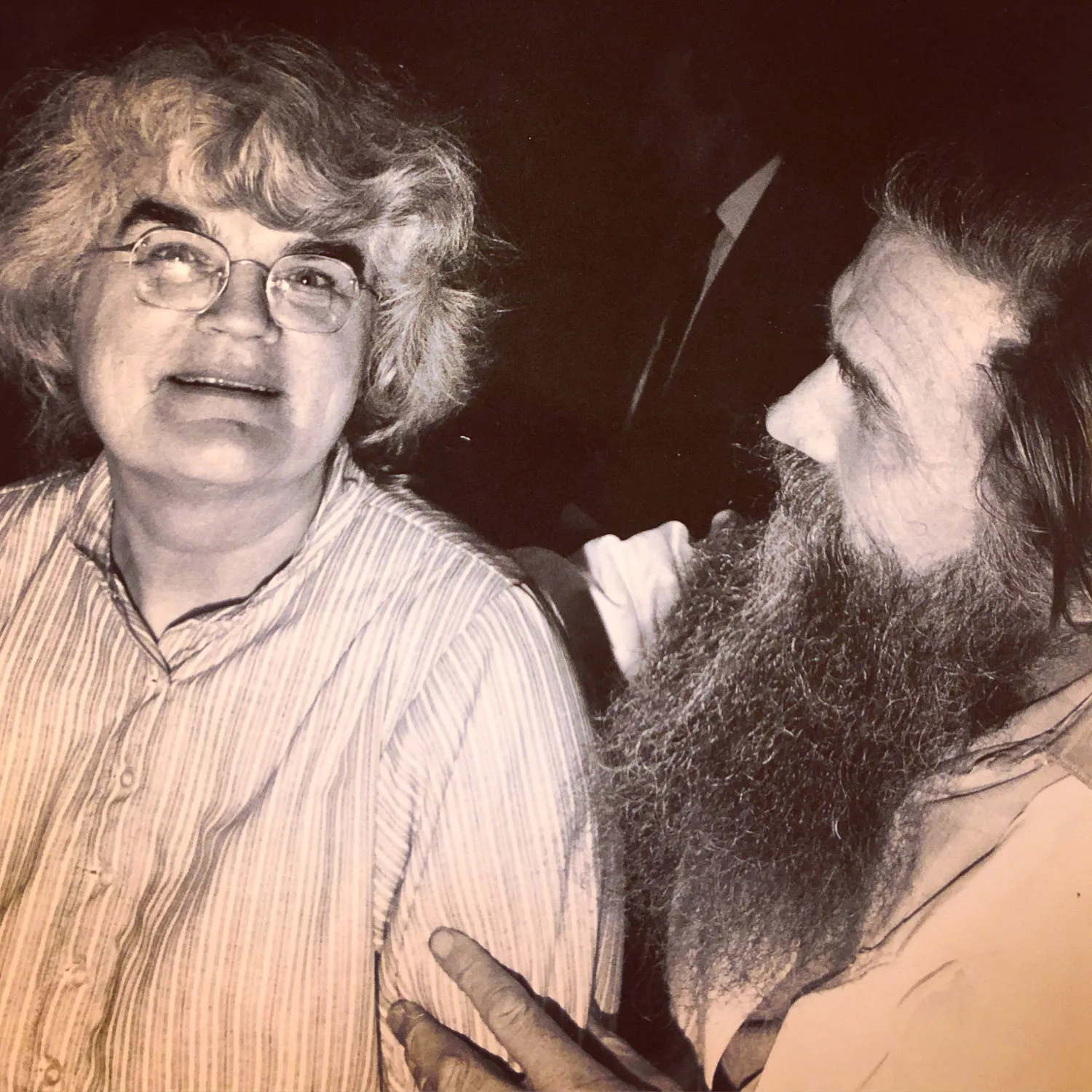
Aase and Poul in Aars, 1983
Photo: Palle Rønde Møller
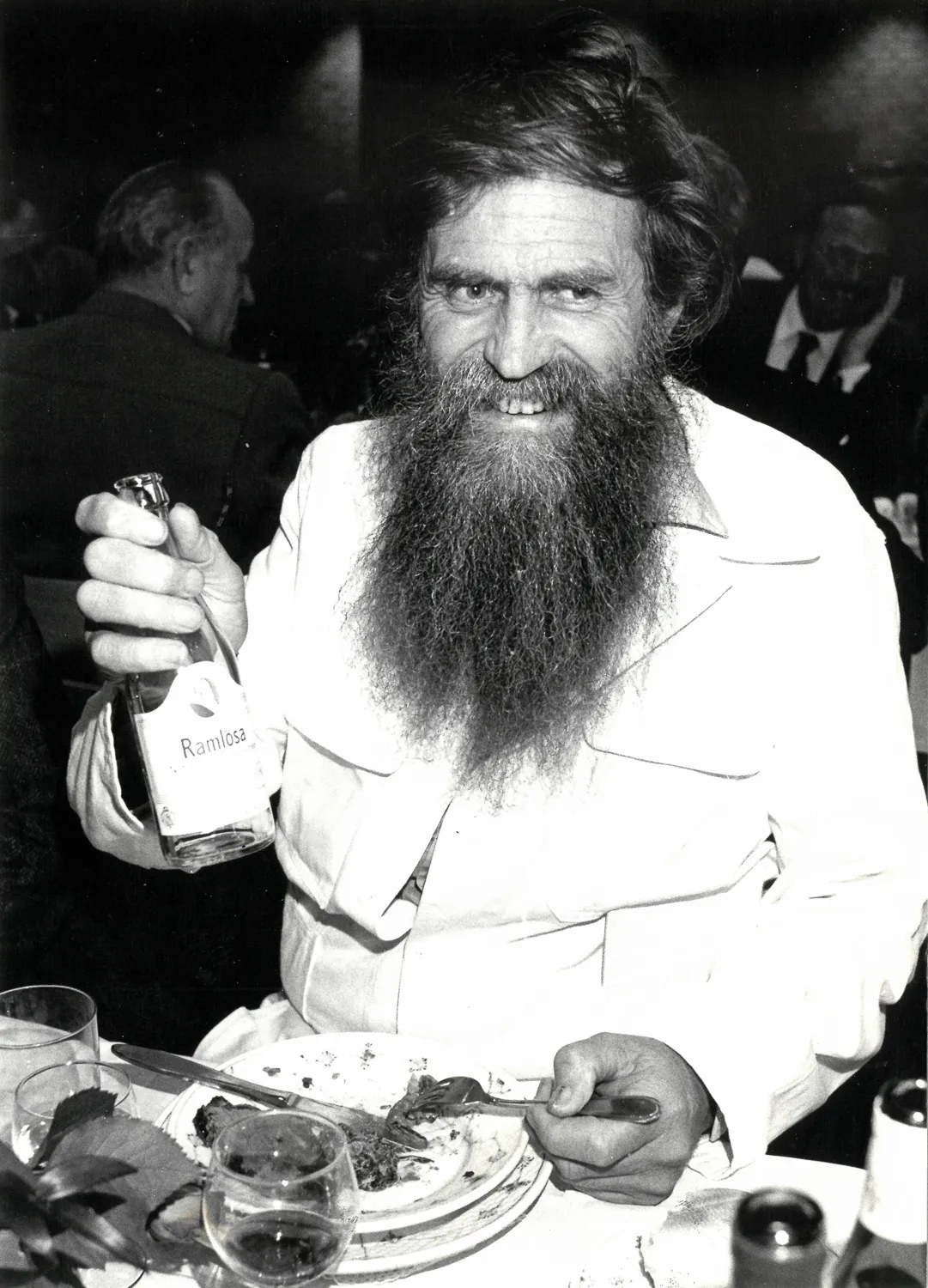
Dinner at Vesthimmerlands Gymnasium in Aars, 1983
Photo: Palle Rønde Møller
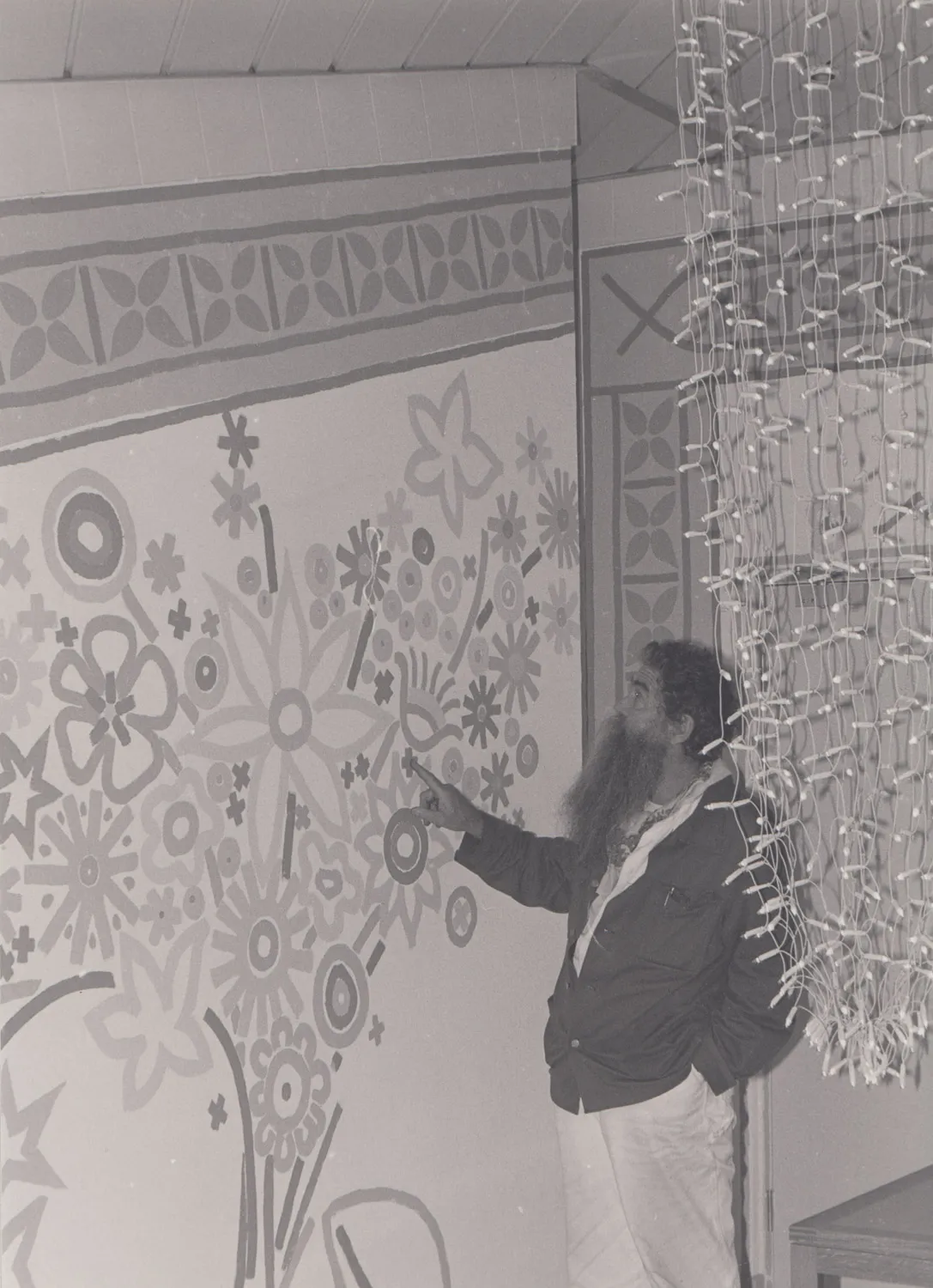
In the wedding room at Horsens Town Hall in 1986
Photo: ukendt / unknown
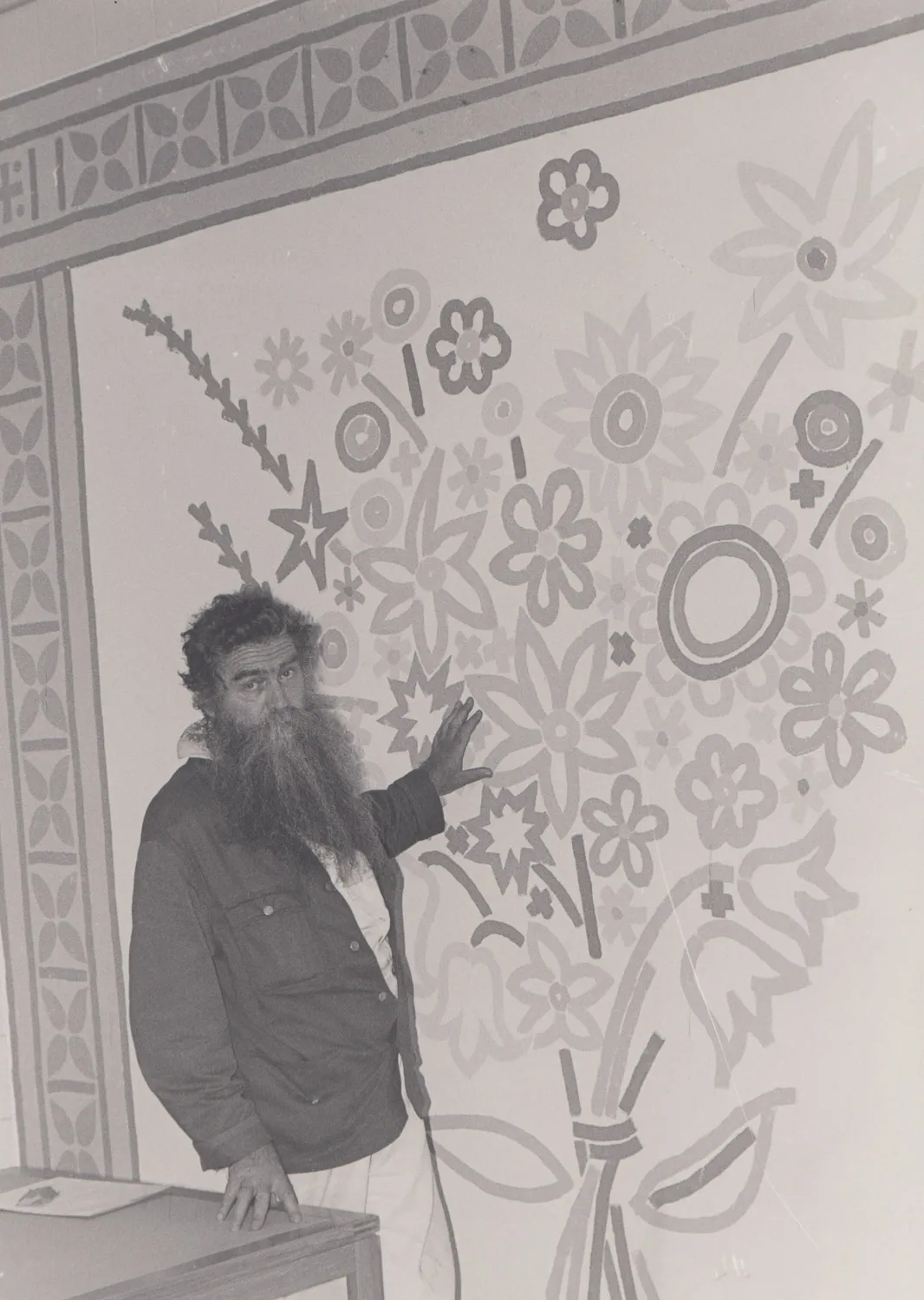
In the wedding room at Horsens Town Hall in 1986
Photo: ukendt / unknown
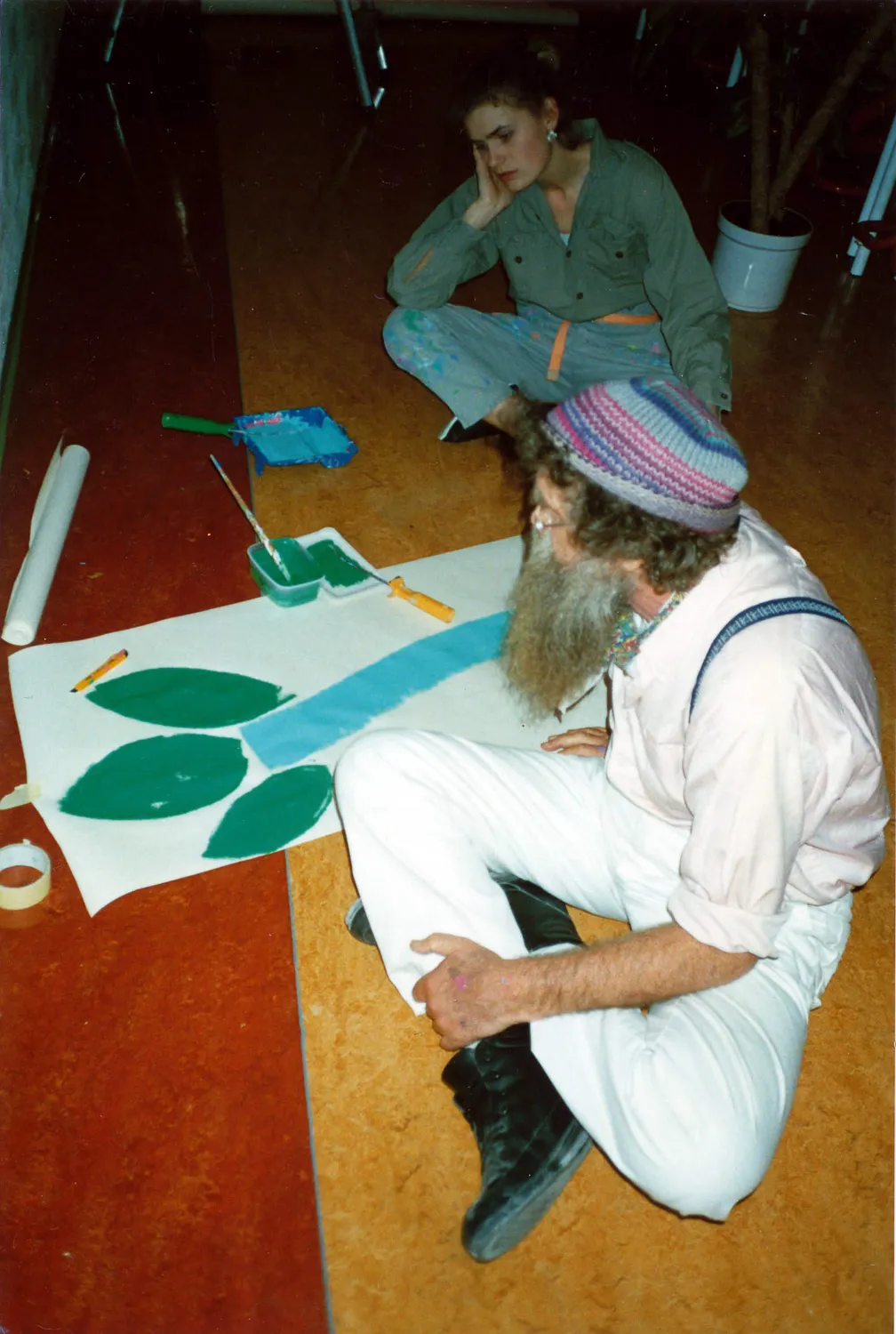
Decorating Haslev Technical School, 1986, together with Ulrikka Gernes
Photo: Aase Seidler Gernes
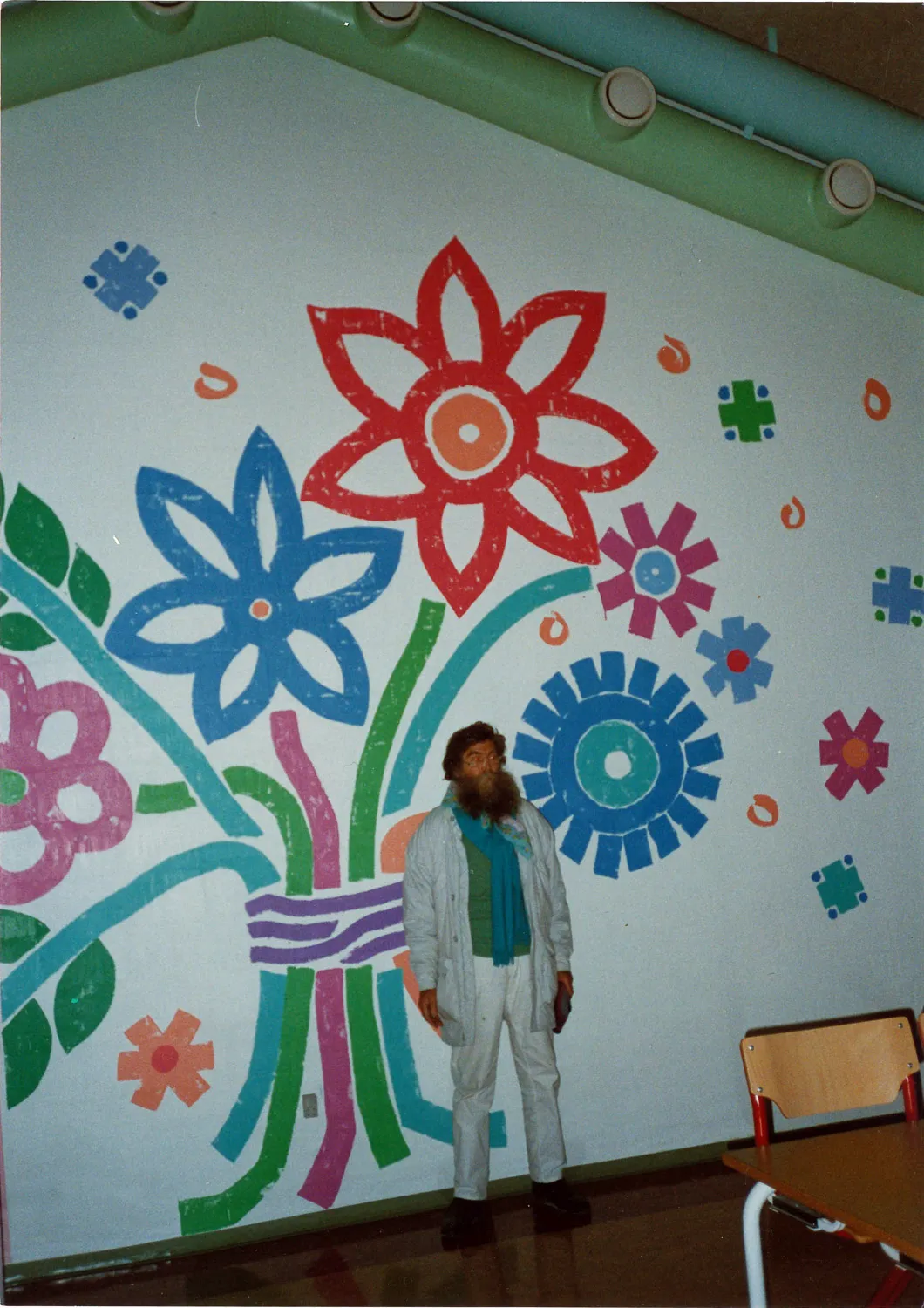
Haslev Technical School, 1986
Photo: Aase Seidler Gernes
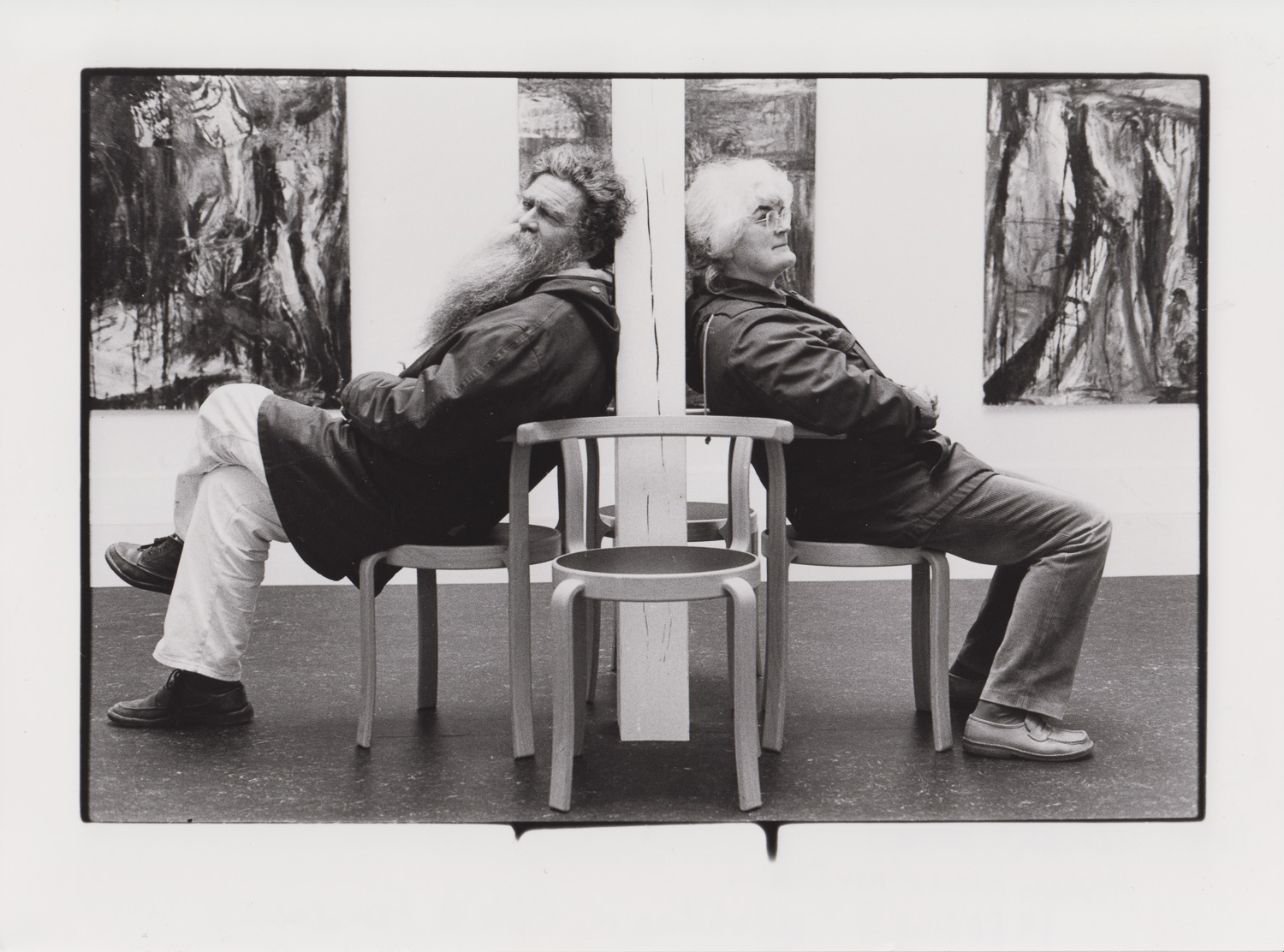
Poul and Aase back to back at Erik A. Fransen's exhibition at Horsens Kunstmuseum 1986.
Photo: Ulrikka Gernes
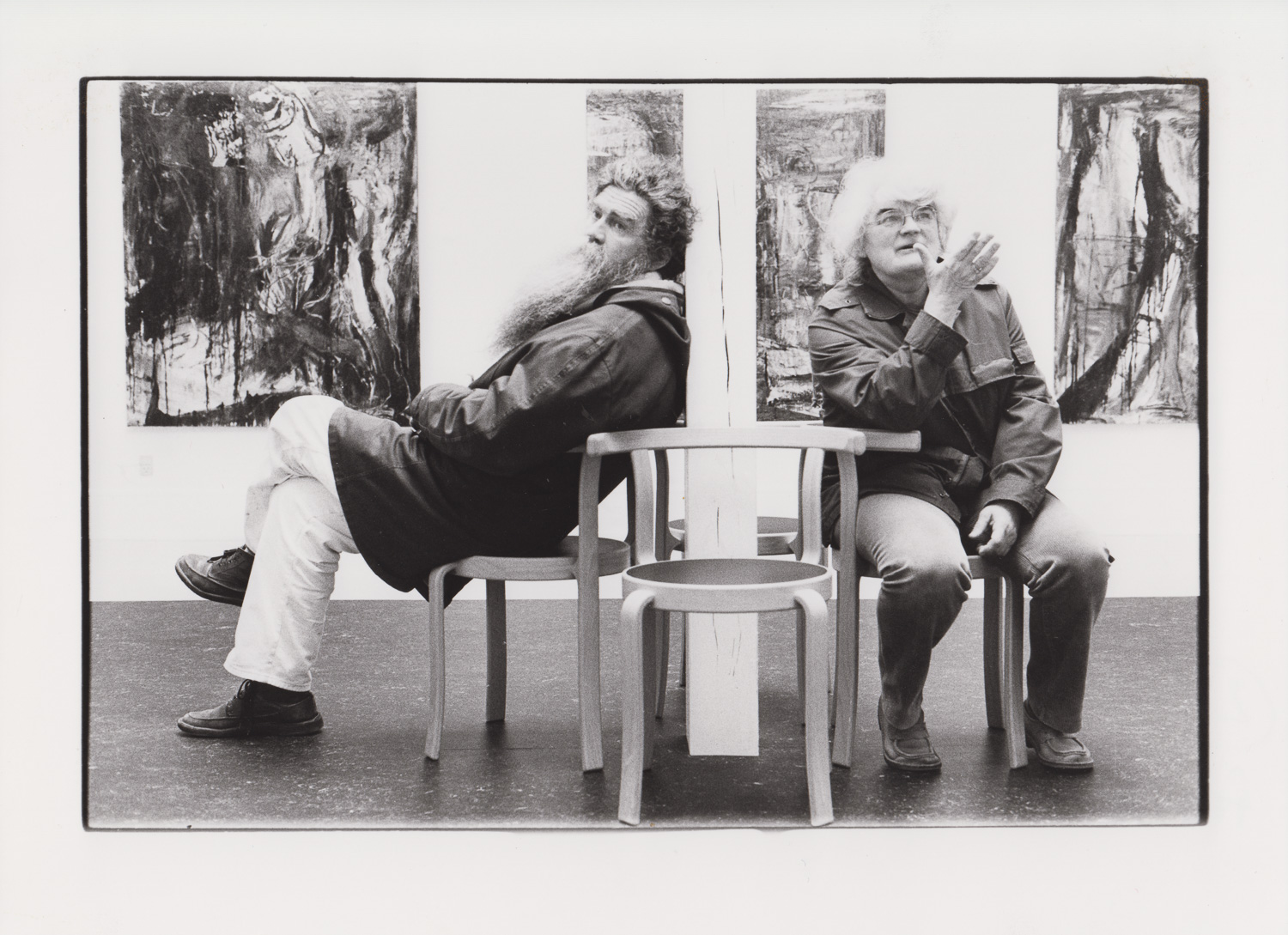
Poul and Aase back to back at Erik A. Fransen's exhibition at Horsens Kunstmuseum 1986.
Photo: Ulrikka Gernes
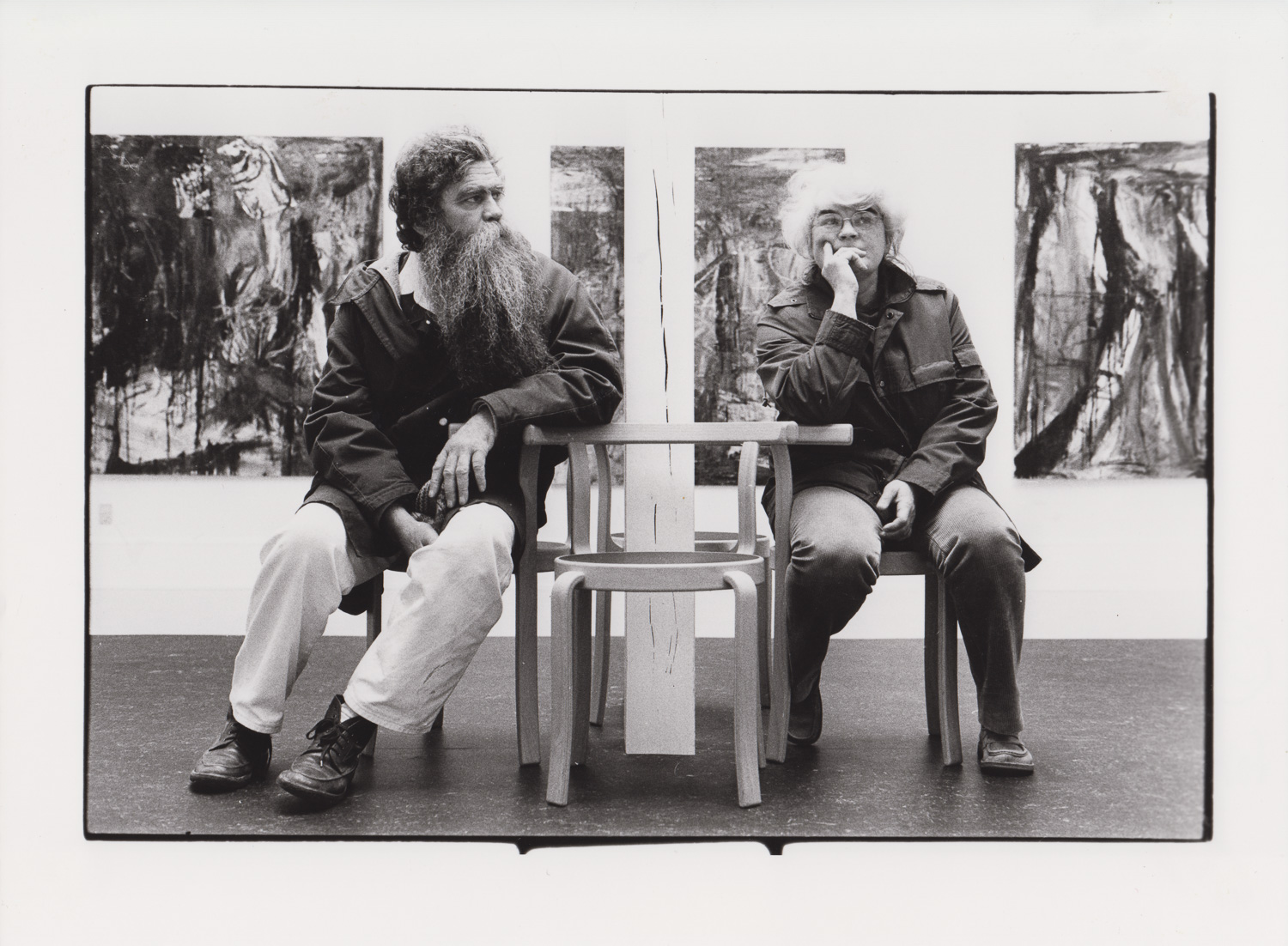
Poul and Aase back to back at Erik A. Fransen's exhibition at Horsens Kunstmuseum 1986.
Photo: Ulrikka Gernes
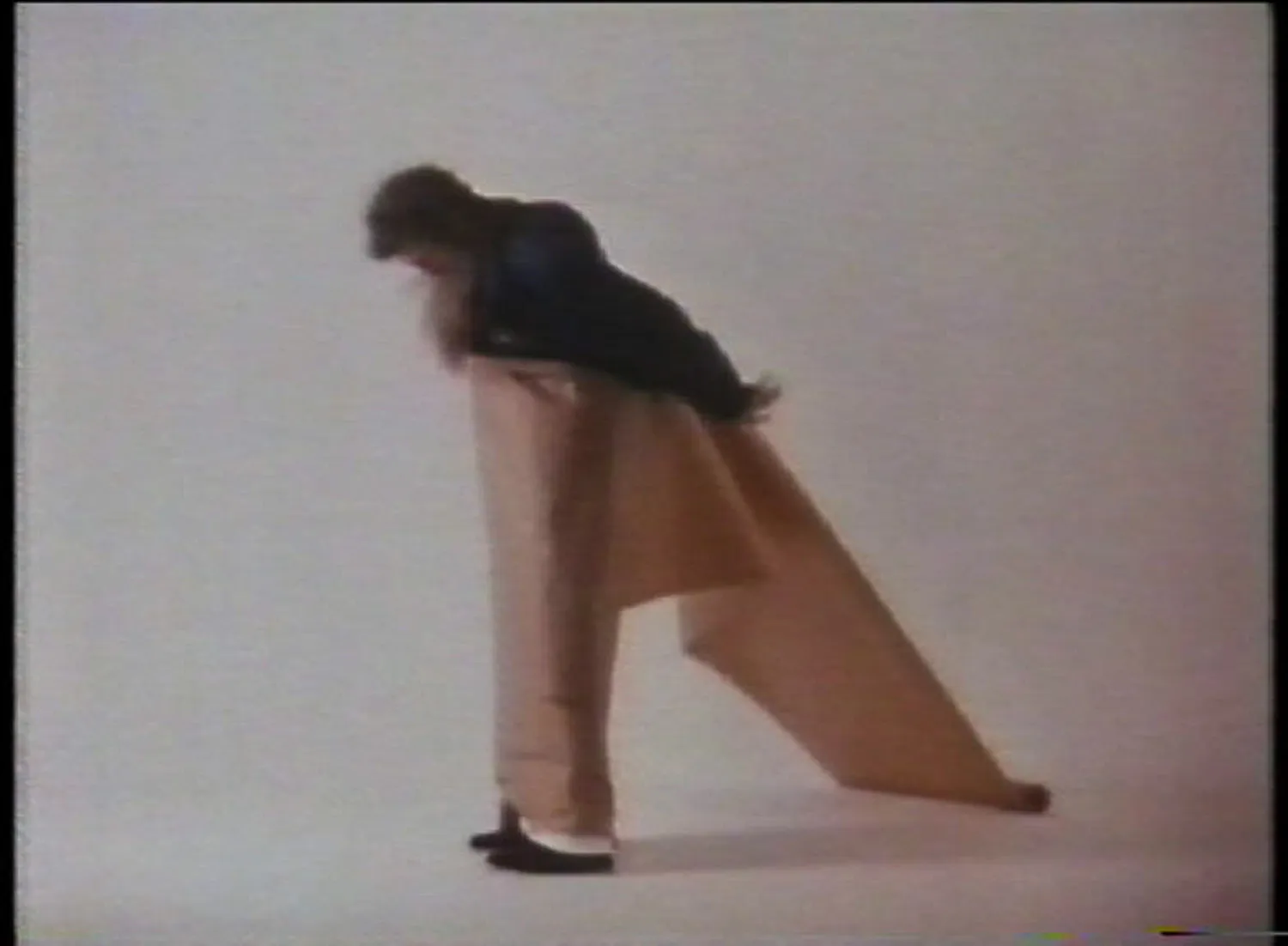
Still from filming Paper Happening, 1986
Photo: Ole John
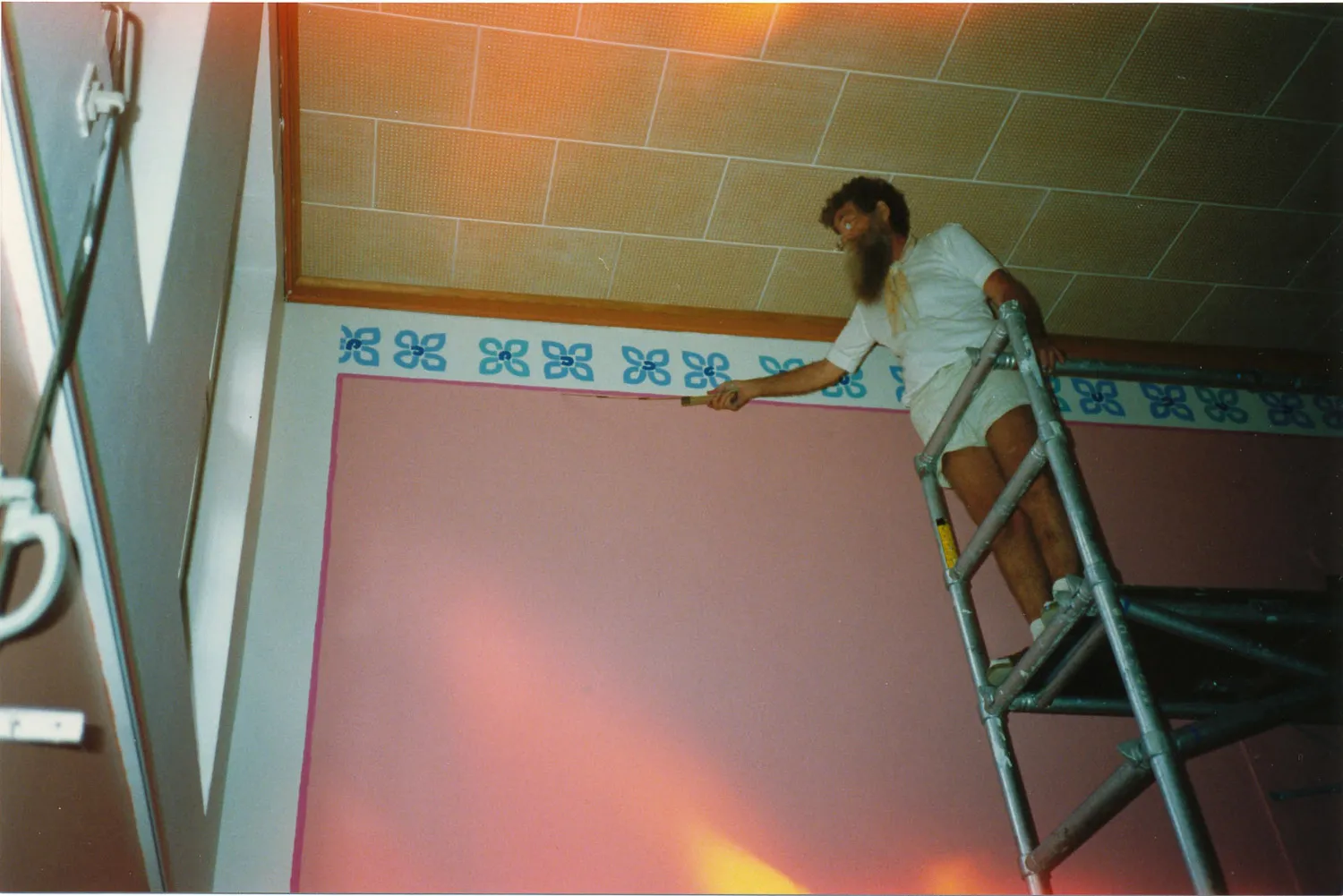
Decorating Skovly Boarding School, 1986
Photo: Aase Seidler Gernes
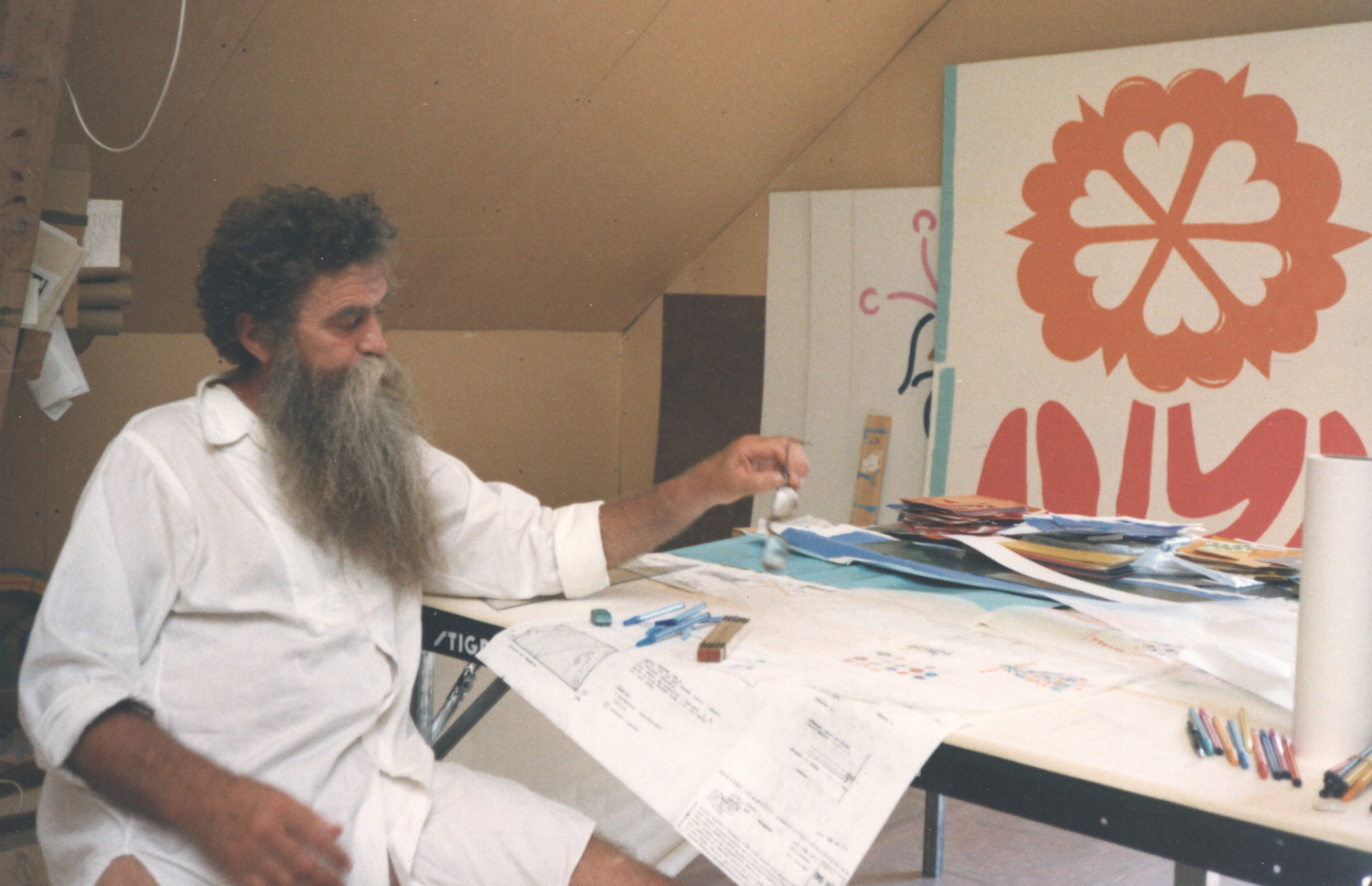
In the studio in Ekeröd, 1986
Photo: Aase Seidler Gernes
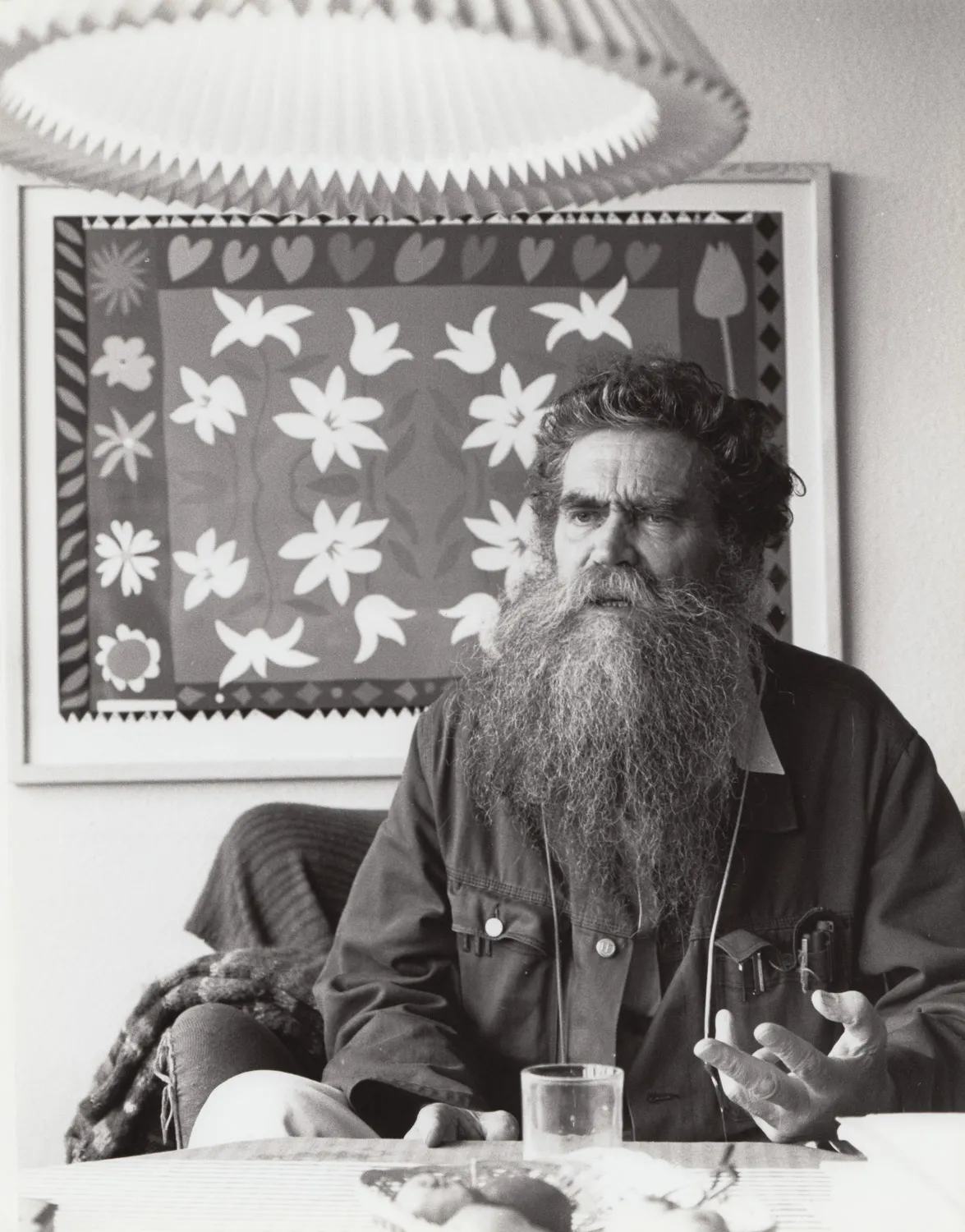
In the apartment at Utterslev Torv in 1987
Photo: Bo Jarner
.jpg)
In the apartment at Utterslev Torv in 1987
Photo: Bo Jarner
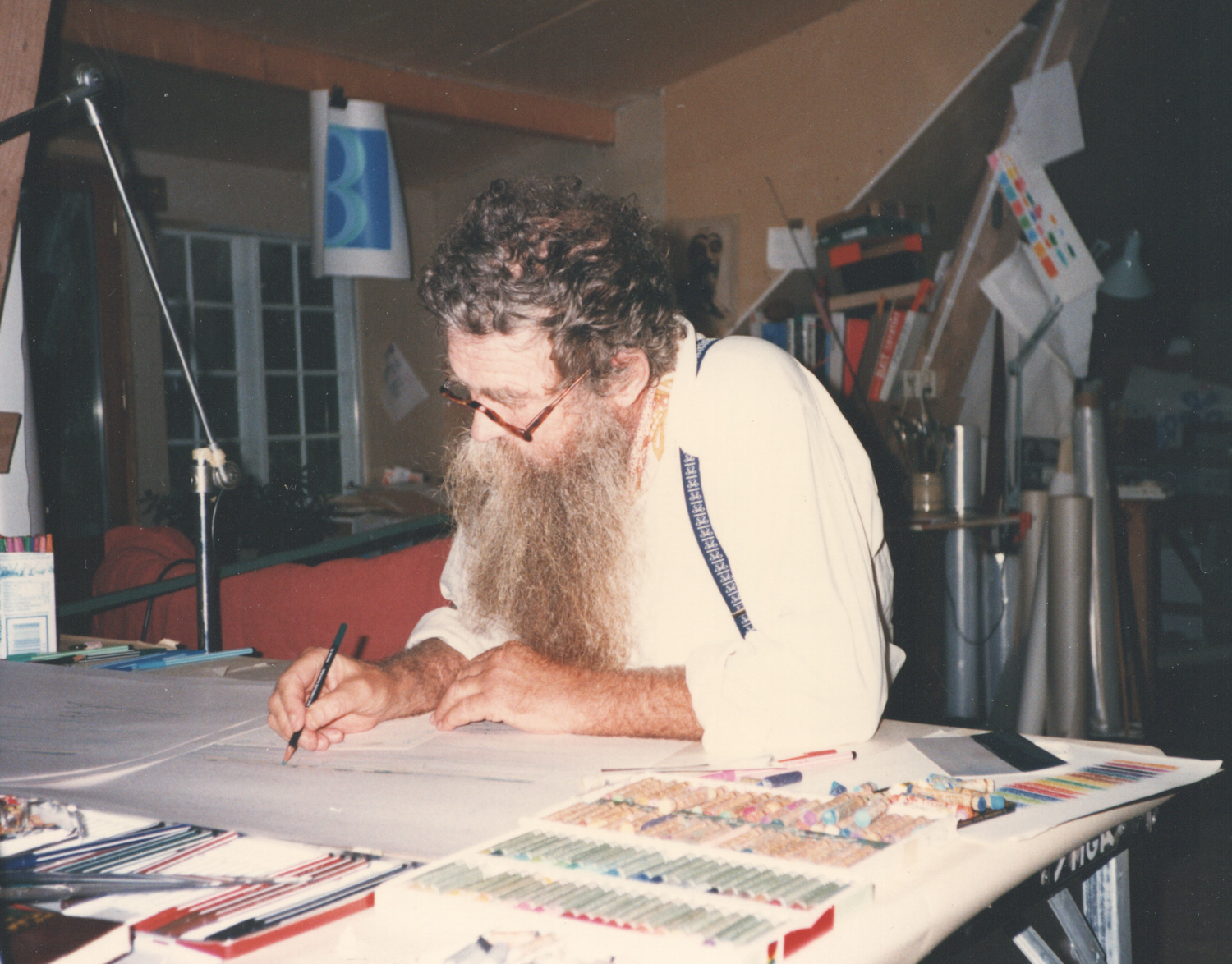
Working in the studio in Ekeröd, 1987
Photo: Aase Seidler Gernes
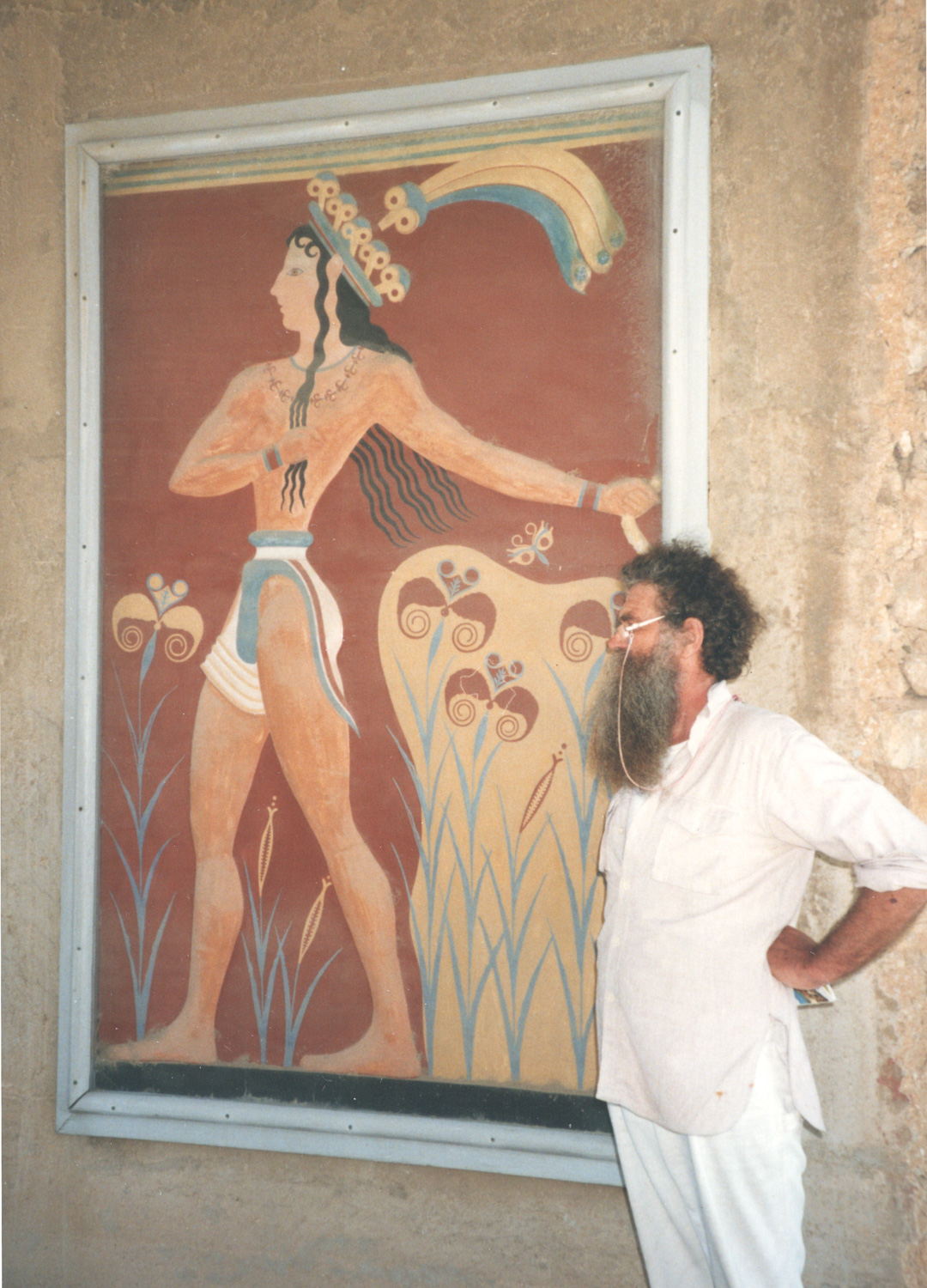
On Crete in 1987
Photo: Aase Seidler Gernes
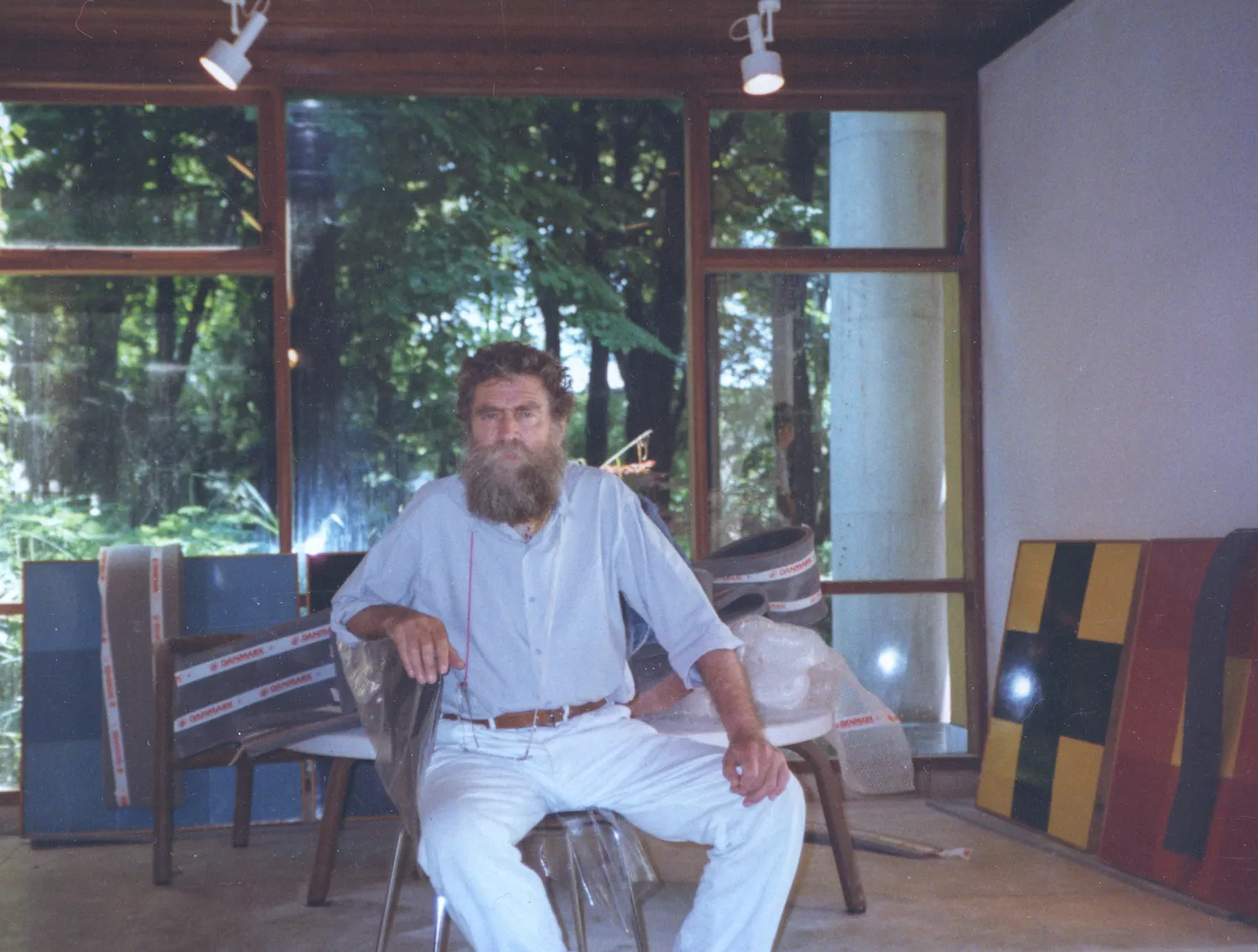
Poul Gernes at the Venice Biennale, 1988
Photo: Eva Karin Thomsen
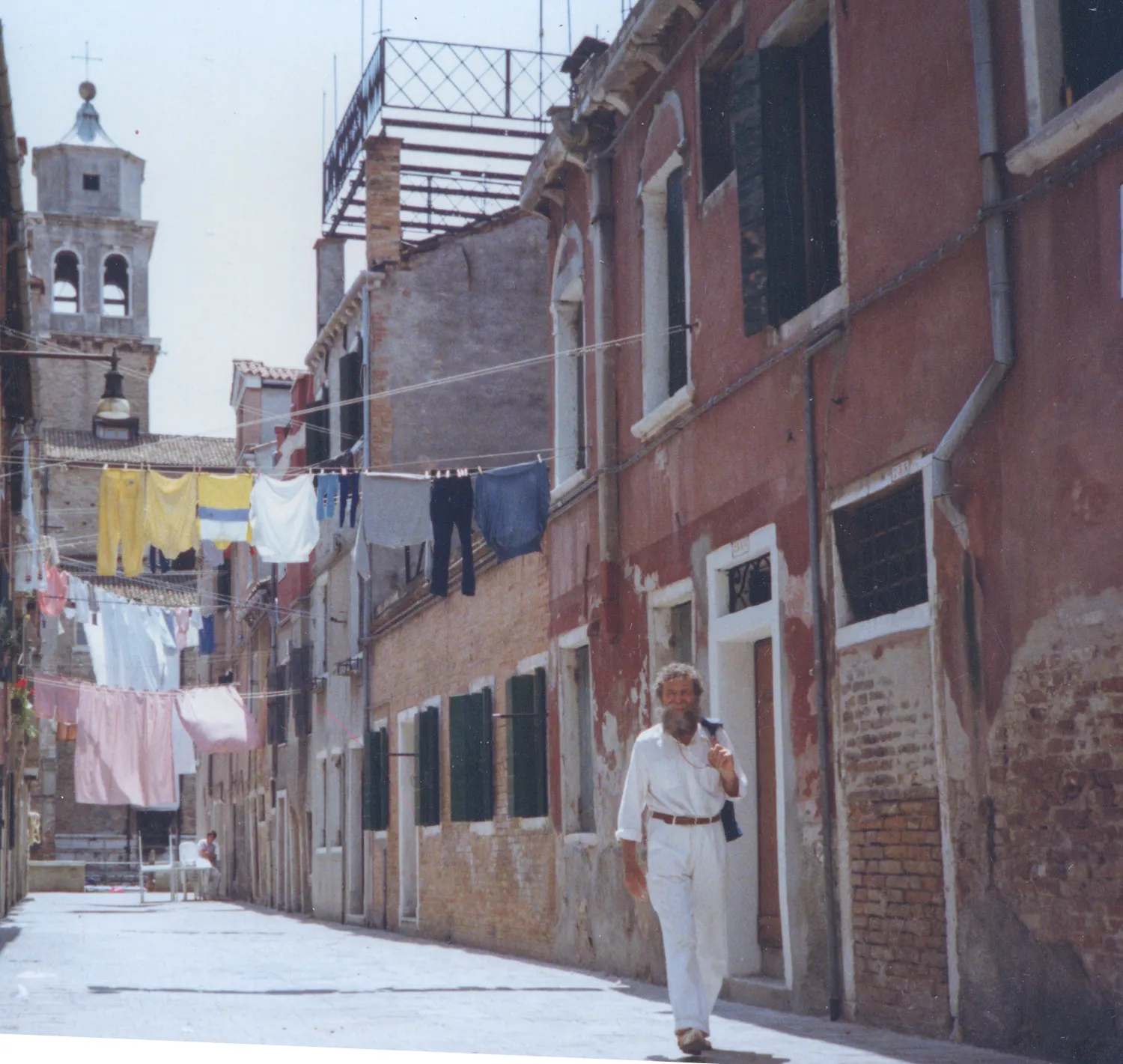
Walking in Venice, 1988
Photo: Eva Karin Thomsen
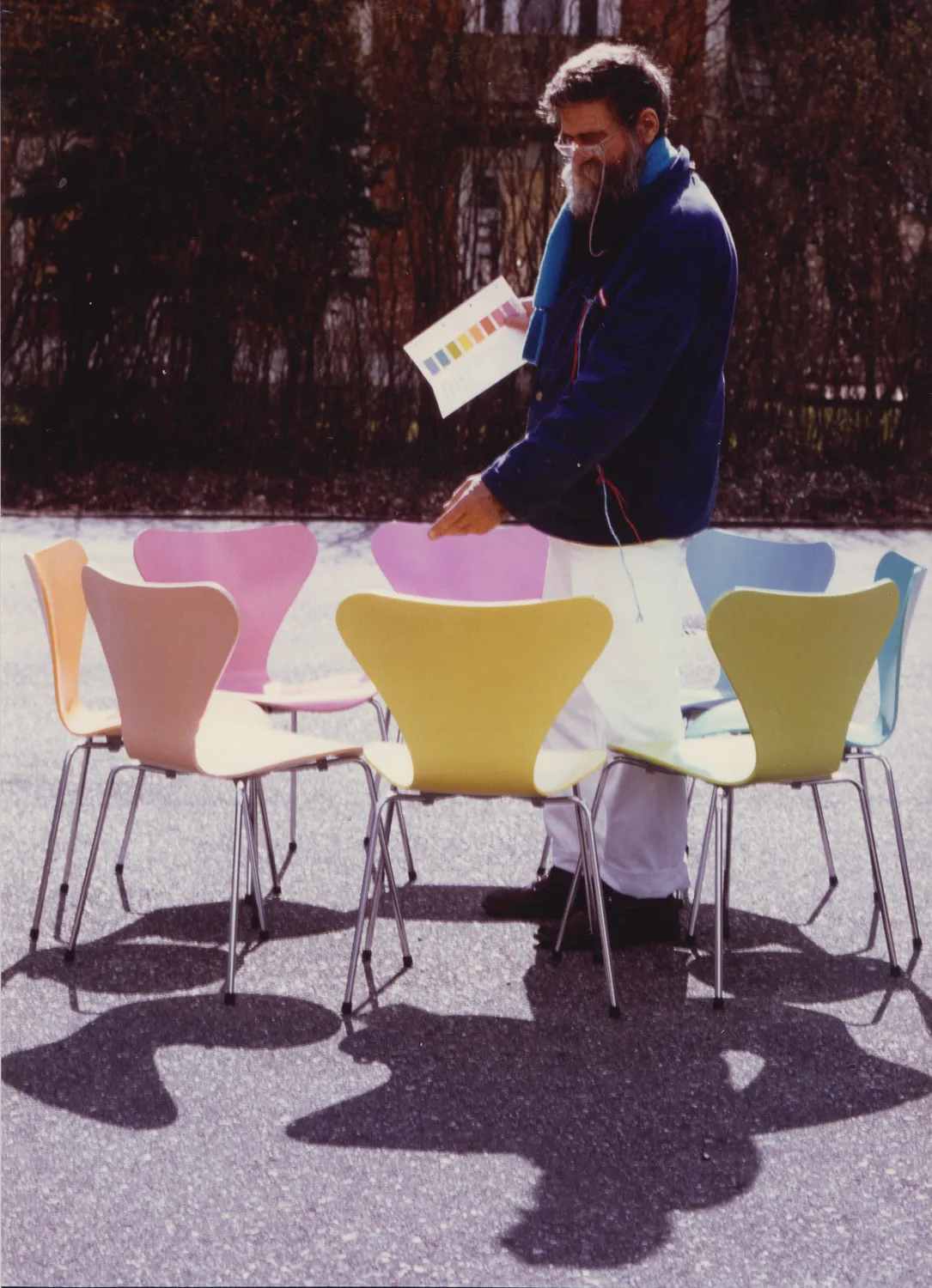
A new colour collection for the Arne Jacobsen Series 7 chair In 1988
Photo: Fritz Hansen
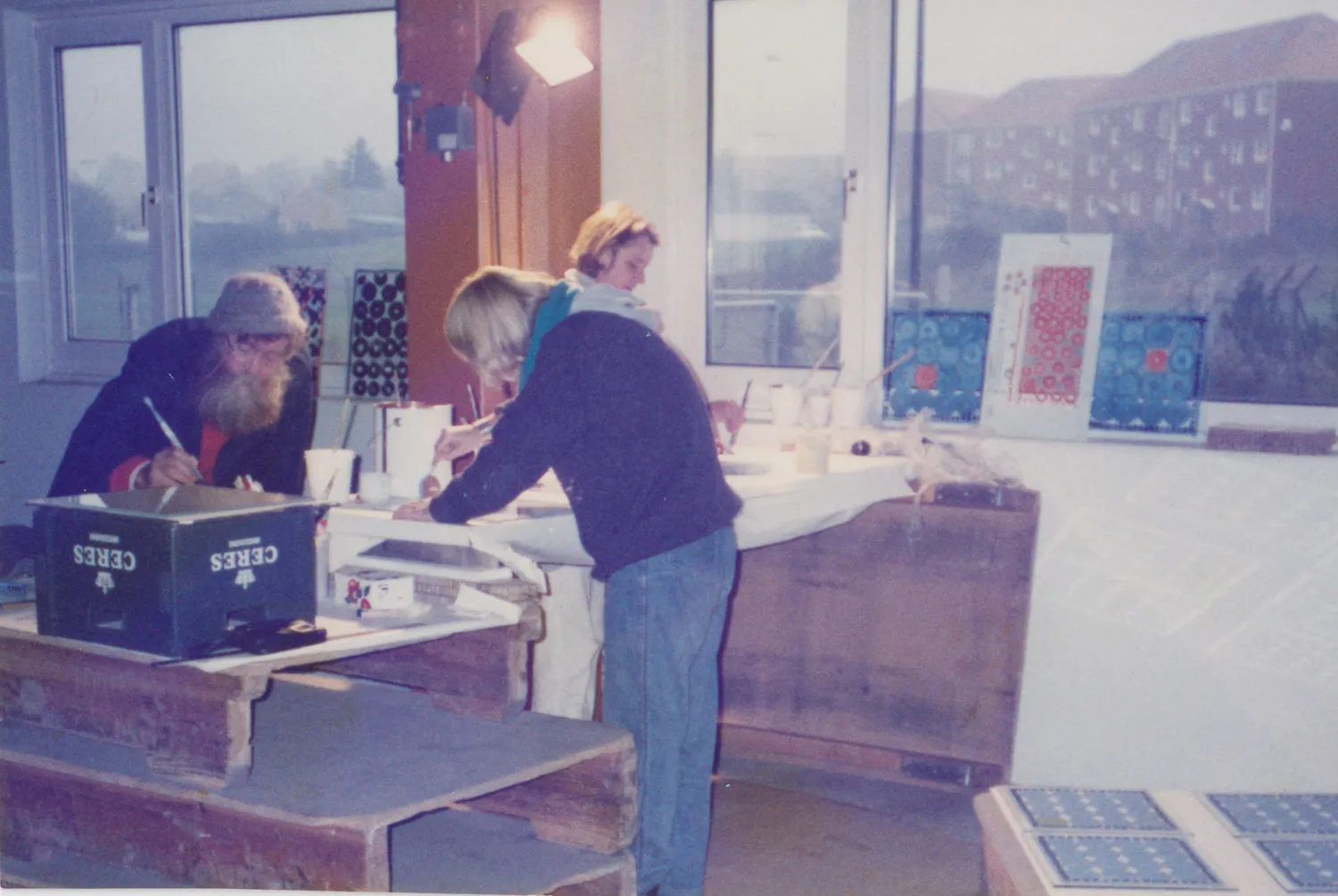
Working on the glass wall for Hotel Trouville, 1988
Photo: Aase Seidler Gernes
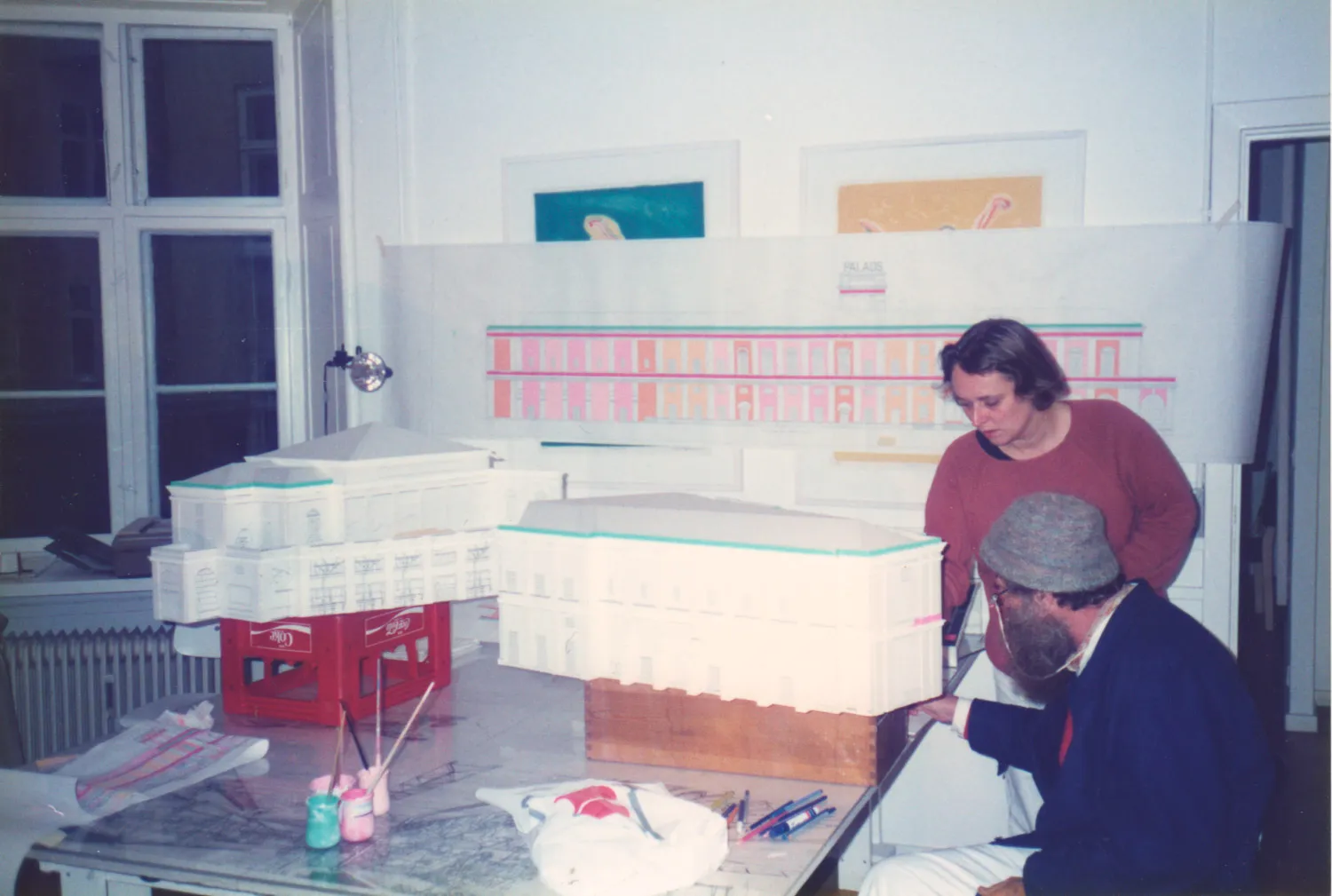
Working on the model for the Palads Theatre with student Helene Willumsen in 1988
Photo: ukendt / unknown
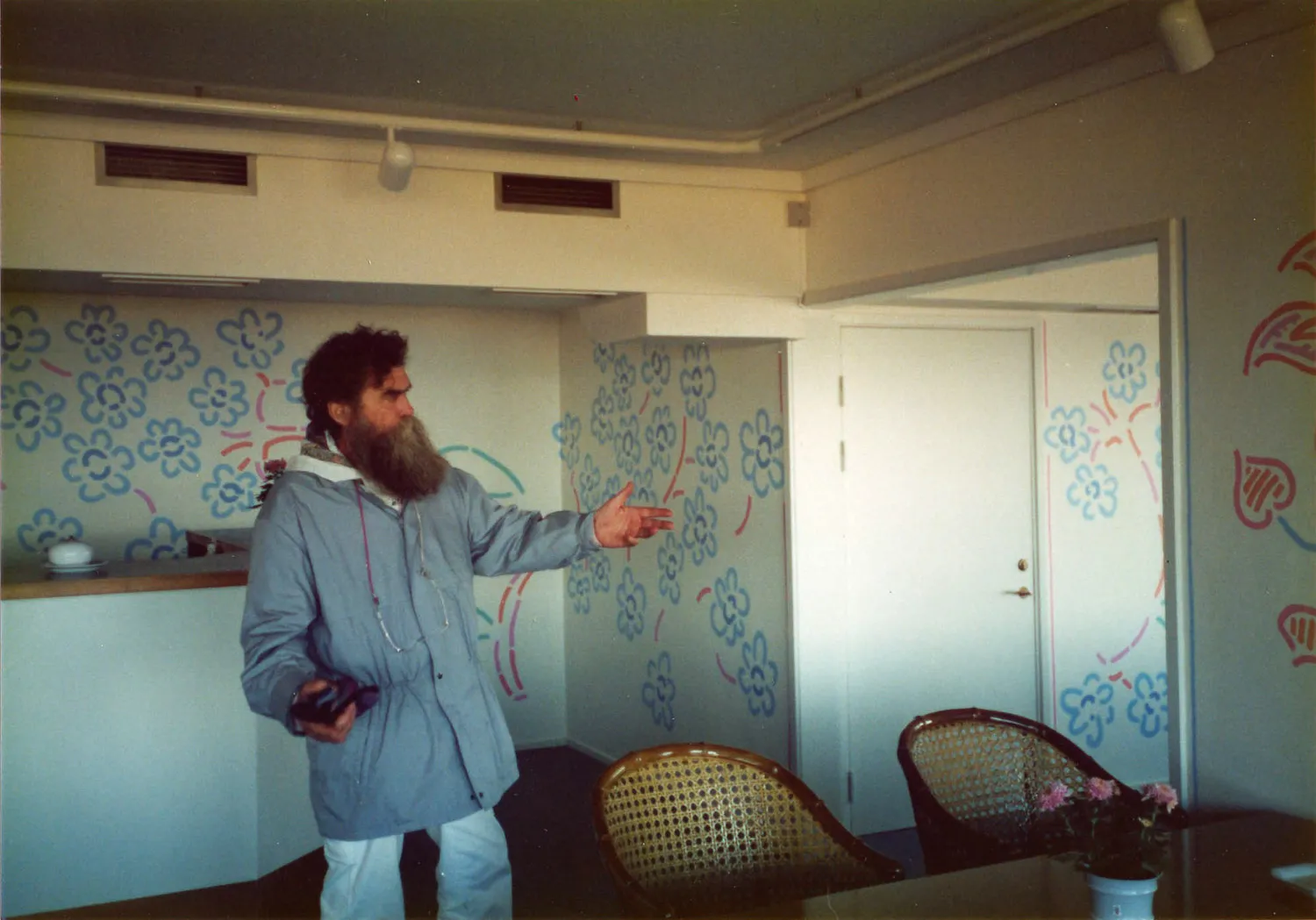
Decorating Hotel Trouville in Hornbæk, 1988
Photo: ukendt / unknown
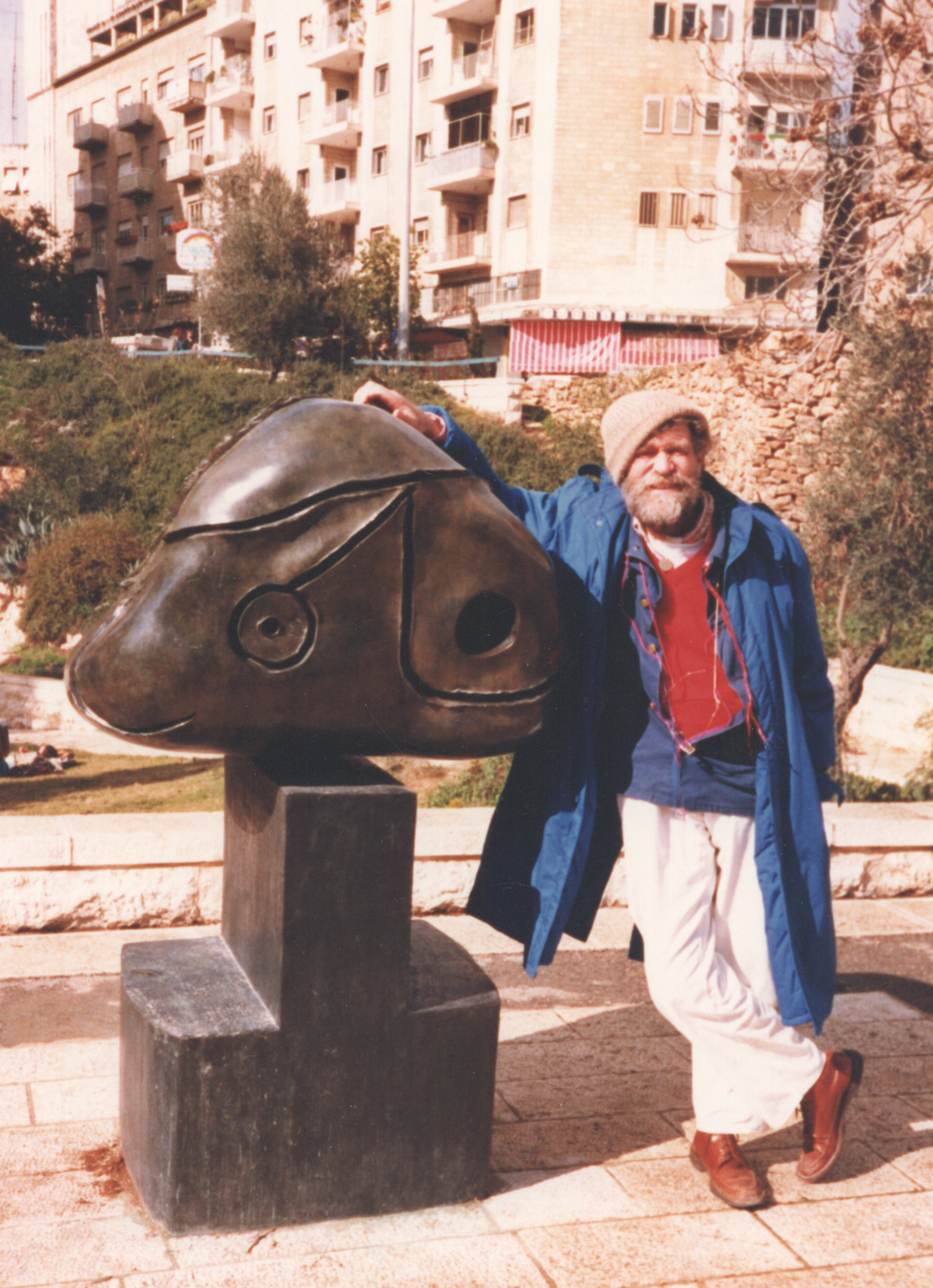
By Miró sculpture in Jérusalem, 1988
Photo: Ulrikka Gernes
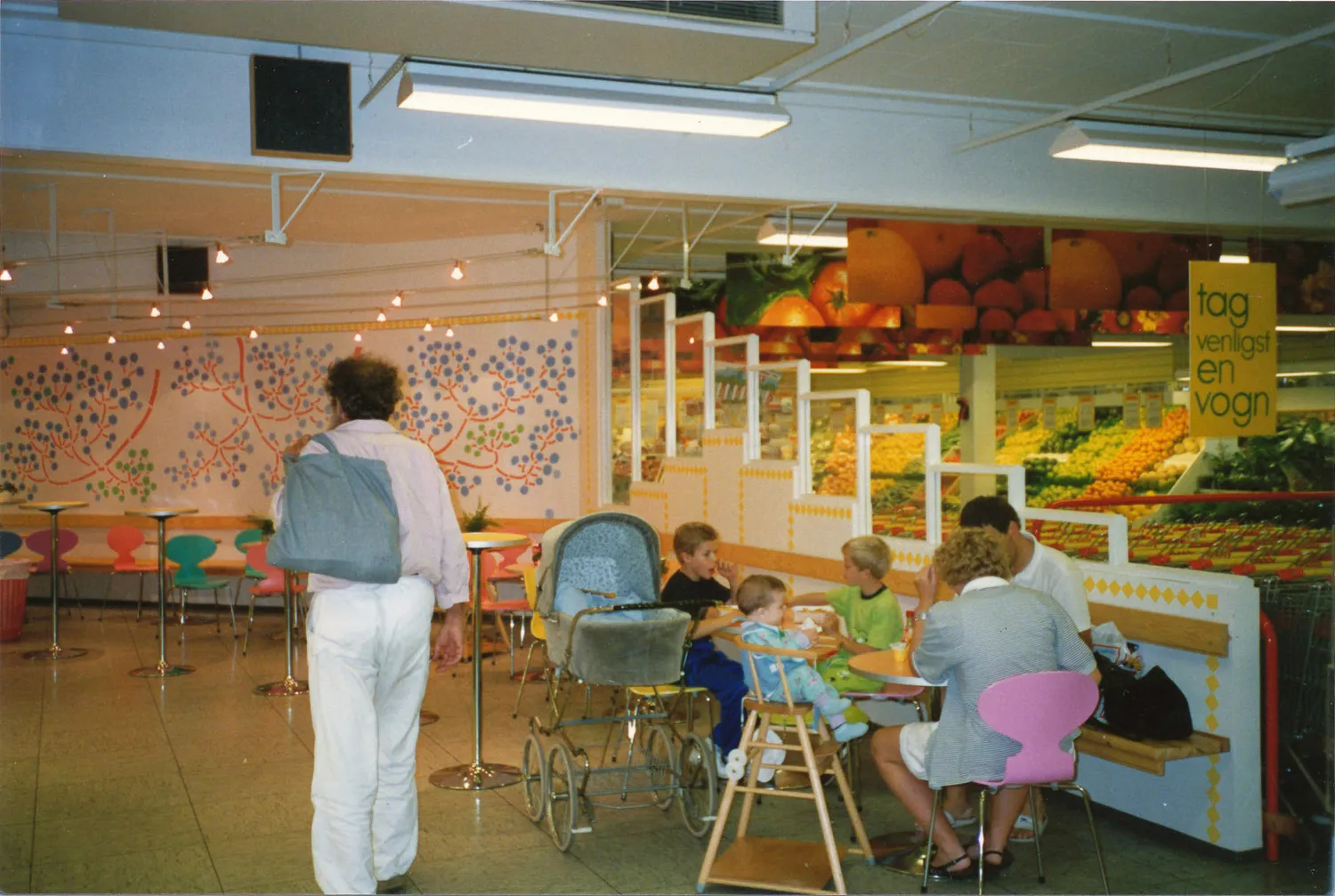
Kvickly supermarket in Nexø, 1989
Photo: Aase Seidler Gernes
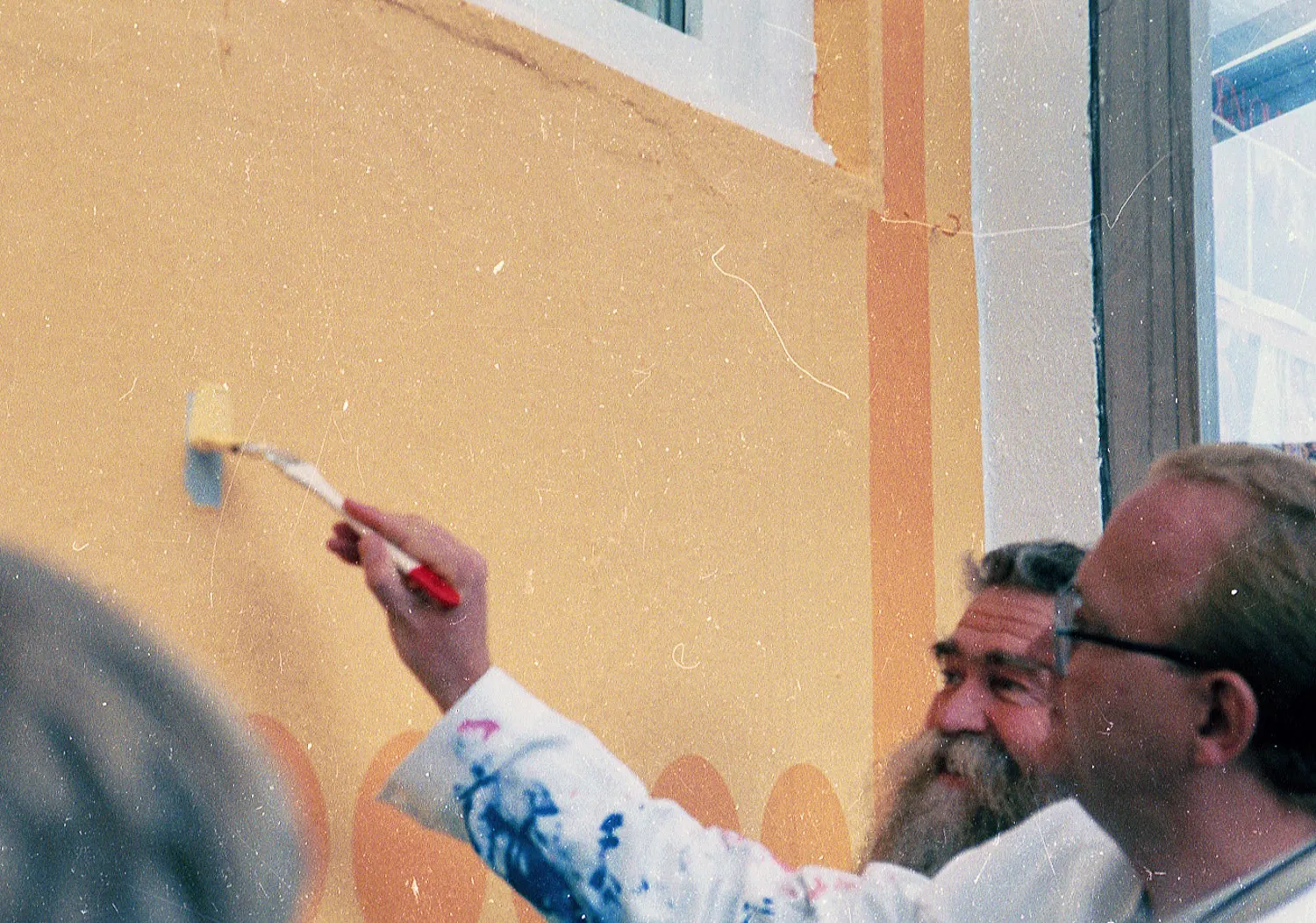
Adding the finishing touches to the Palads decoration, 1989, together with Lord Mayor Jens Kramer Mikkelsen
Photo: Claus Jørgensen Muldstrup
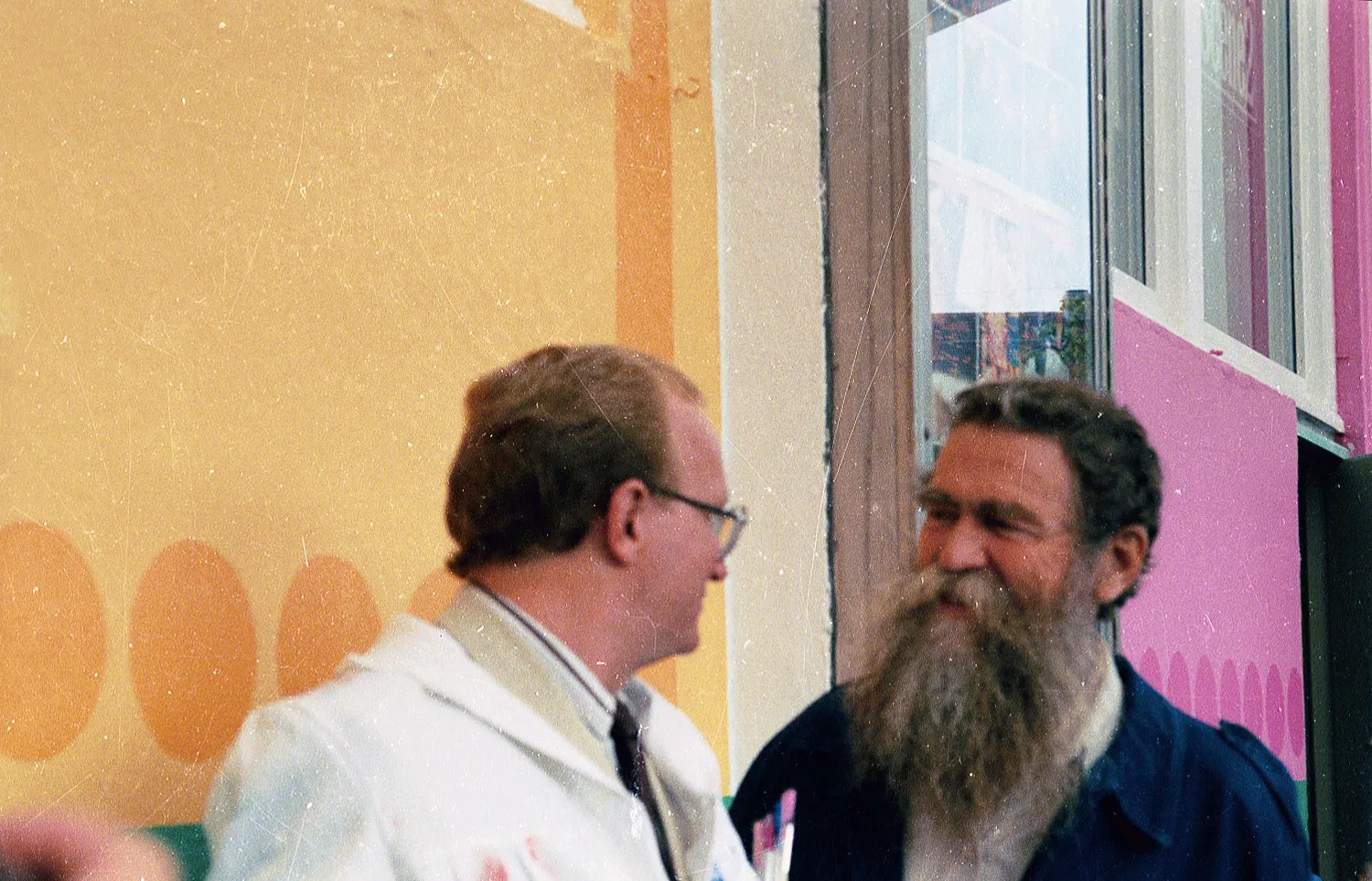
At the inauguration of the Palads decoration in September 1989 together with Lord Mayor Jens Kramer Mikkelsen
Photo: Claus Jørgensen Muldstrup
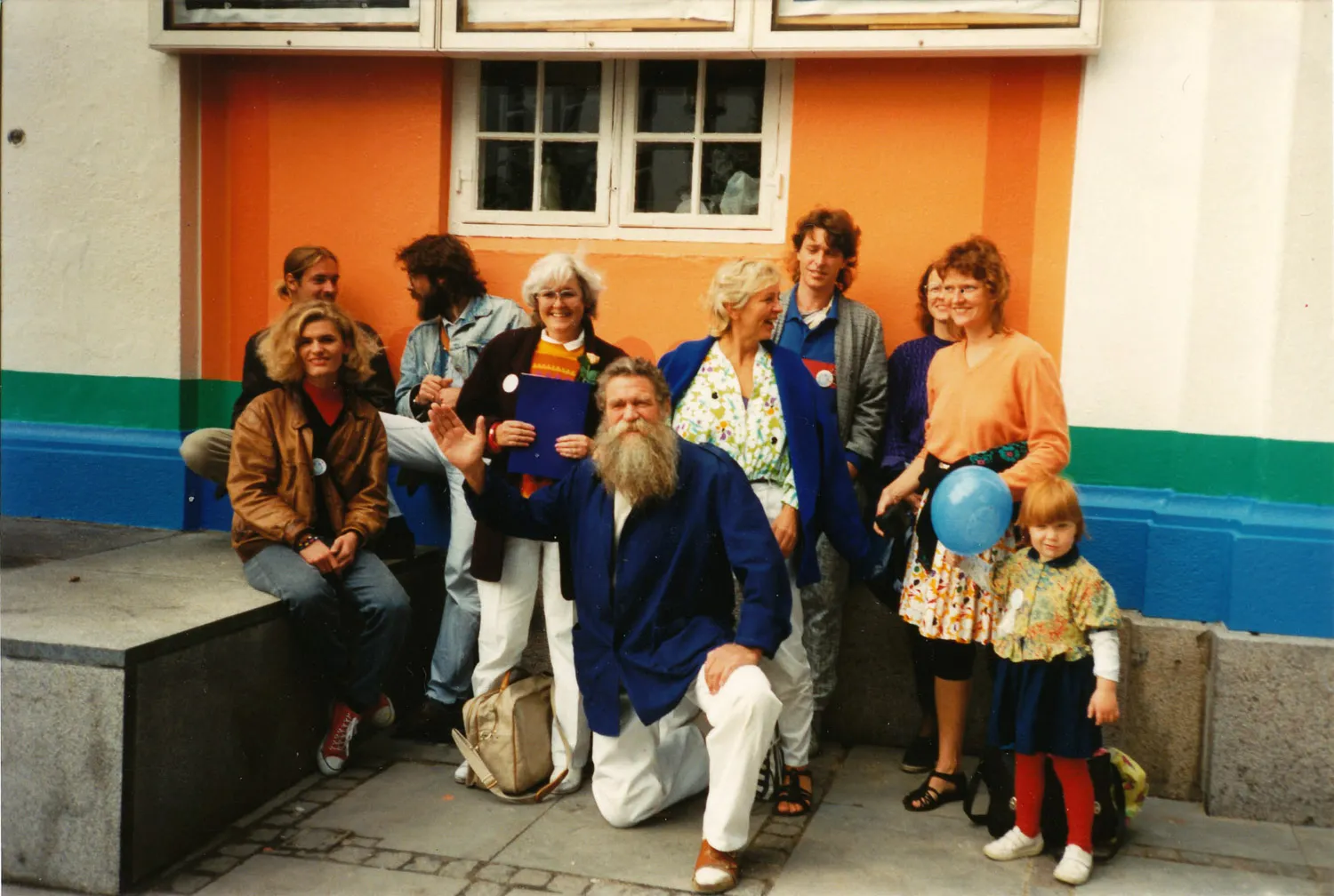
With the decoration team at Palads, 1989
Photo: ukendt / unknown
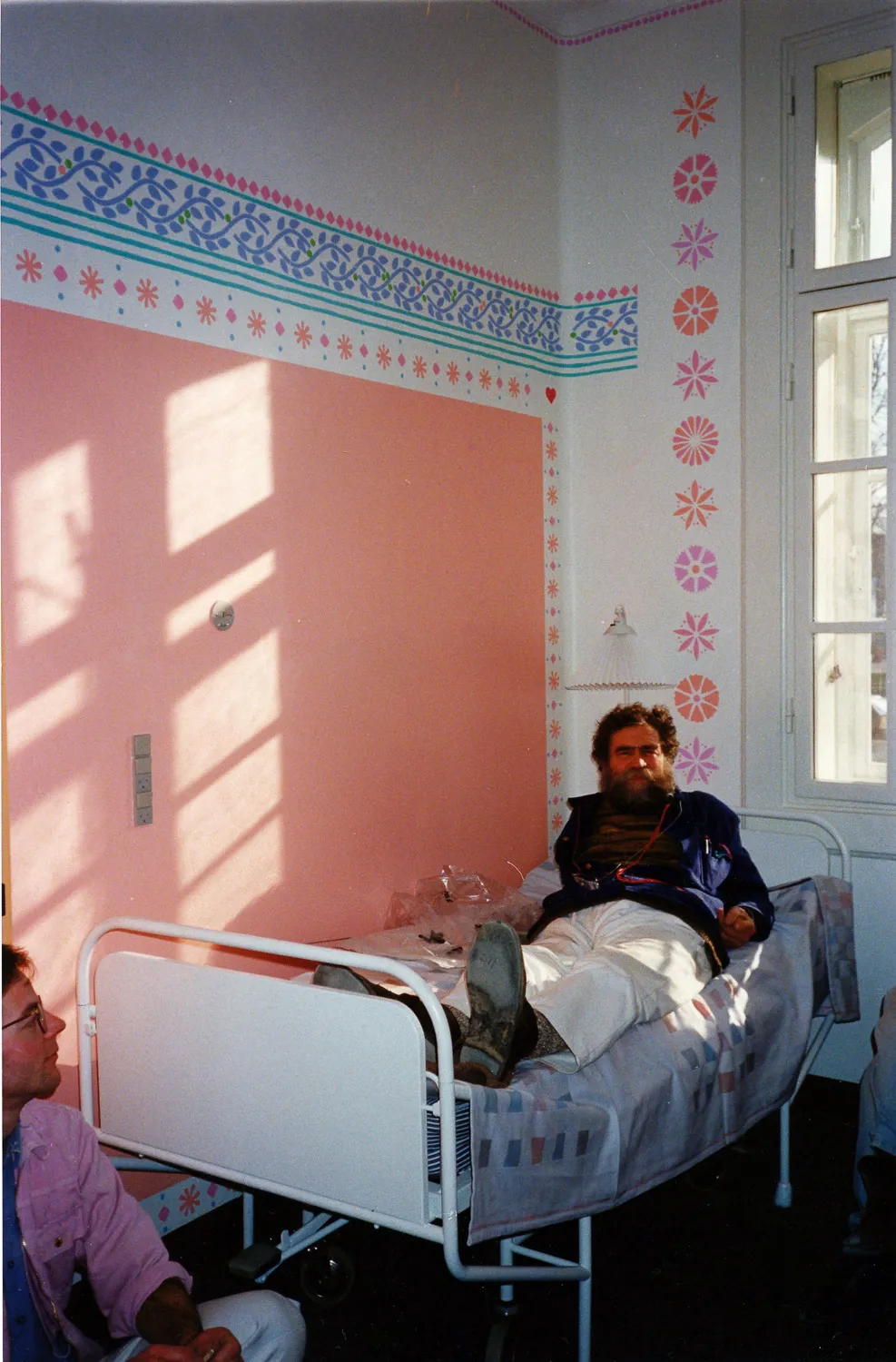
Decorating the psychiatric ward at Frederiksberg Hospital, 1989
Photo: ukendt / unknown
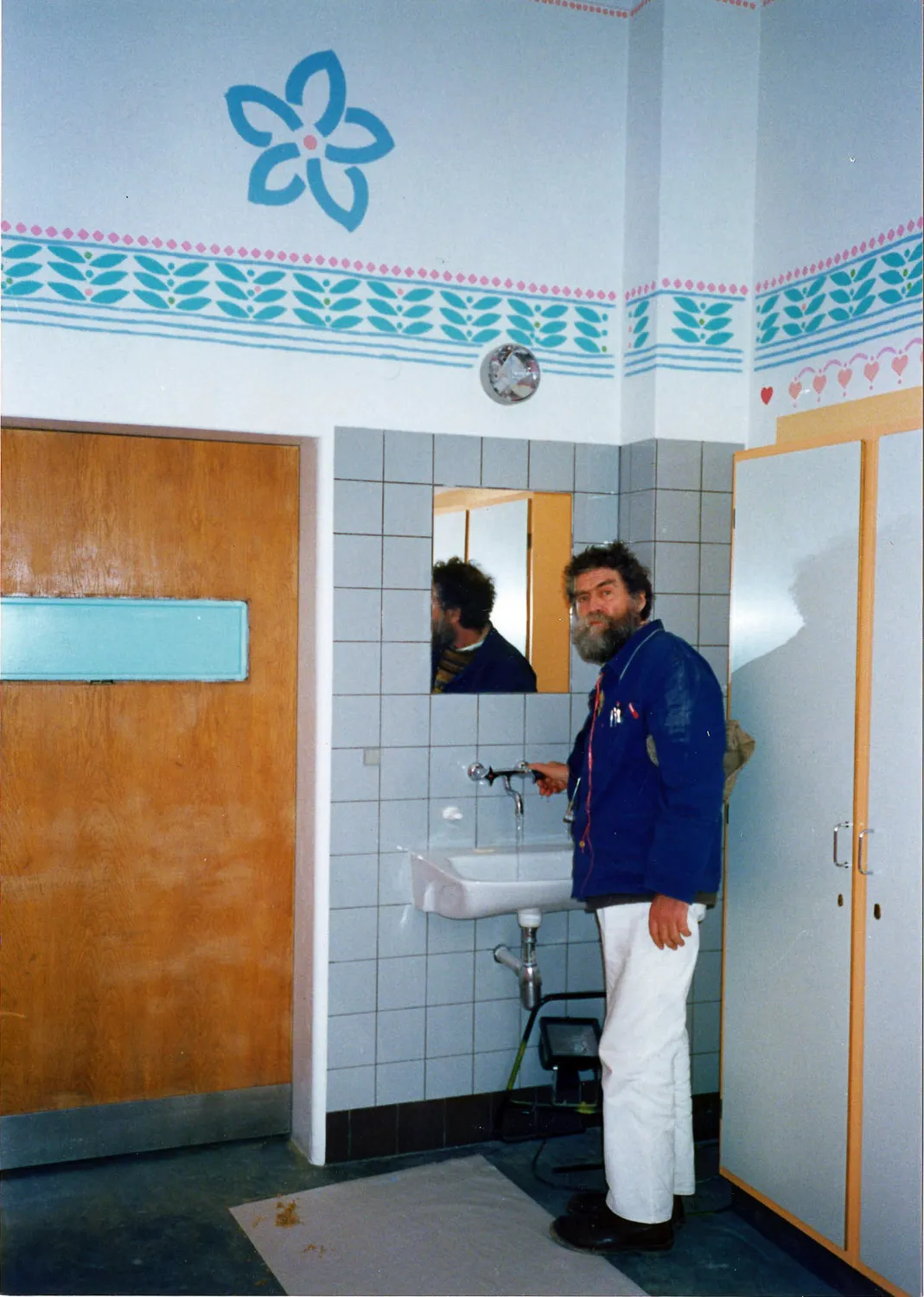
Decorating the psychiatric ward at Frederiksberg Hospital, 1989
Photo: ukendt / unknown
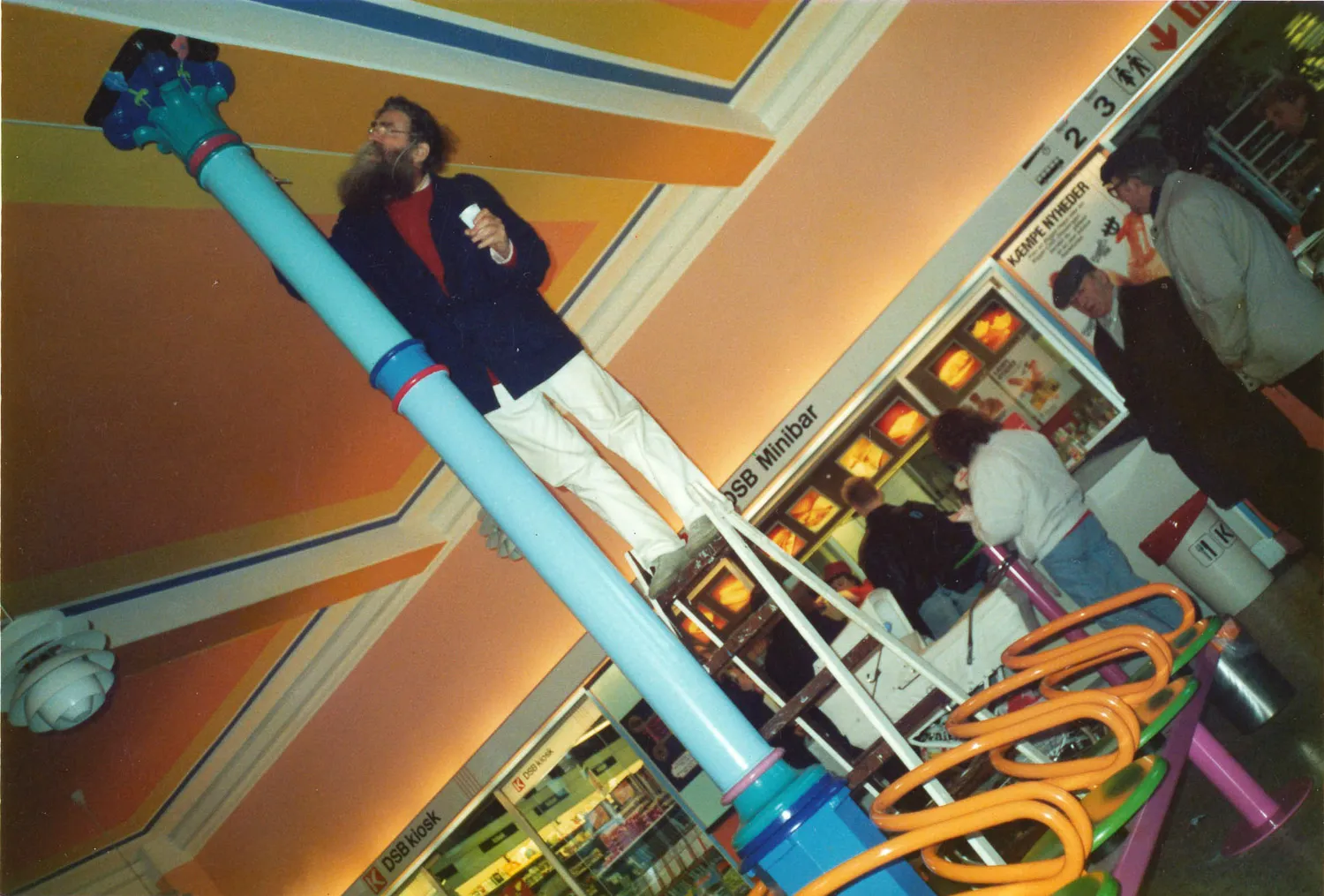
Decorating Svendborg Train Station, 1989
Photo: Aase Seidler Gernes
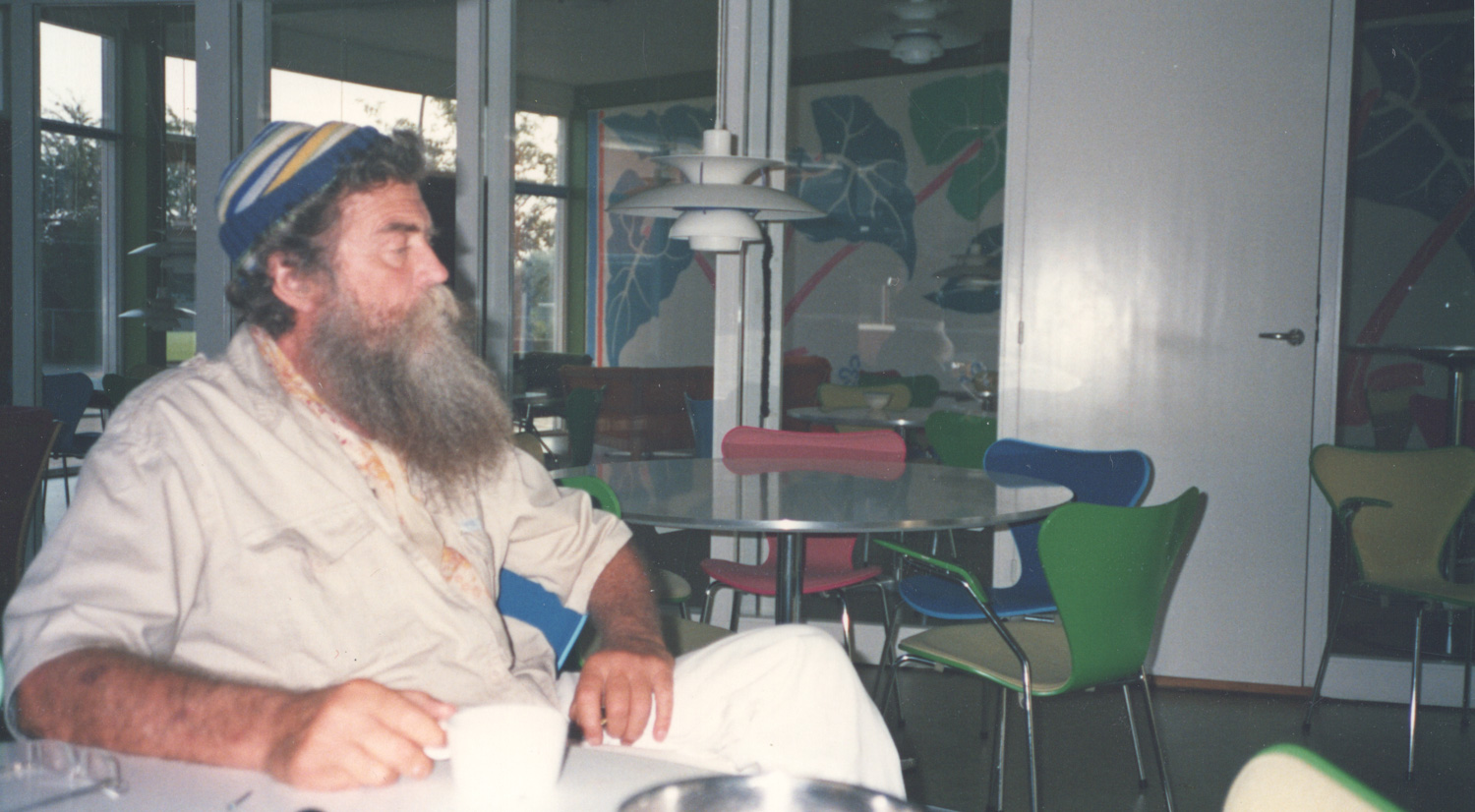
In the teachers' room at Nexø School, 1989 (today Paradisbakke School)
Photo: Aase Seidler Gernes
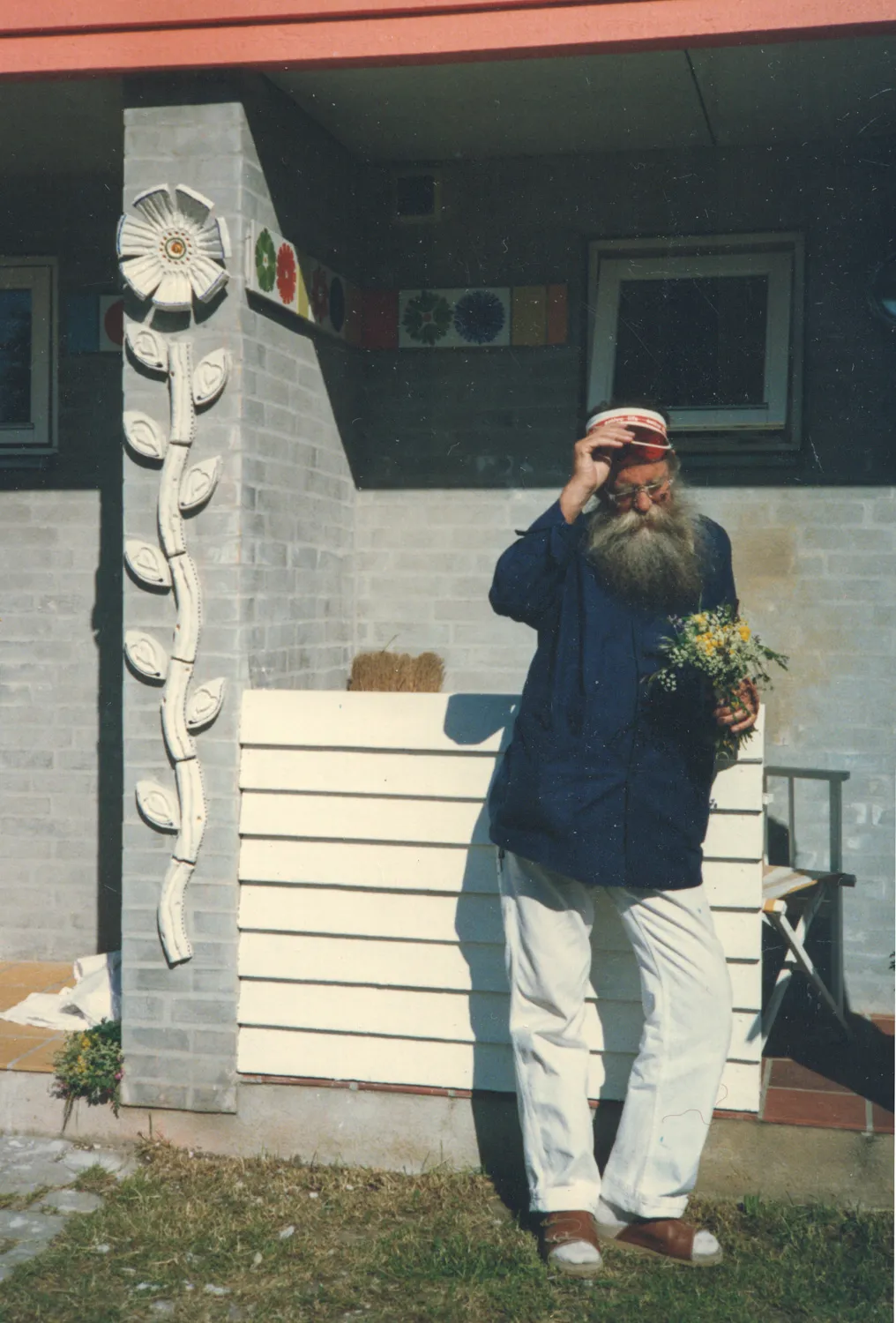
During the decoration of Lille Grundet Housing Cooperative, 1989
Photo: Eva Karin Thomsen
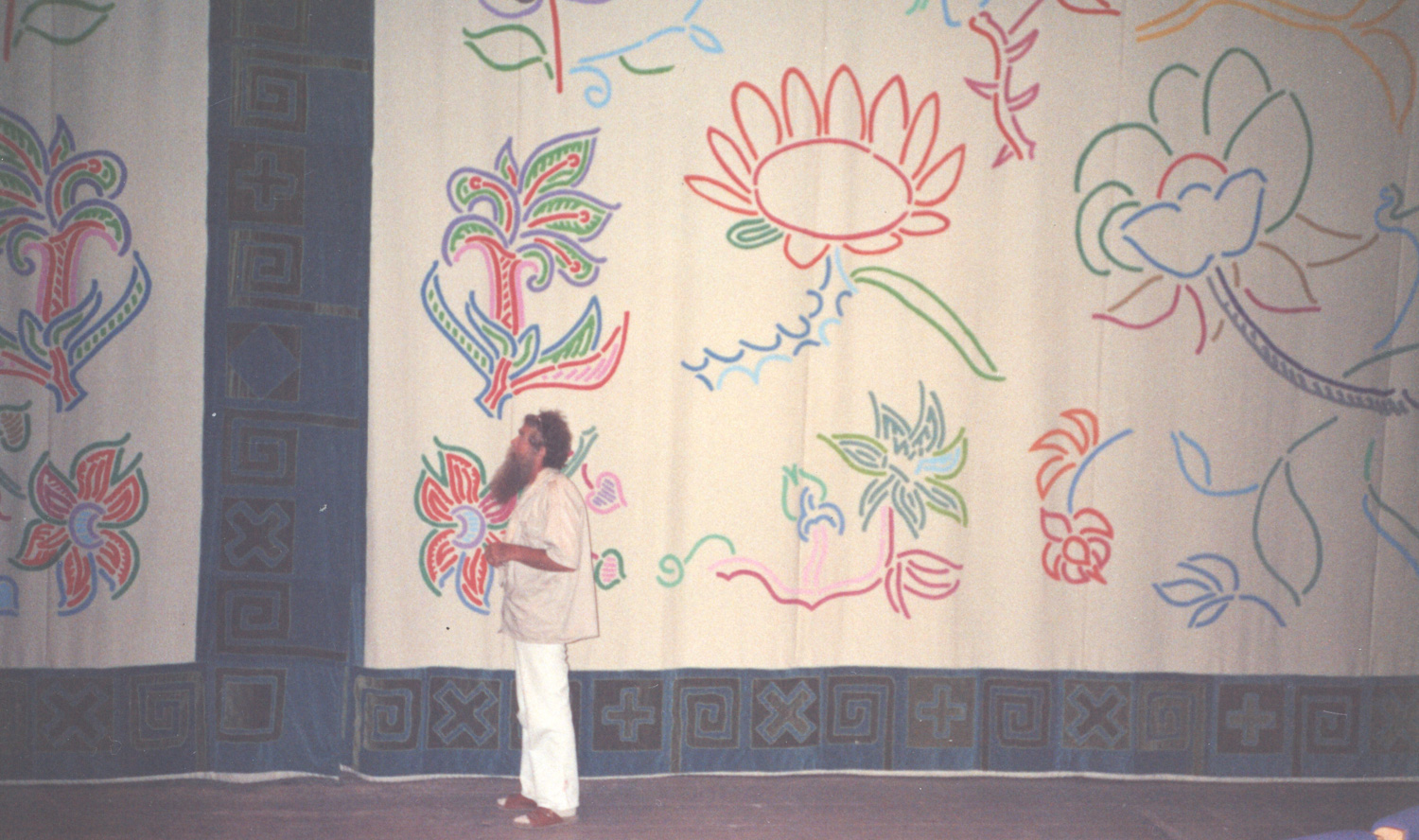
Morsø Theatre, 1990
Photo: Aase Seidler Gernes
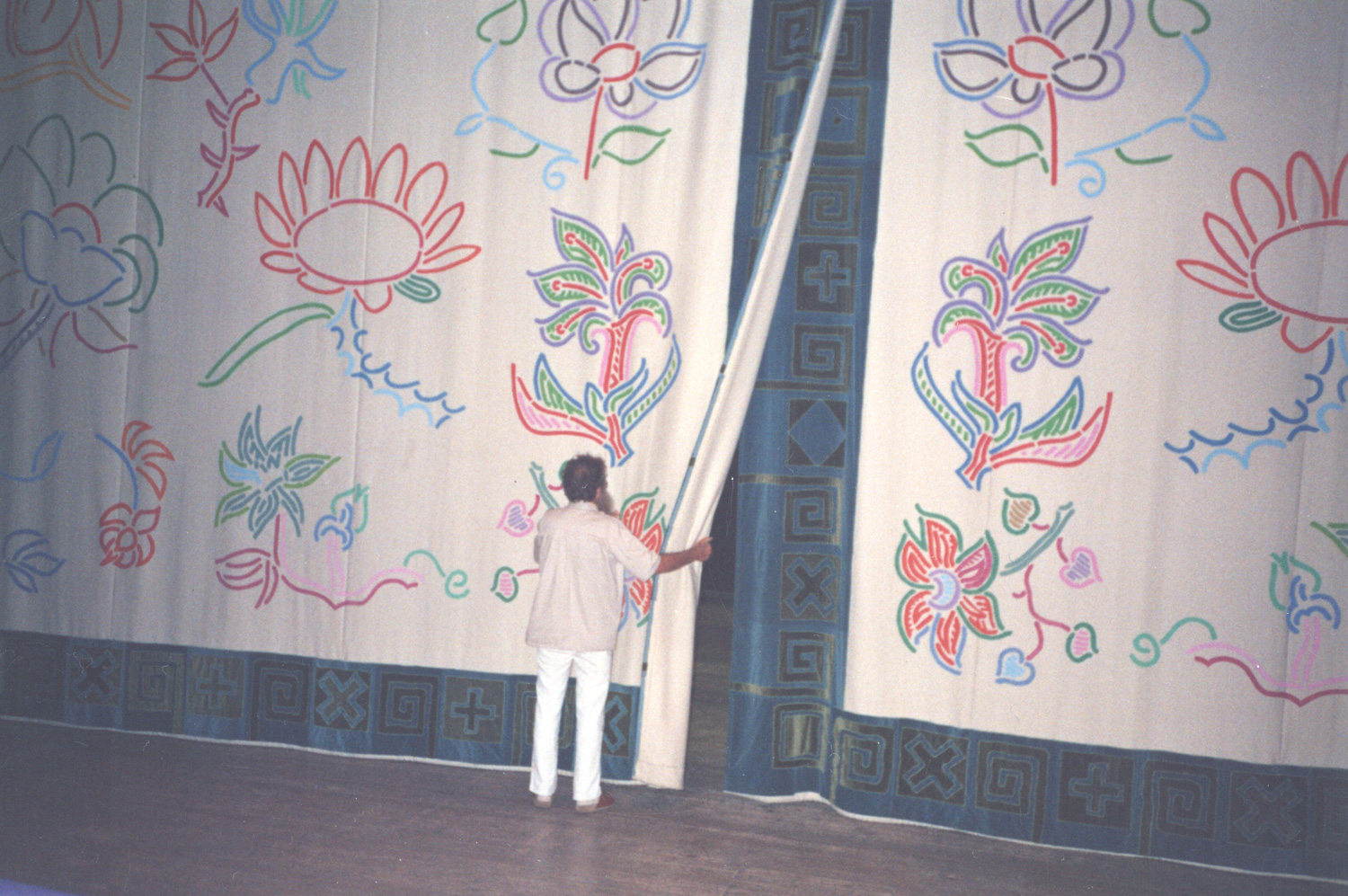
Morsø Theatre, 1990
Photo: Aase Seidler Gernes
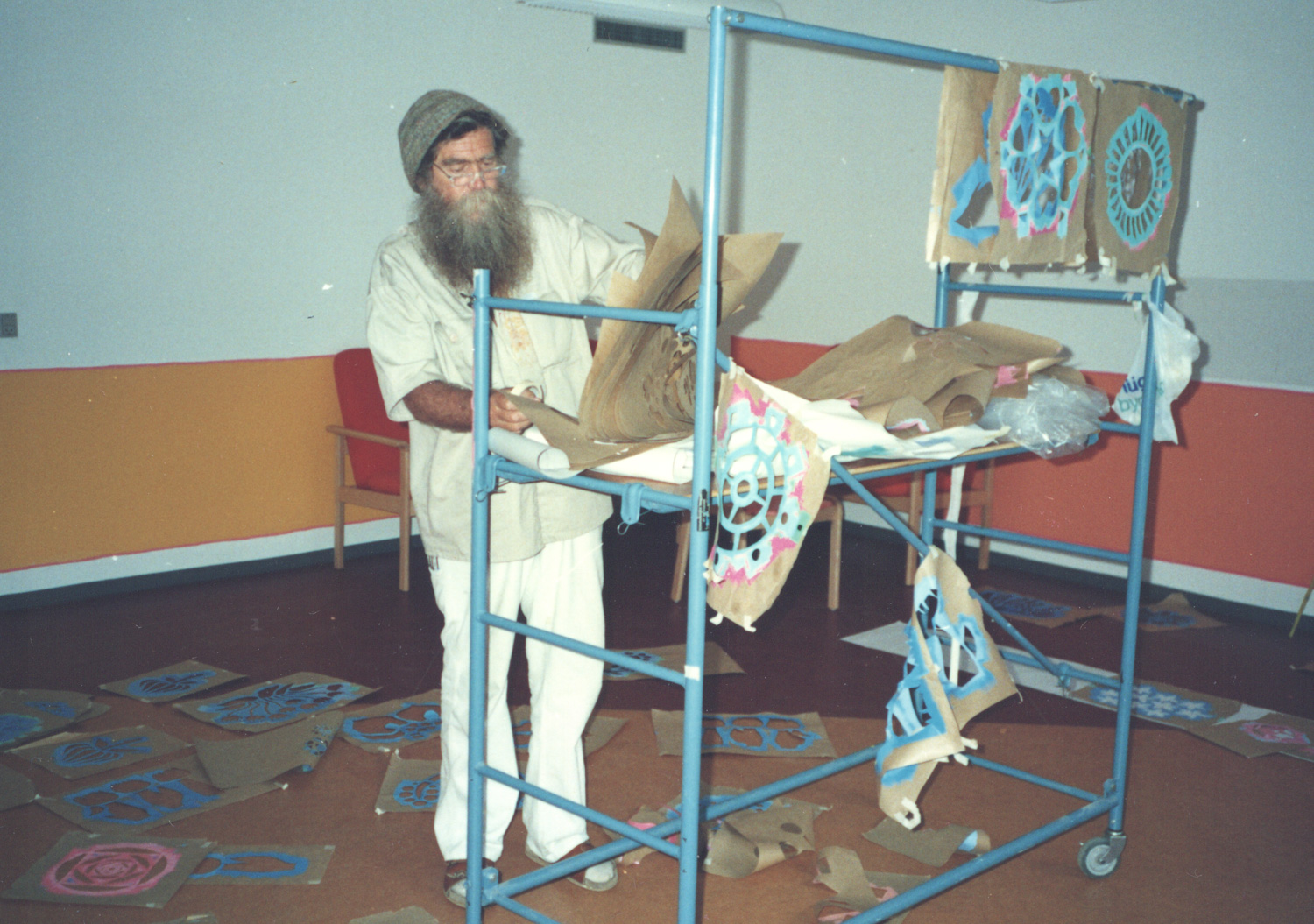
Attending to the stencils at Næstved Central Hospital, 1990
Photo: Aase Seidler Gernes
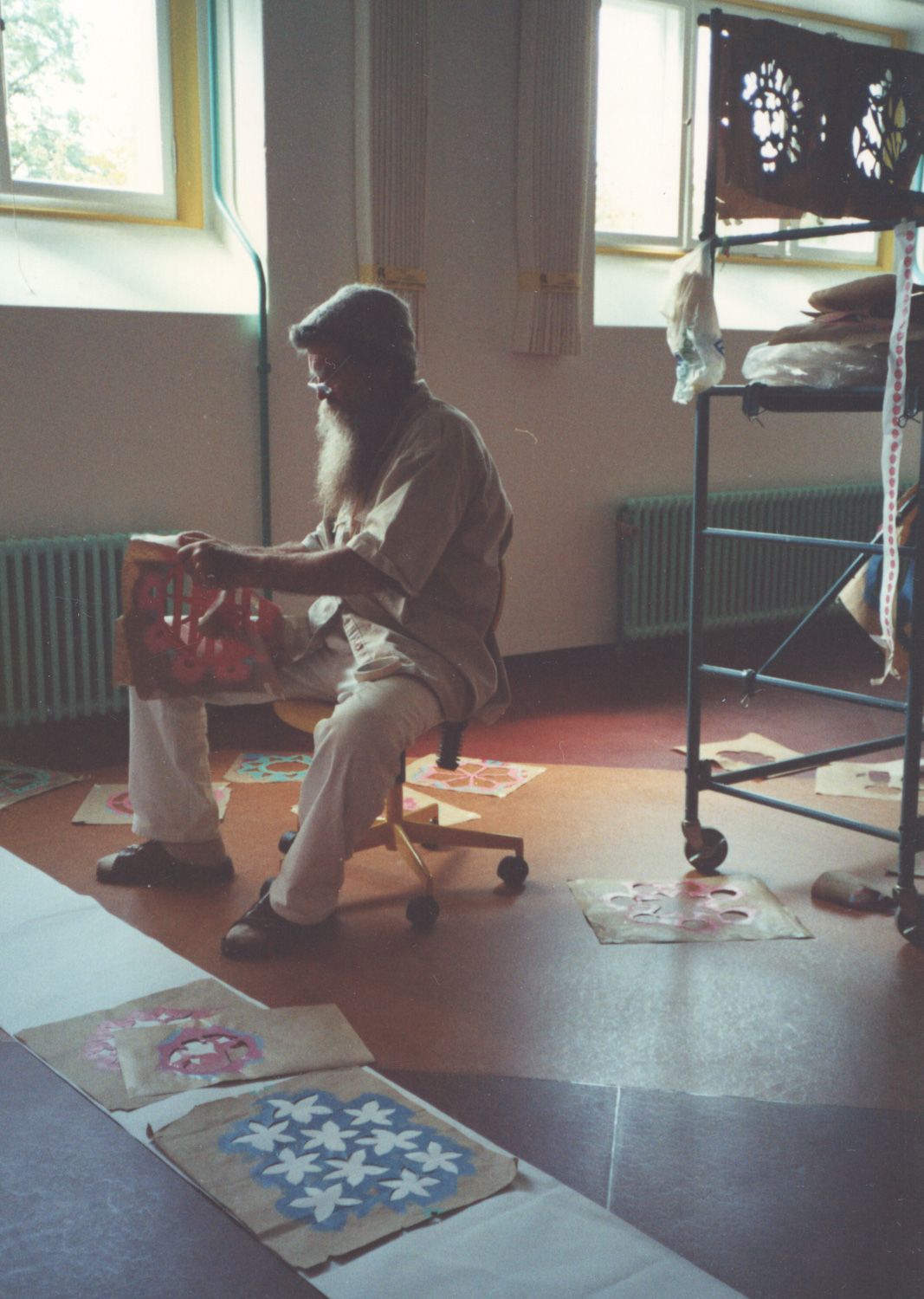
Sorting out the stencils at Næstved Central Hospital, 1990
Photo: Aase Seidler Gernes
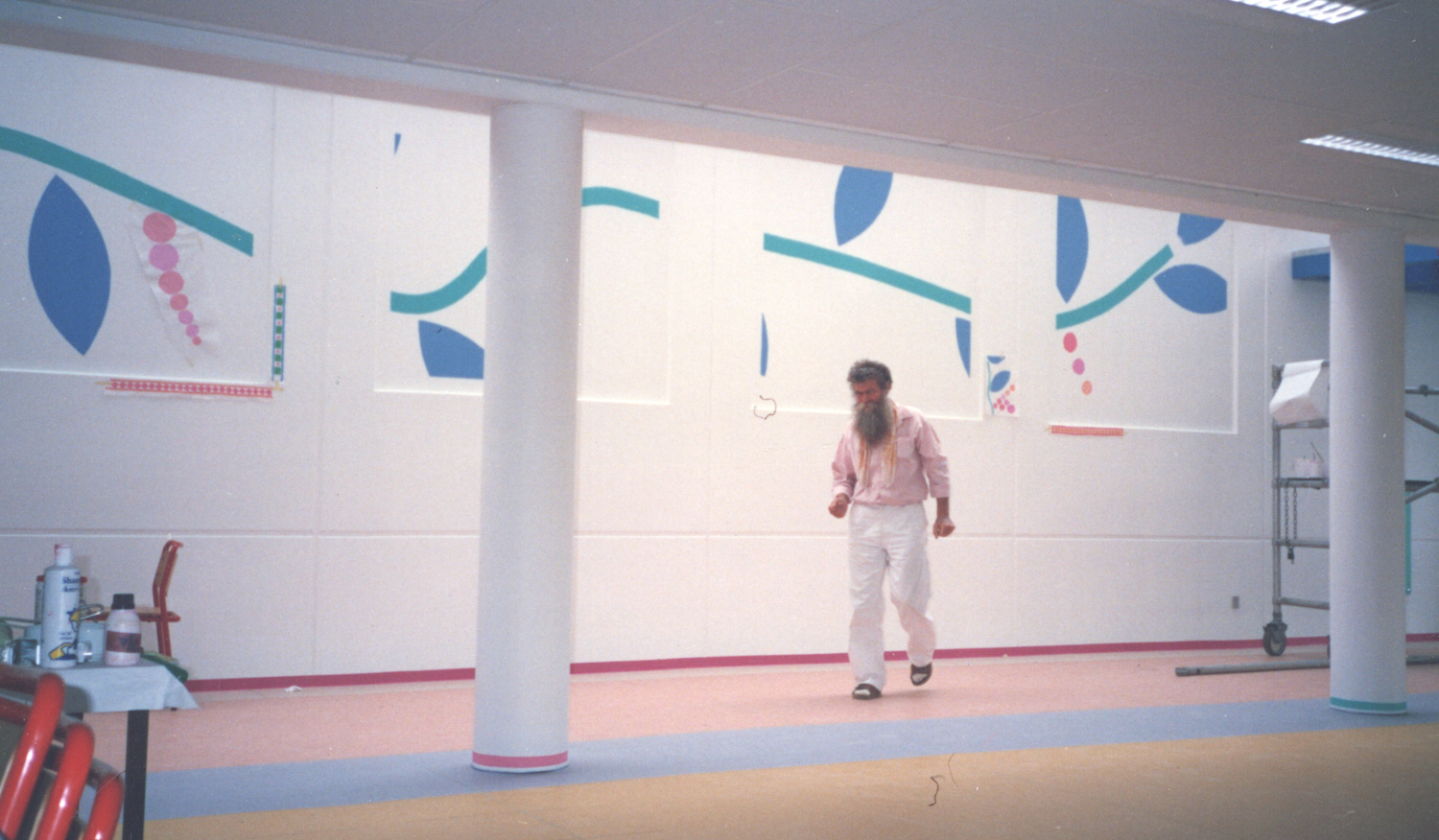
Decorating Tårnby Technical School in 1990 (today: Kirstinehøj School)
Photo: Aase Seidler Gernes
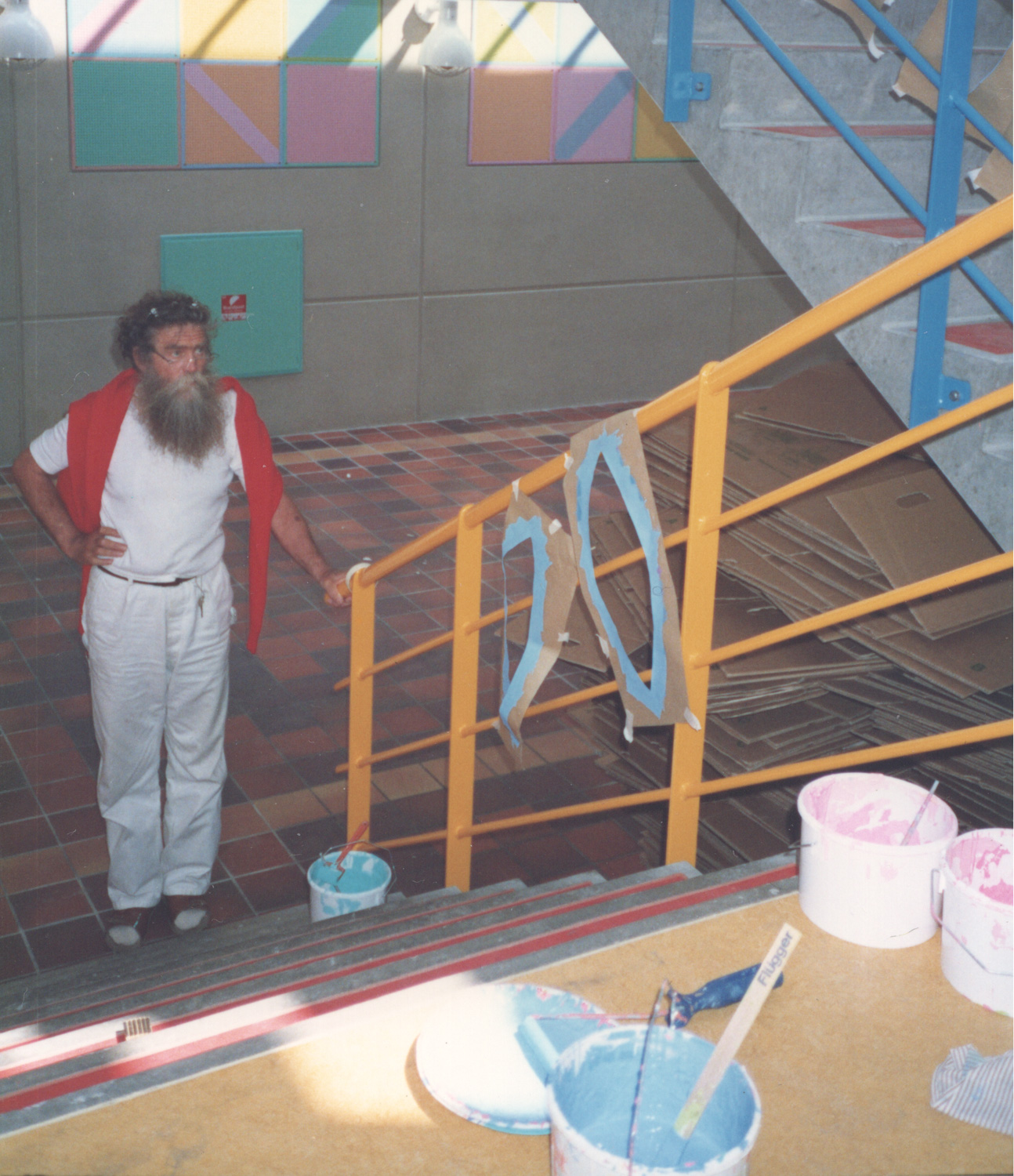
Decorating Tårnby Technical School in 1990 (today: Kirstinehøj School)
Photo: Aase Seidler Gernes
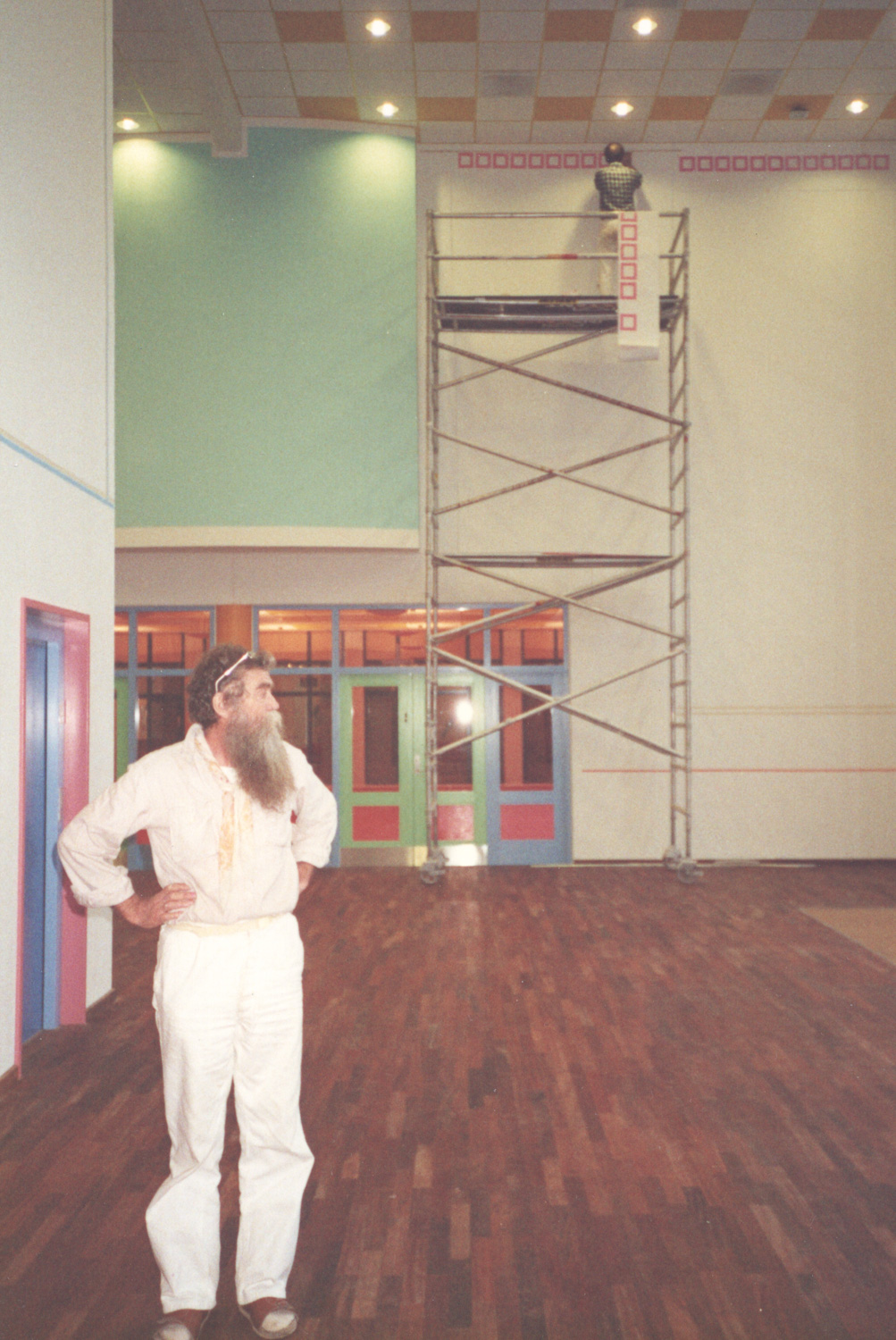
Pondering his decoration at Kolding Theatre in January 1991
Photo: Aase Seidler Gernes
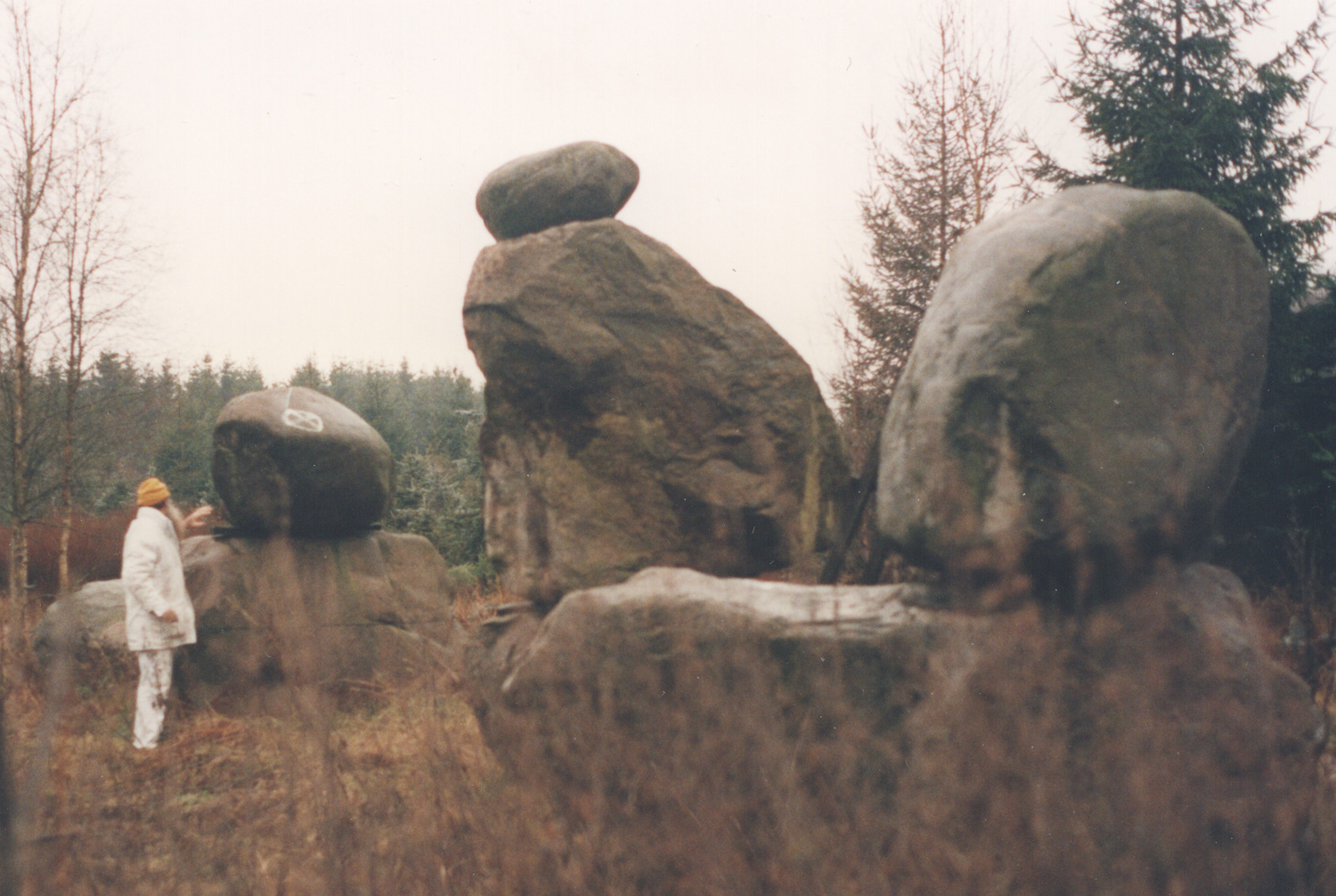
Land art in Ekeröd 1991
Photo: Aase Seidler Gernes
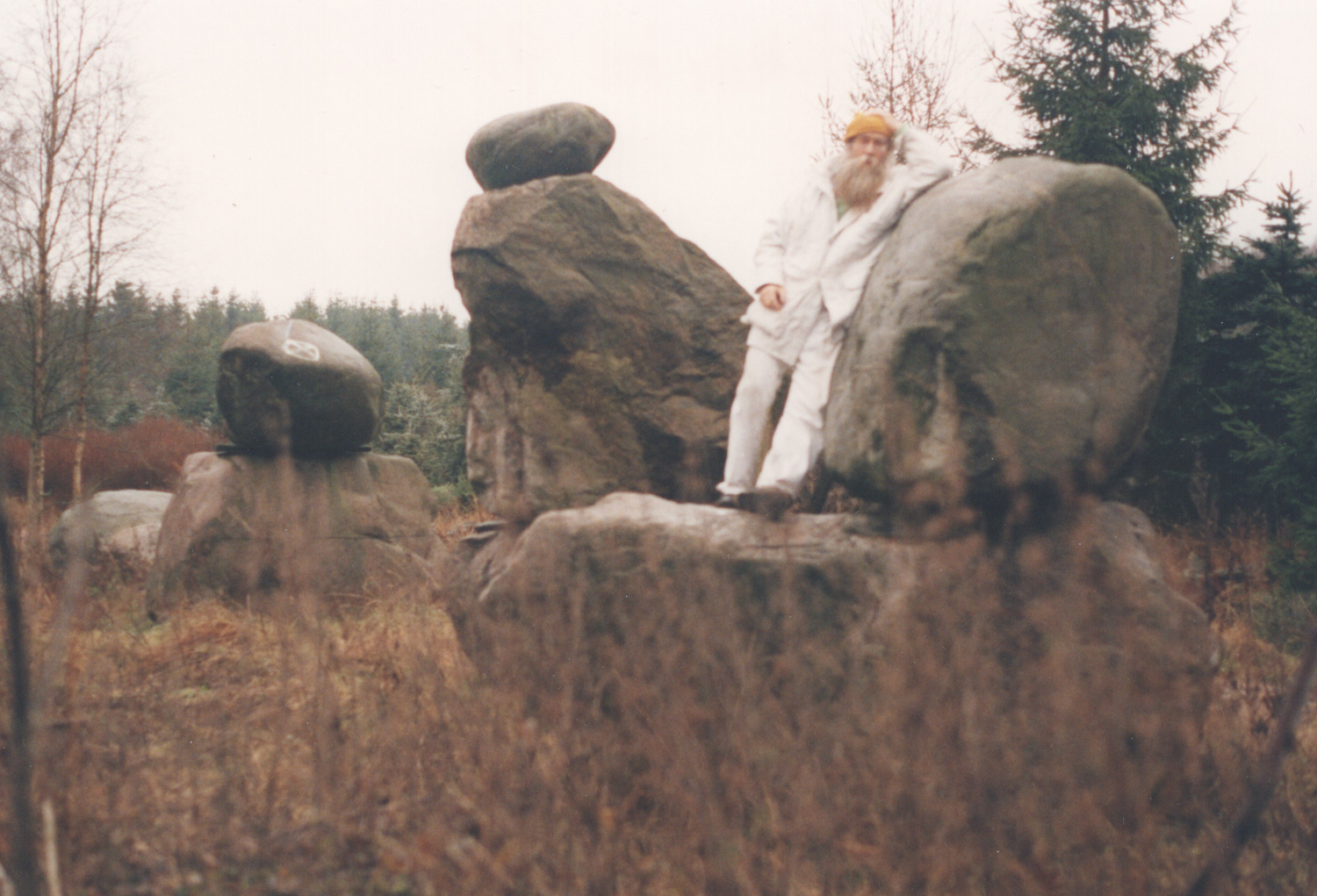
With his large land art rocks in Ekeröd, 1991
Photo: Aase Seidler Gernes
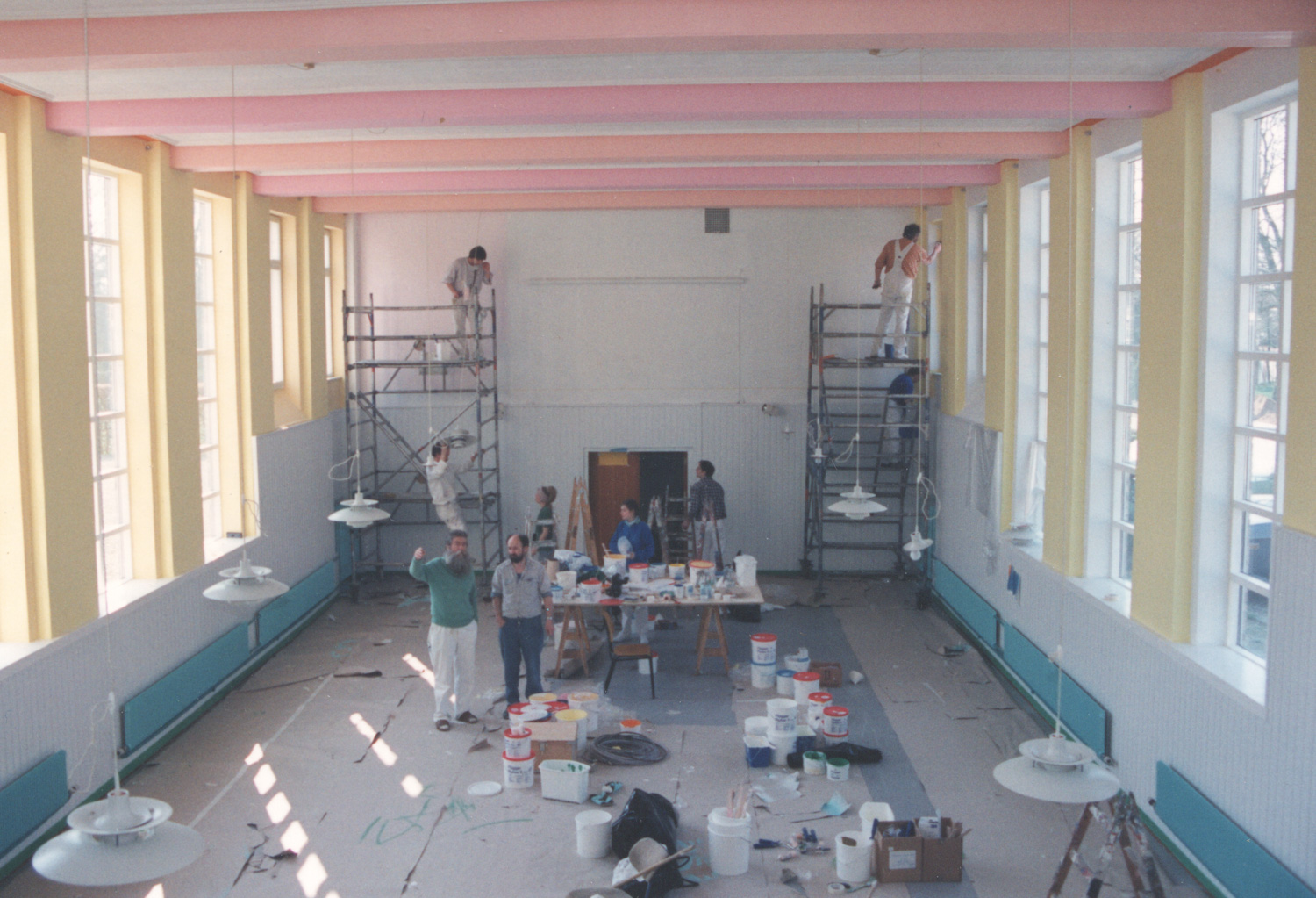
Decorating Ollerup Technical School, 1991
Photo: Aase Seidler Gernes
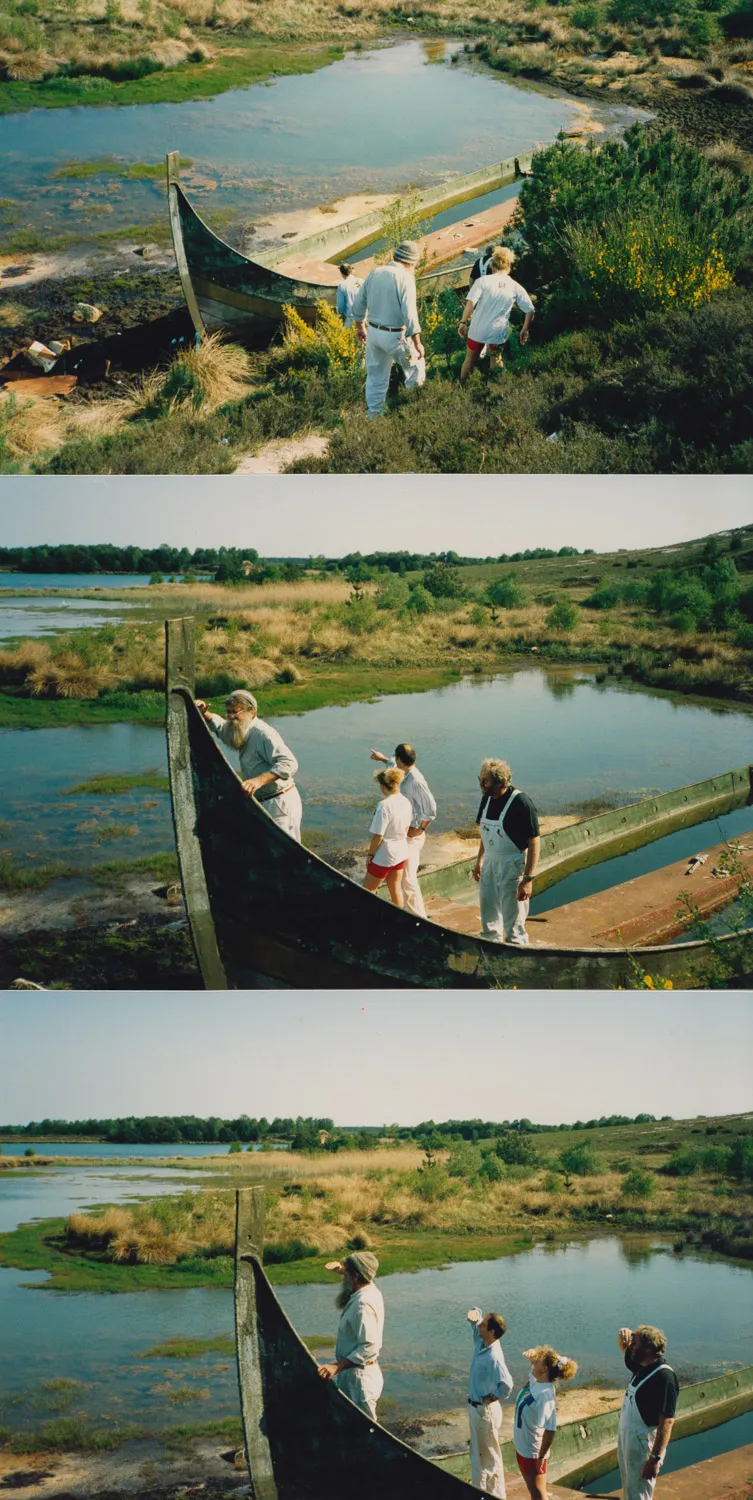
Visiting the remains of a viking ship built for the film Normannerne. Brande, 1992
Photo: Eva Karin Thomsen
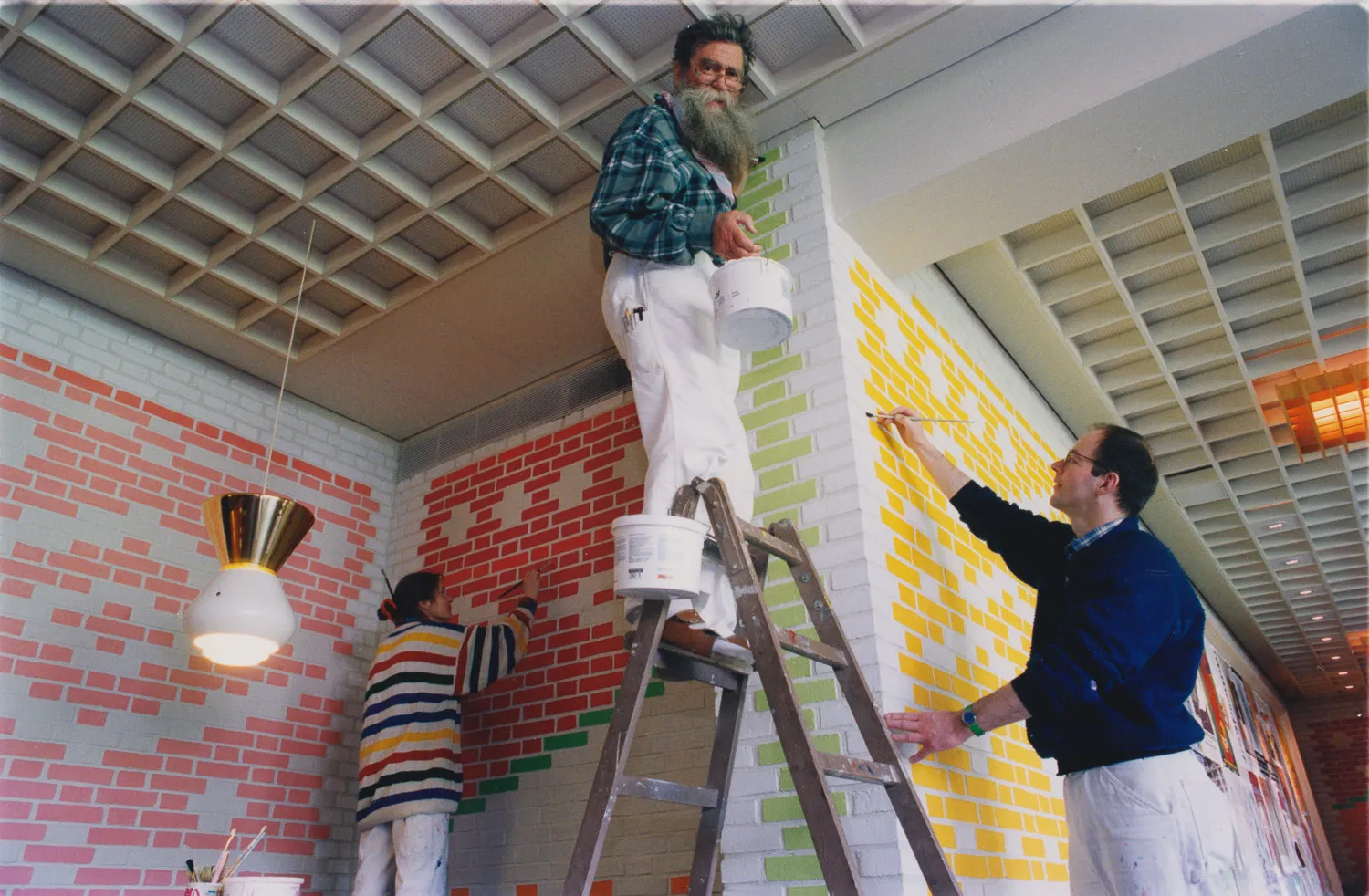
Decorating the museum café at Nordjyllands Kunstmuseum in 1992
Photo: Jens Astrup
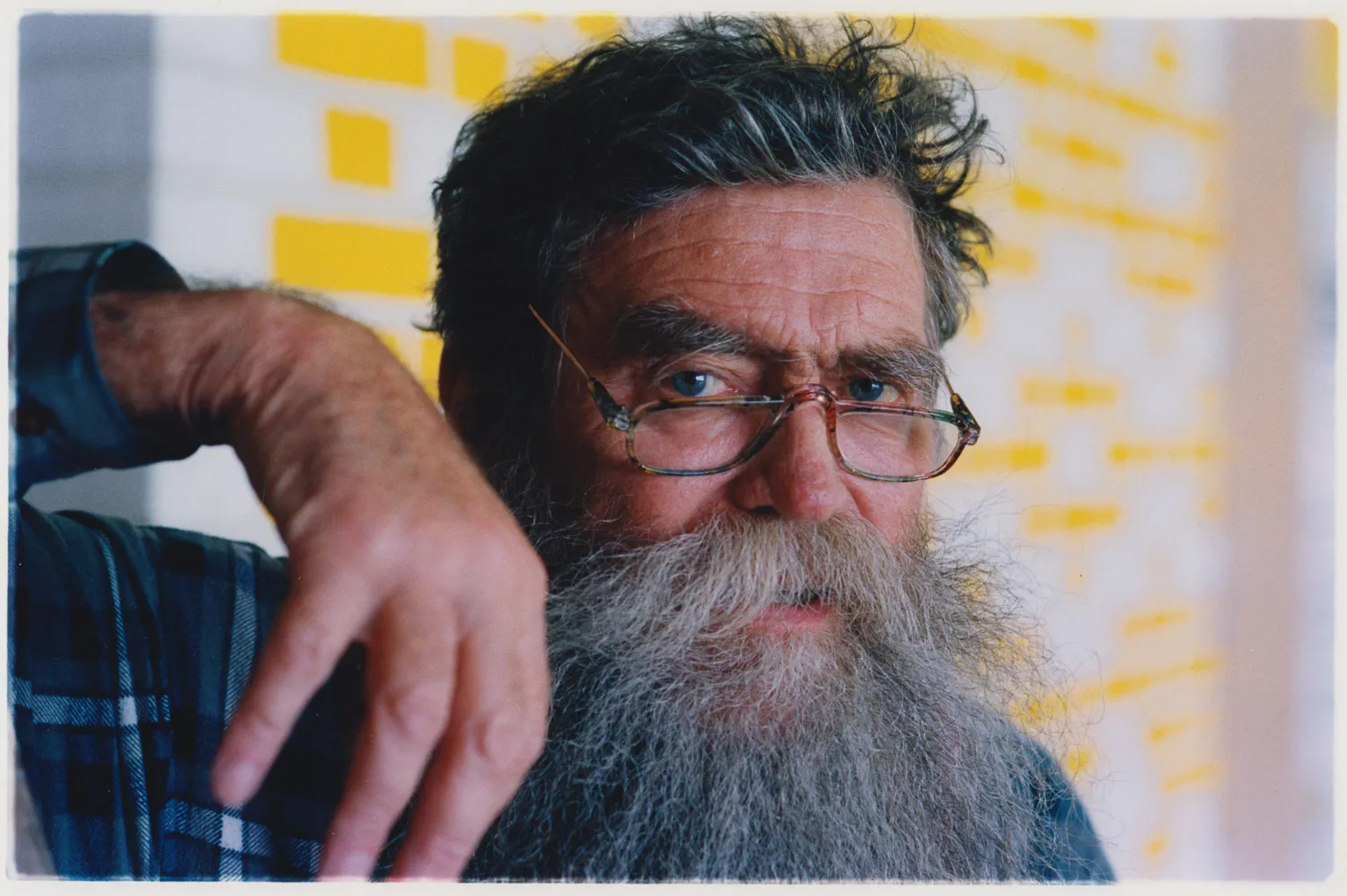
At the museum café at Nordjyllands Kunstmuseum, 1992
Photo: Jens Astrup
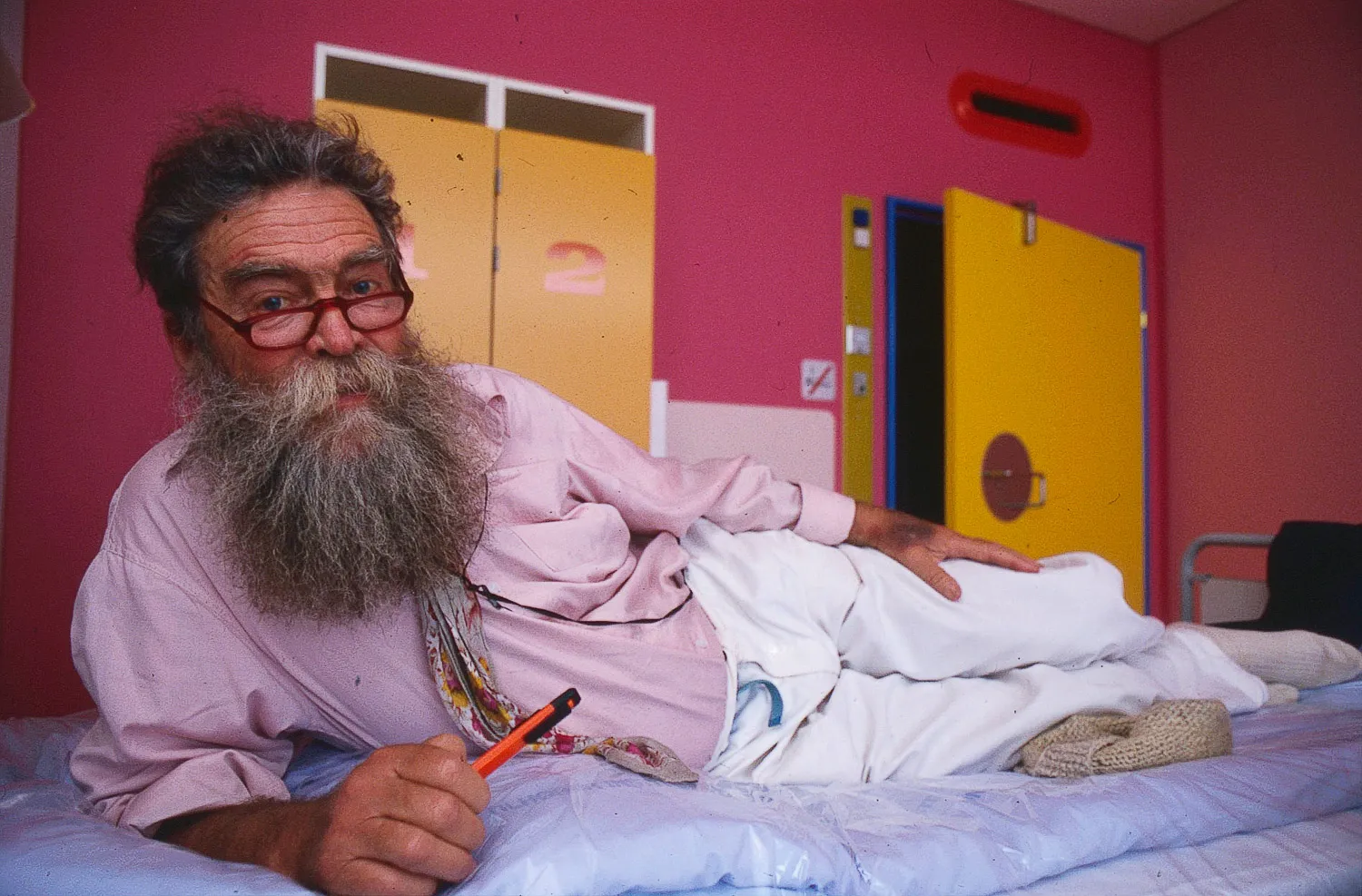
Posing in a bed at Herlev Hospital, 1992
Photo: Dermot Tatlow
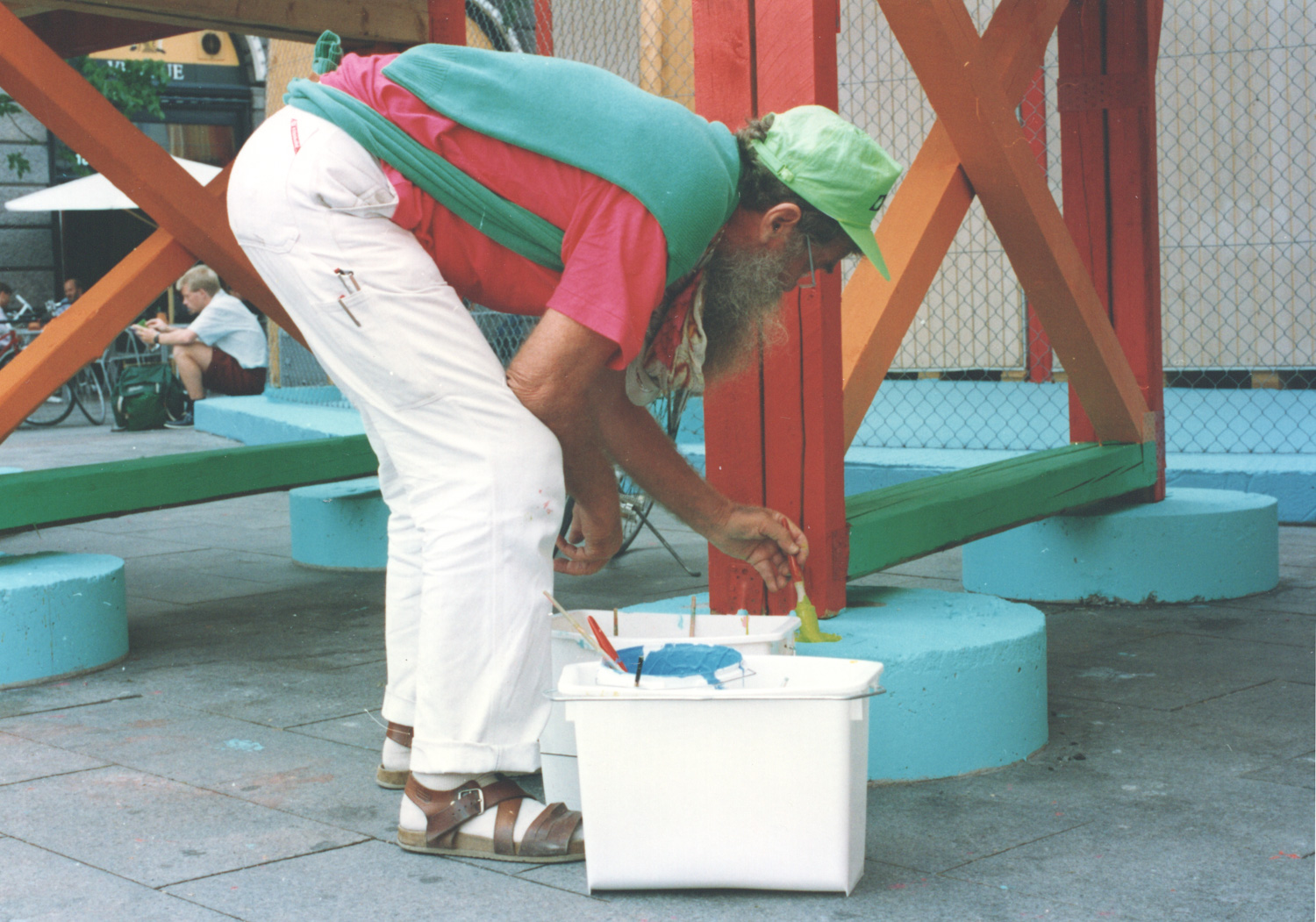
Poul painting, 1992
Photo: ukendt / unknown
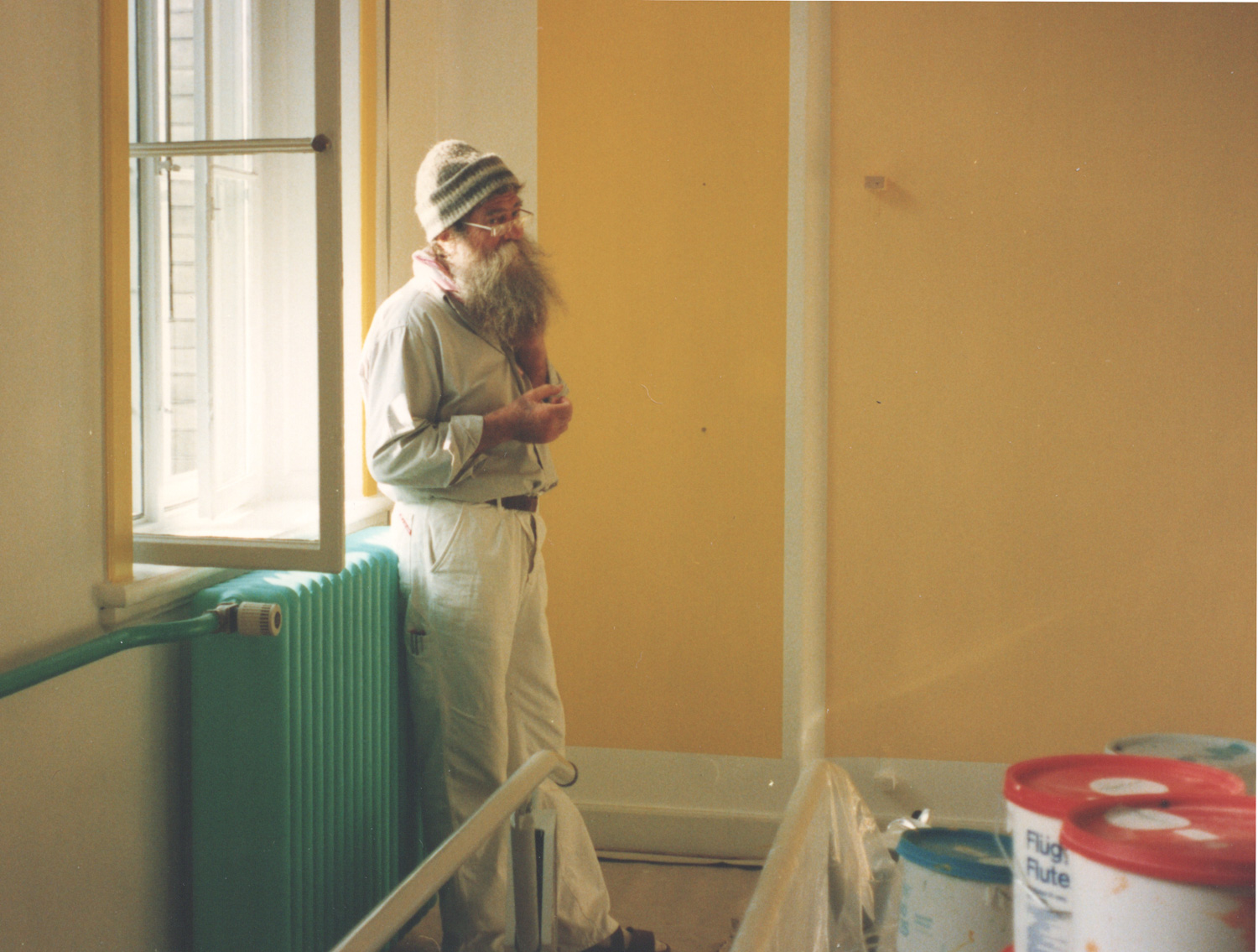
At Næstved Central Hospital in June 1992
Photo: Aase Seidler Gernes
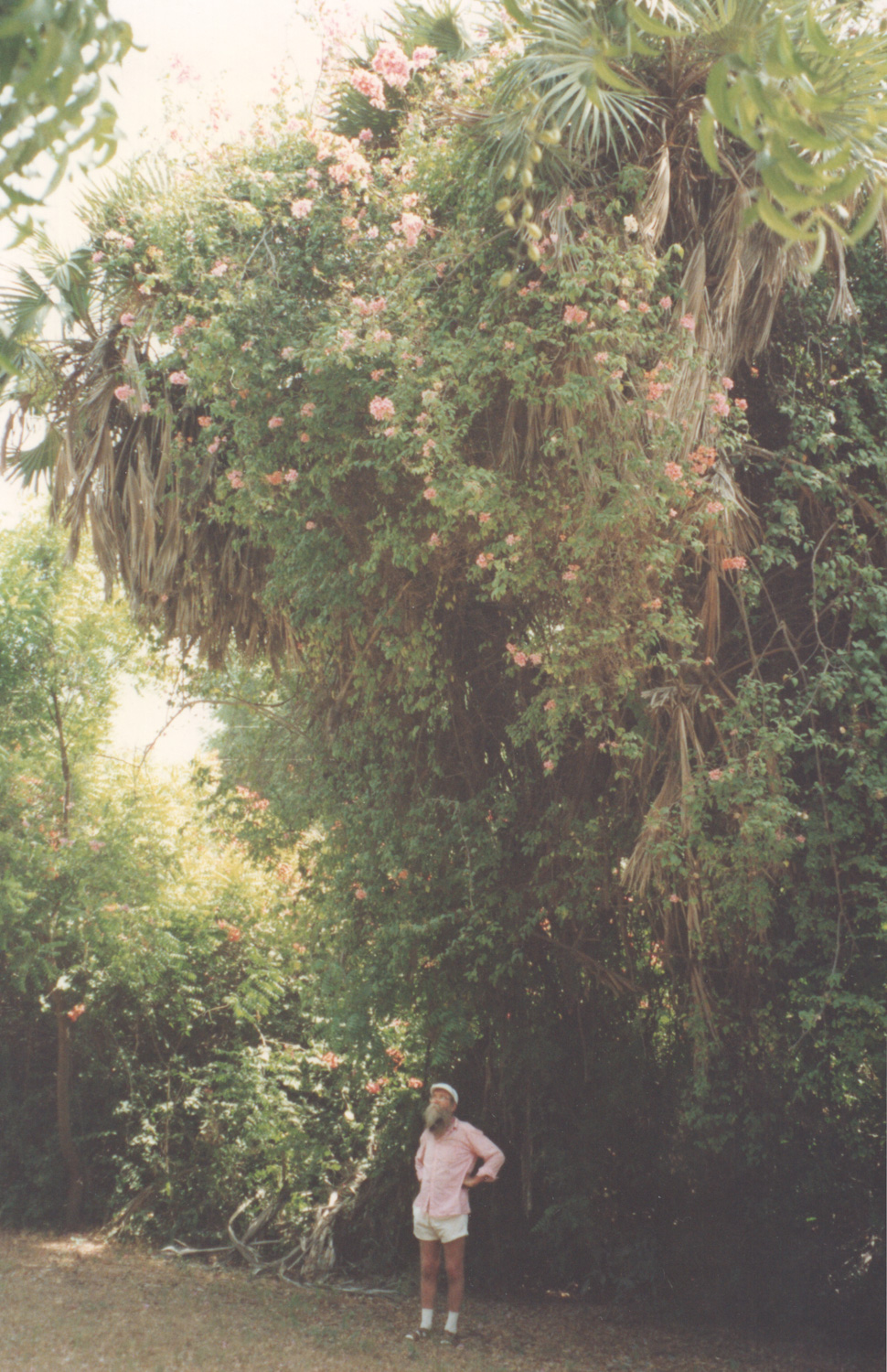
Kenya, 1992
Photo: Aase Seidler Gernes
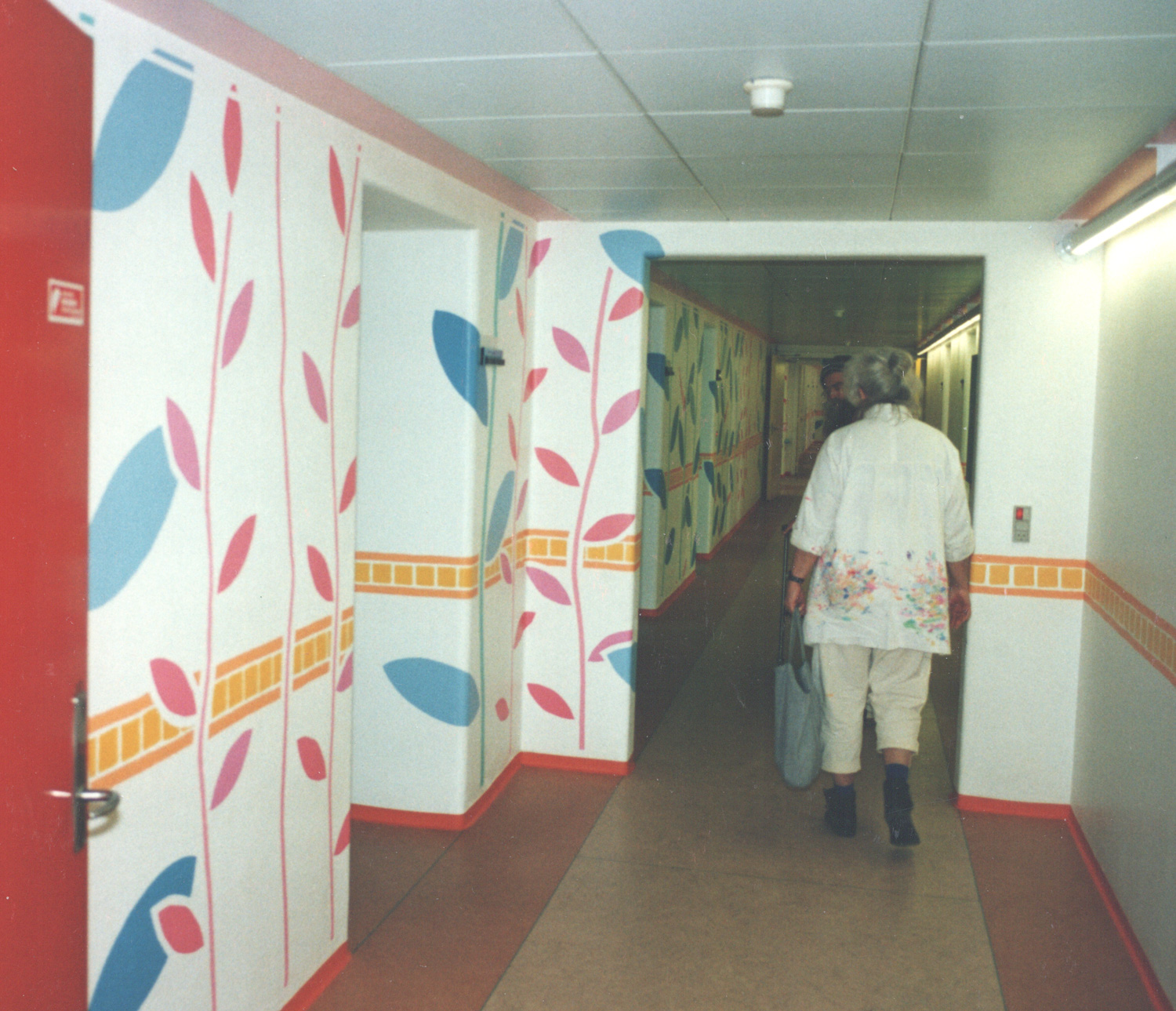
Poul and Aase at Central Hospital in Næstved, 1992
Photo: ukendt / unknown
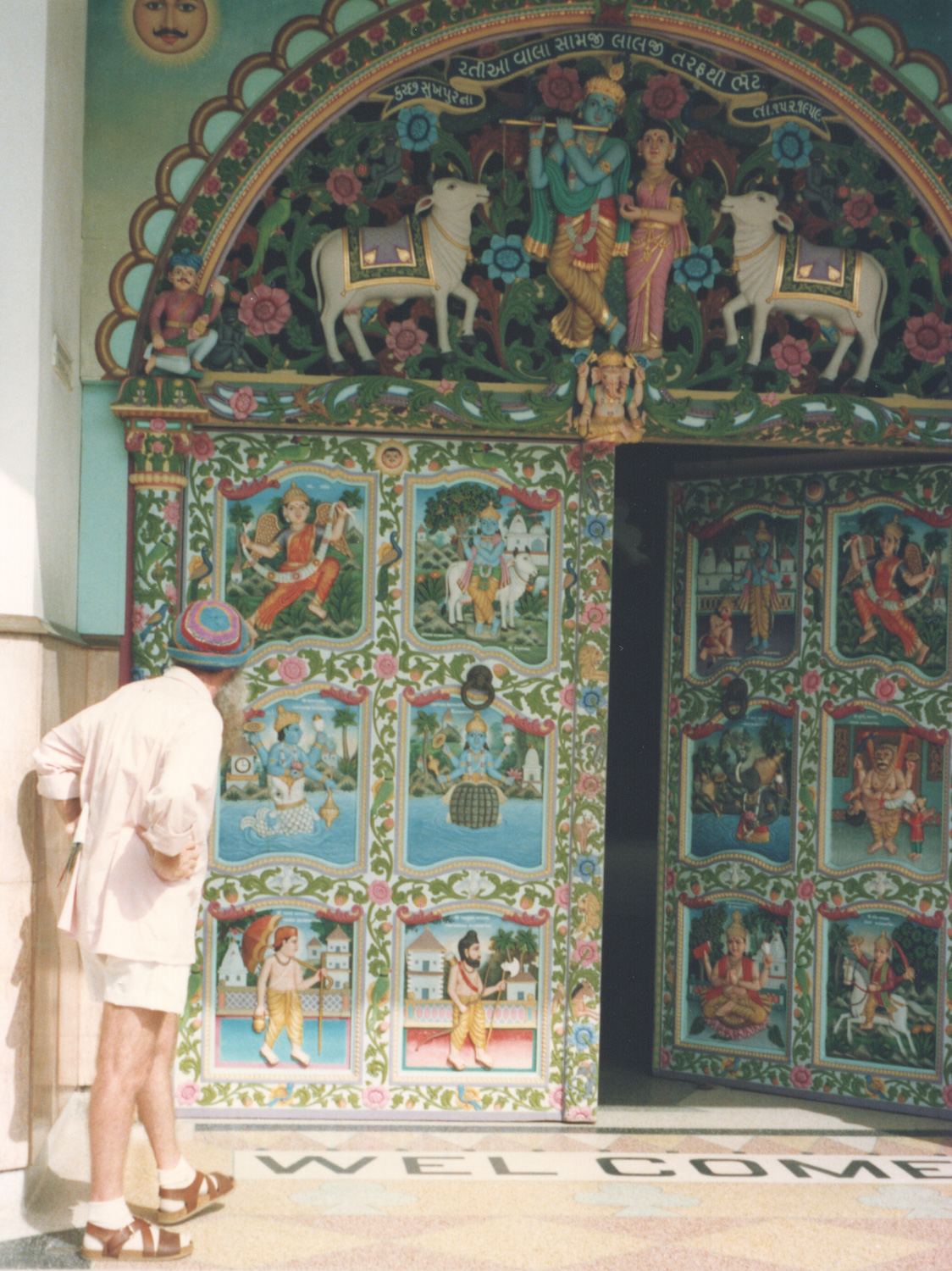
By the entrance to a Hindu temple in Kenya, 1992
Photo: Aase Seidler Gernes
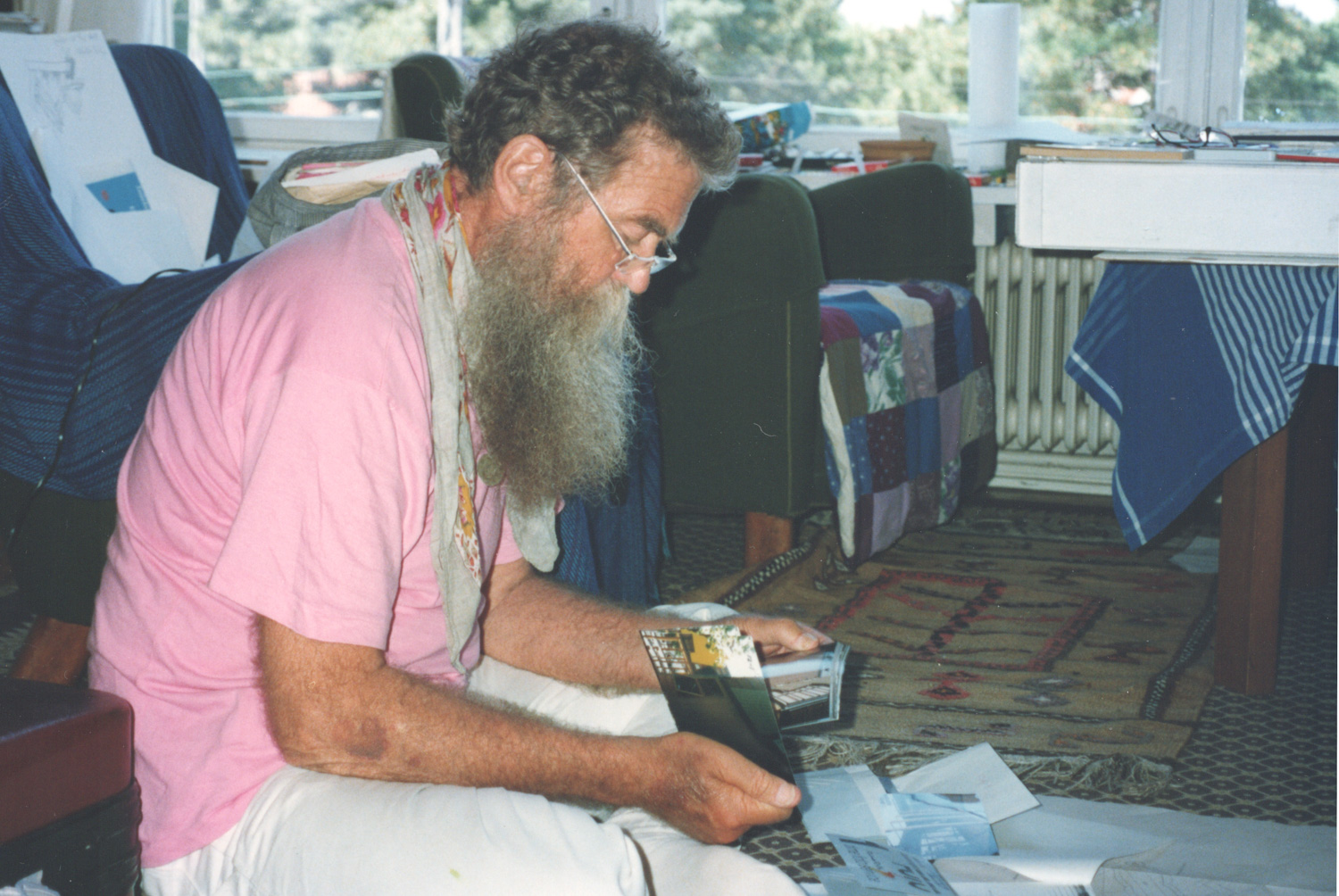
In the flat at Utterslev Torv in June, 1992
Photo: Aase Seidler Gernes
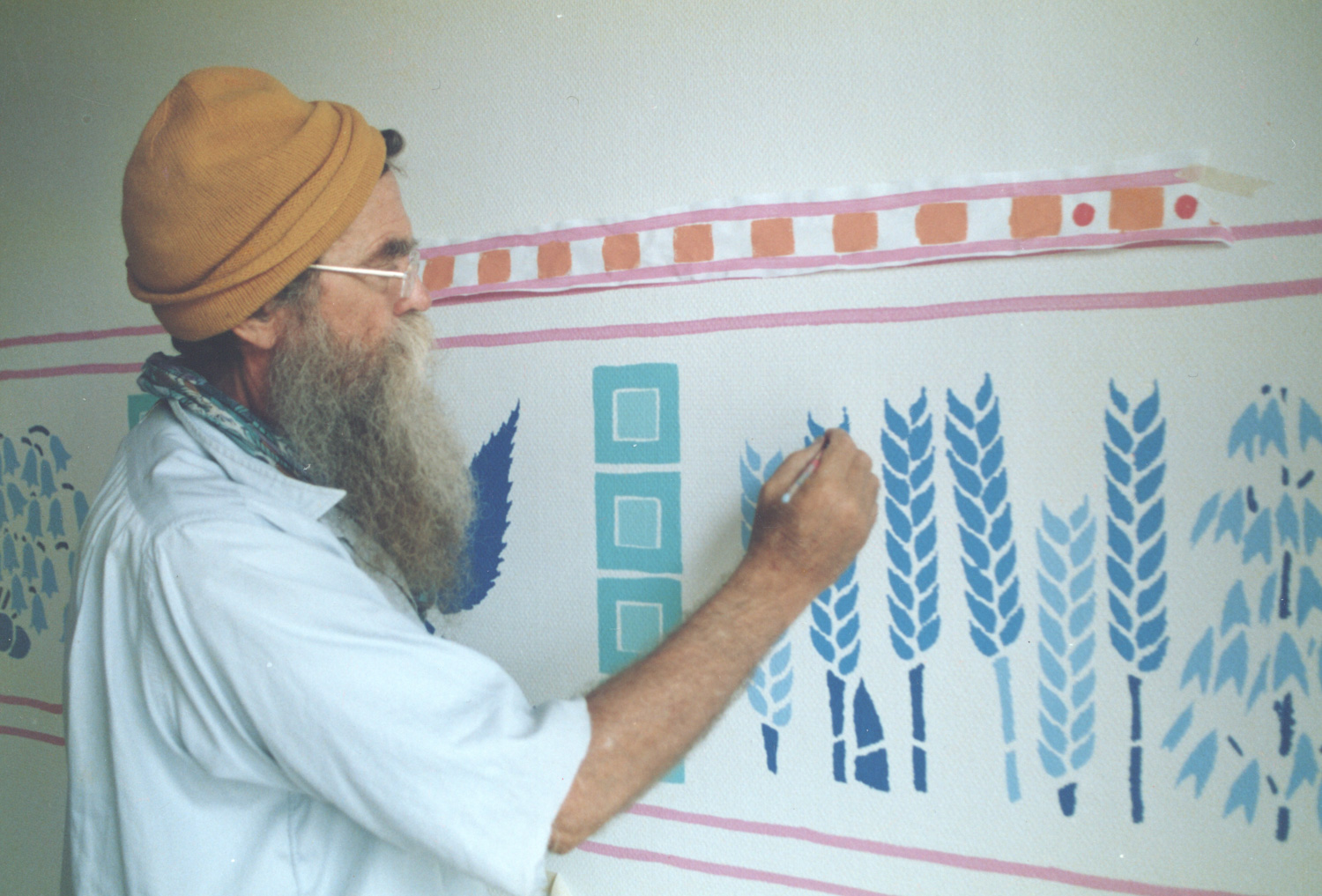
Decorating a dentist's clinic in Aalborg, 1991
Photo: ukendt / unknown
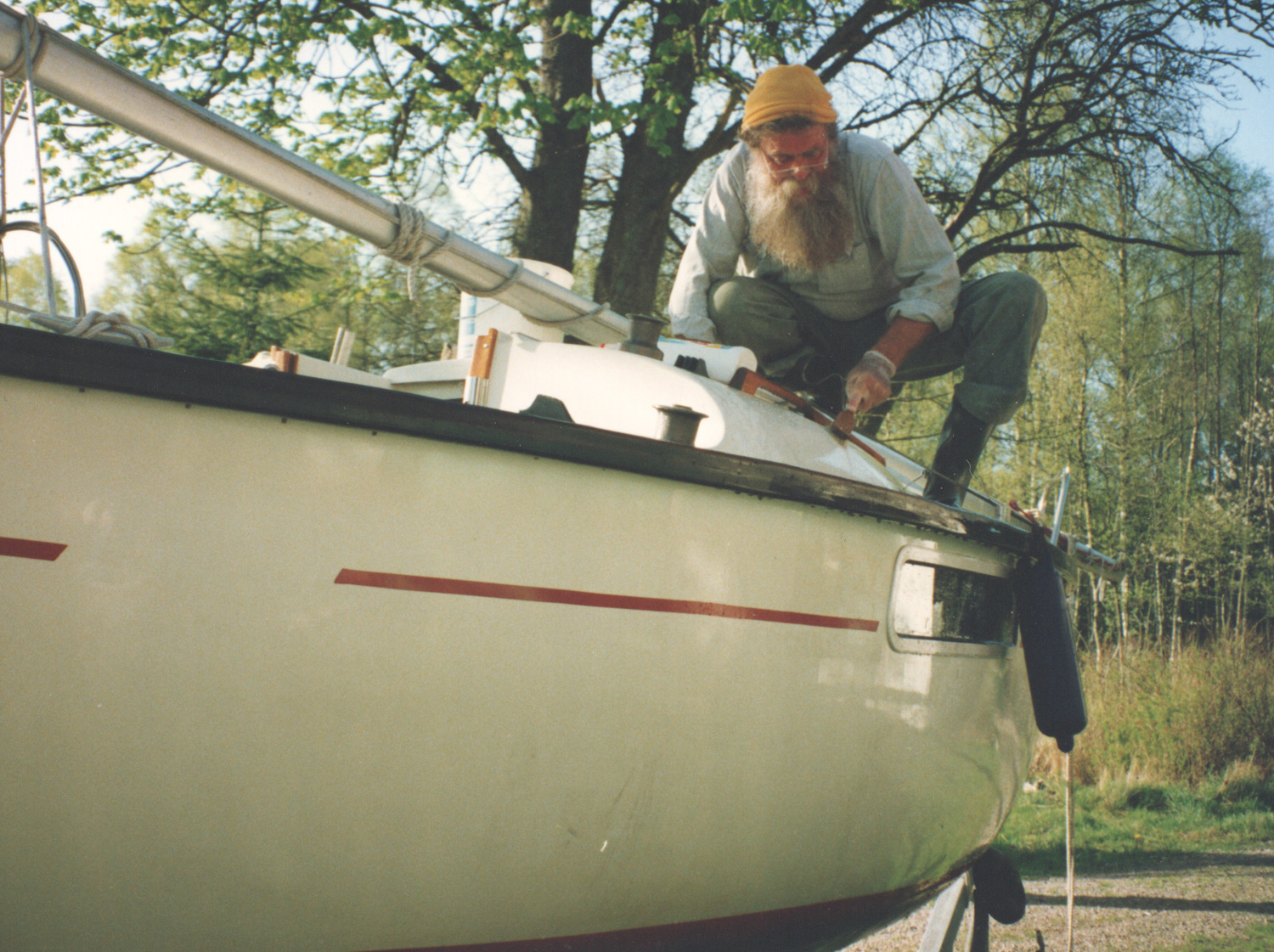
Spring cleaning his boat in Ekeröd, April 1992
Photo: Ulrikka Gernes
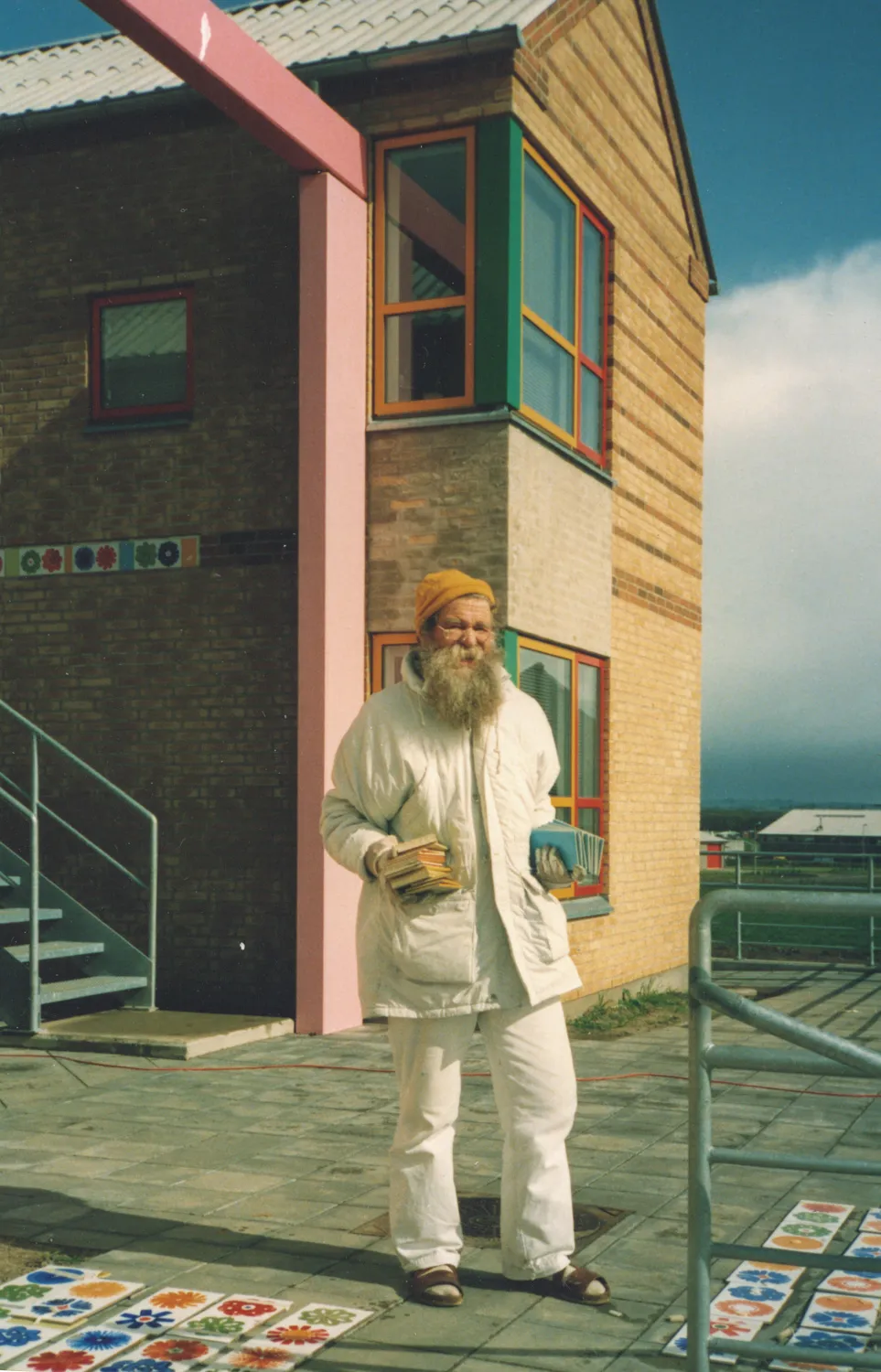
During the decoration of Torsted Vest Cooperative Housing Association, 1993
Photo: Eva Karin Thomsen
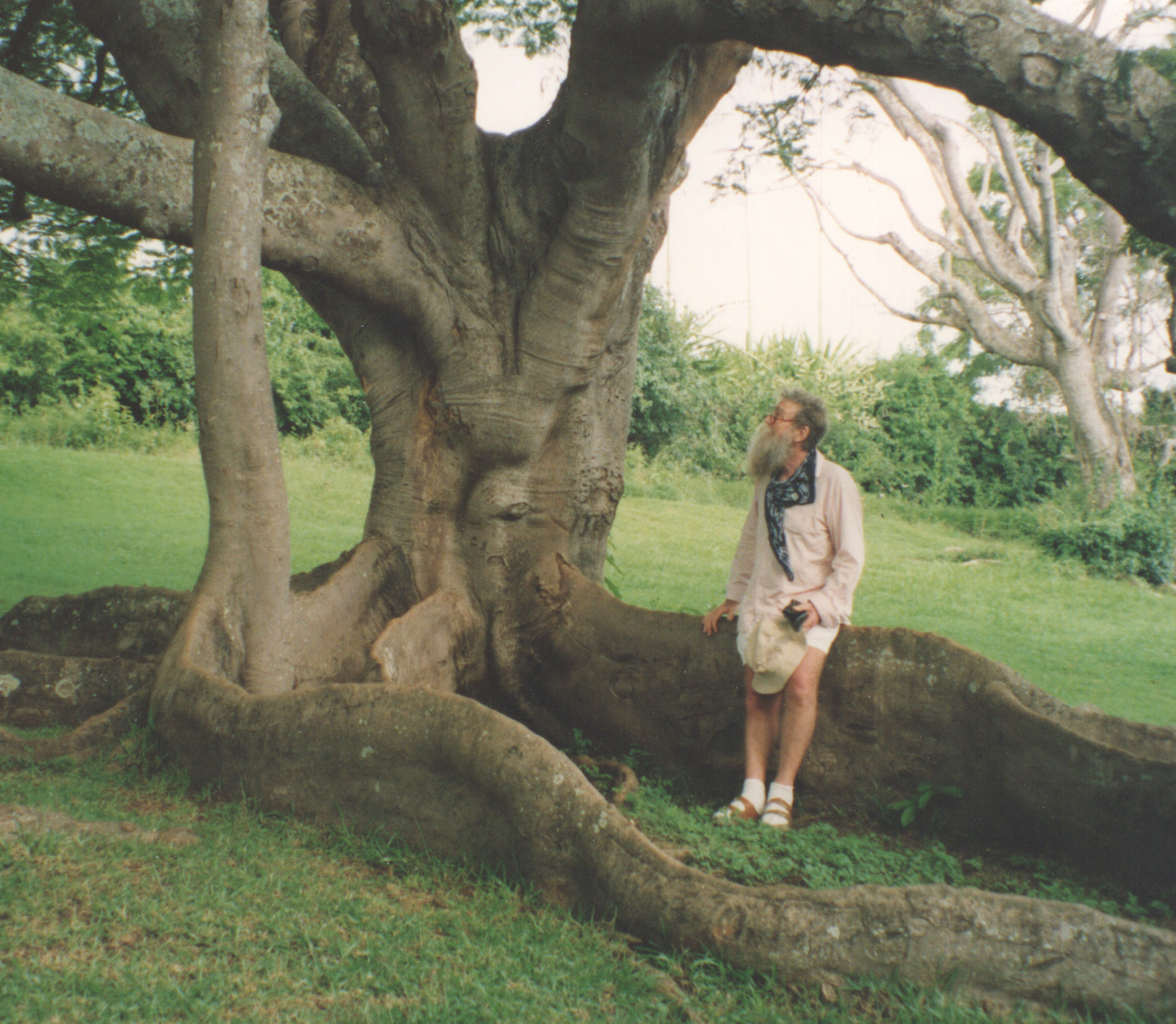
On Réunion in March 1993
Photo: Aase Seidler Gernes
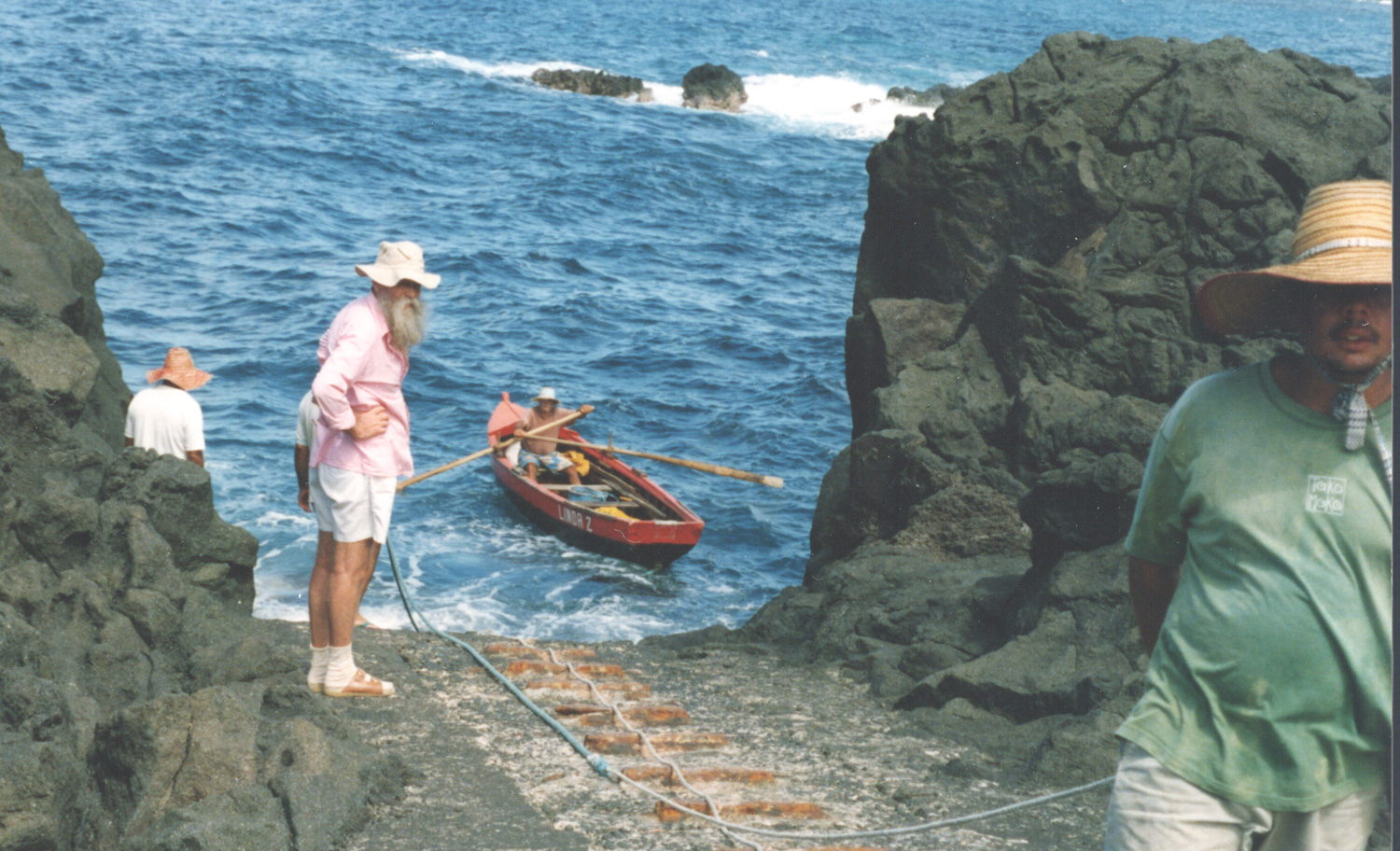
On Réunion in March 1993
Photo: Aase Seidler Gernes
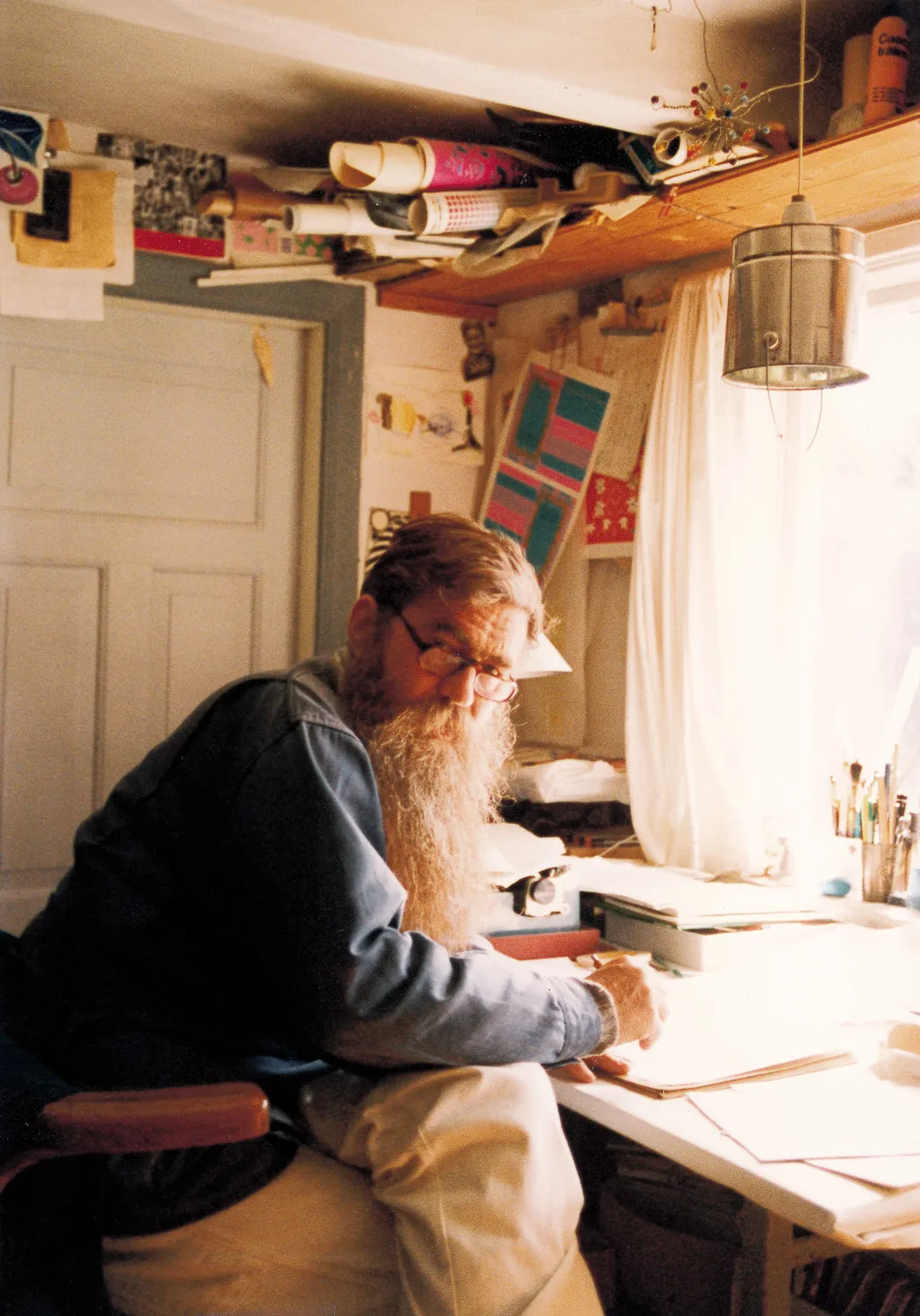
By the desk at home in Ekeröd, 1994
Photo: Aase Seidler Gernes
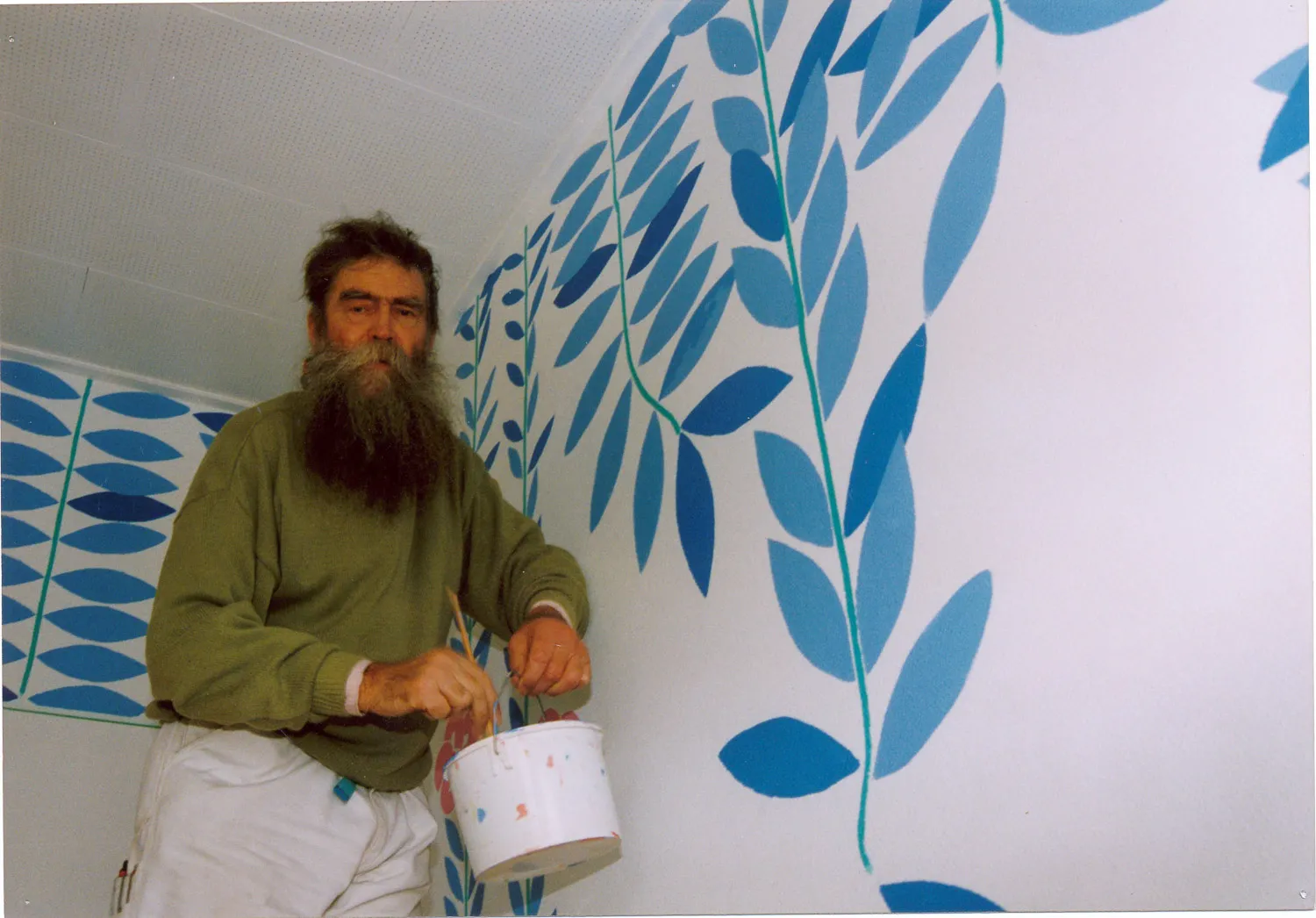
Decorating Vestervang School in Herning, 1994
Photo: ukendt / unknown
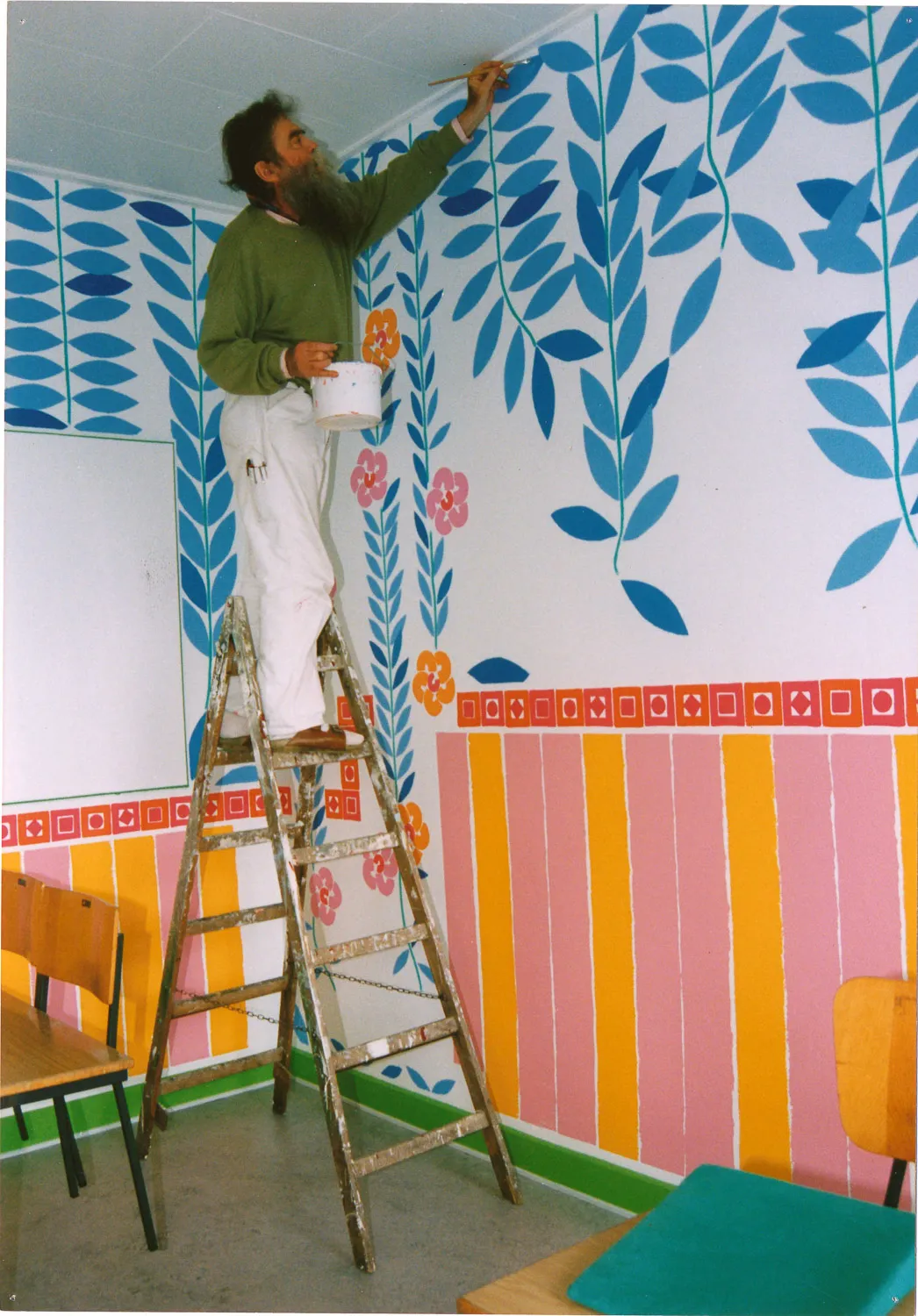
Decorating Vestervang School in Herning, 1994
Photo: ukendt / unknown
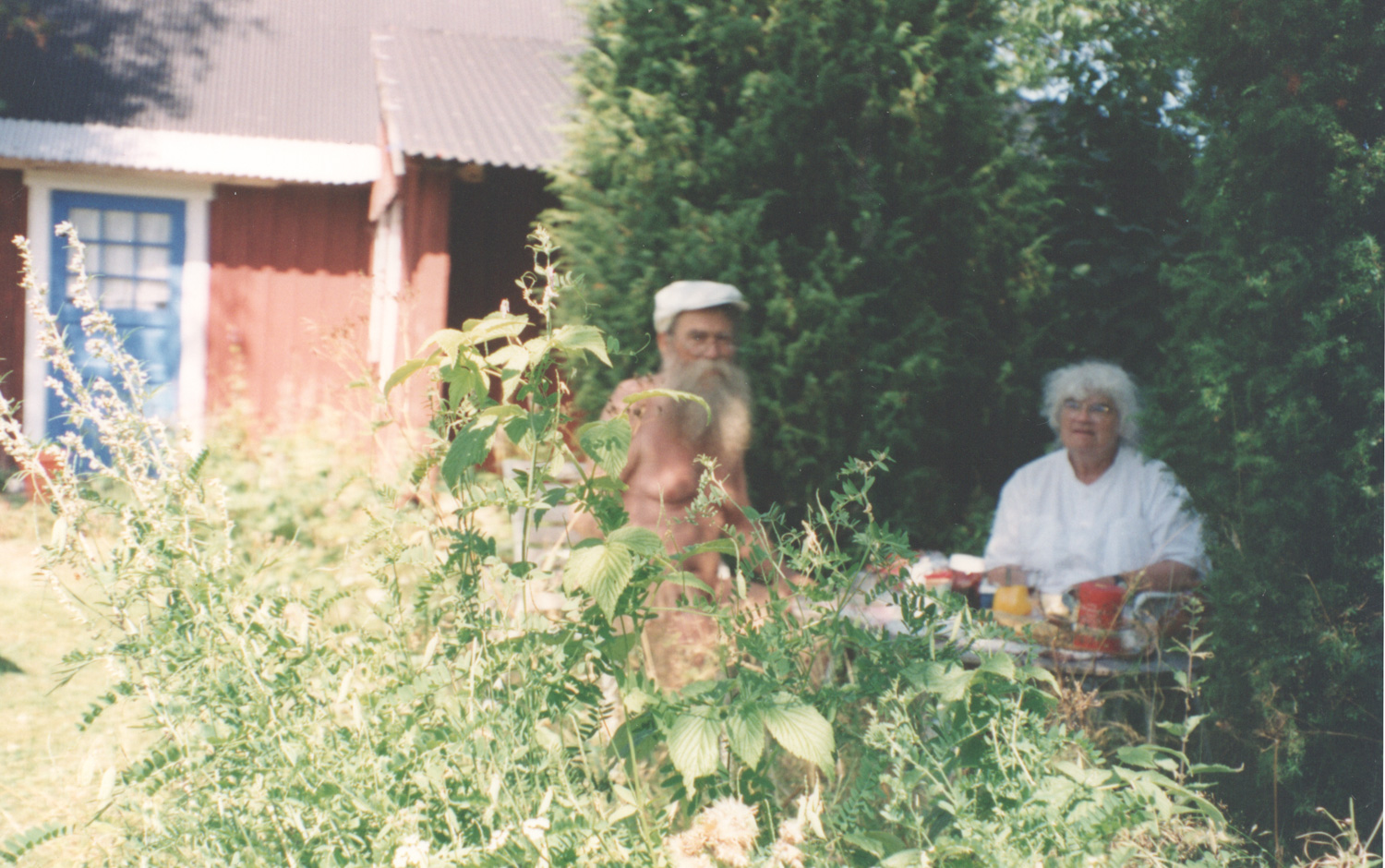
In the garden in Ekeröd, Sweden, 1994
Photo: selvudløser / self-timer
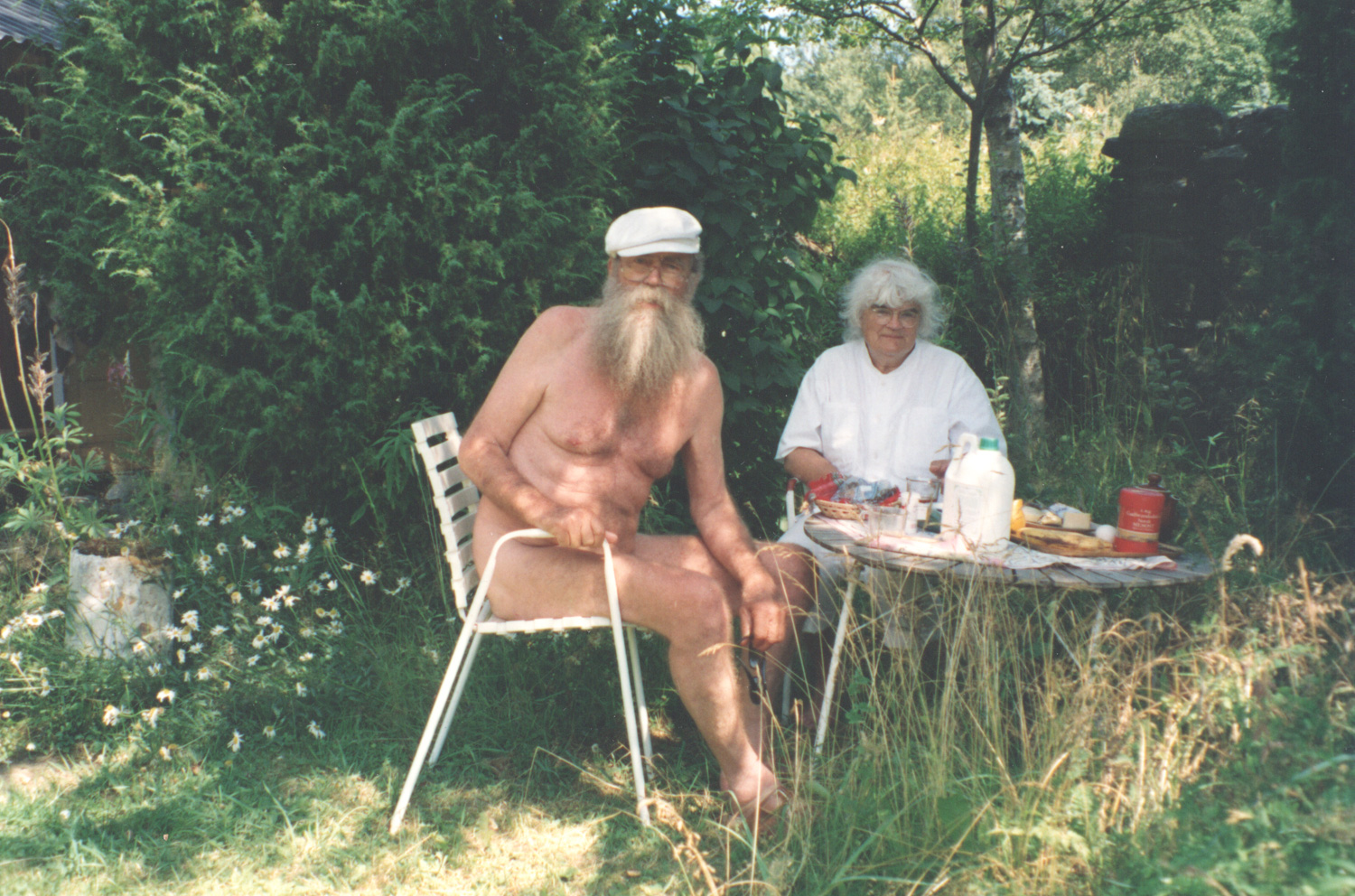
In the garden in Ekeröd, Sweden, 1994
Photo: selvudløser / self-timer

Working on Big Rosa in Pietrasanta in the autumn of 1995
Photo: Anders Krüger

Working on Big Rosa in Pietrasanta in the autumn of 1995
Photo: Anders Krüger
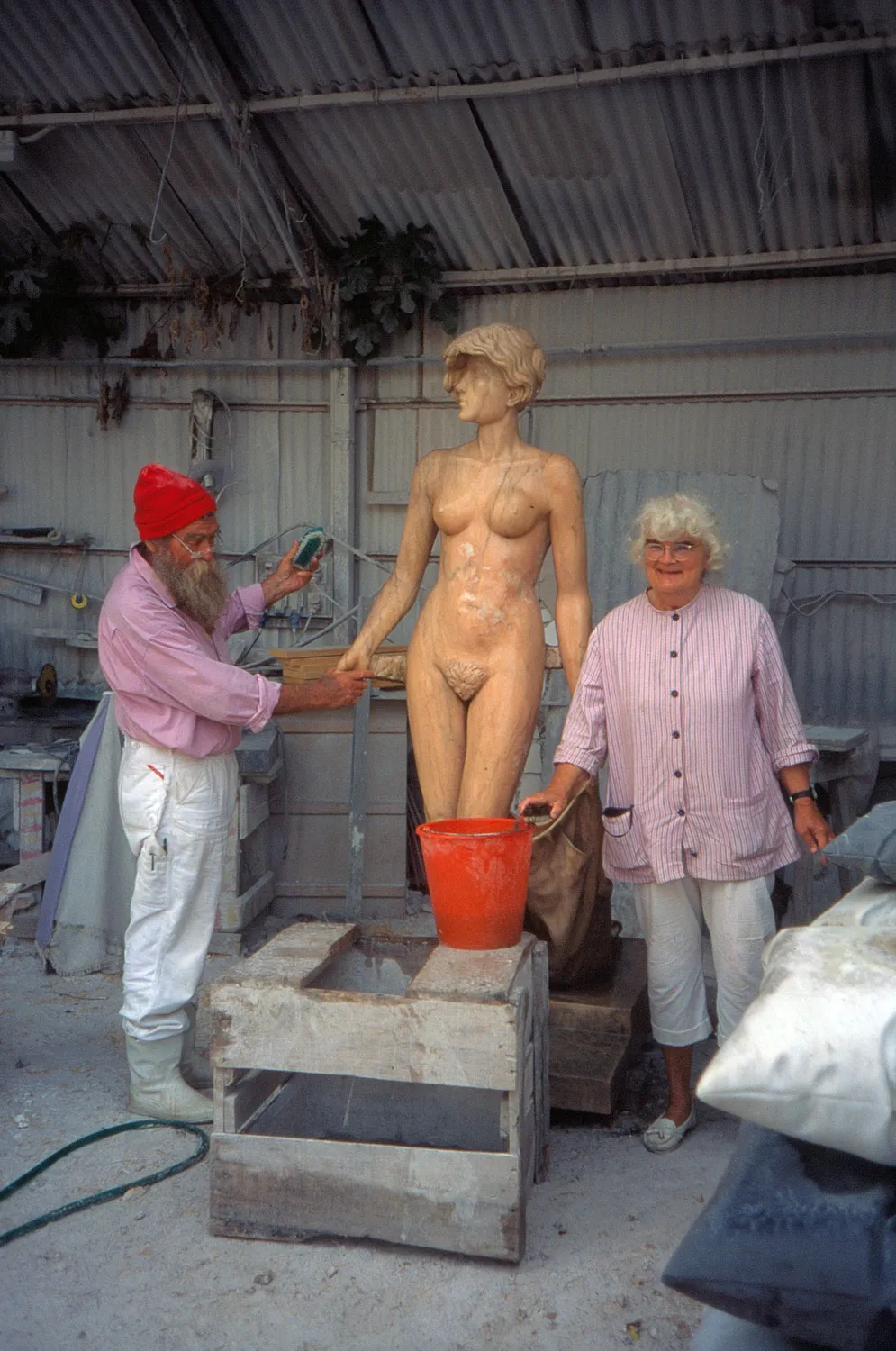
Poul and Aase working on Little Rosa in Pietrasanta, autumn of 1995
Photo: Anders Krüger
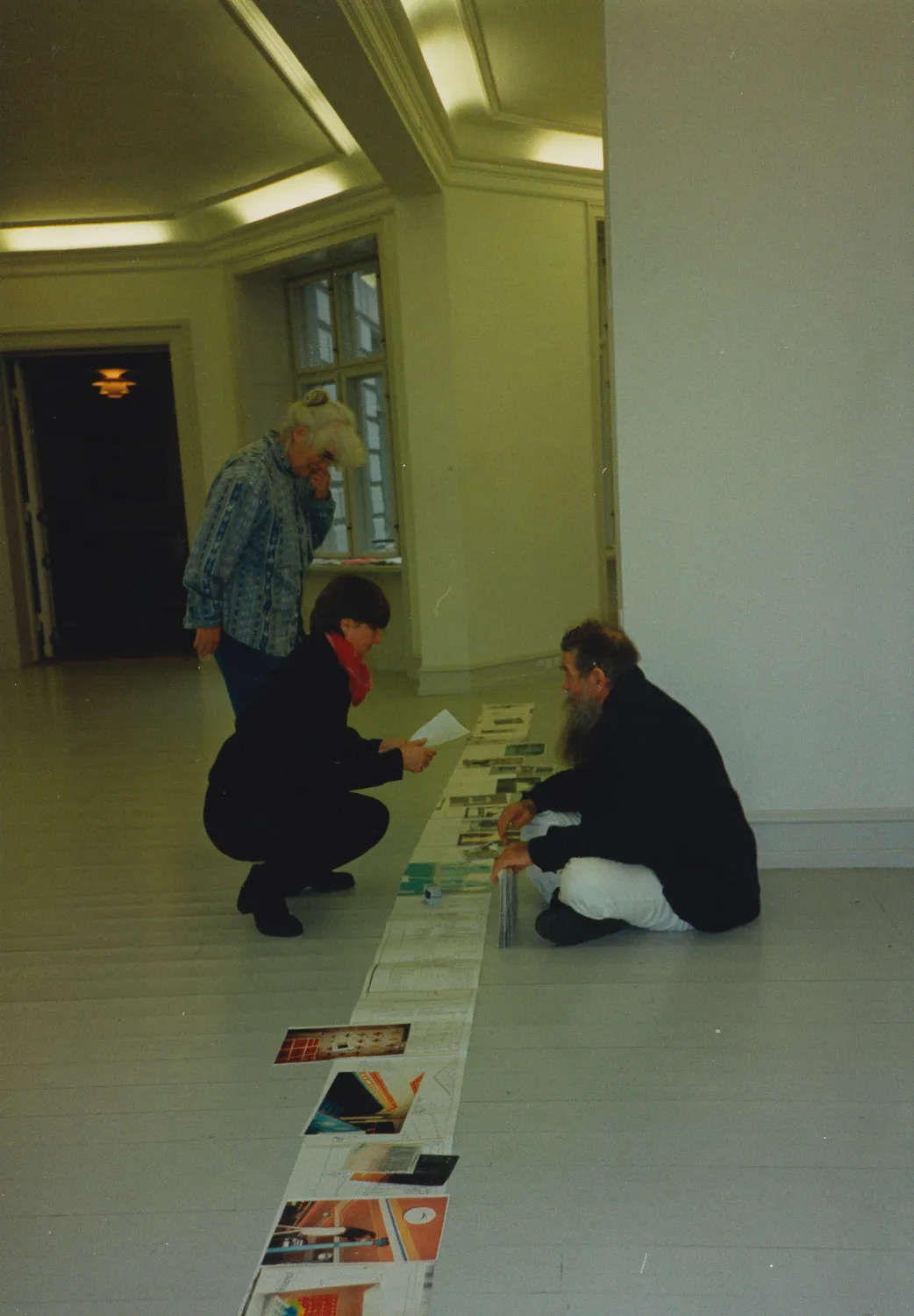
In Galerie Mikael Andersen, planning the layout of the catalogue for his exhibition at Clausholm Castle. February 1996
Photo: ukendt / unknown
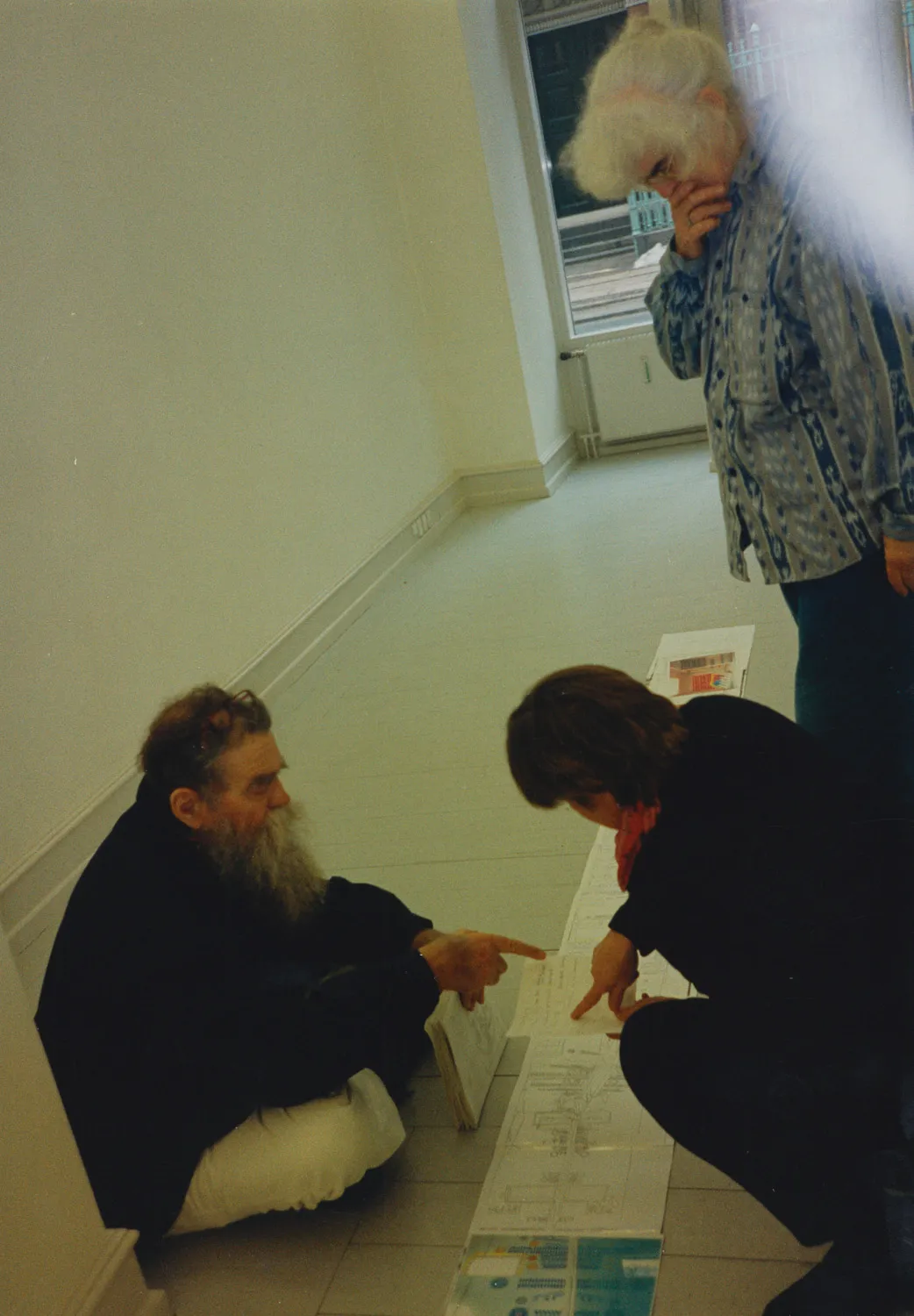
In Galerie Mikael Andersen, planning the layout of the catalogue for his exhibition at Clausholm Castle. February 1996
Photo: ukendt / unknown

Aase og Poul in the car in Copenhagen on the 20th of March 1996. These are the last photographs of Poul Gernes
Photo: Ulrikka Gernes
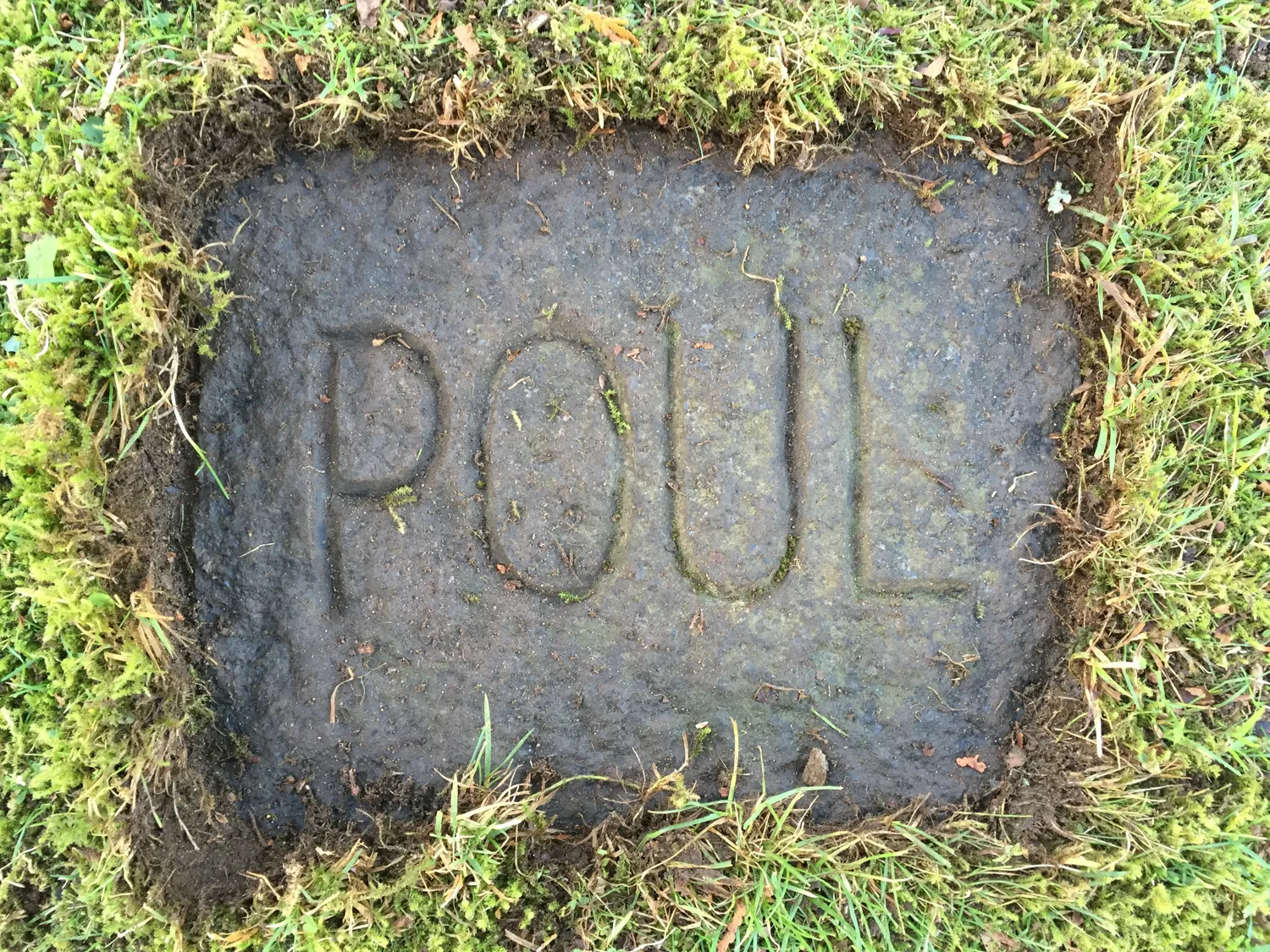
1996
Photo: Ulrikka Gernes